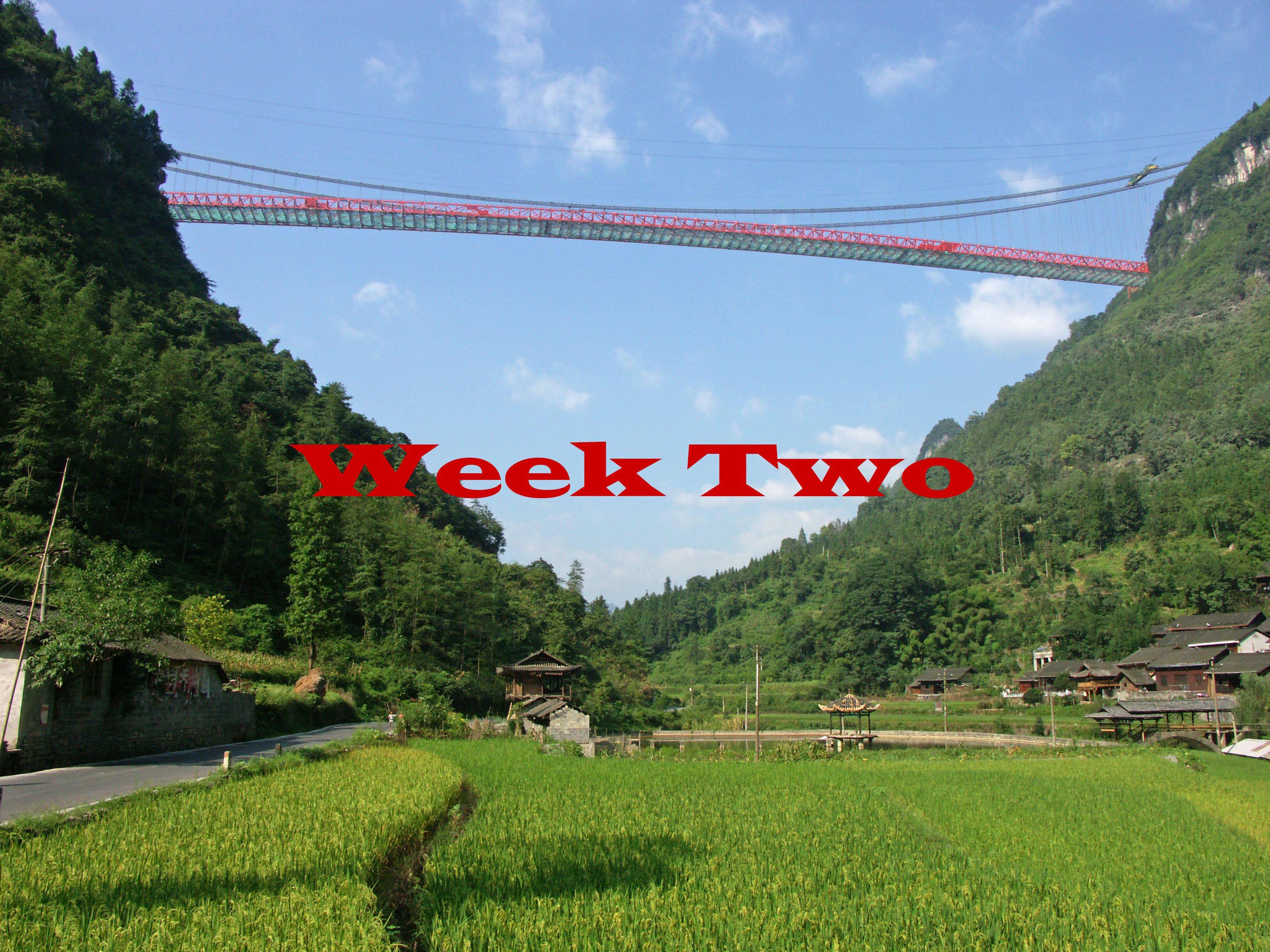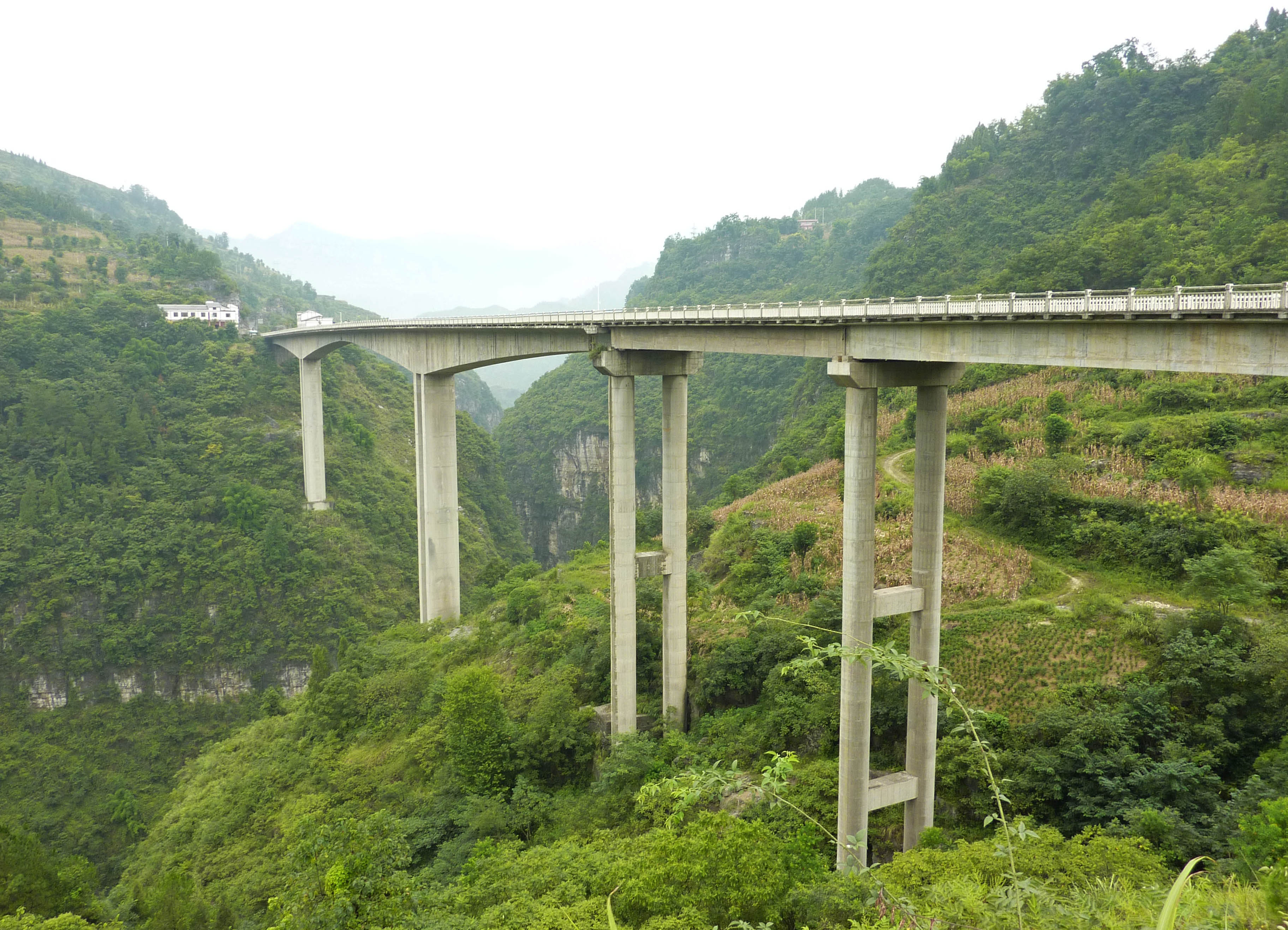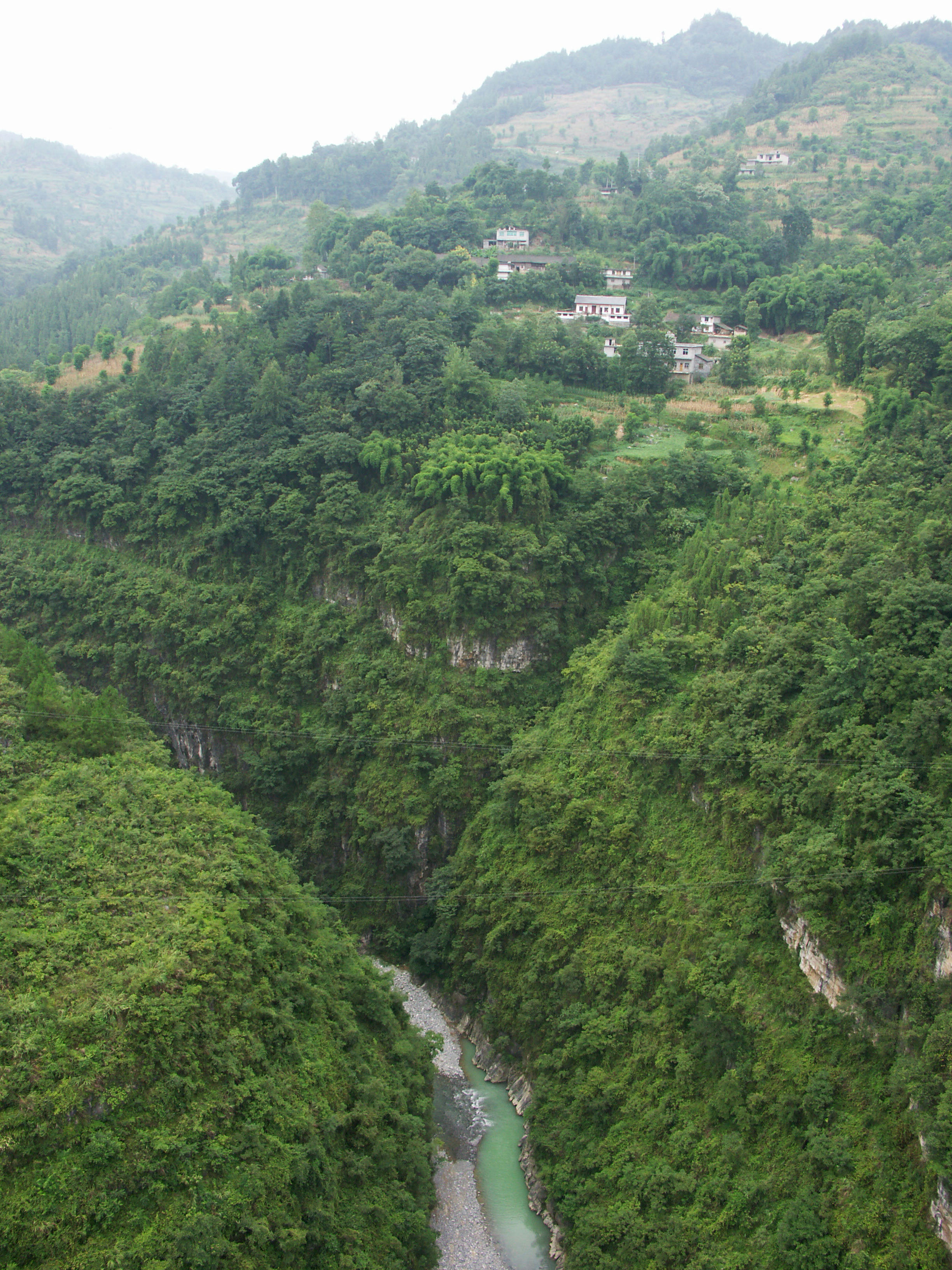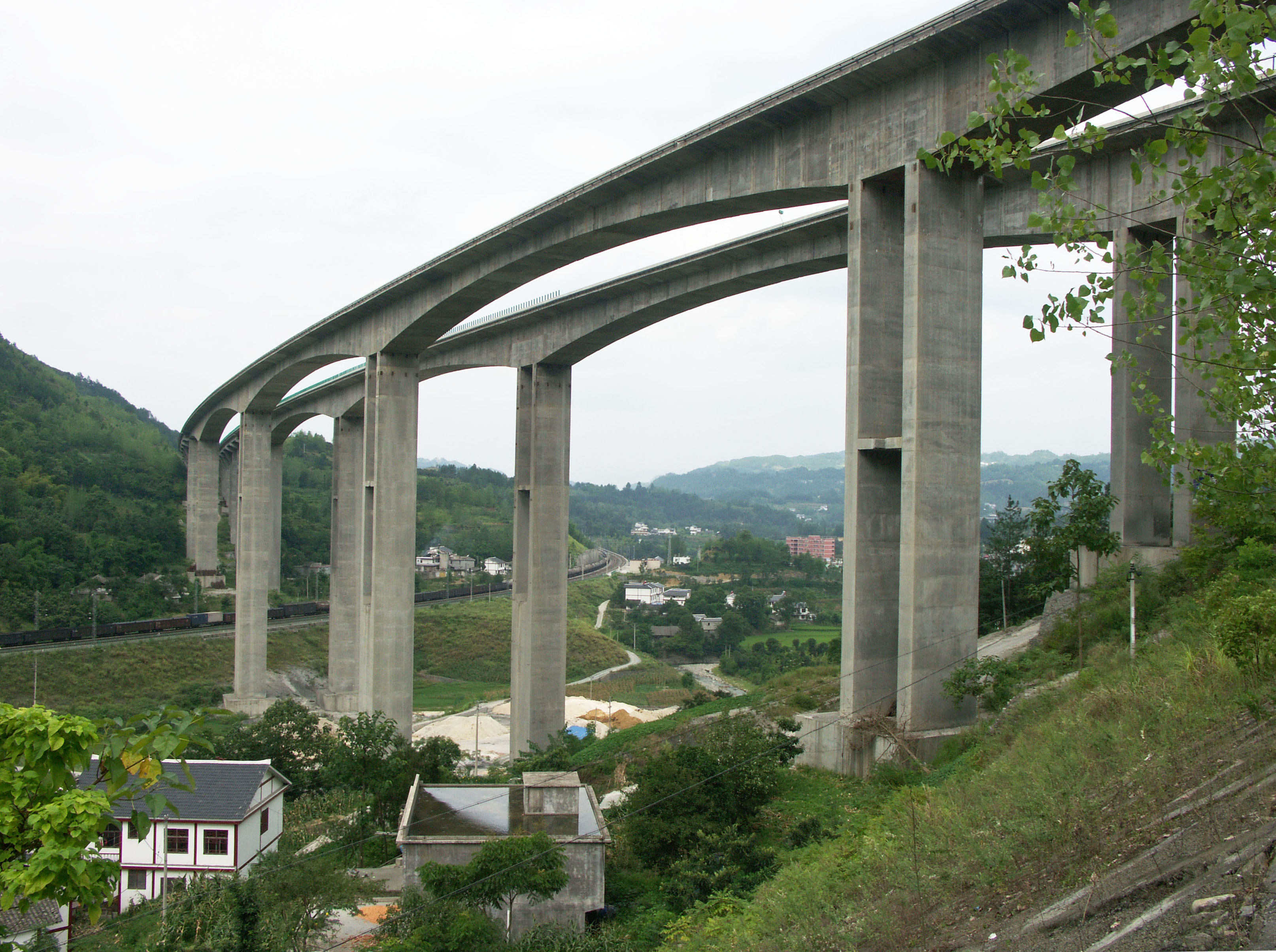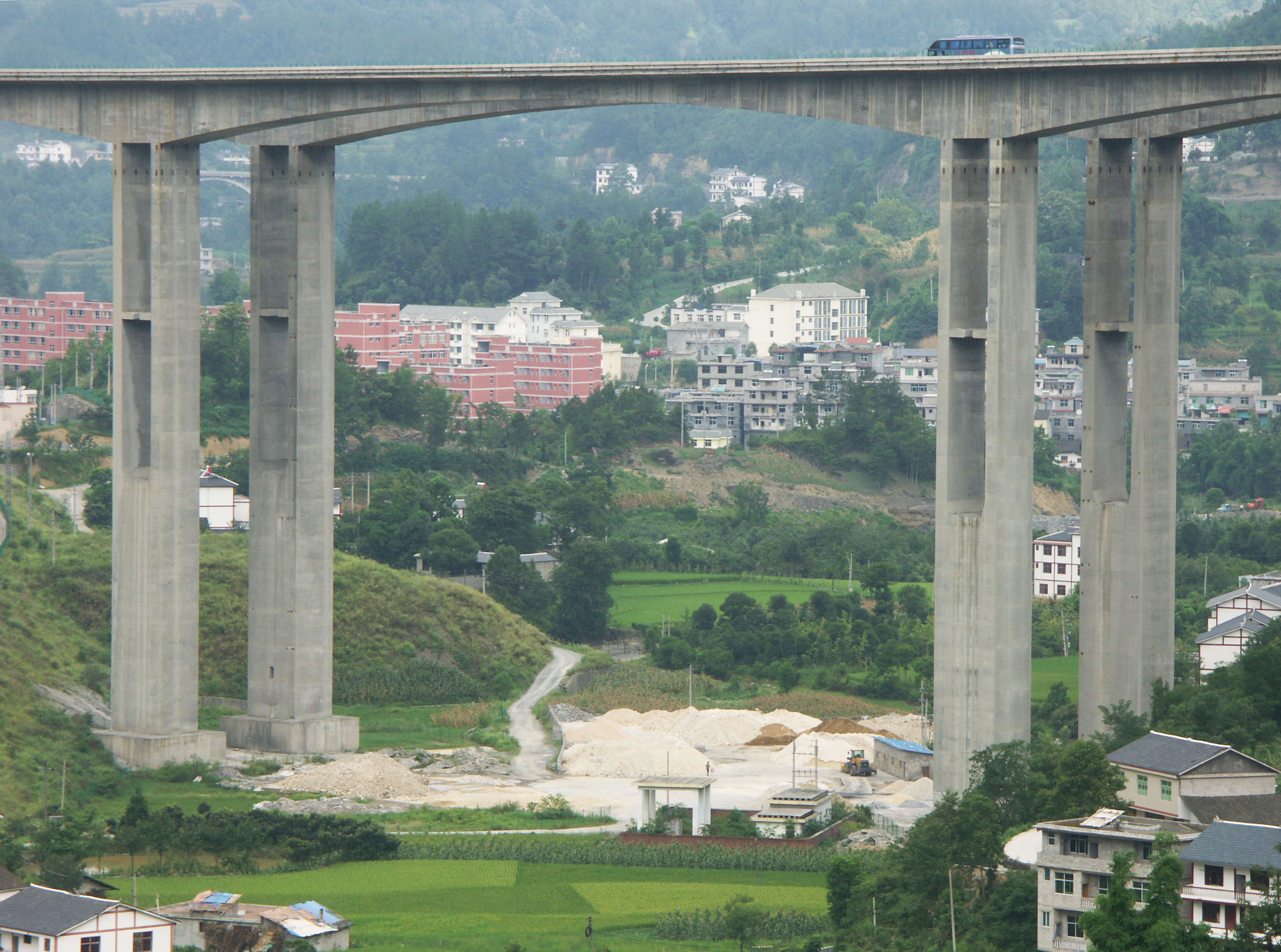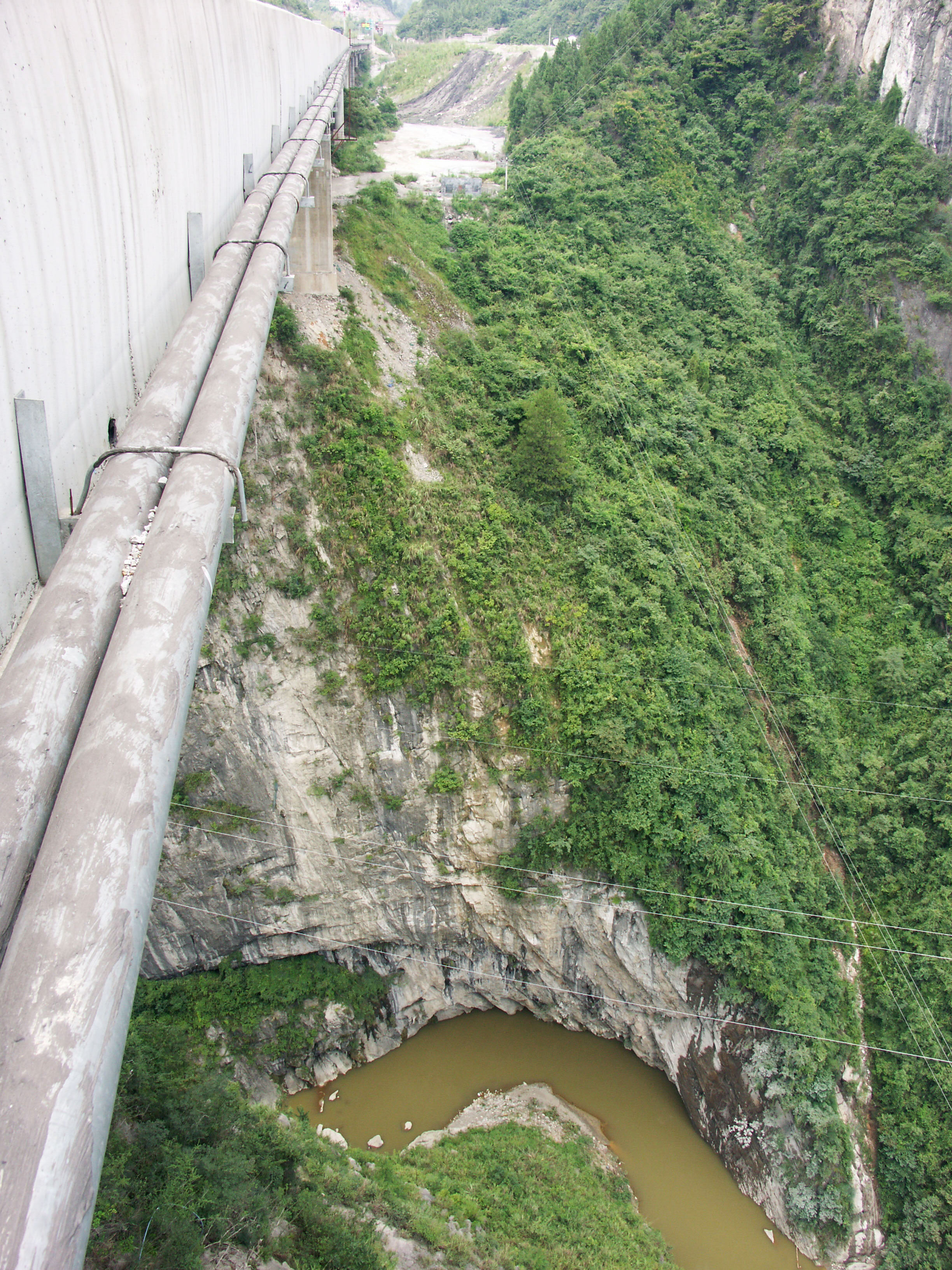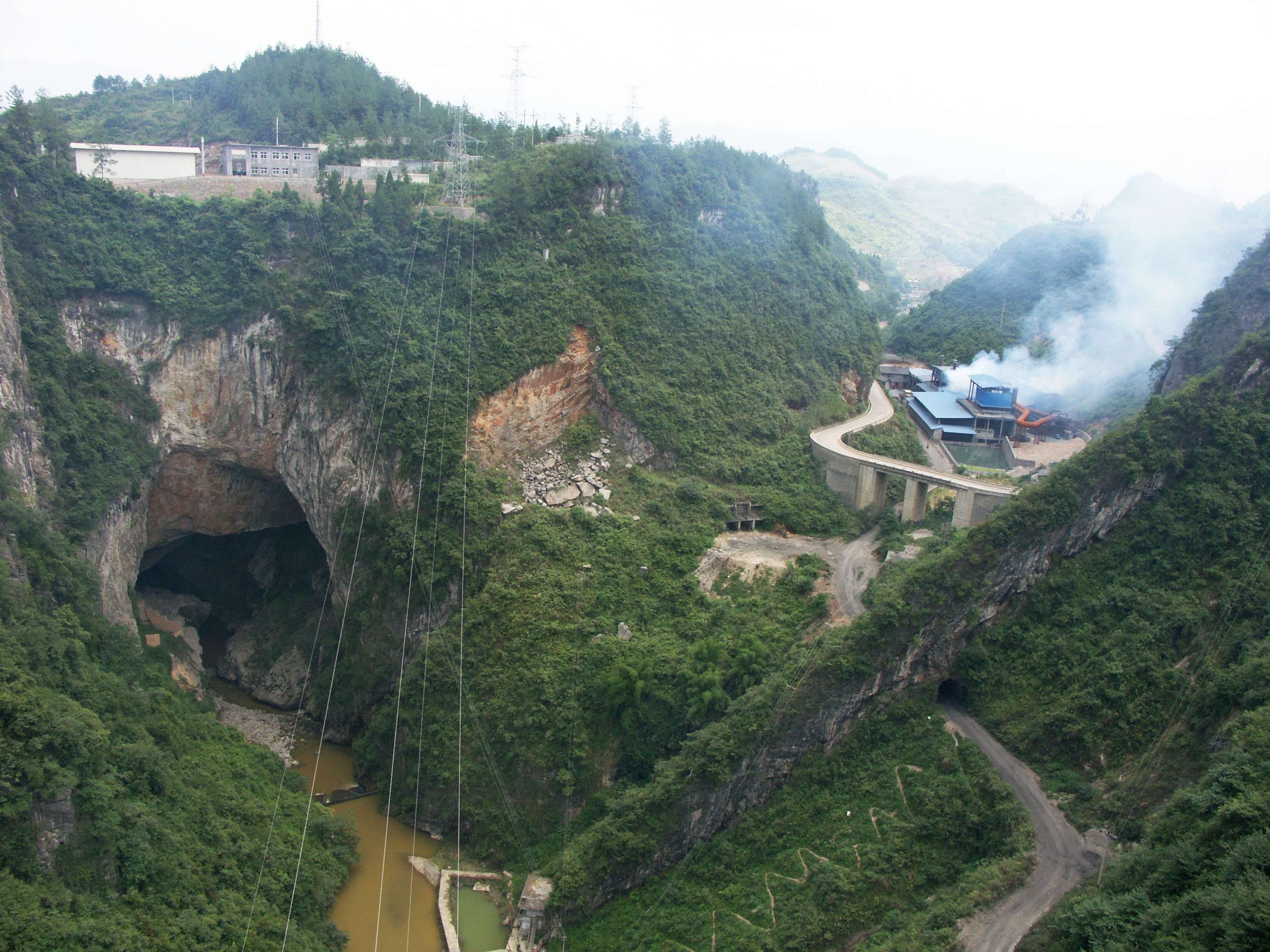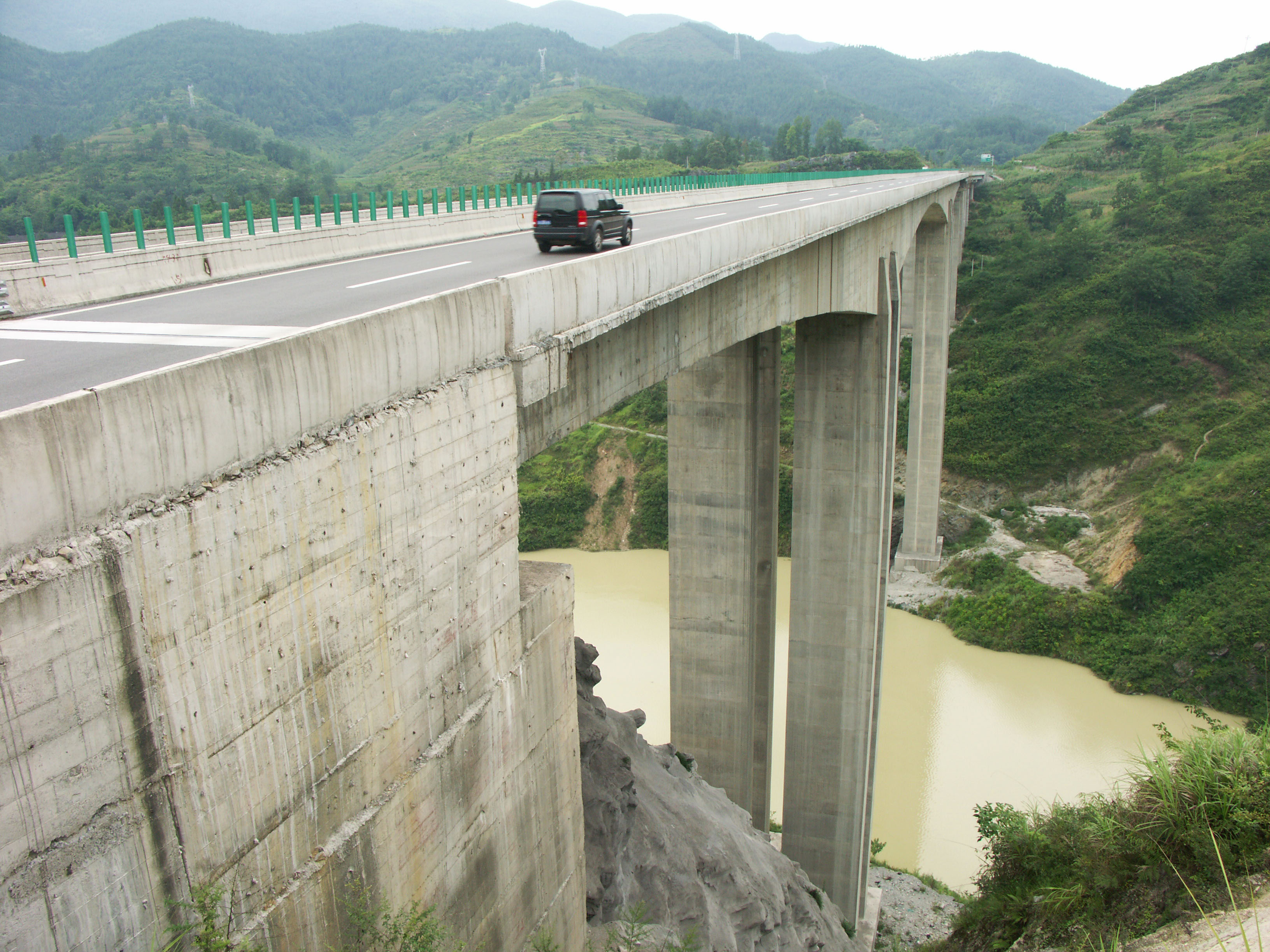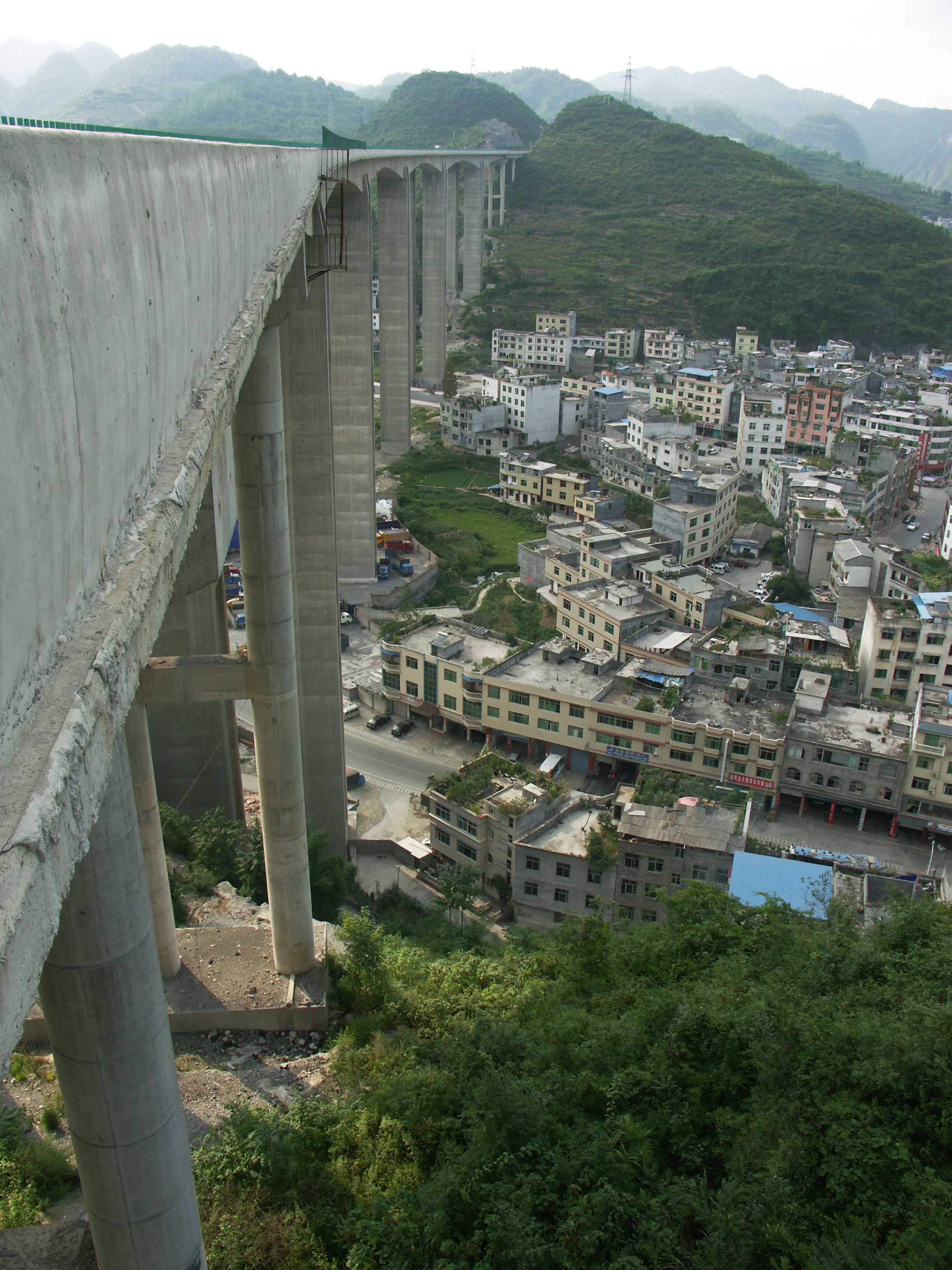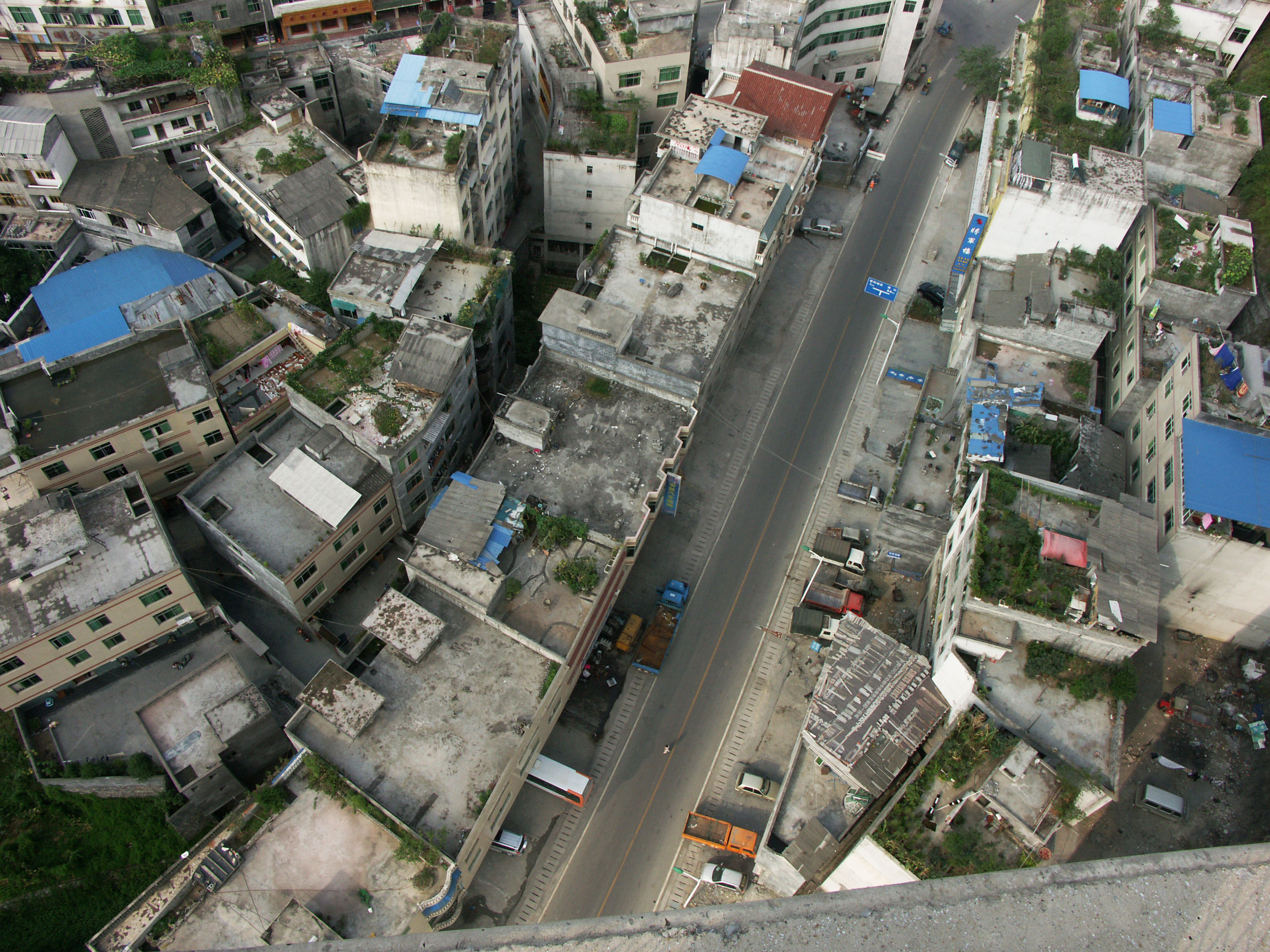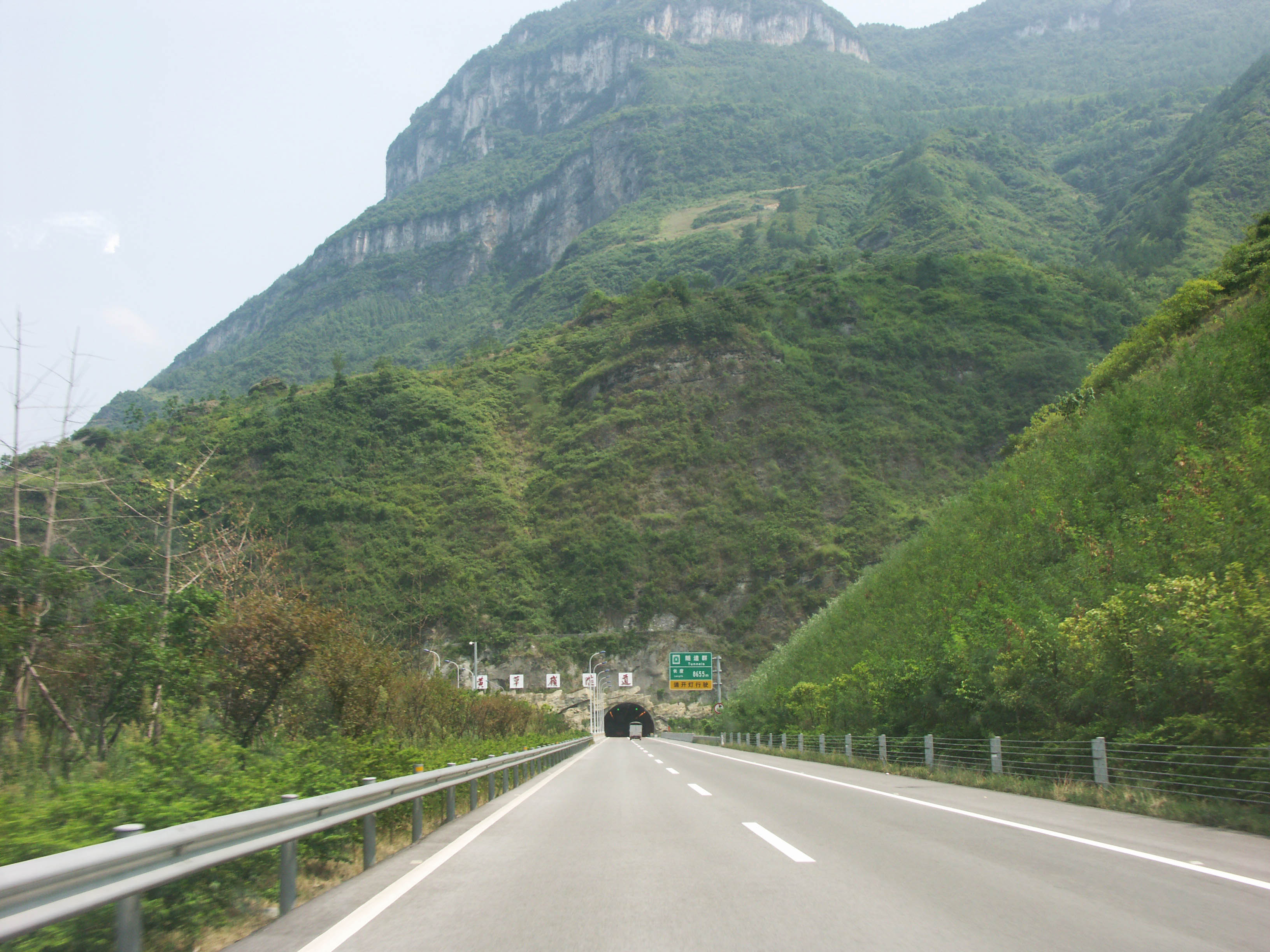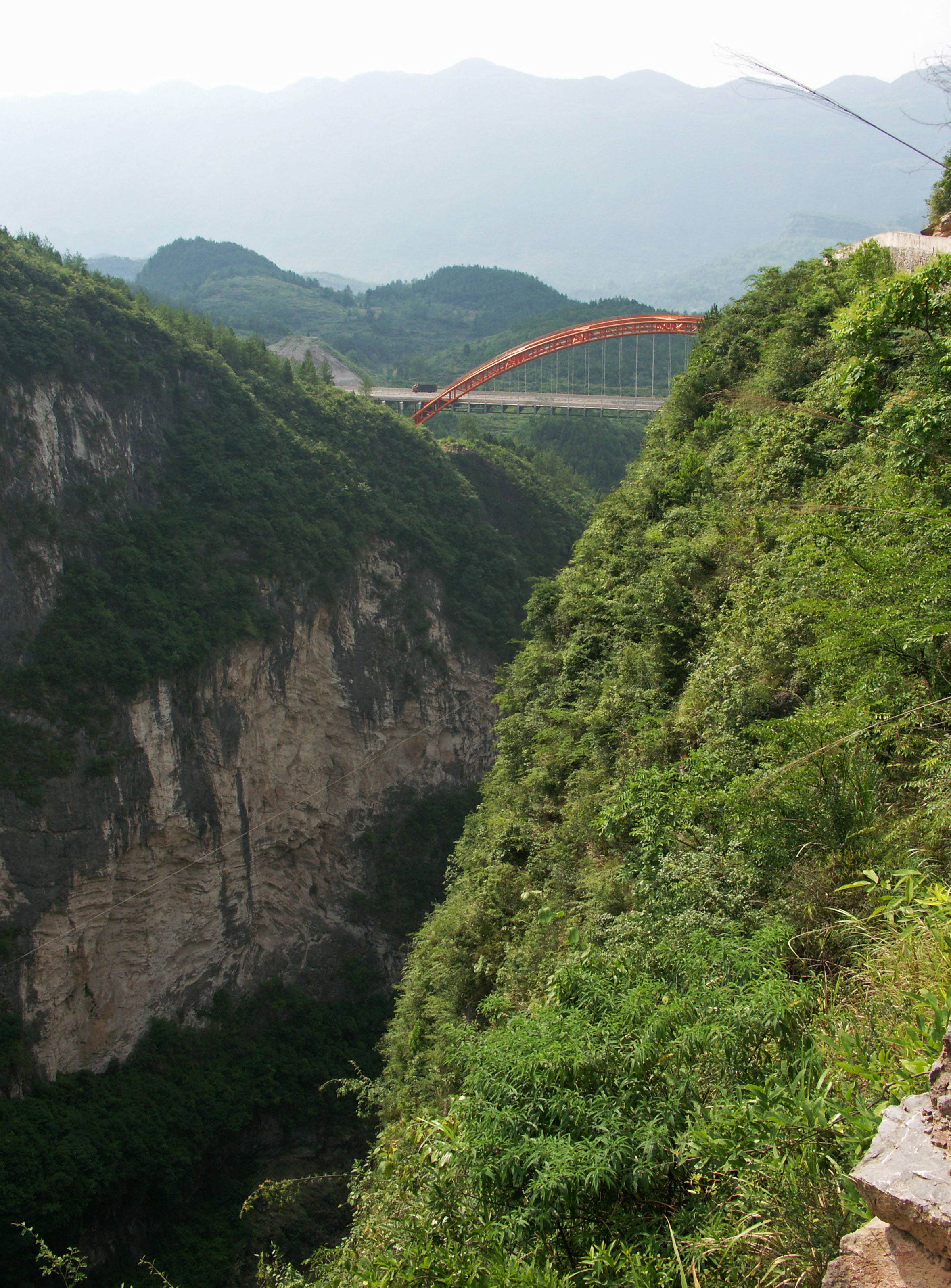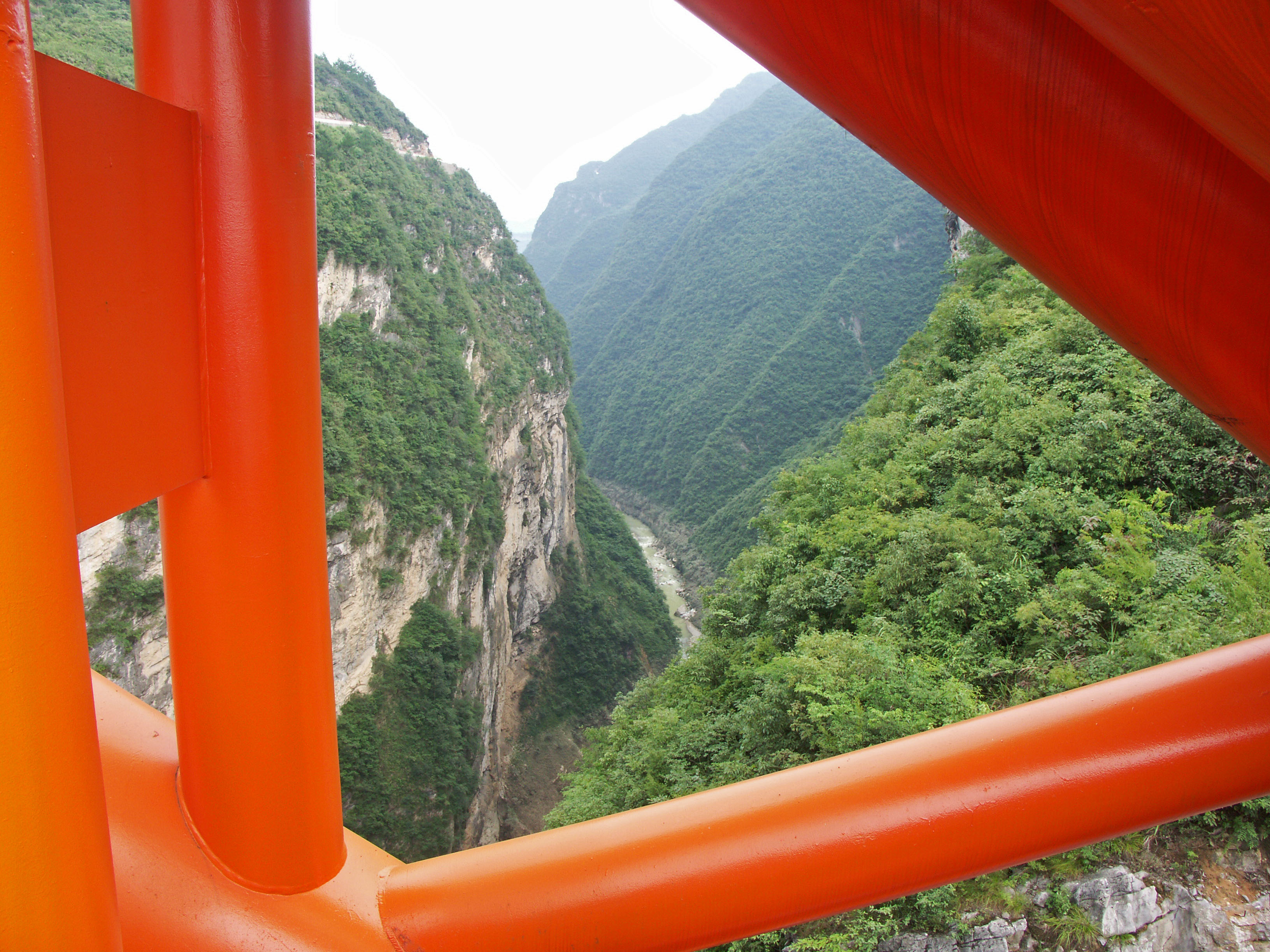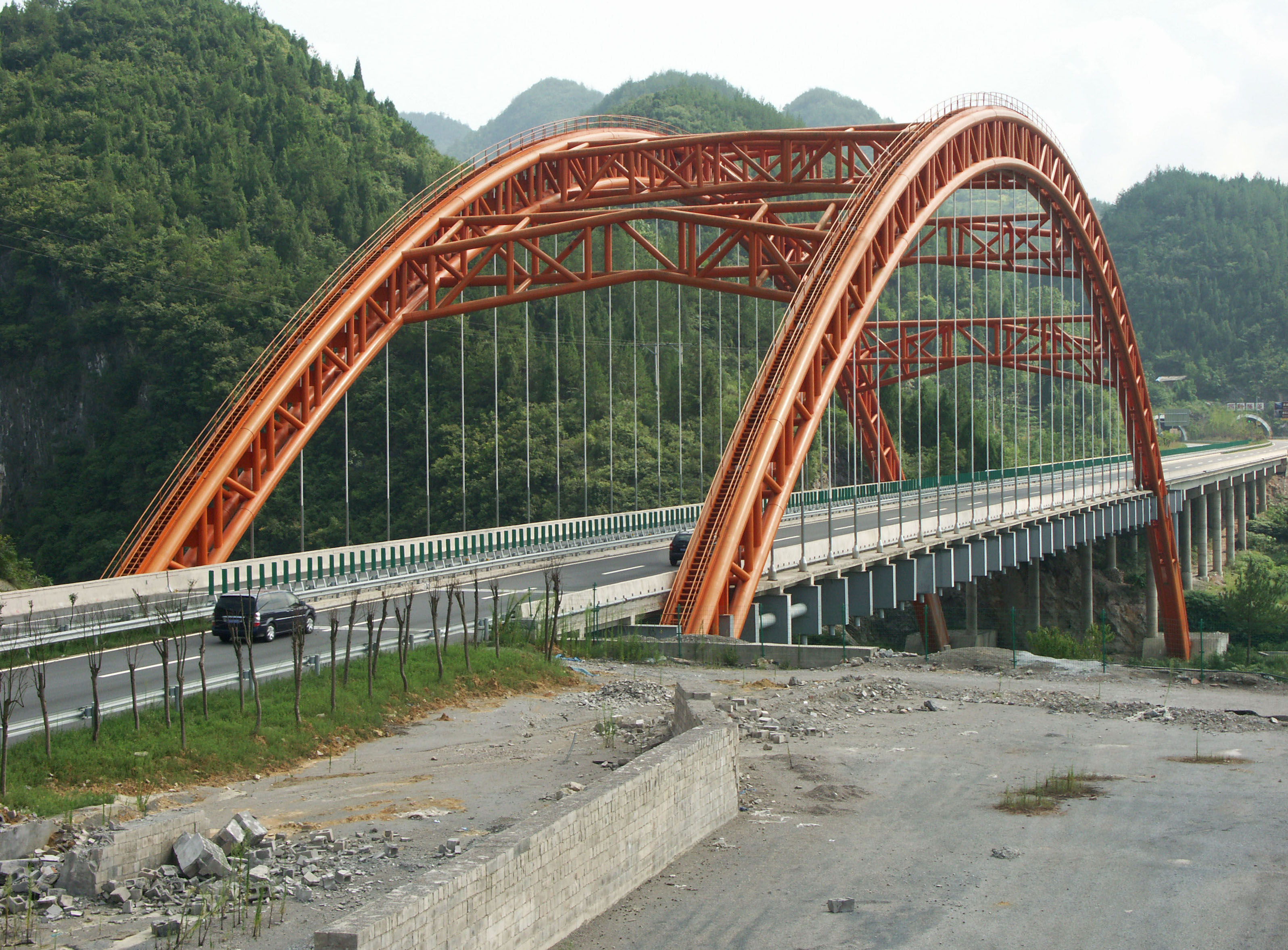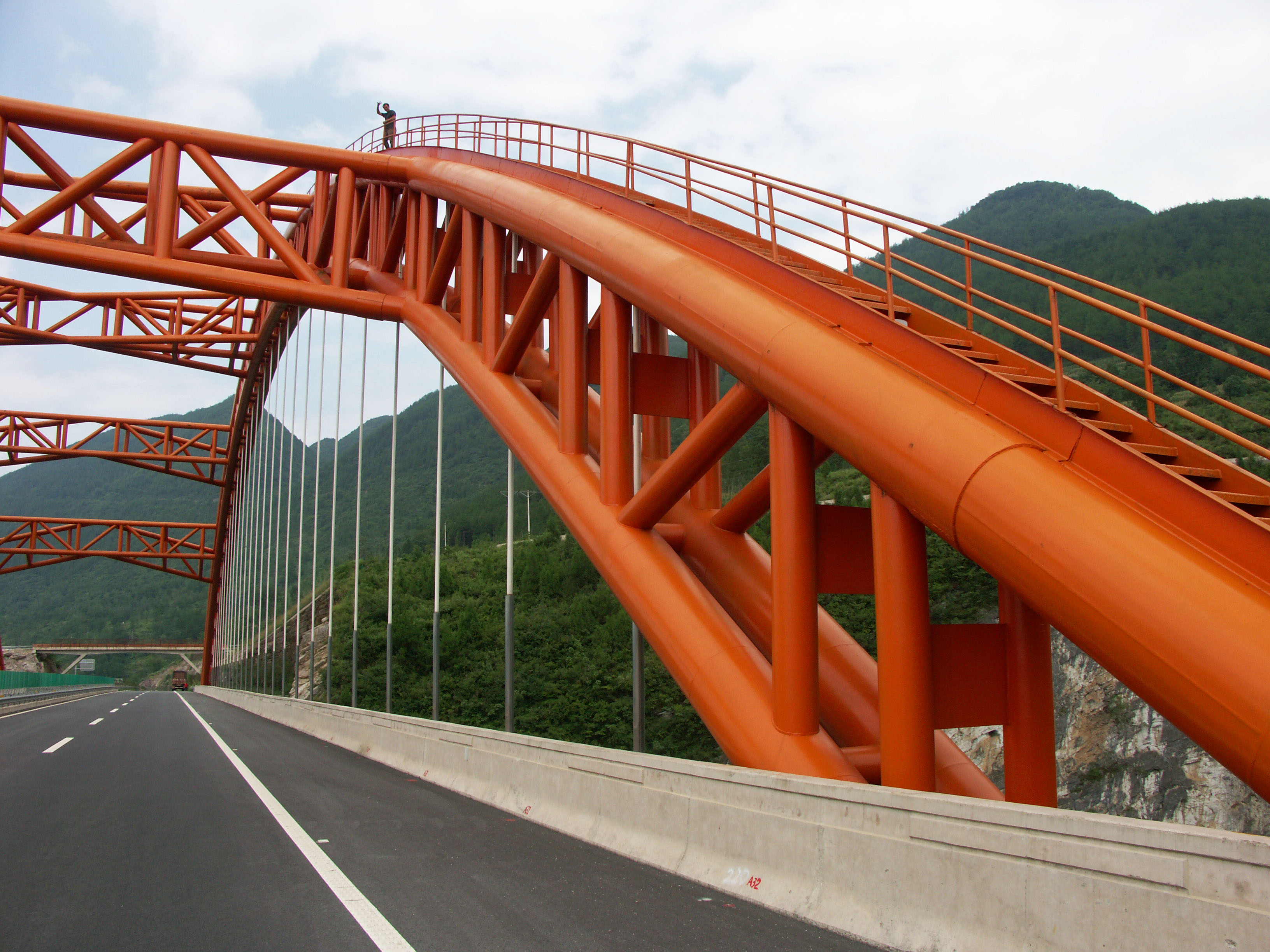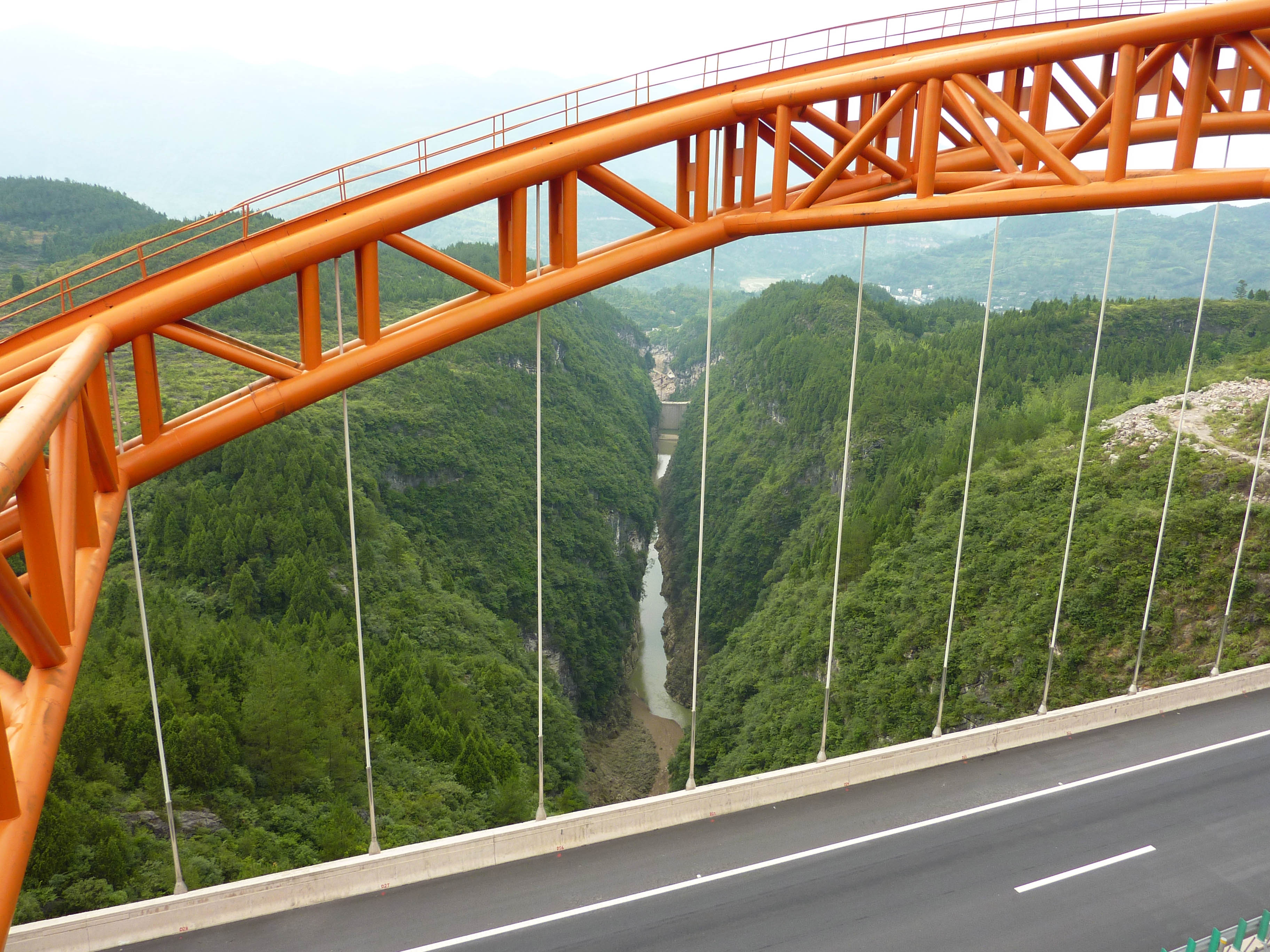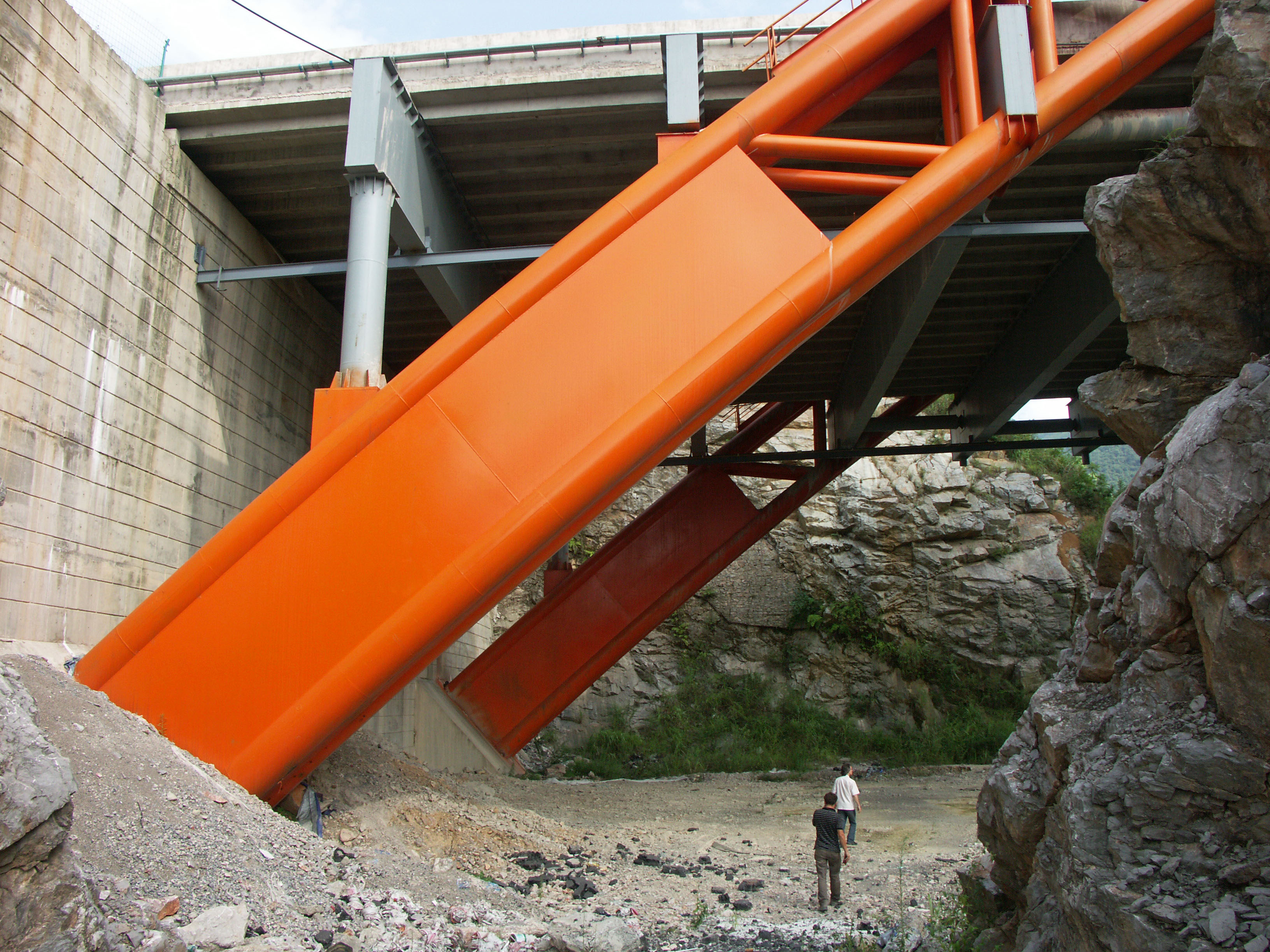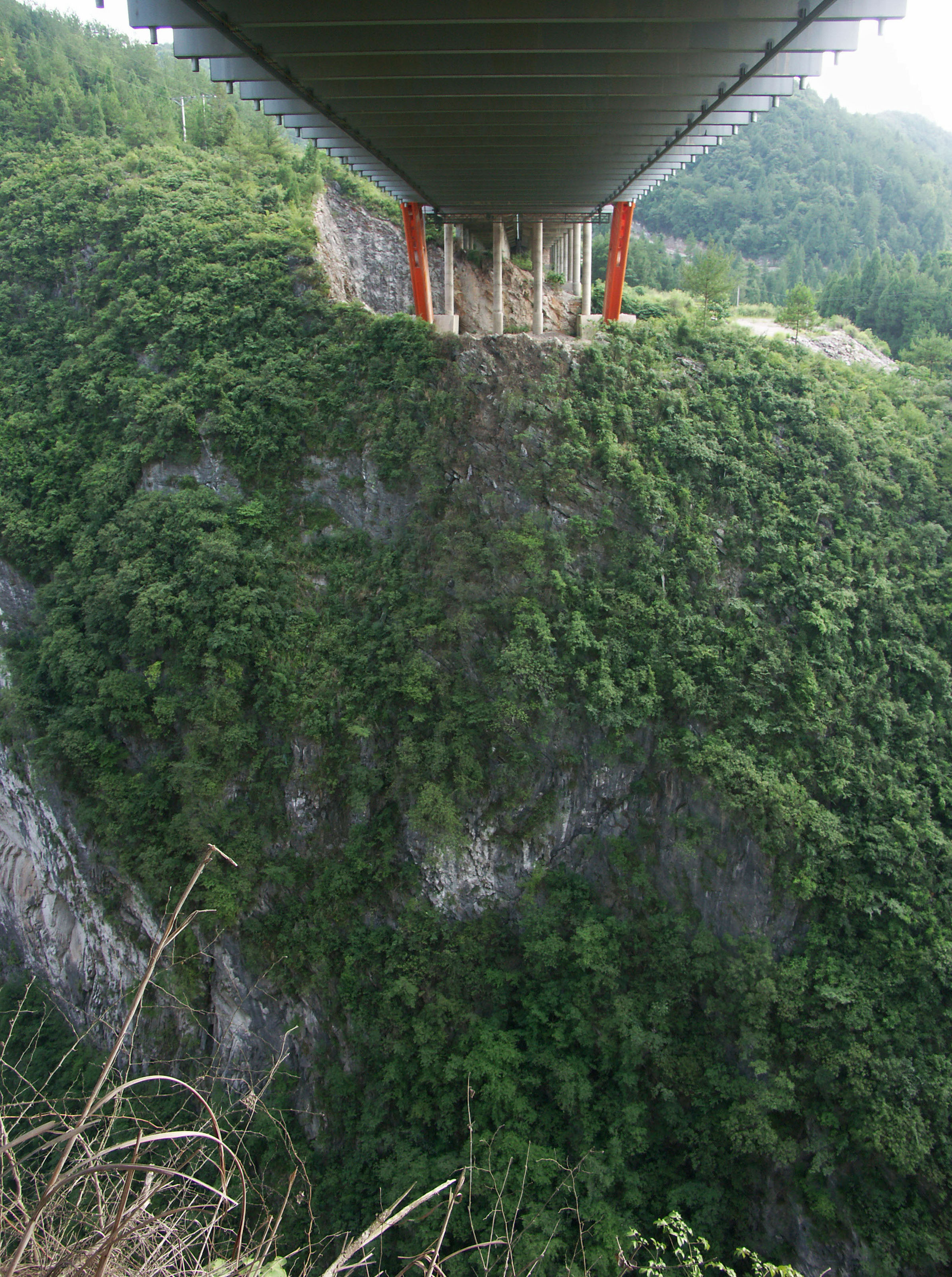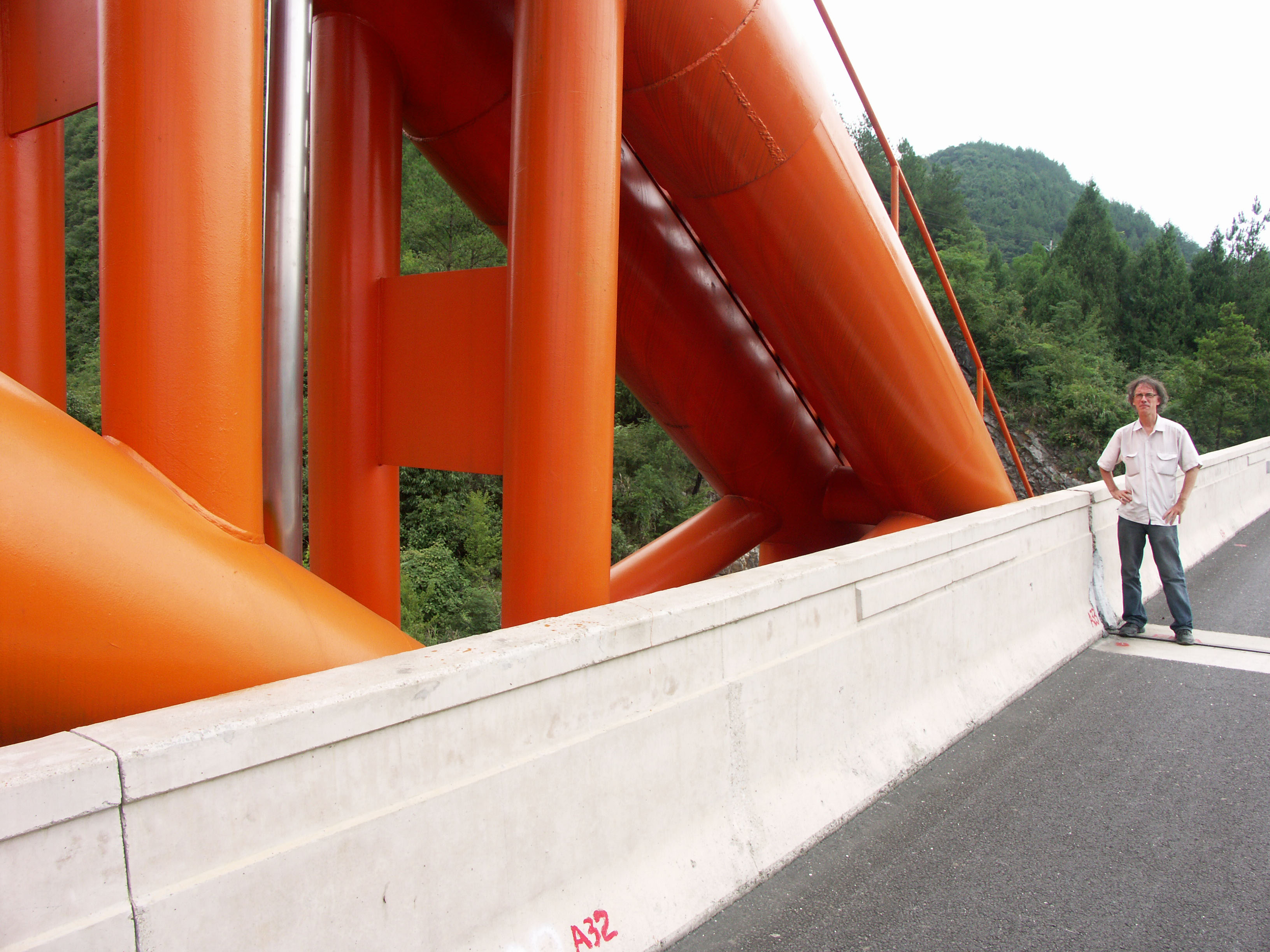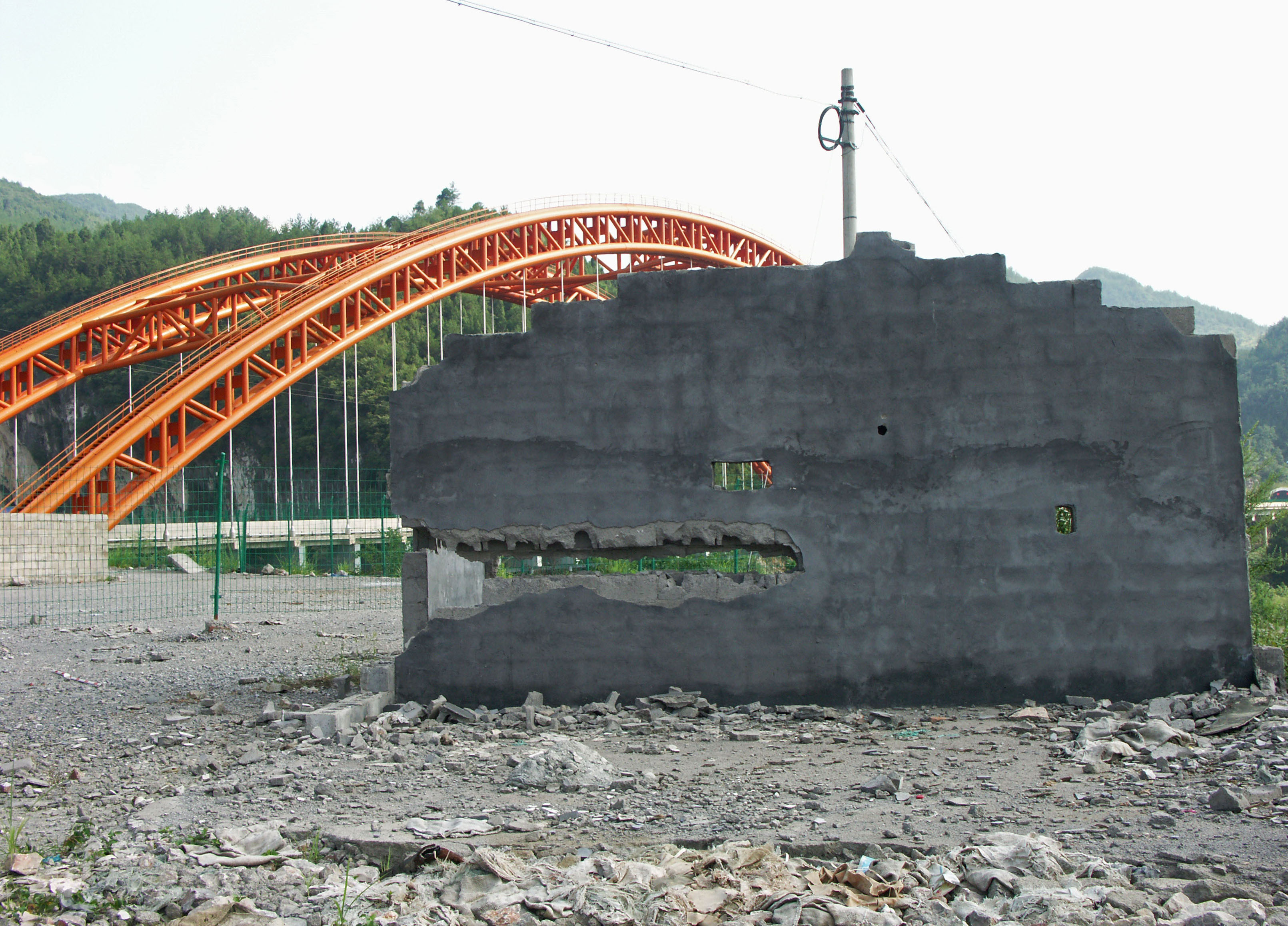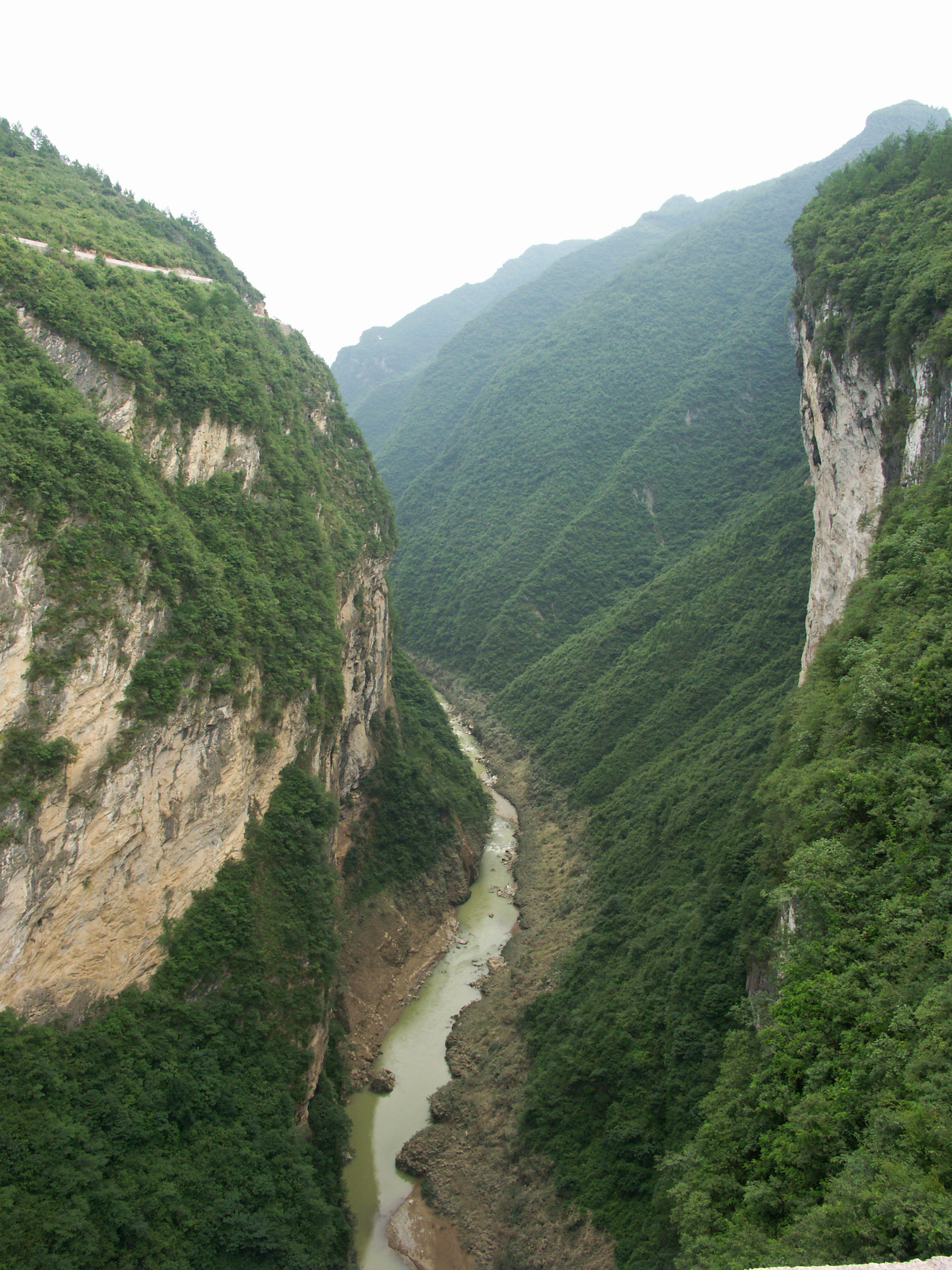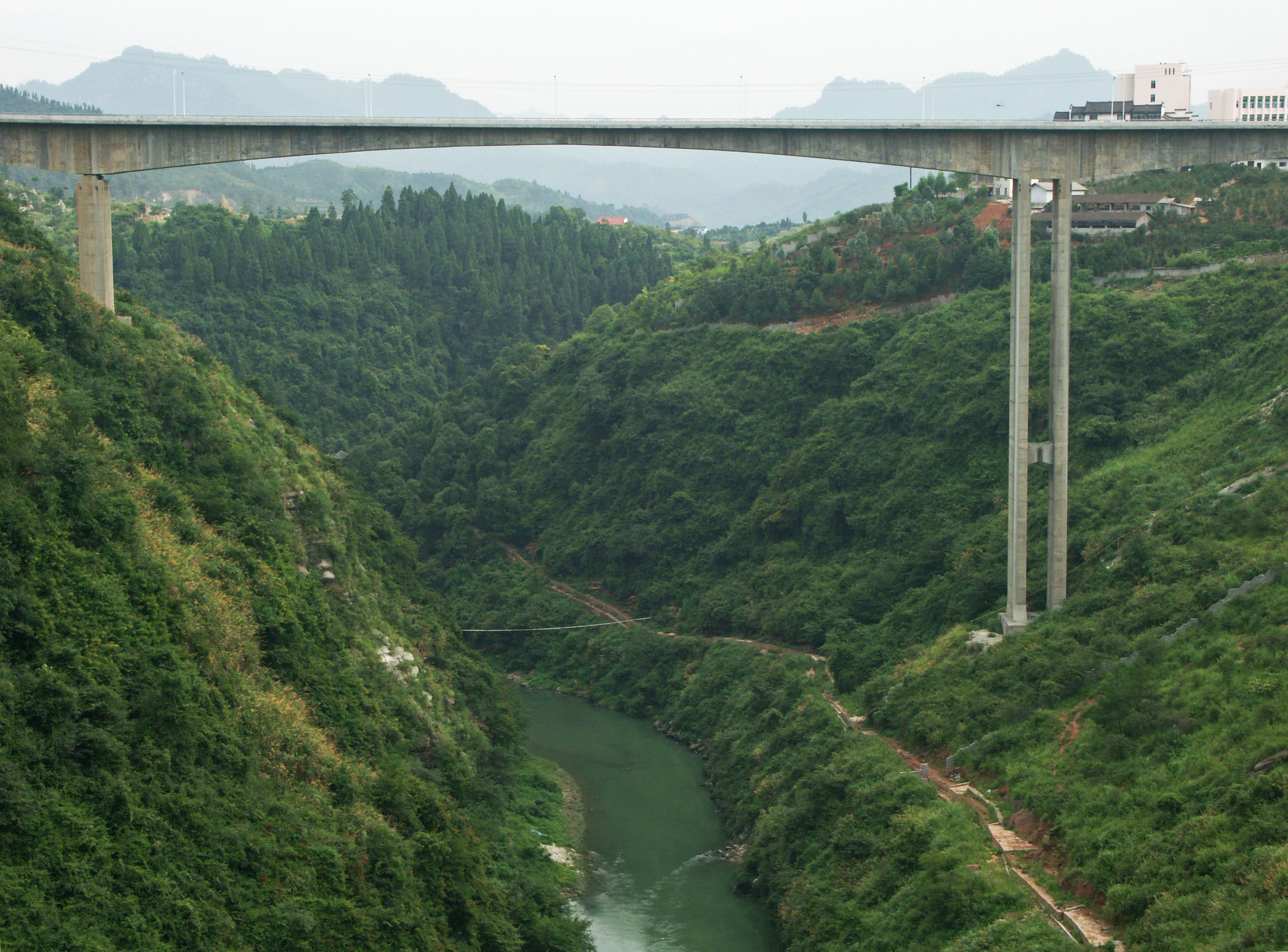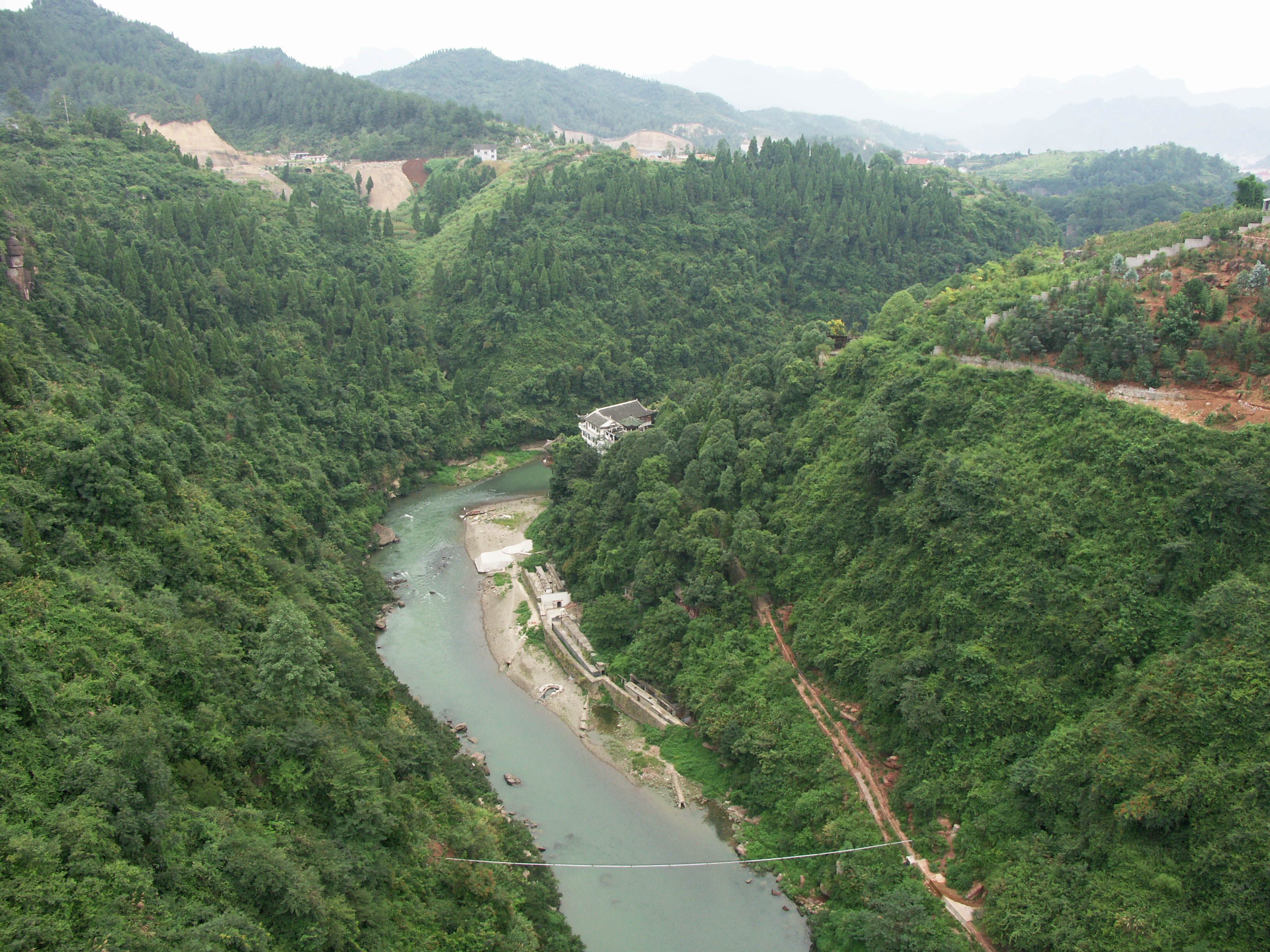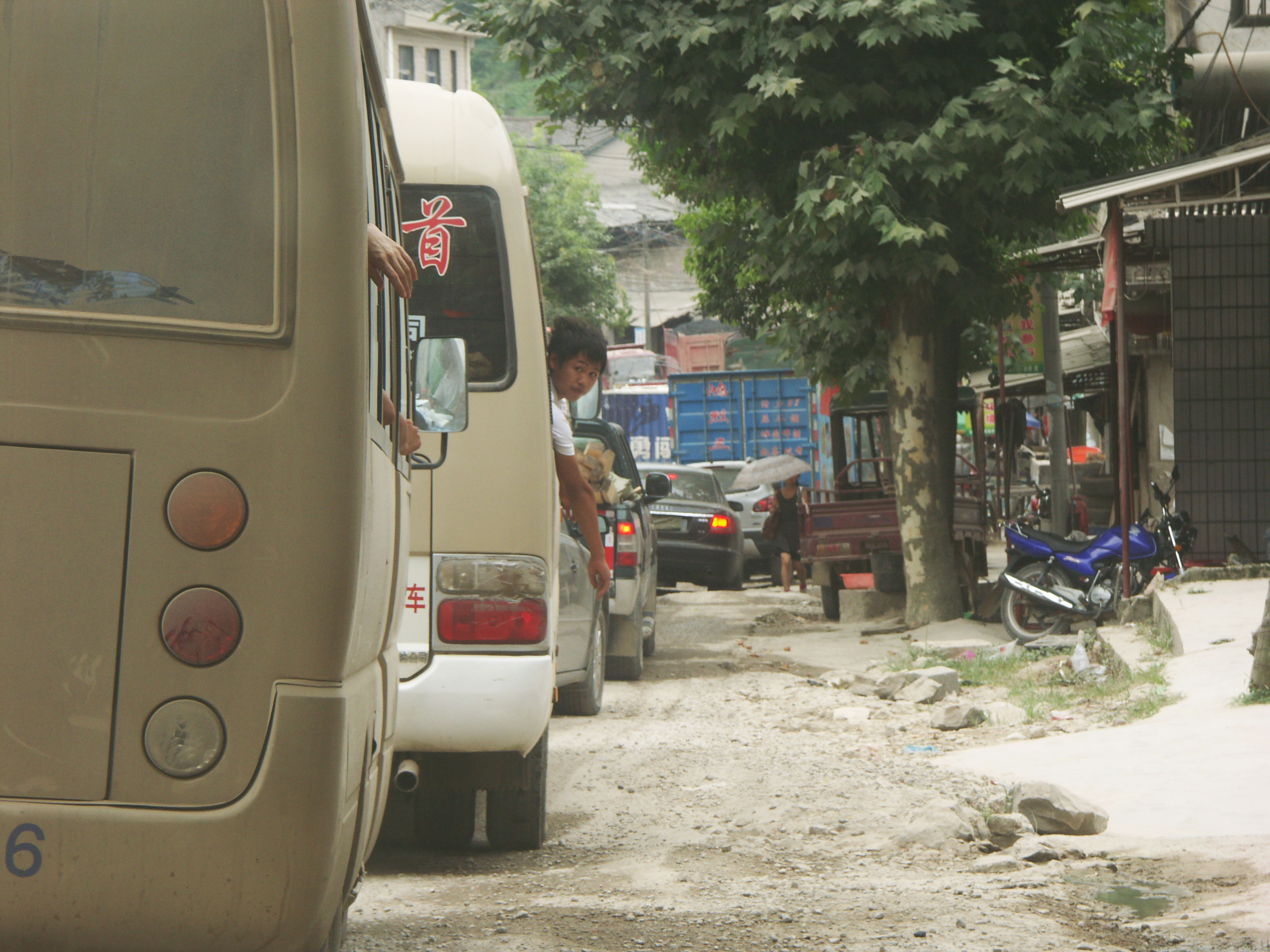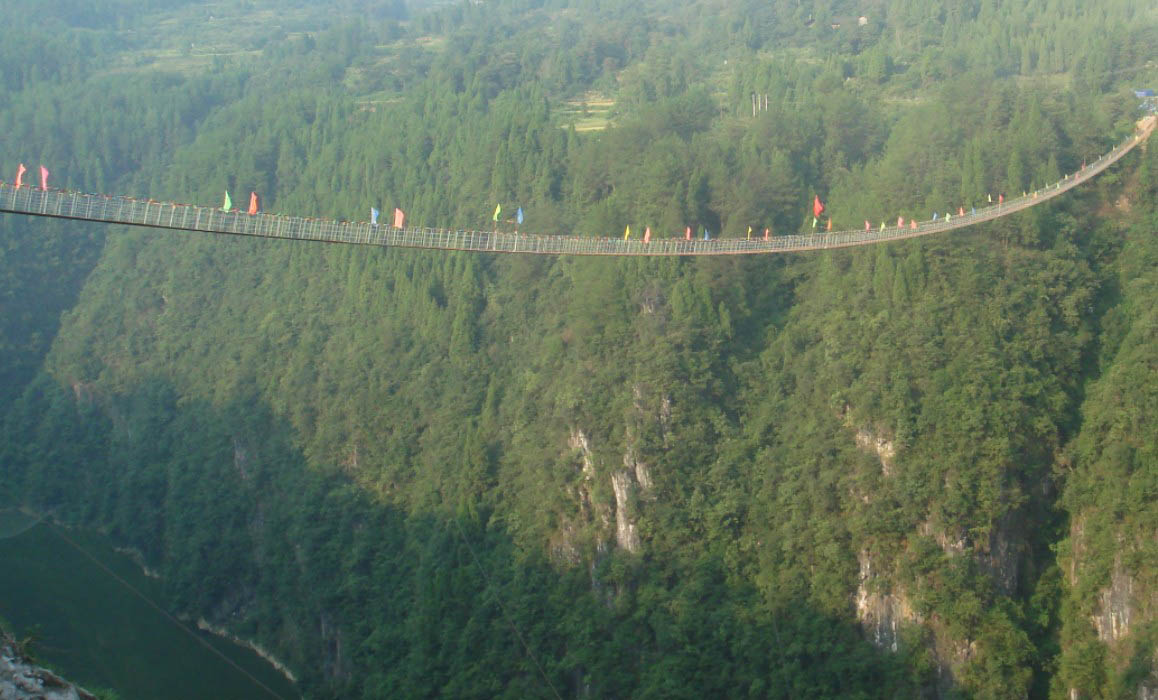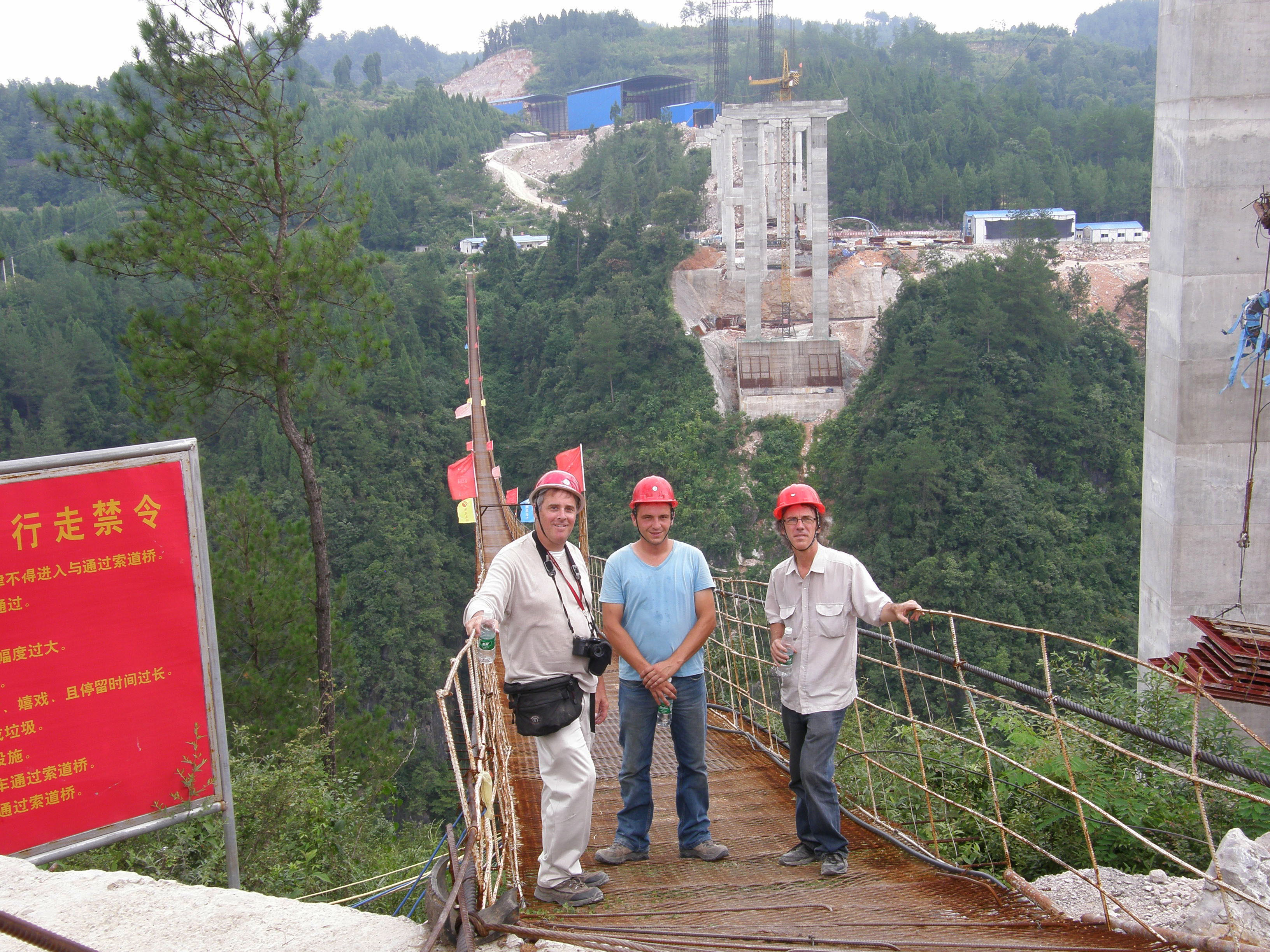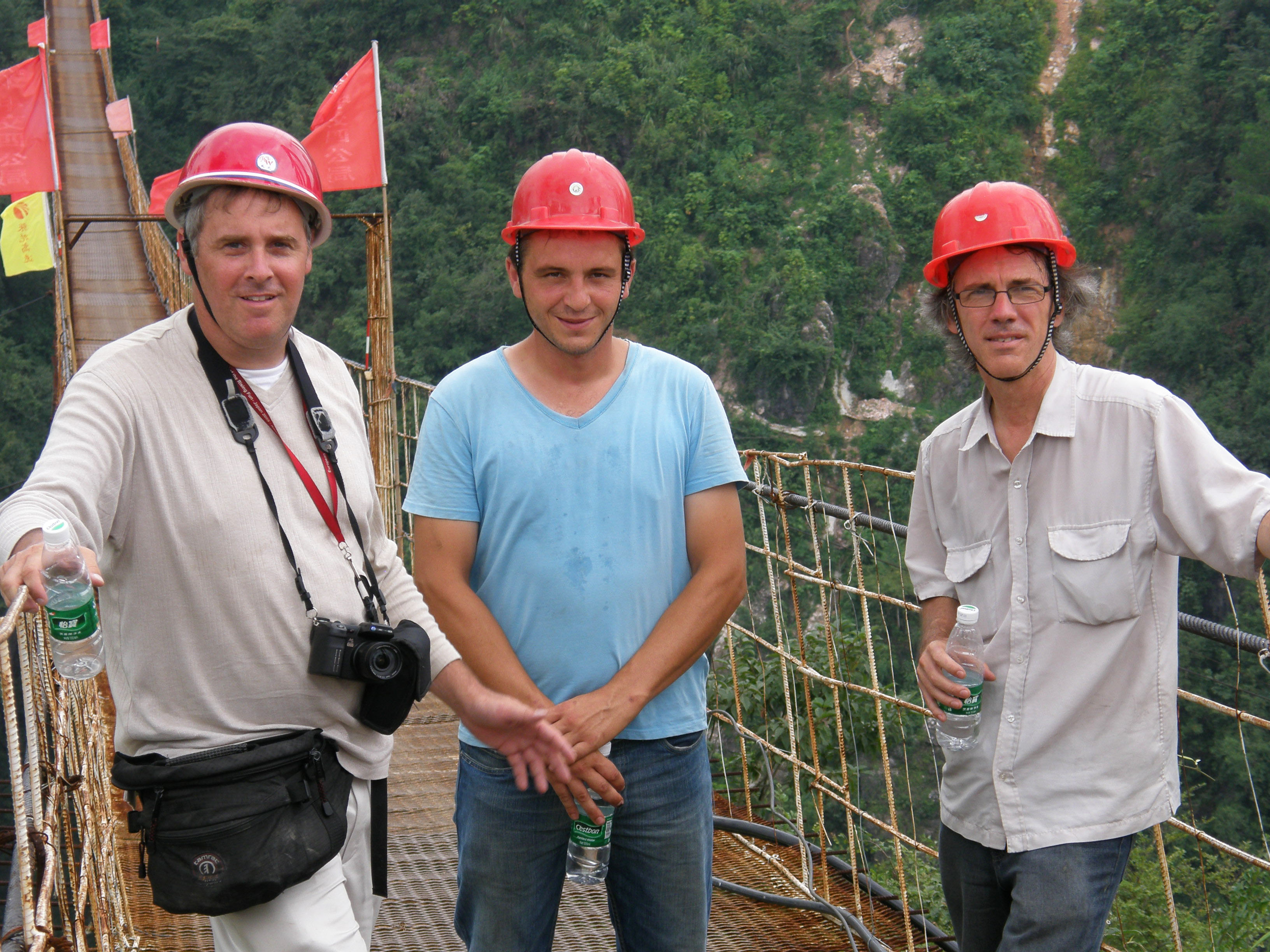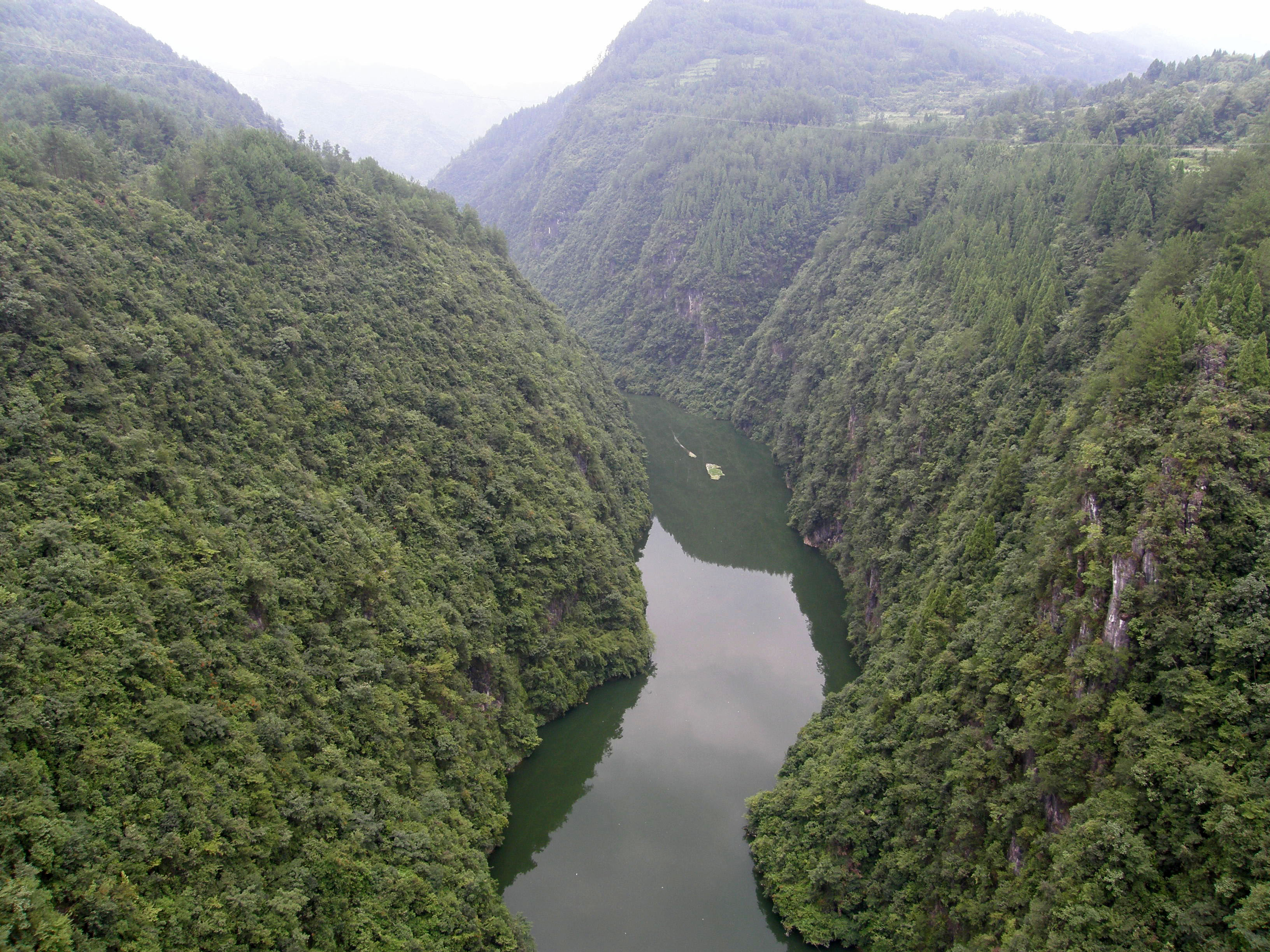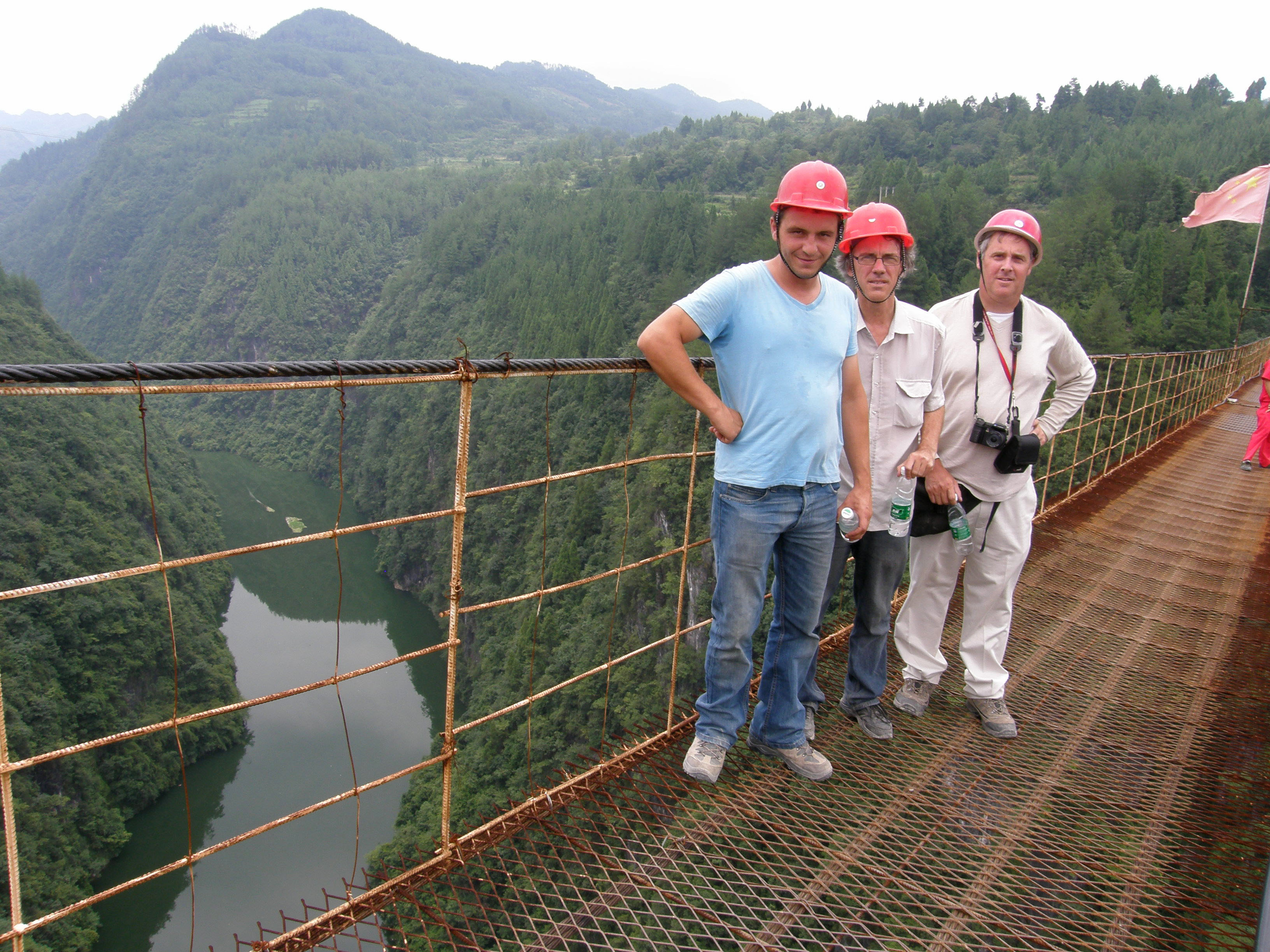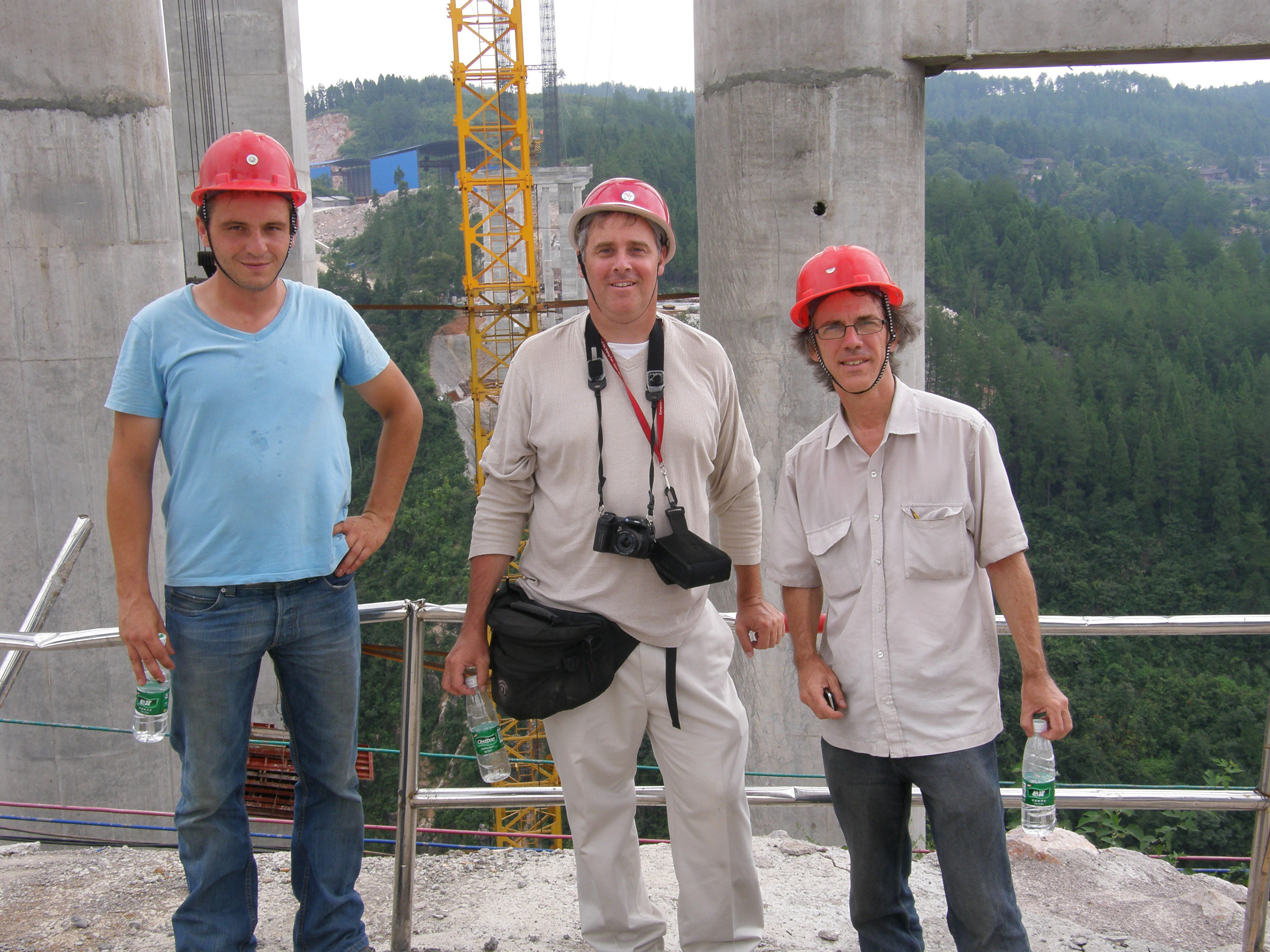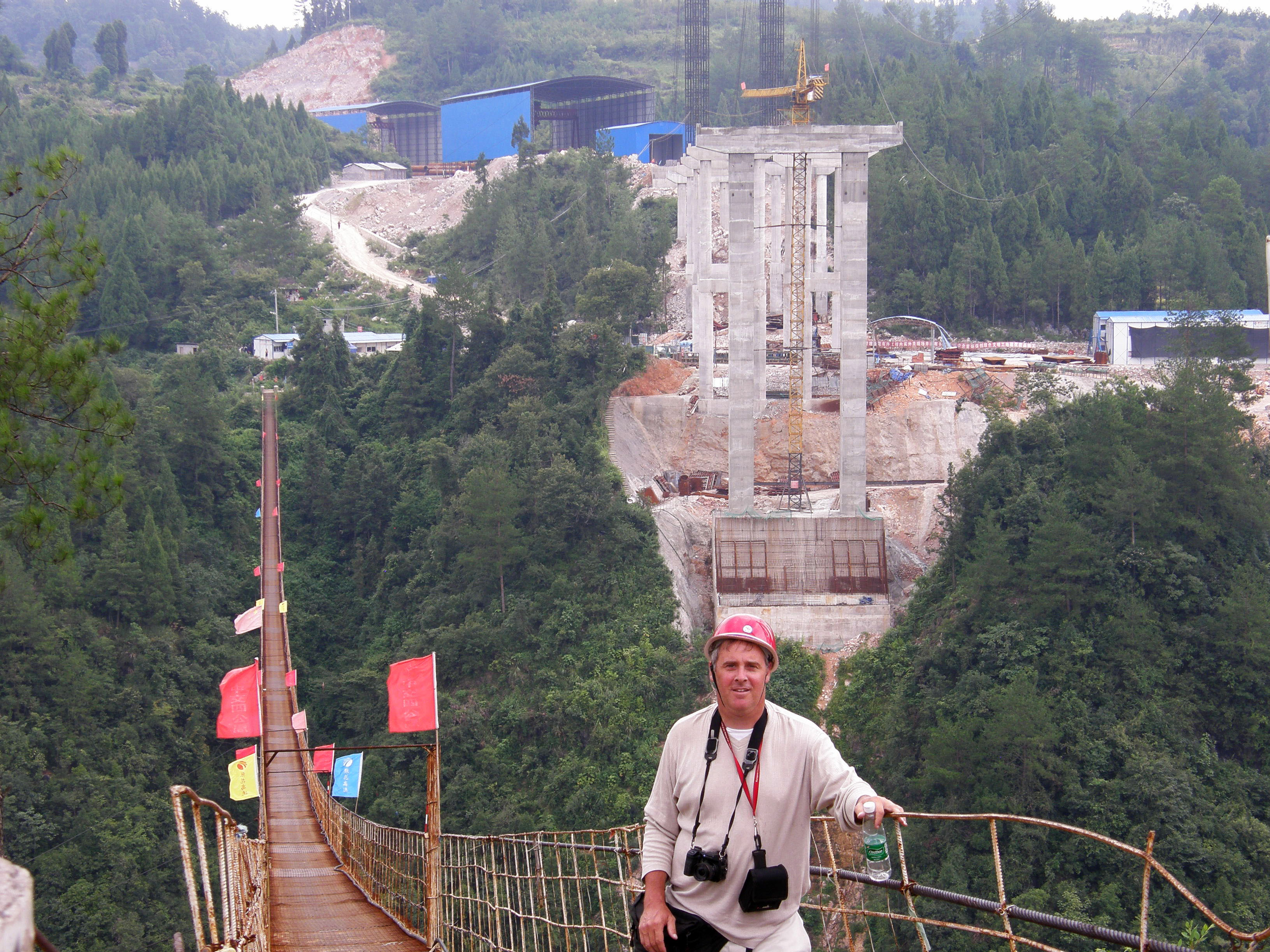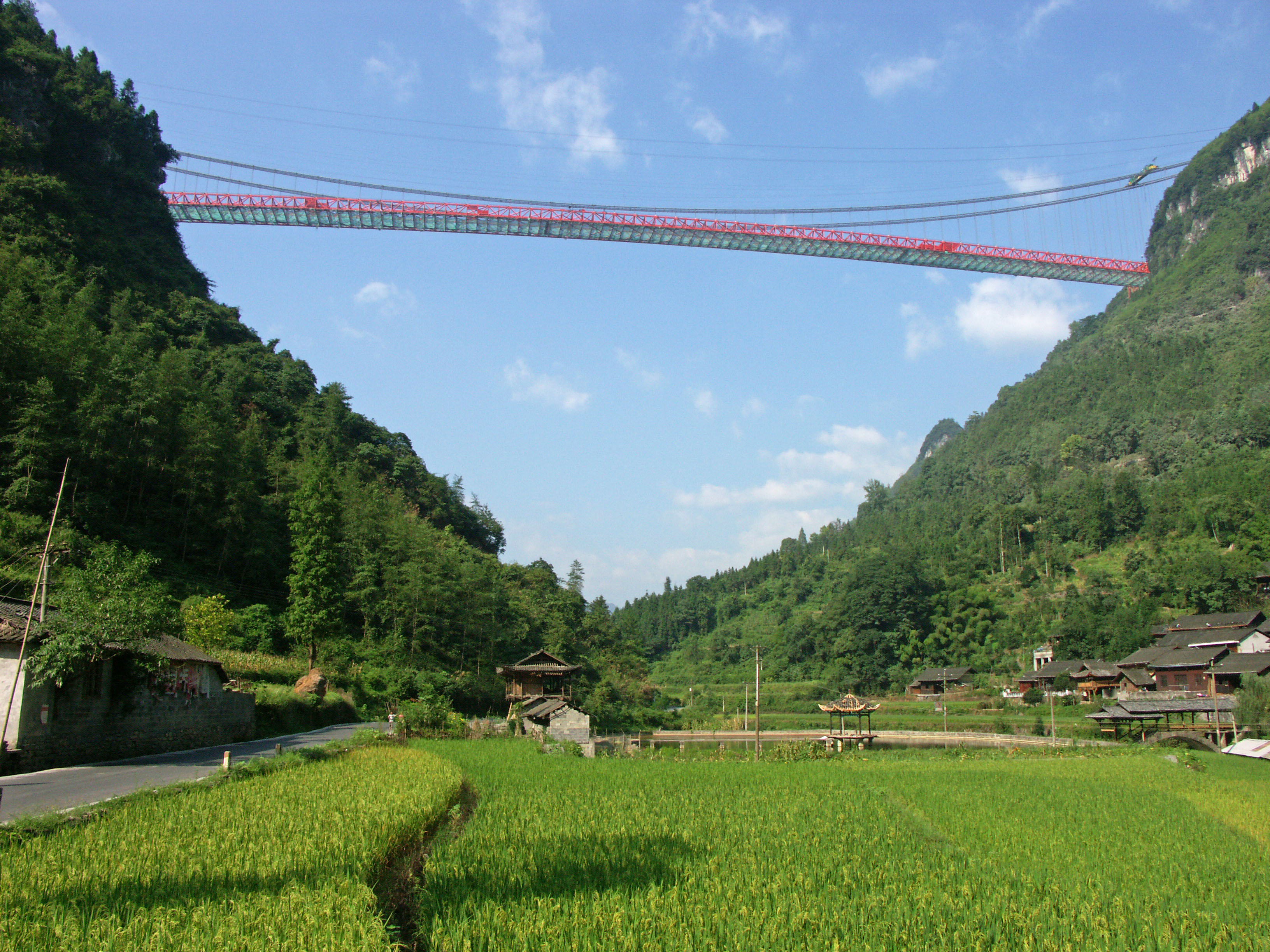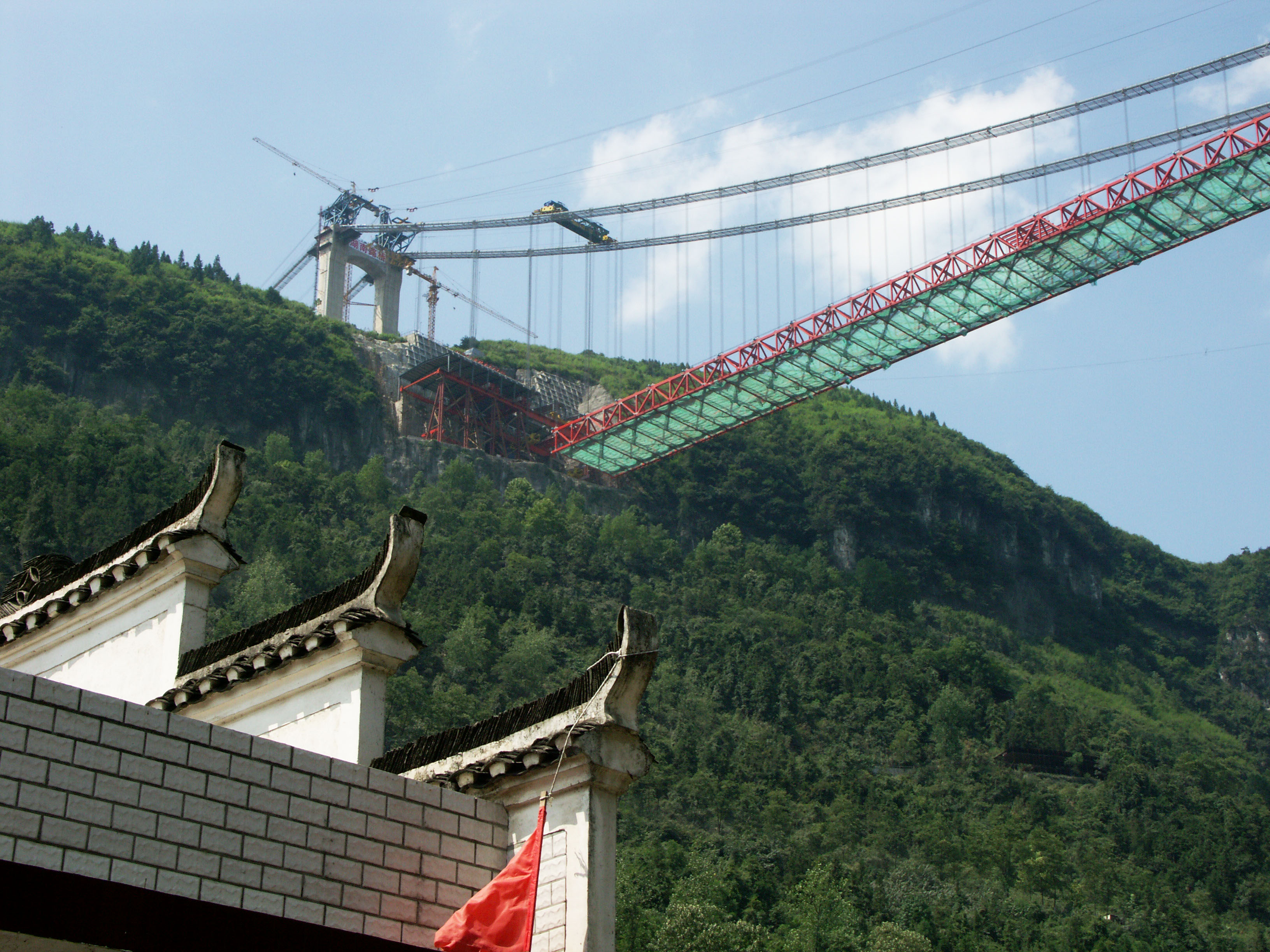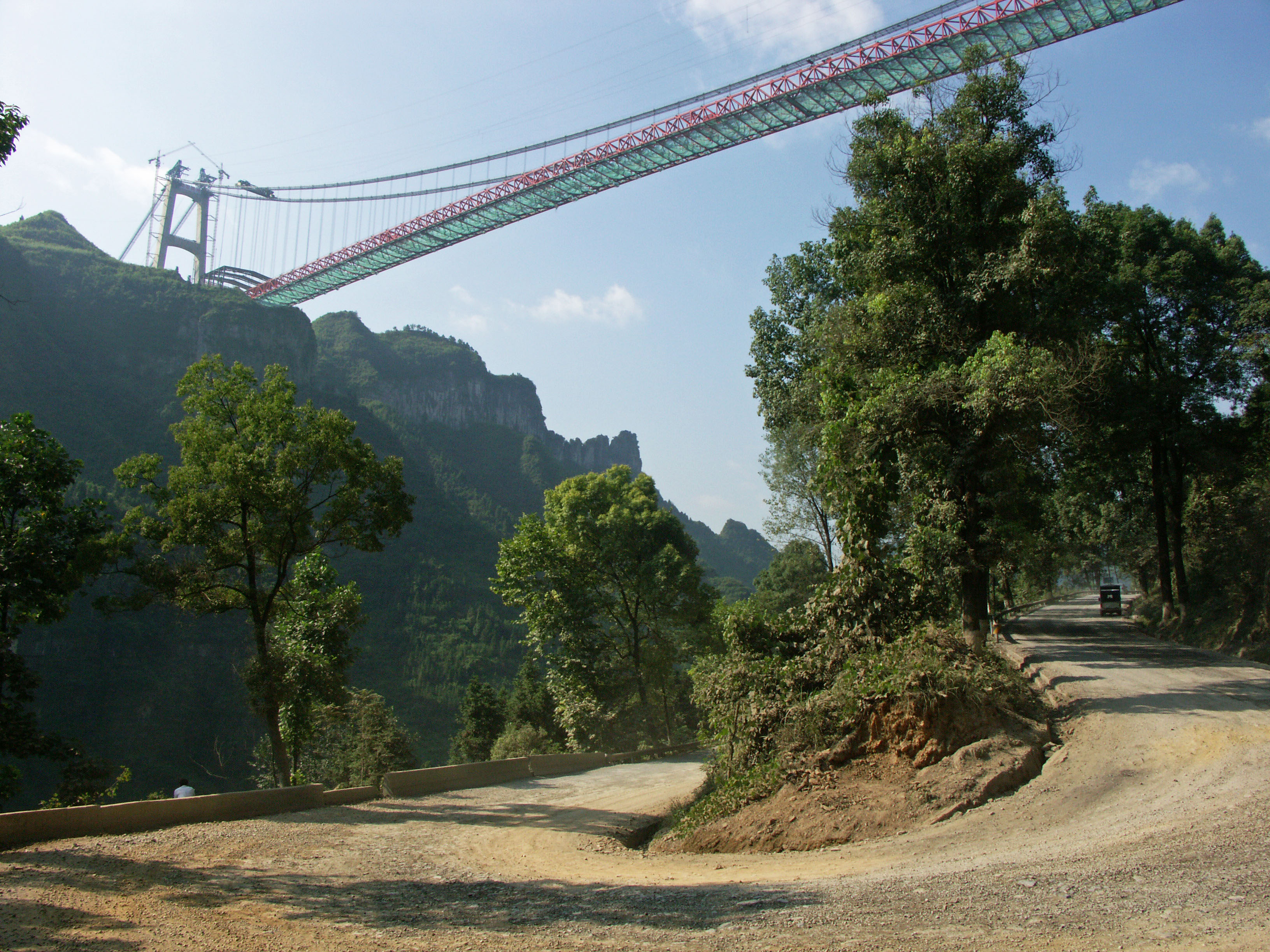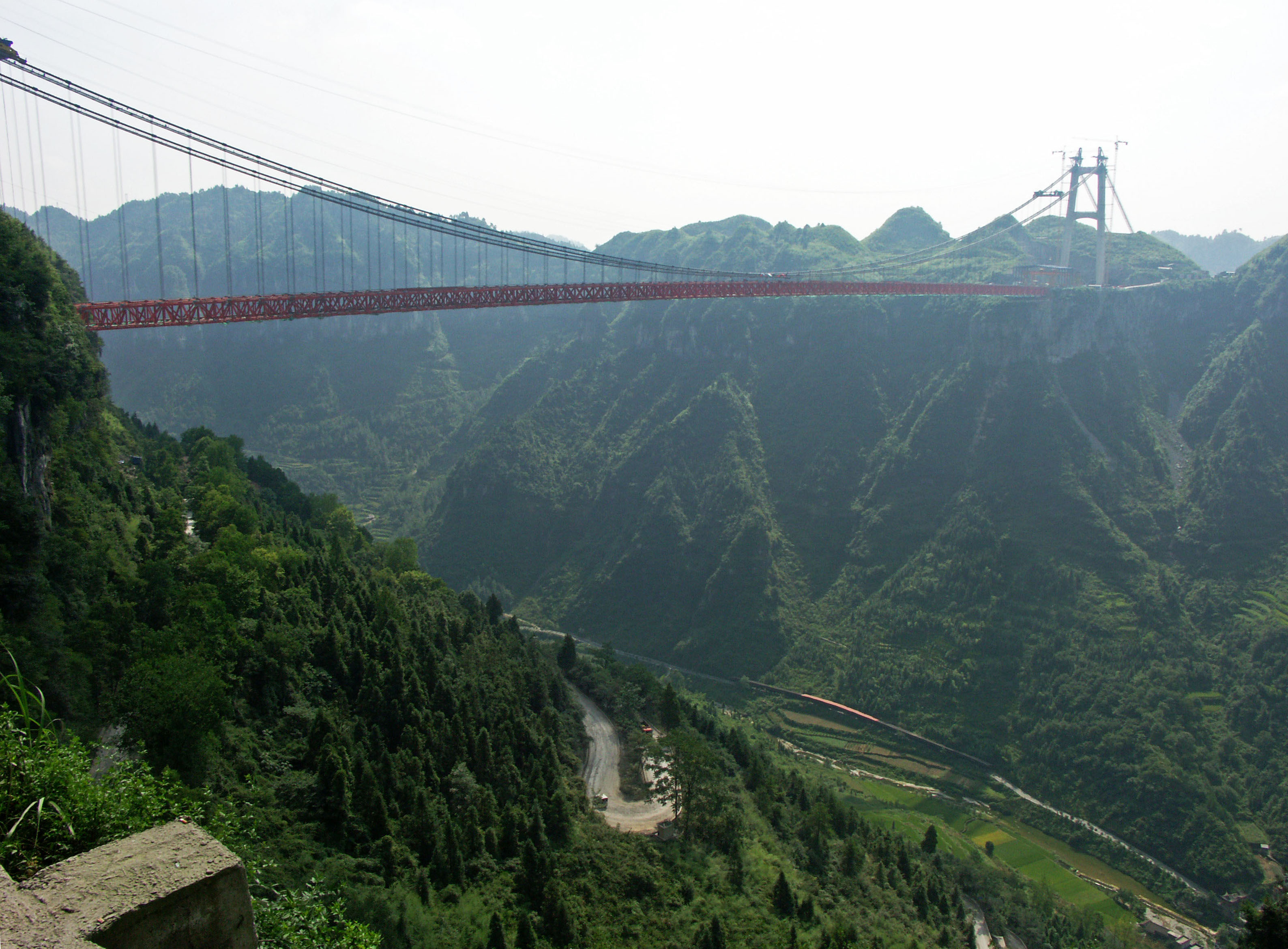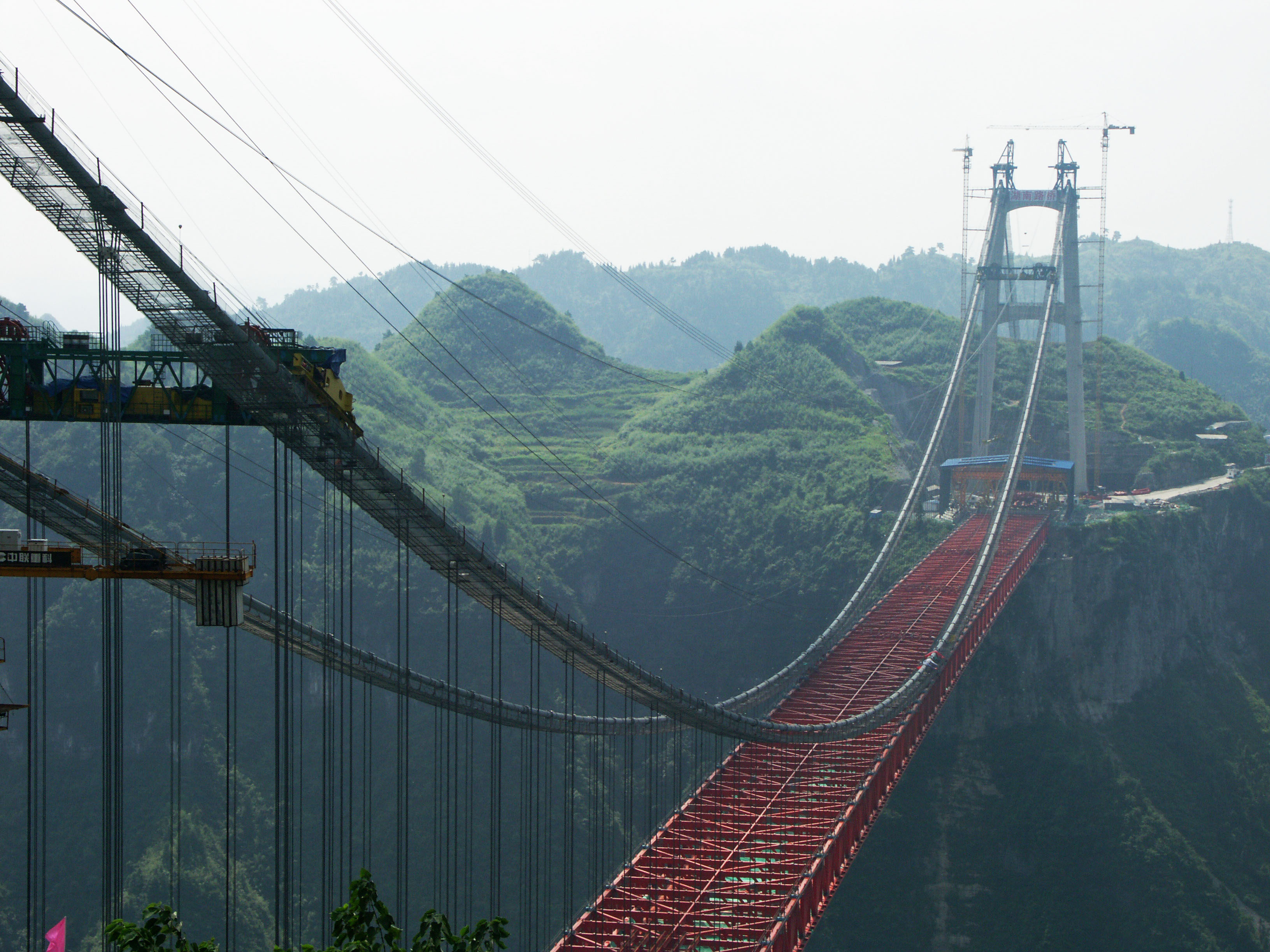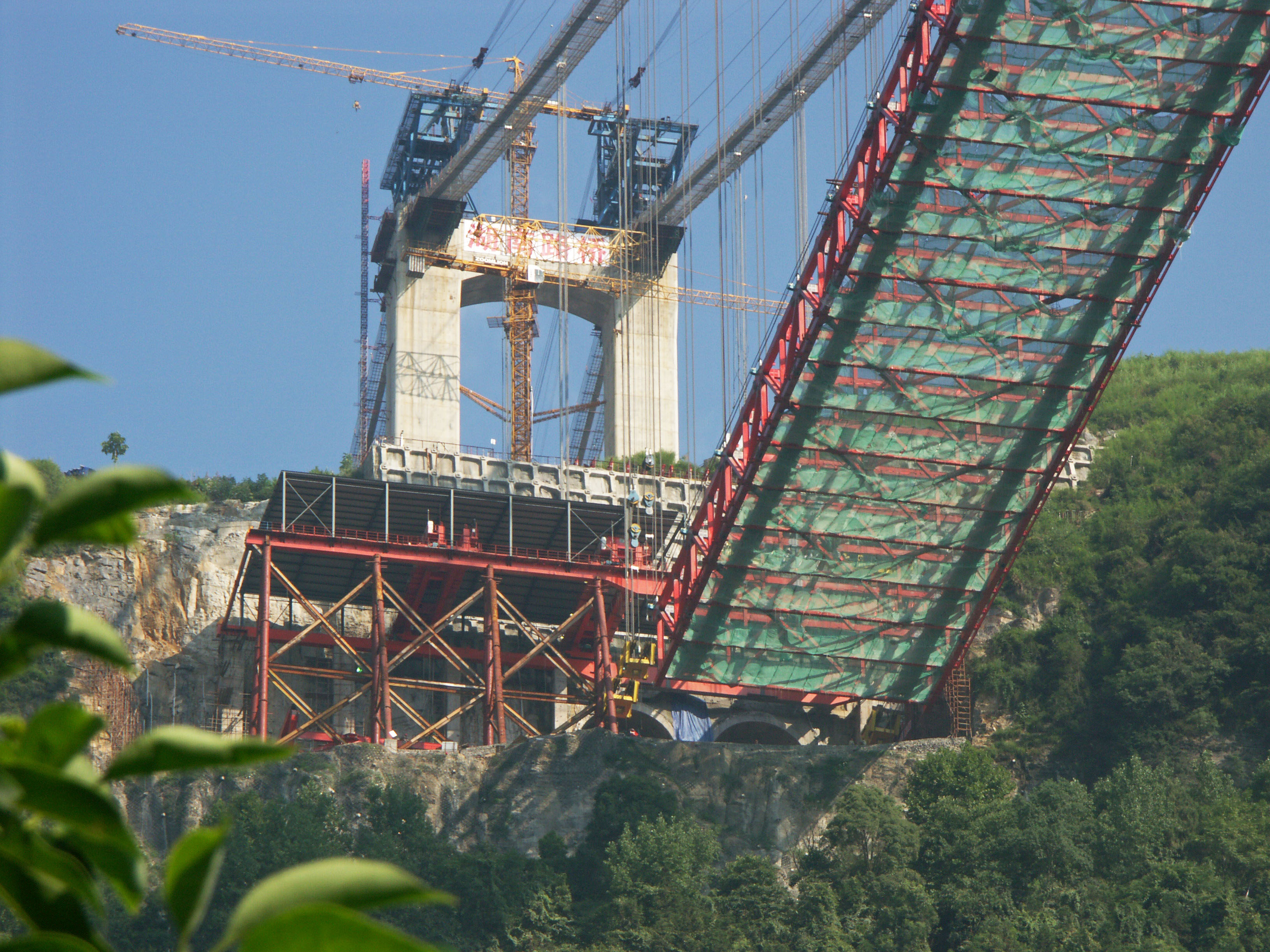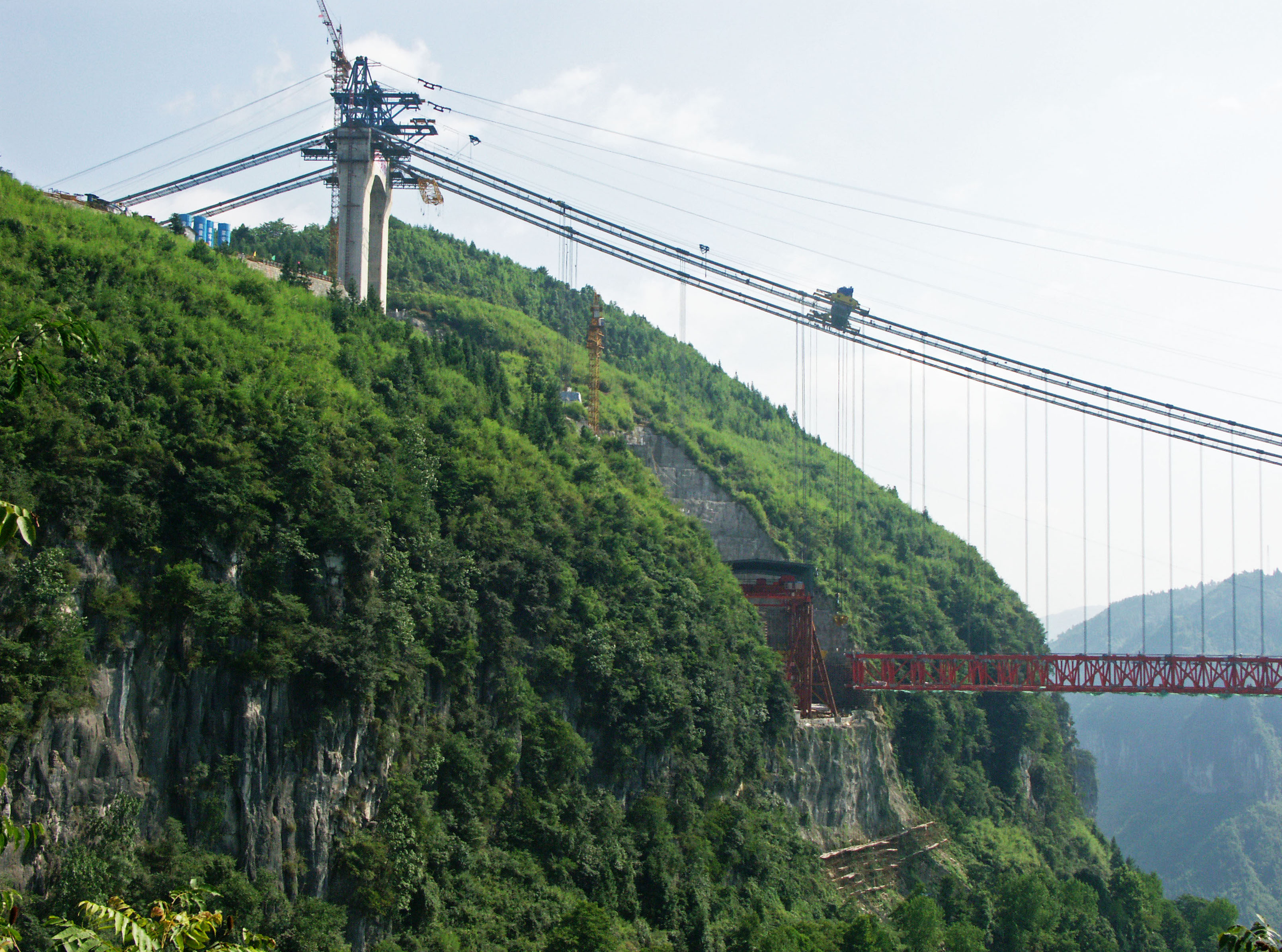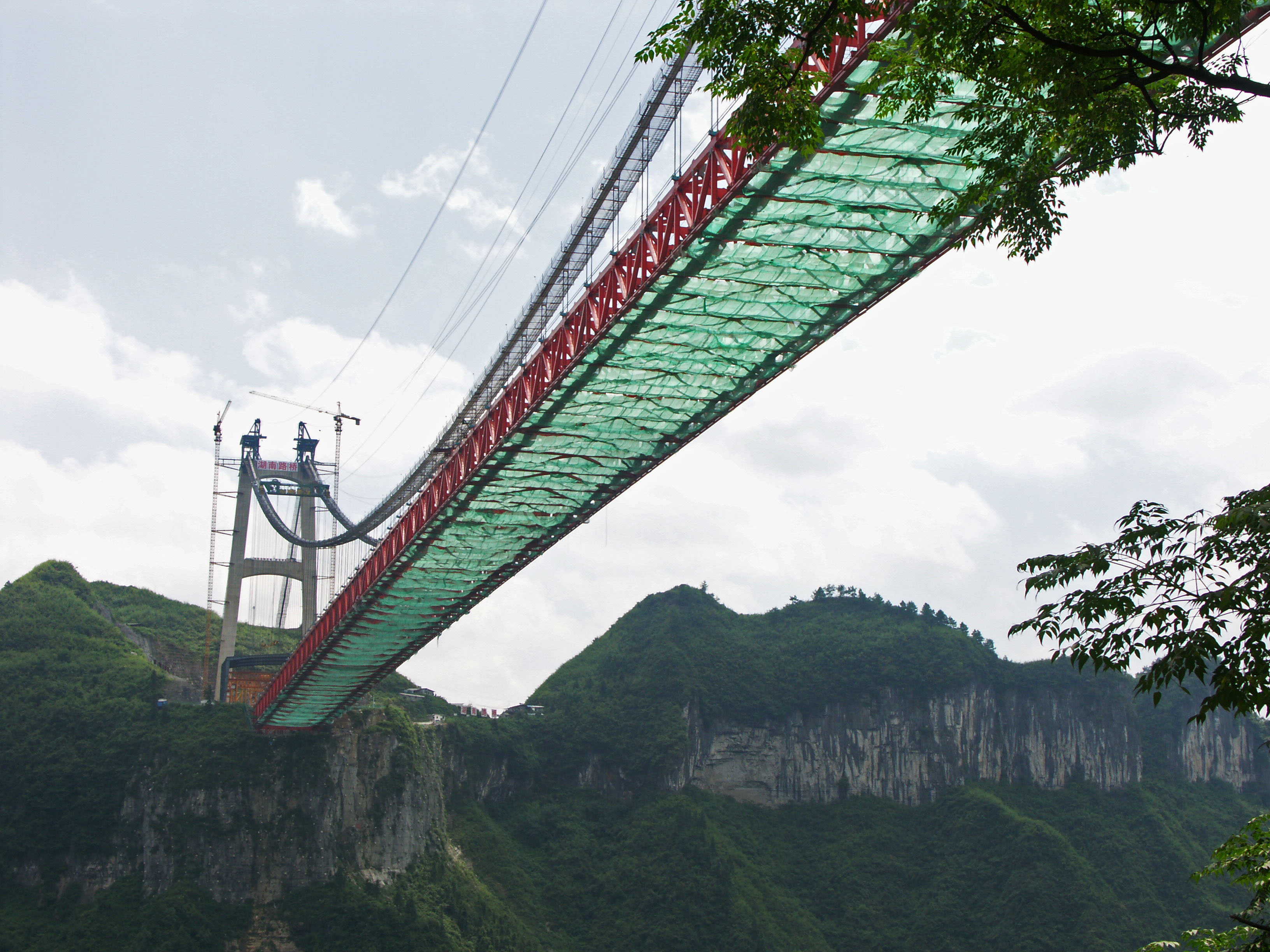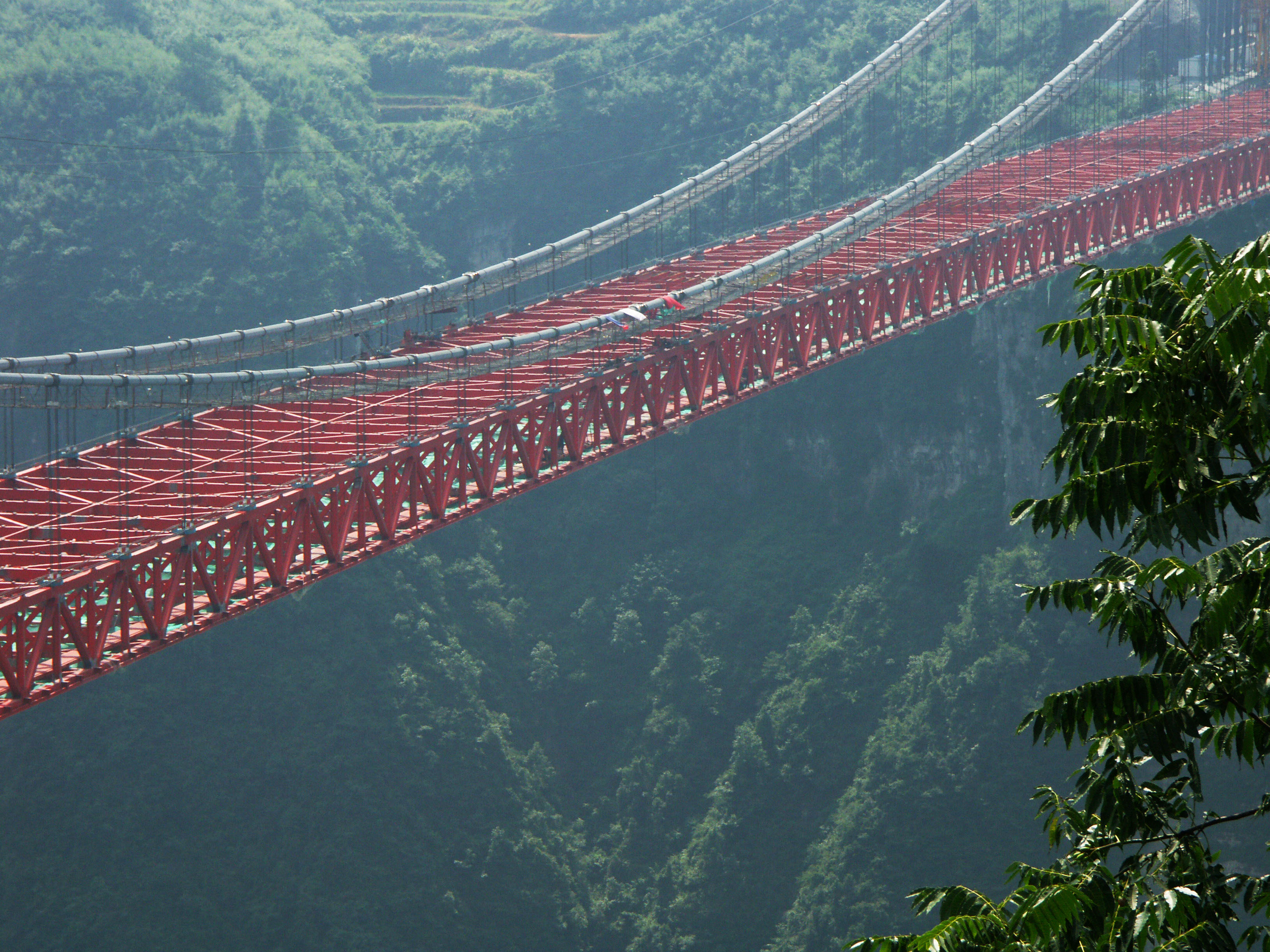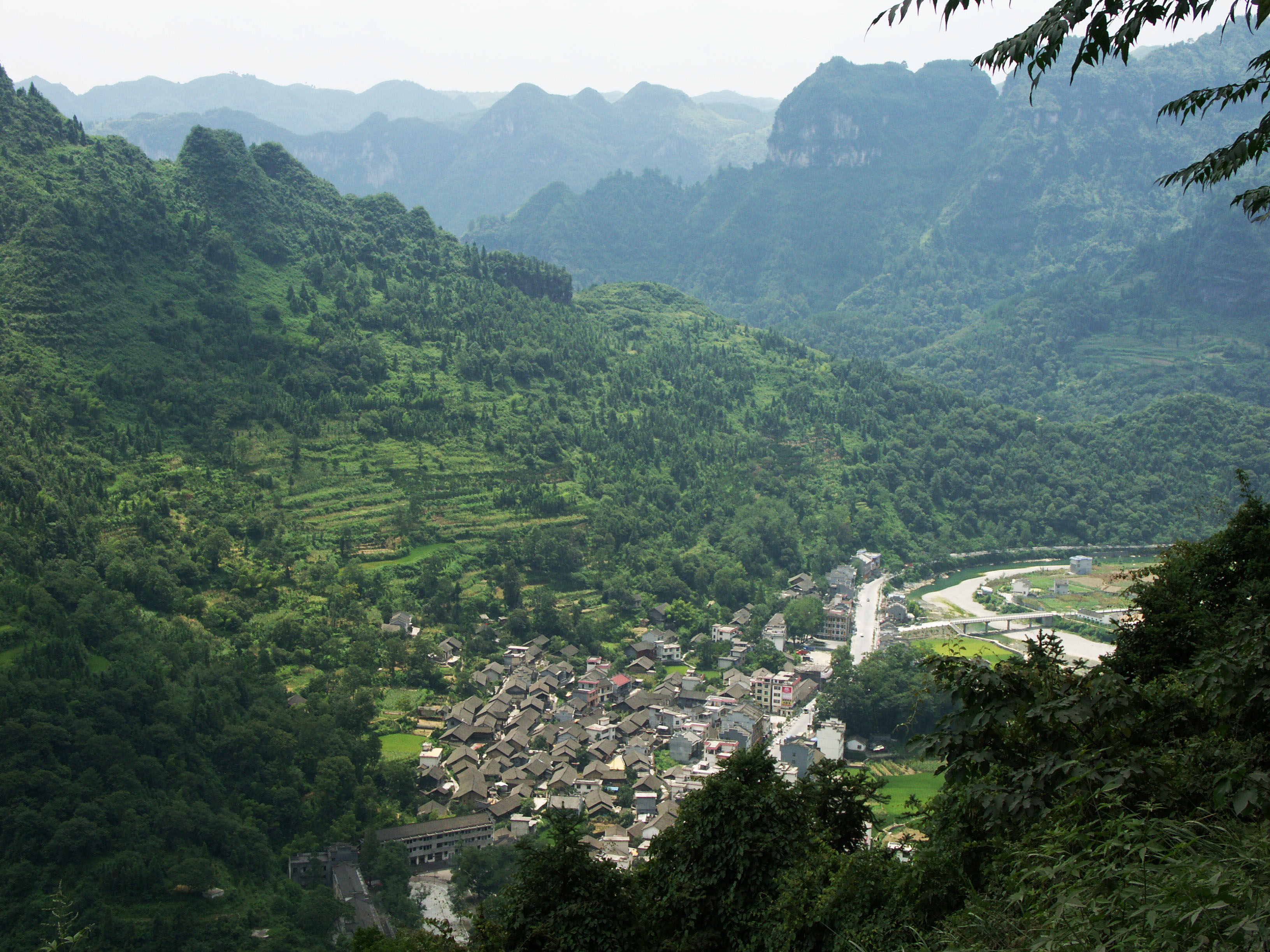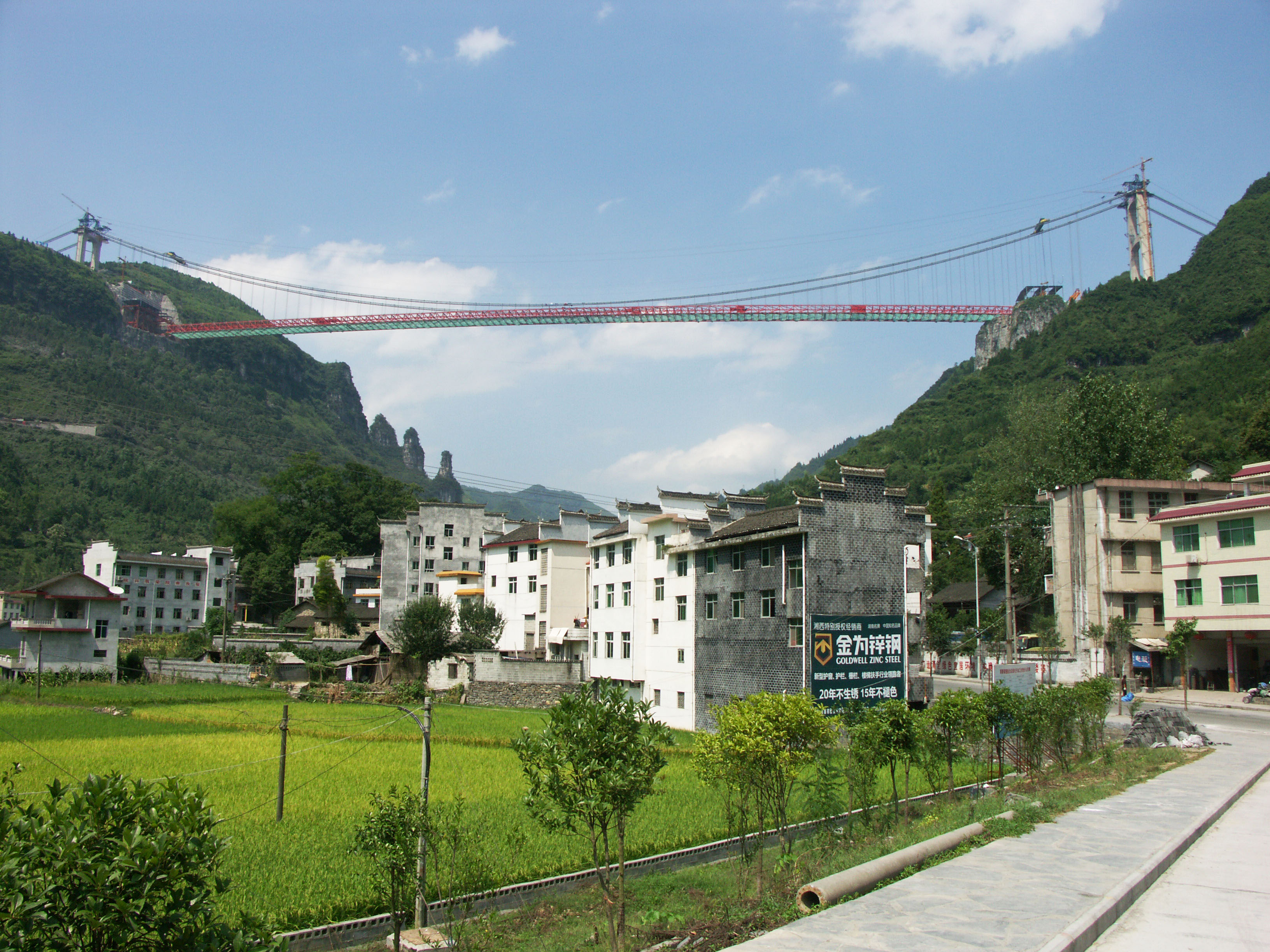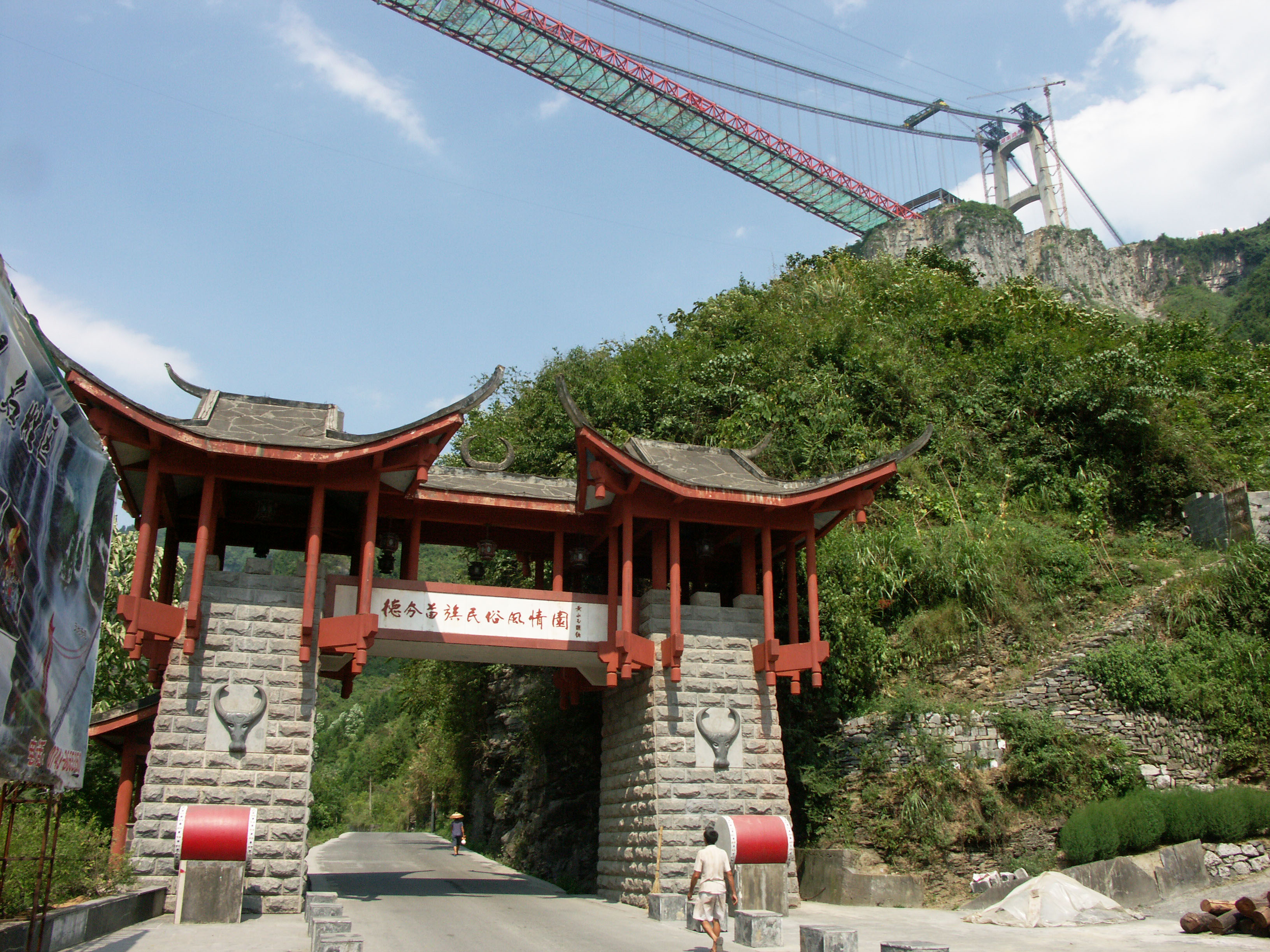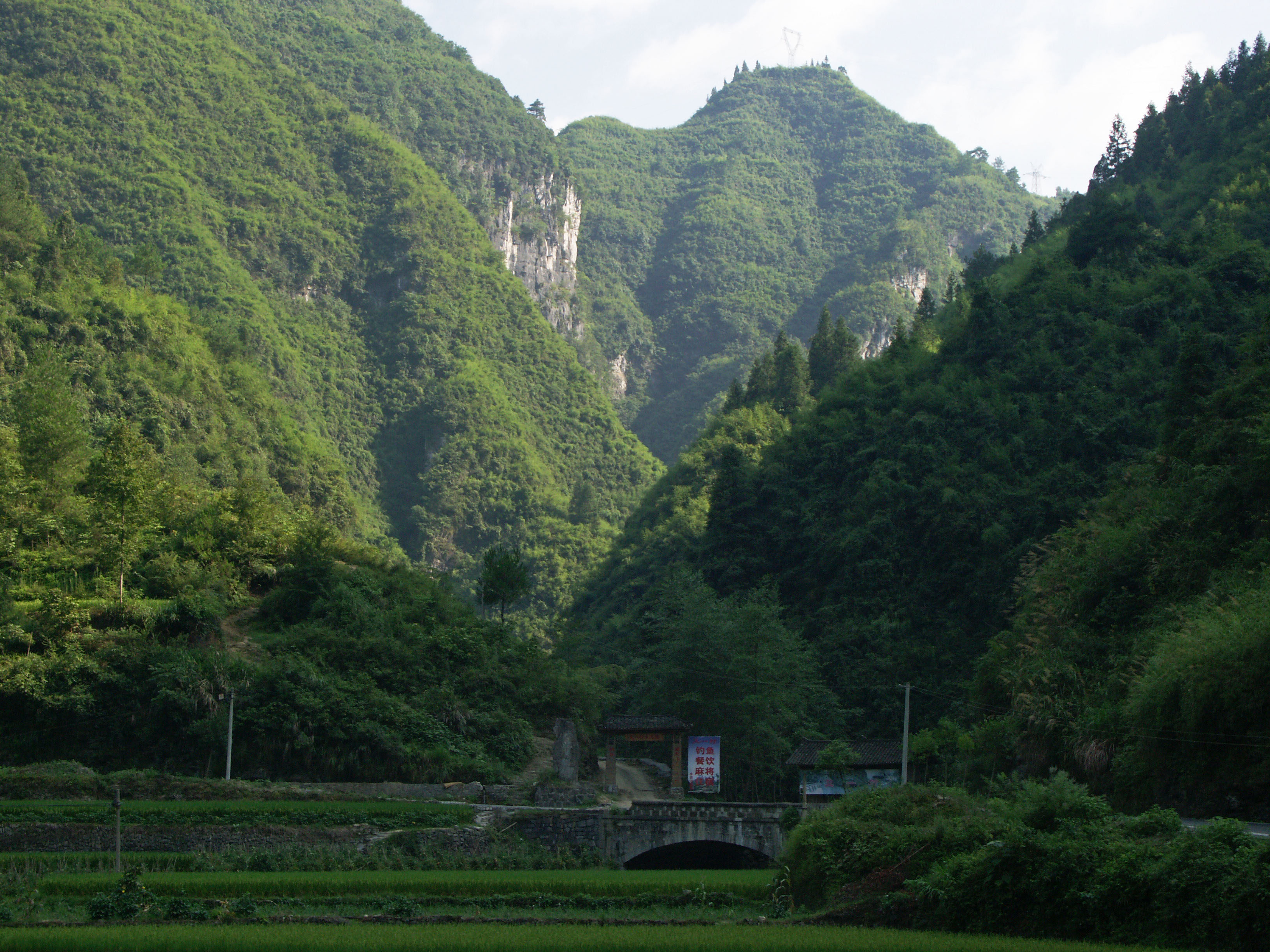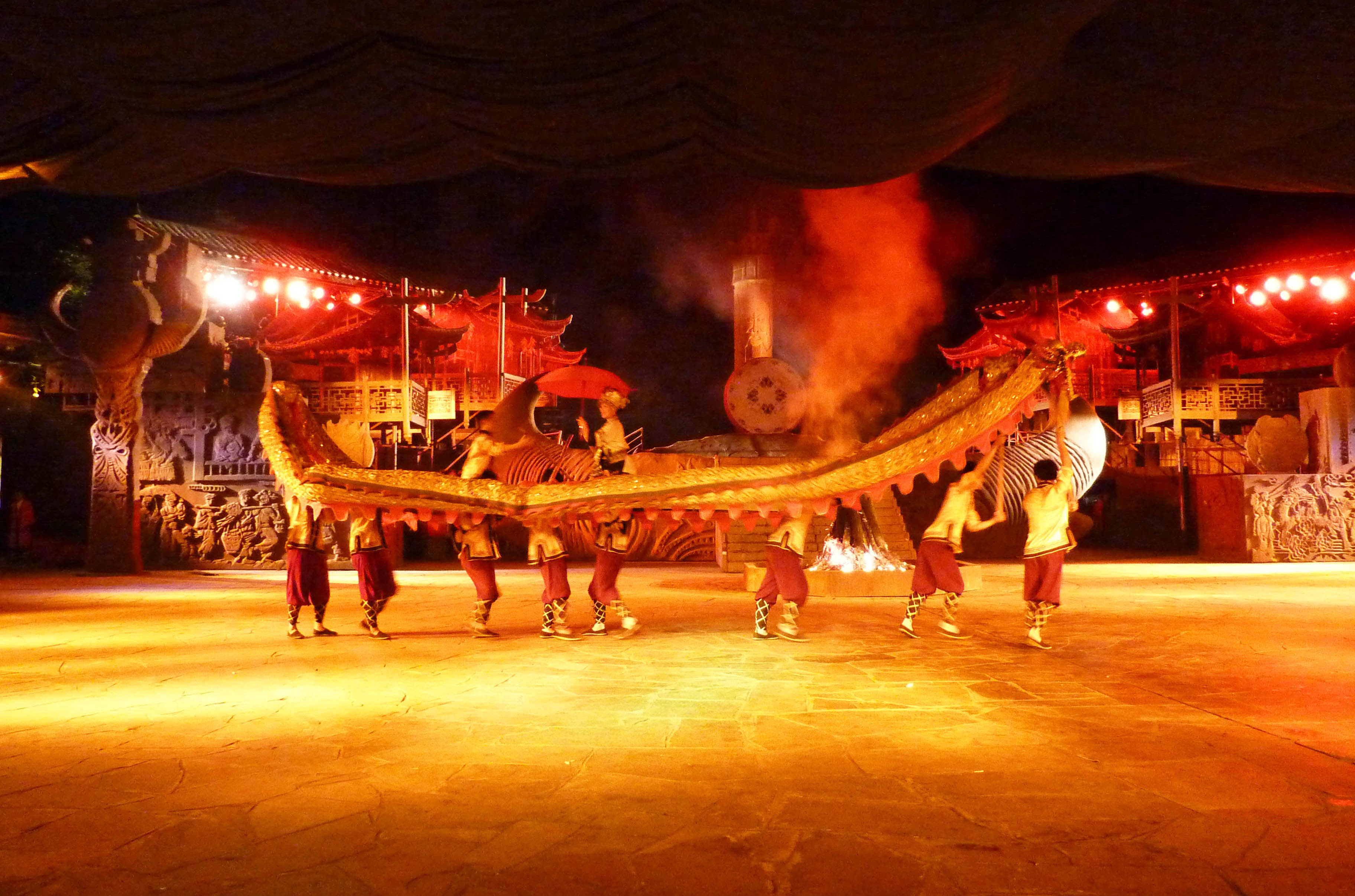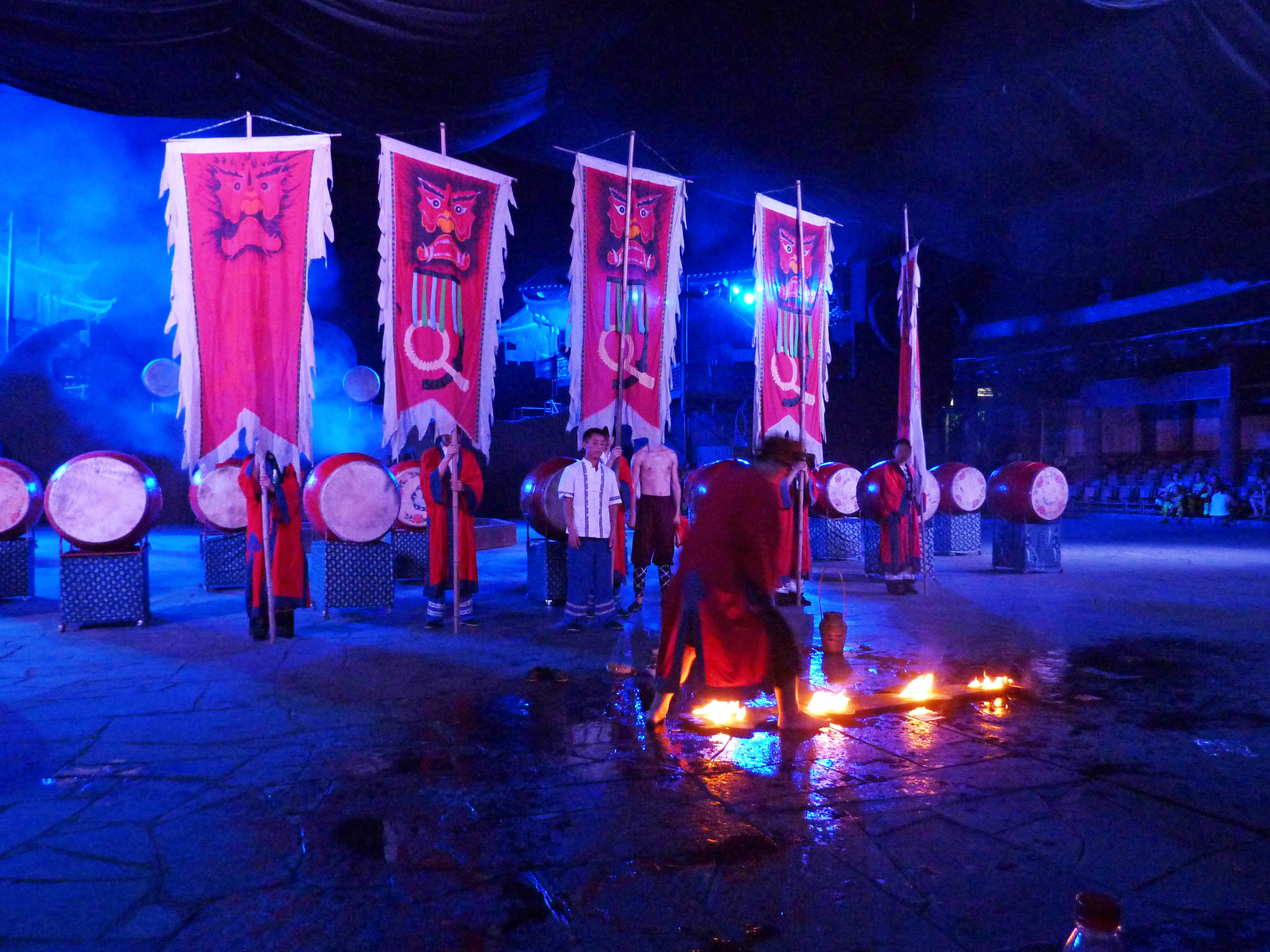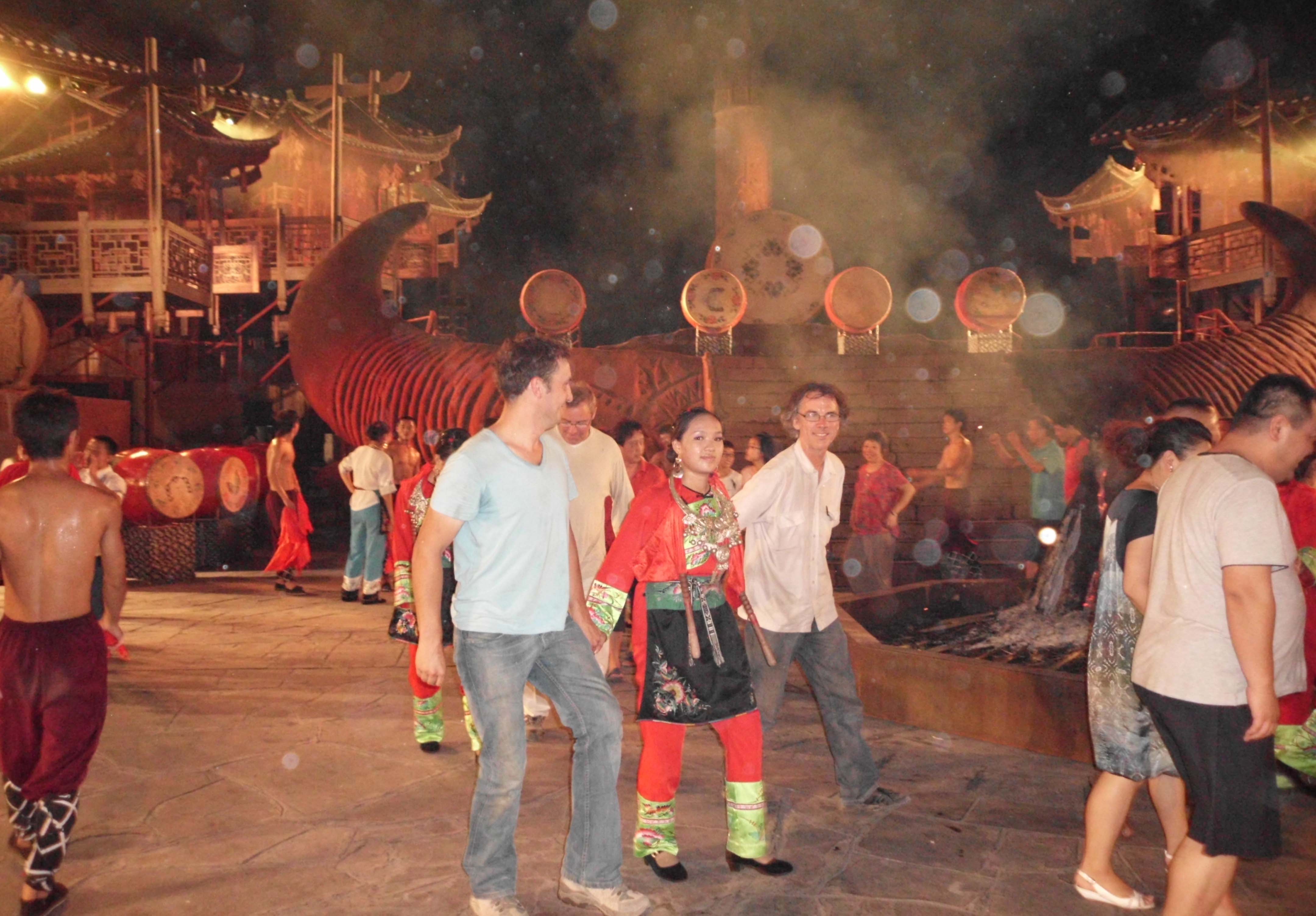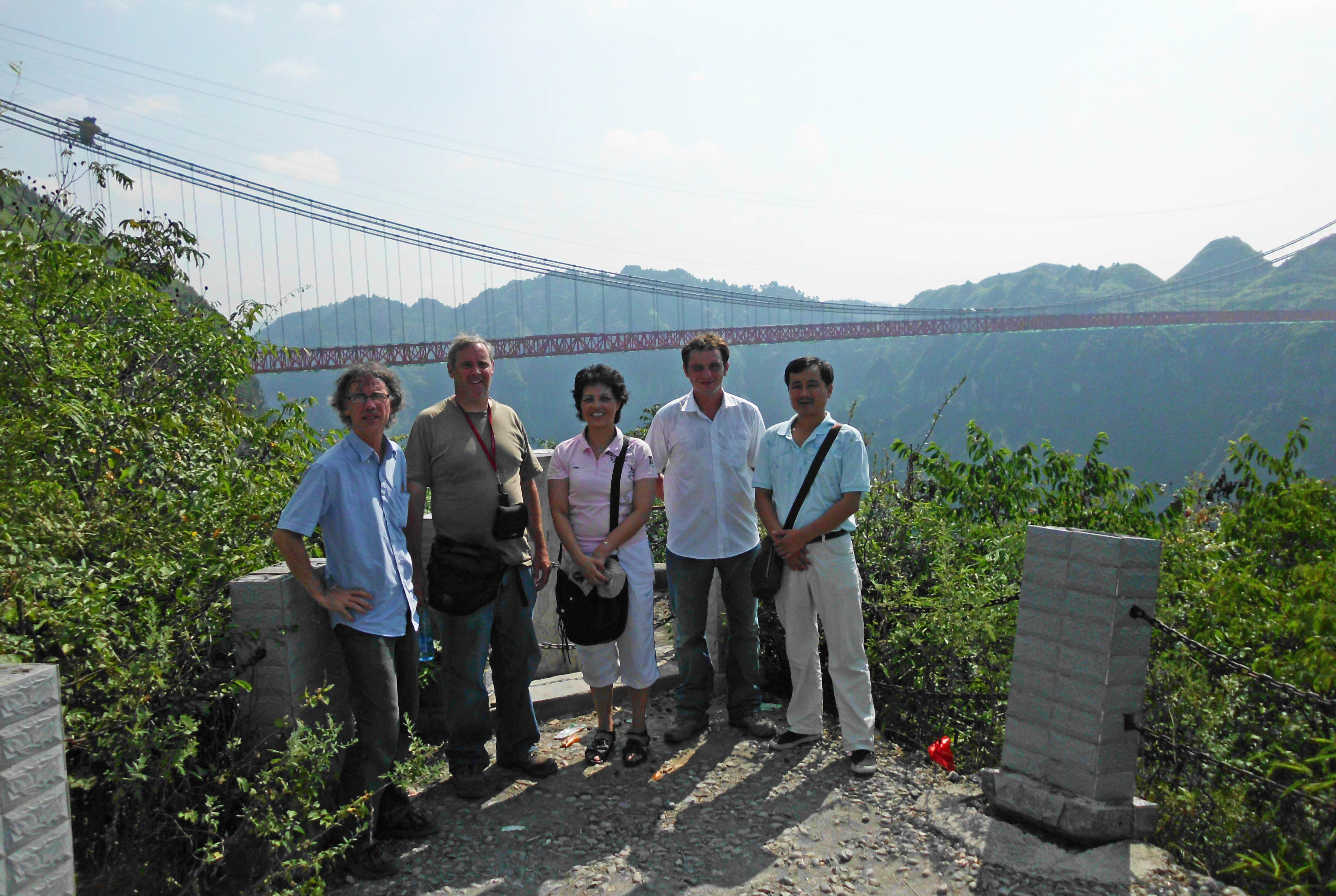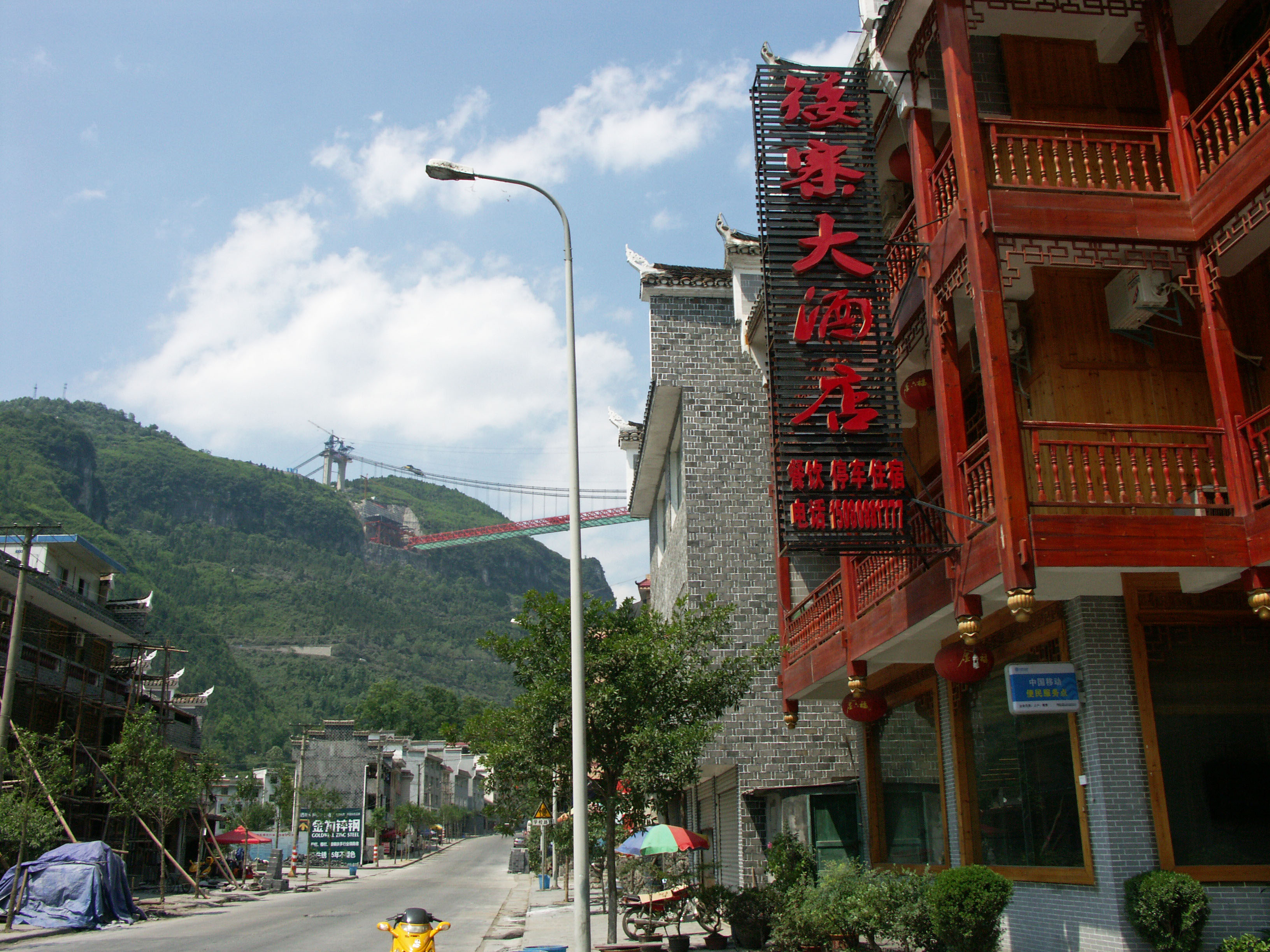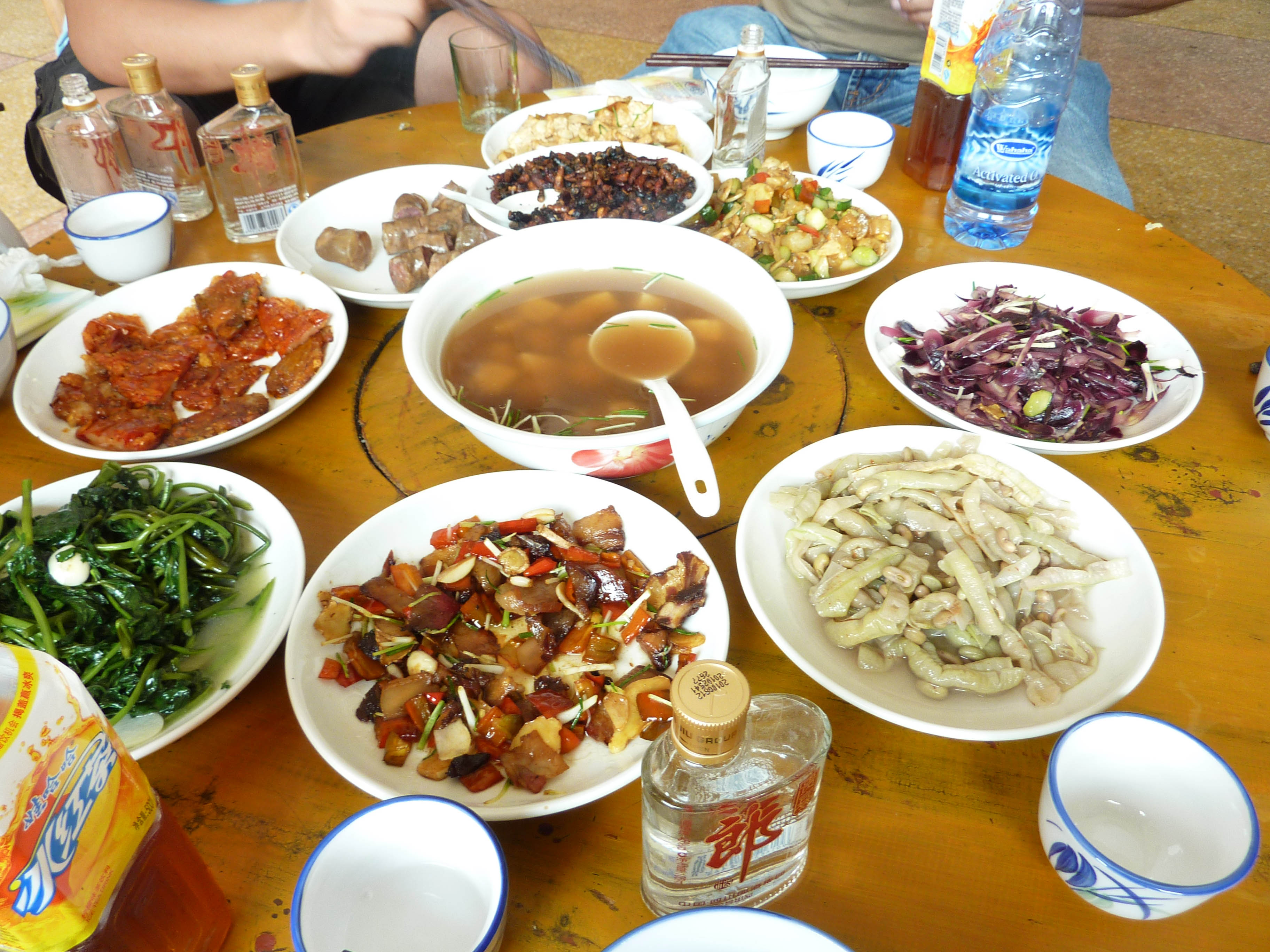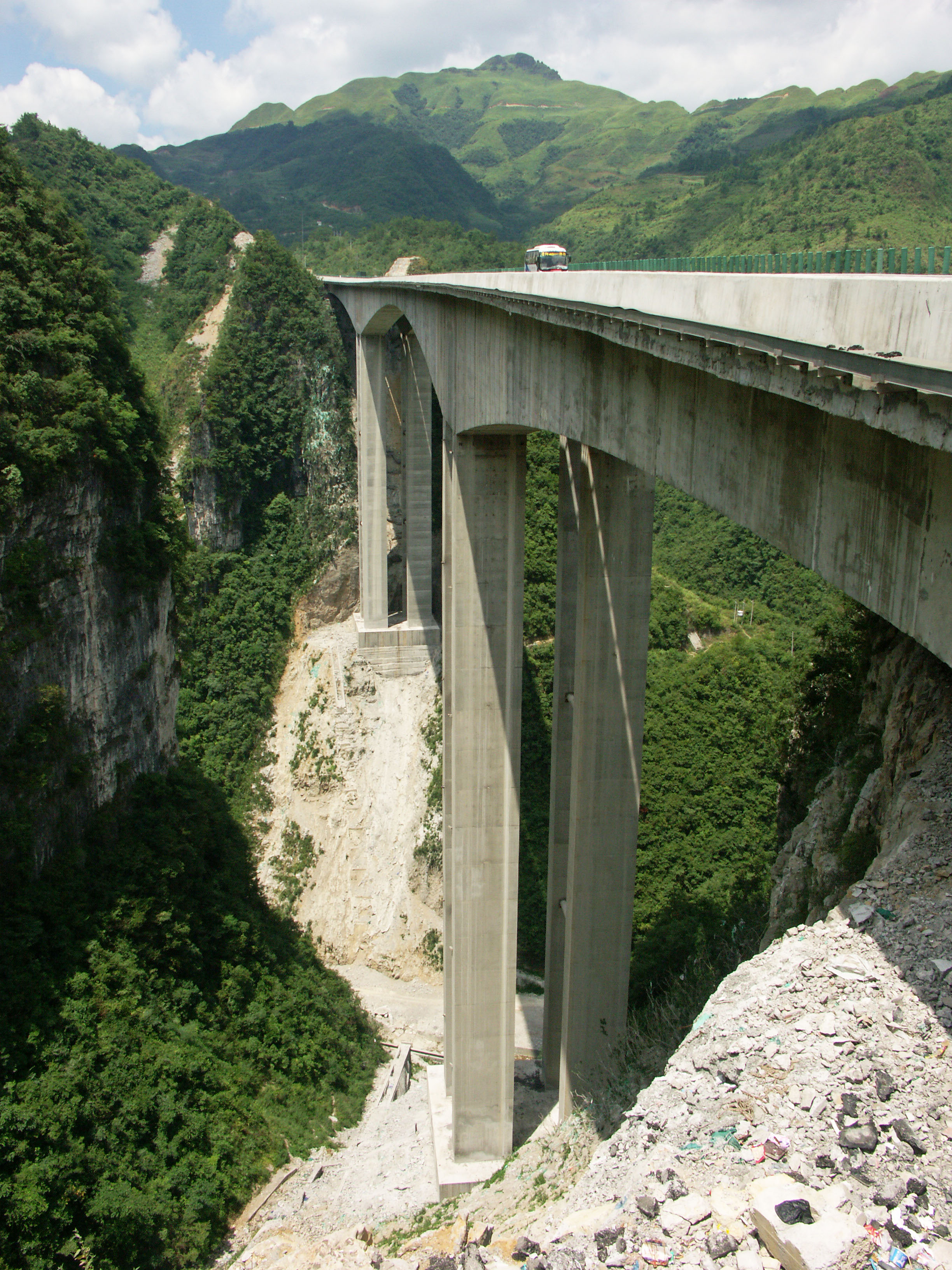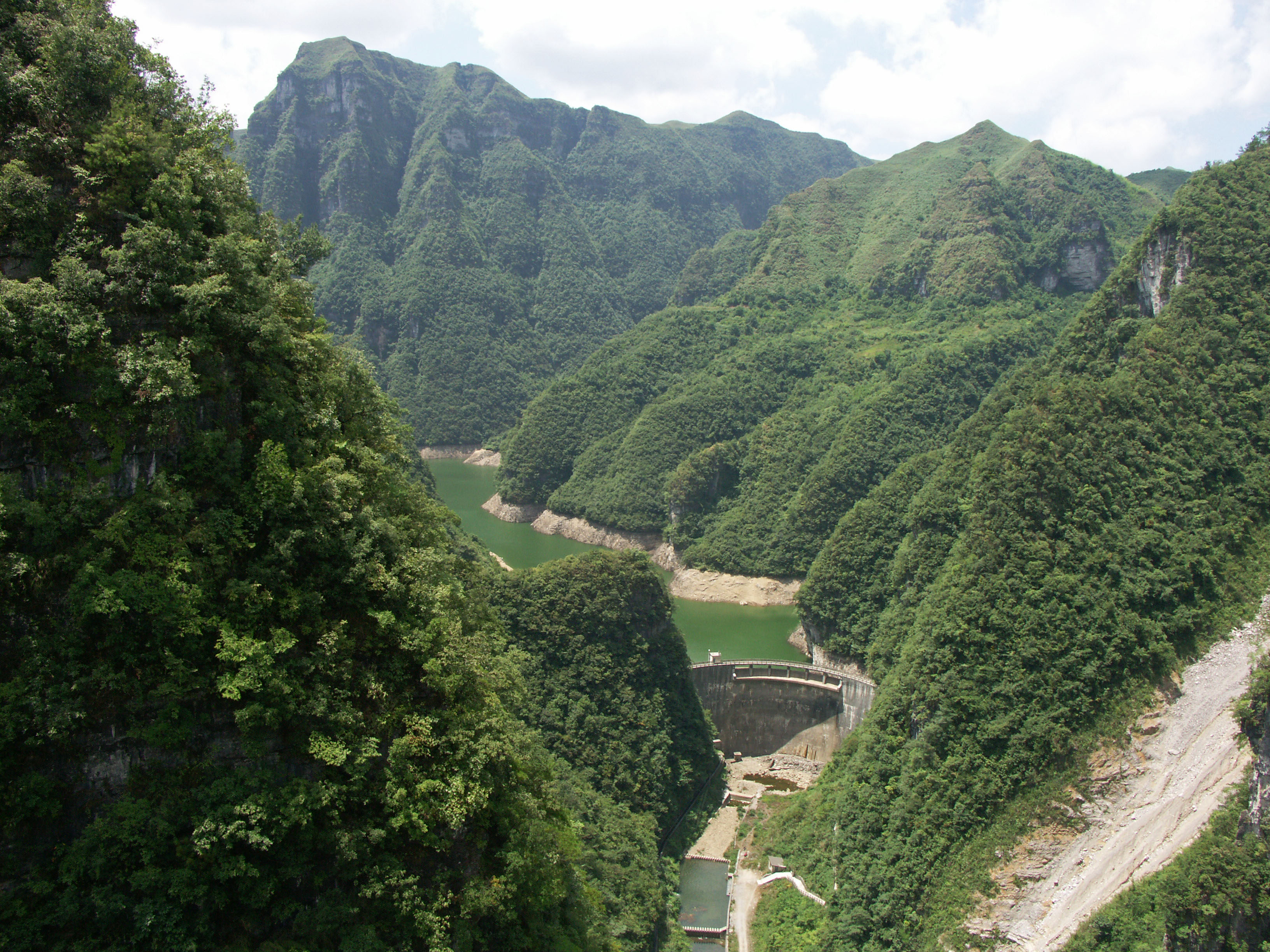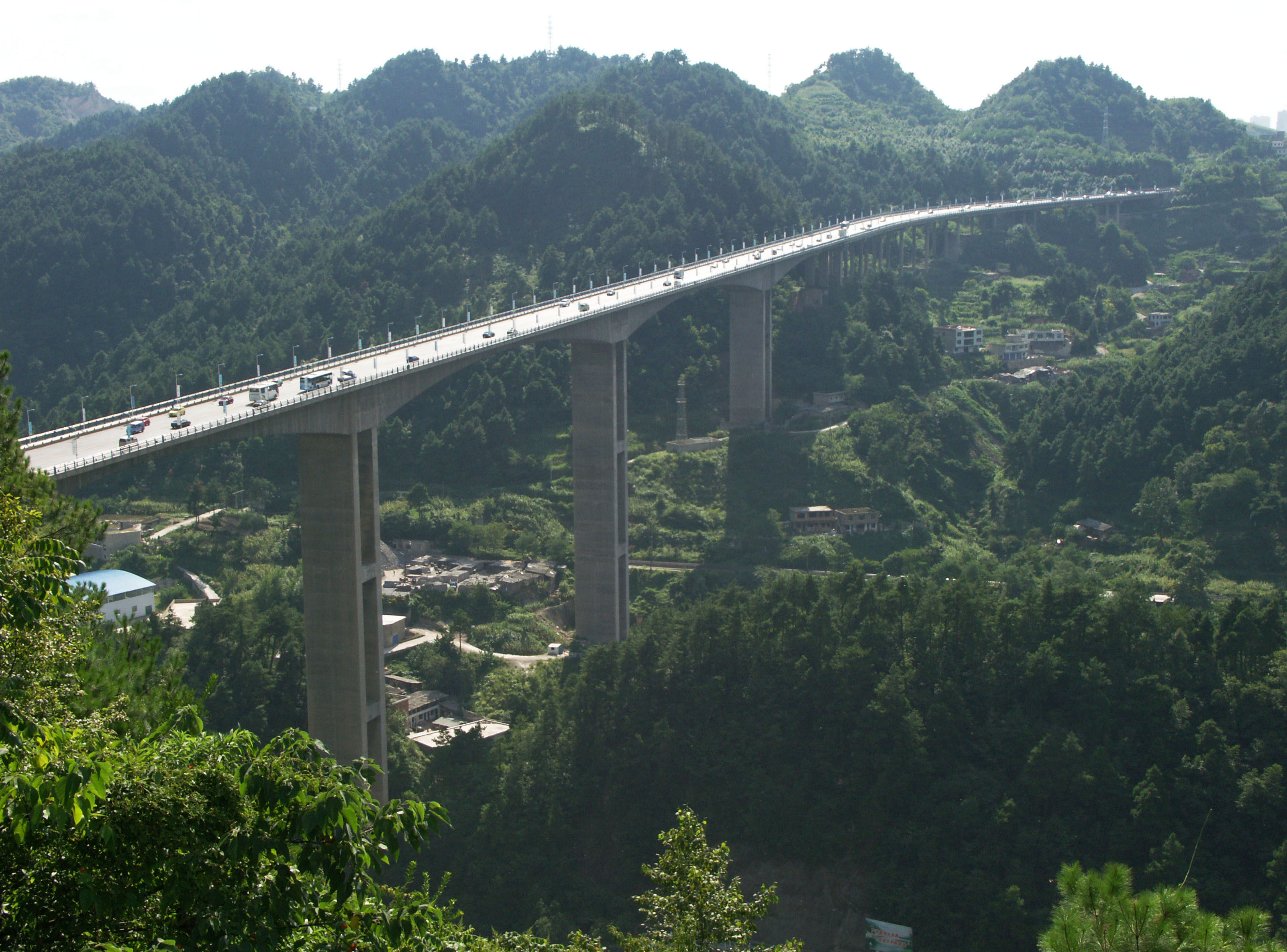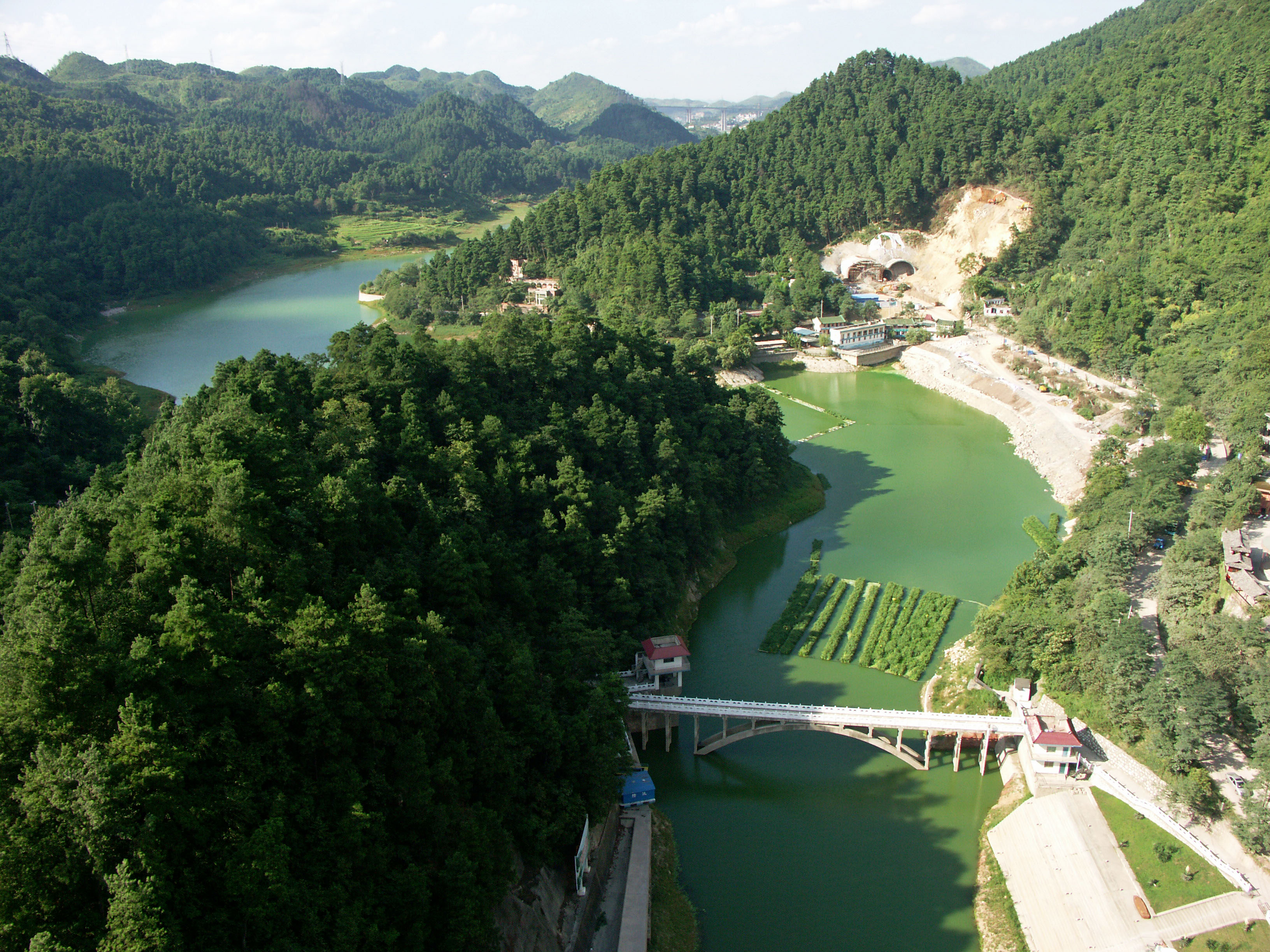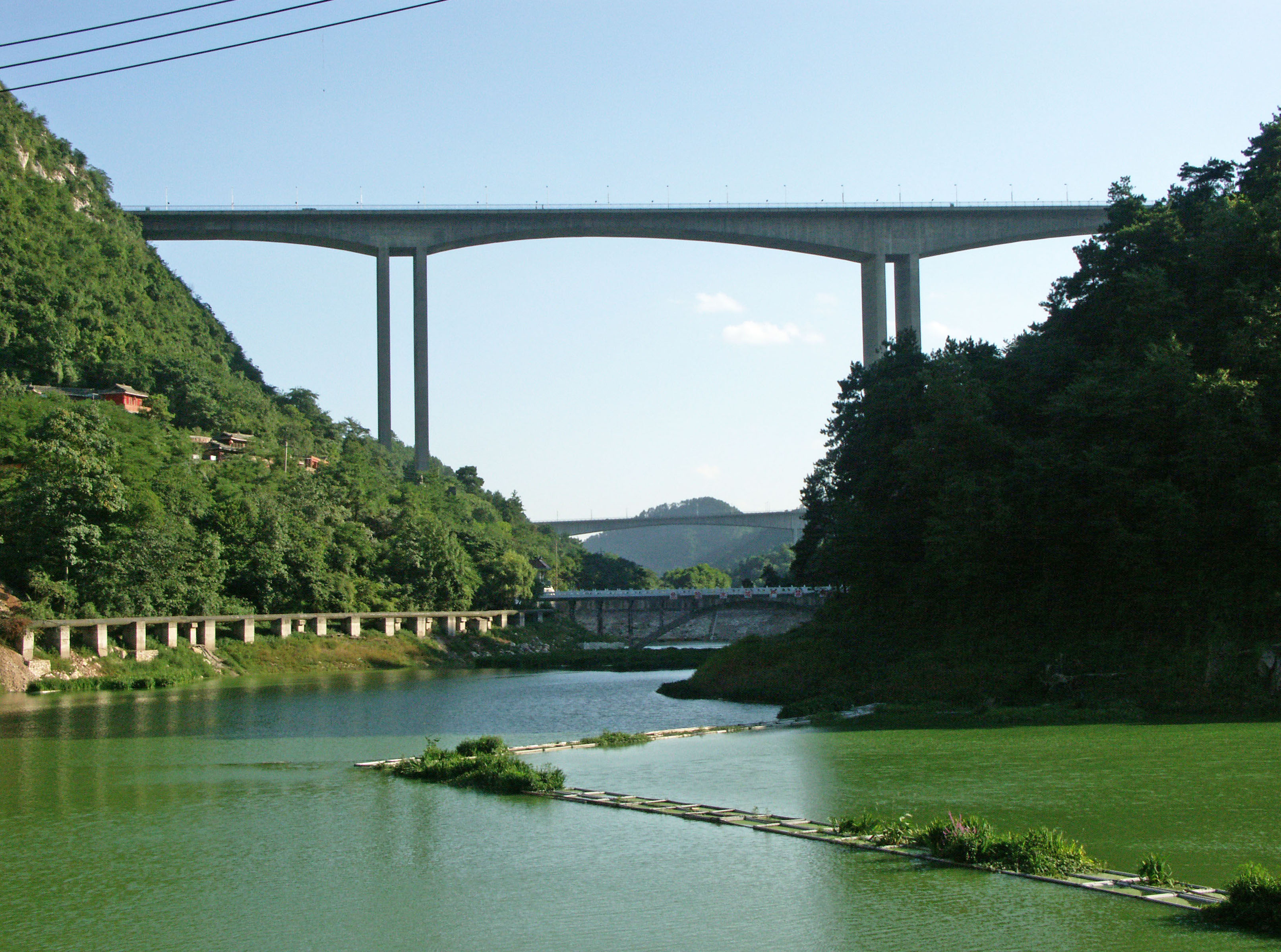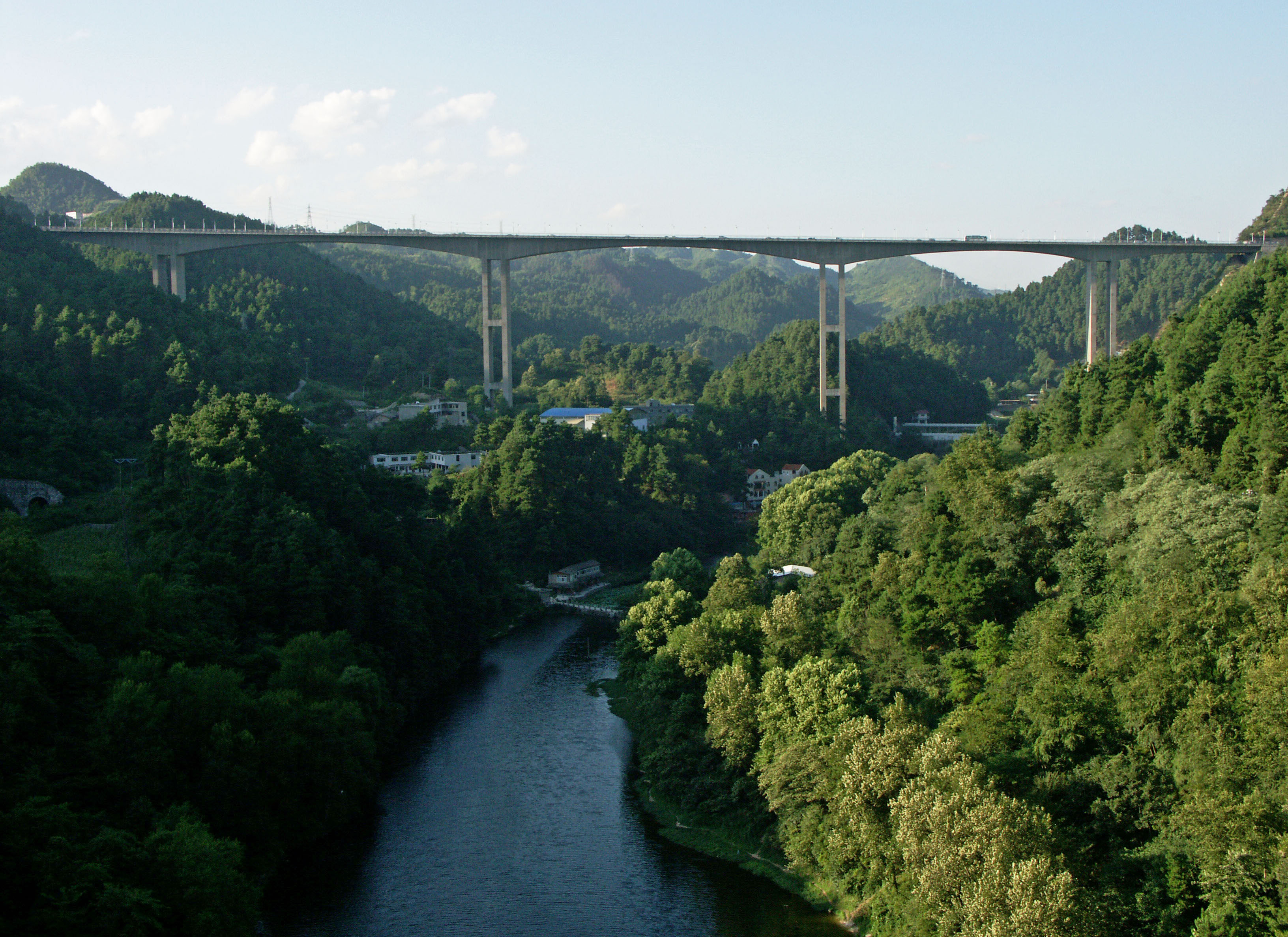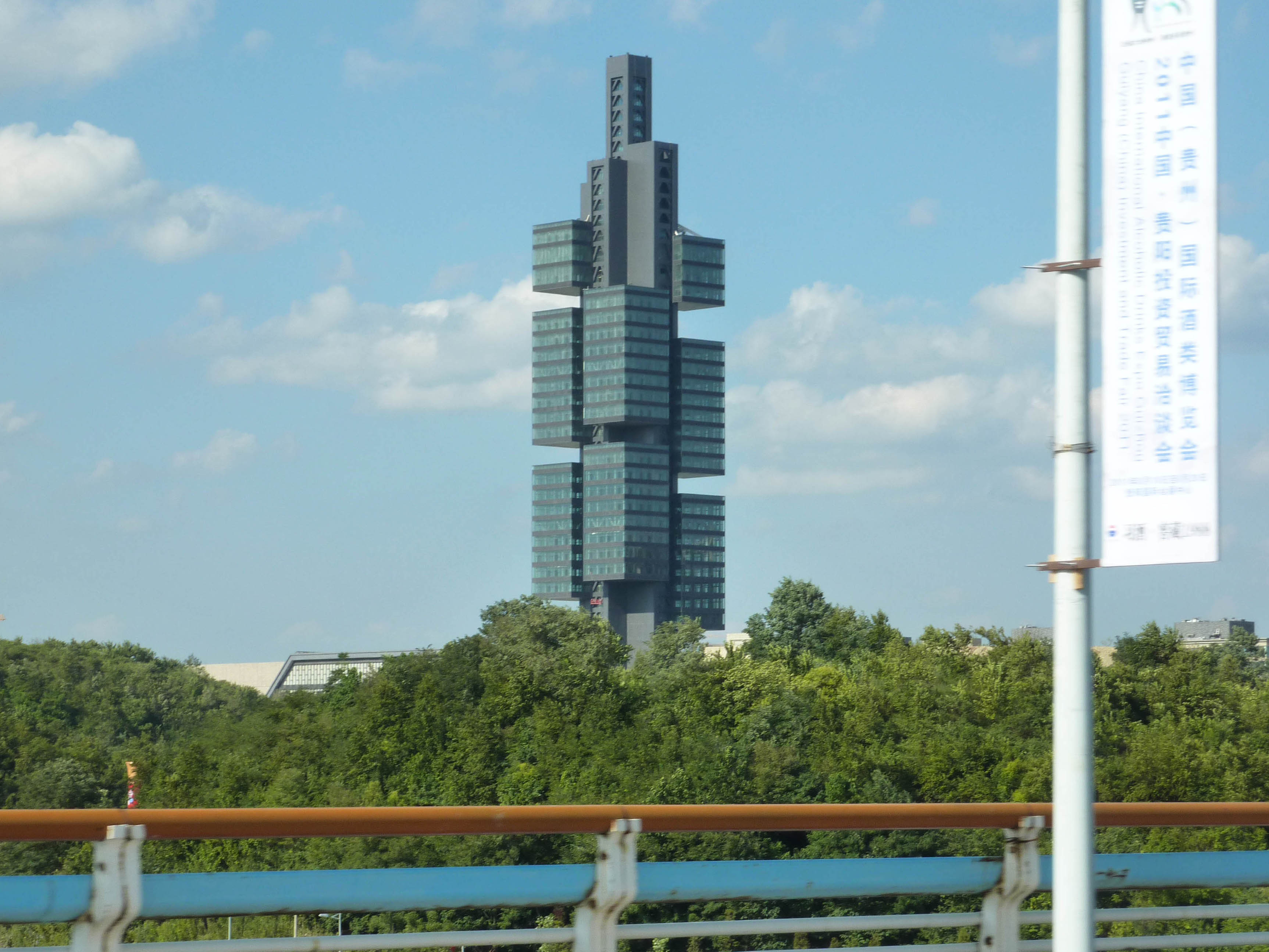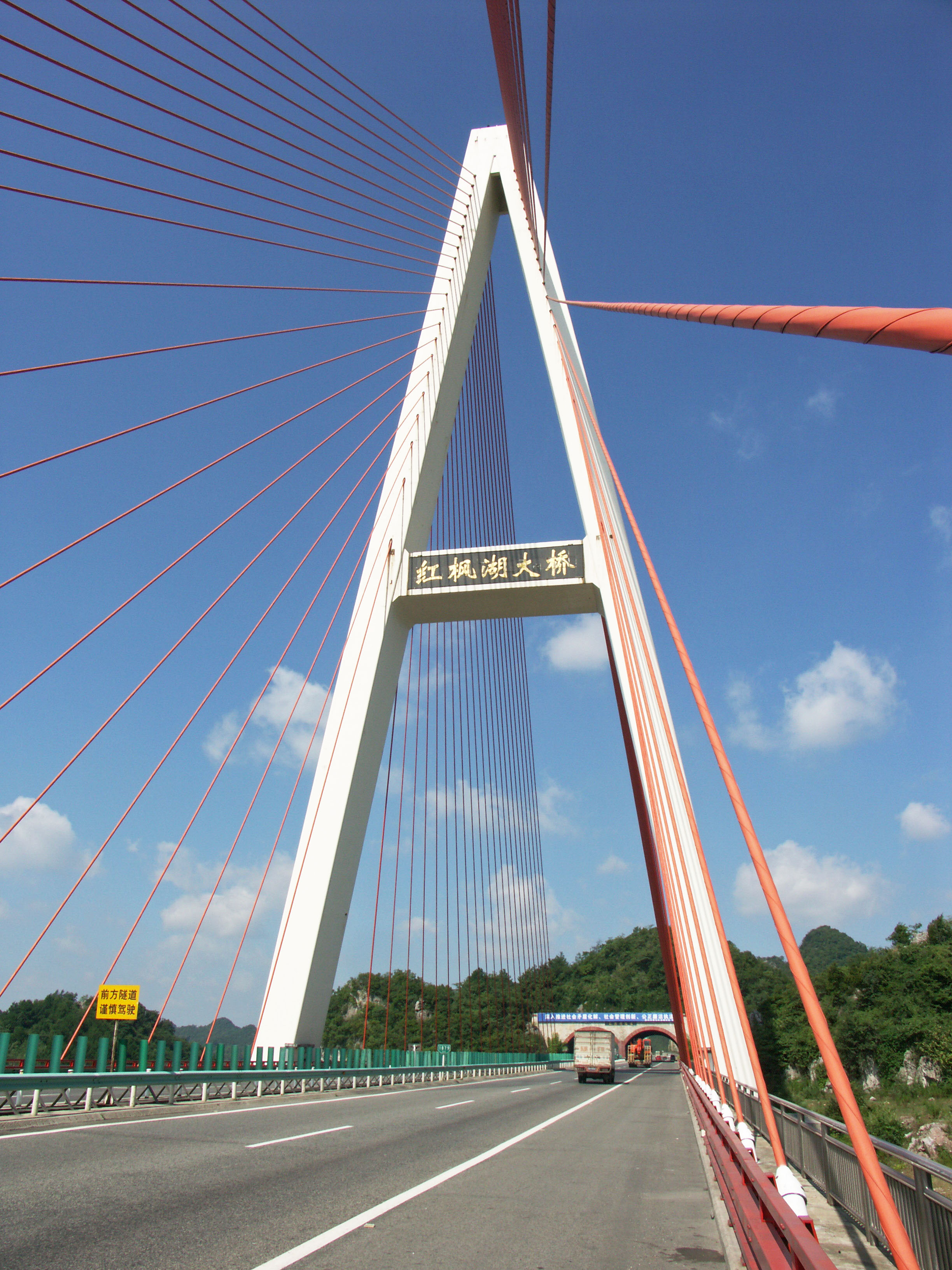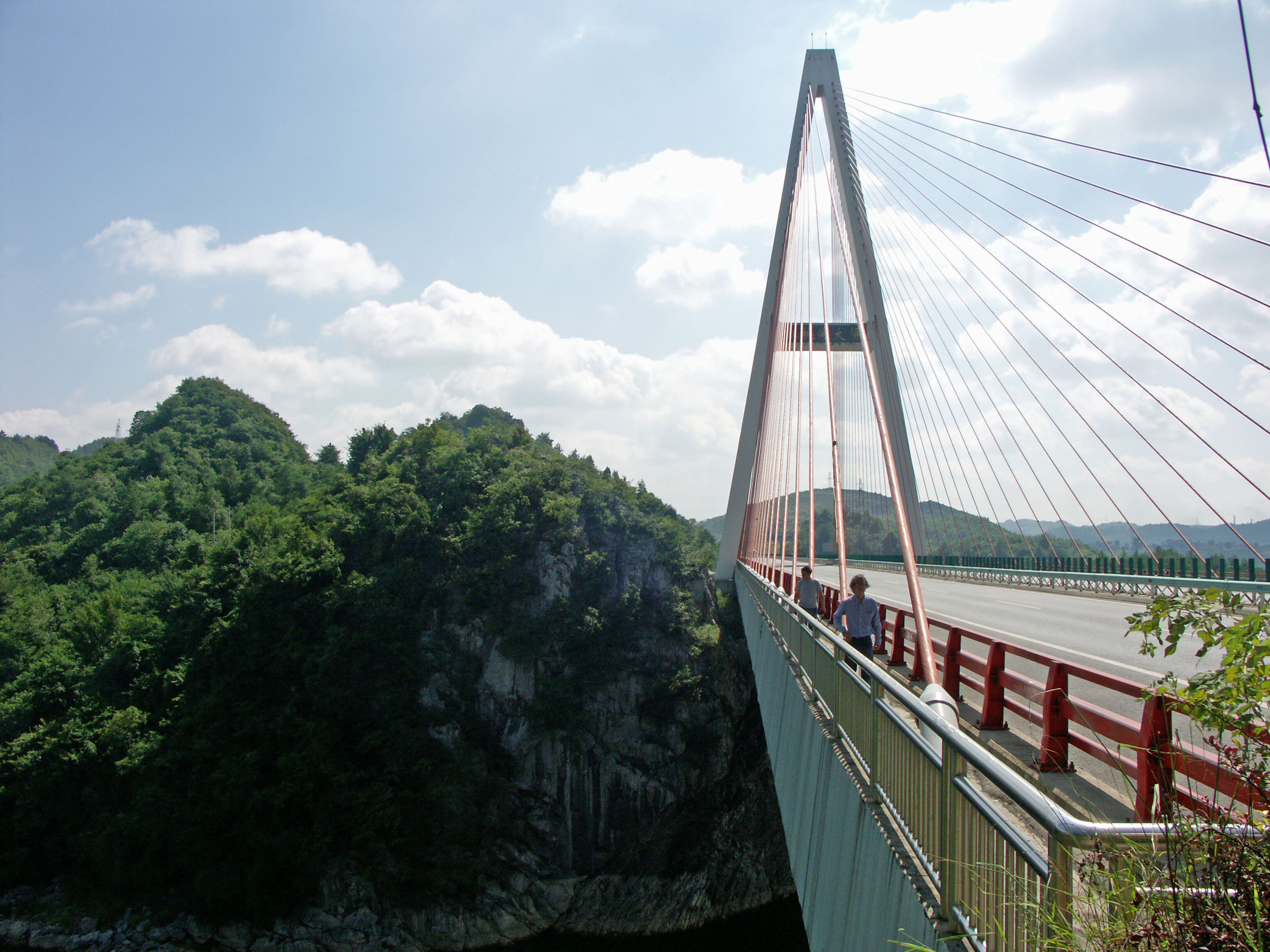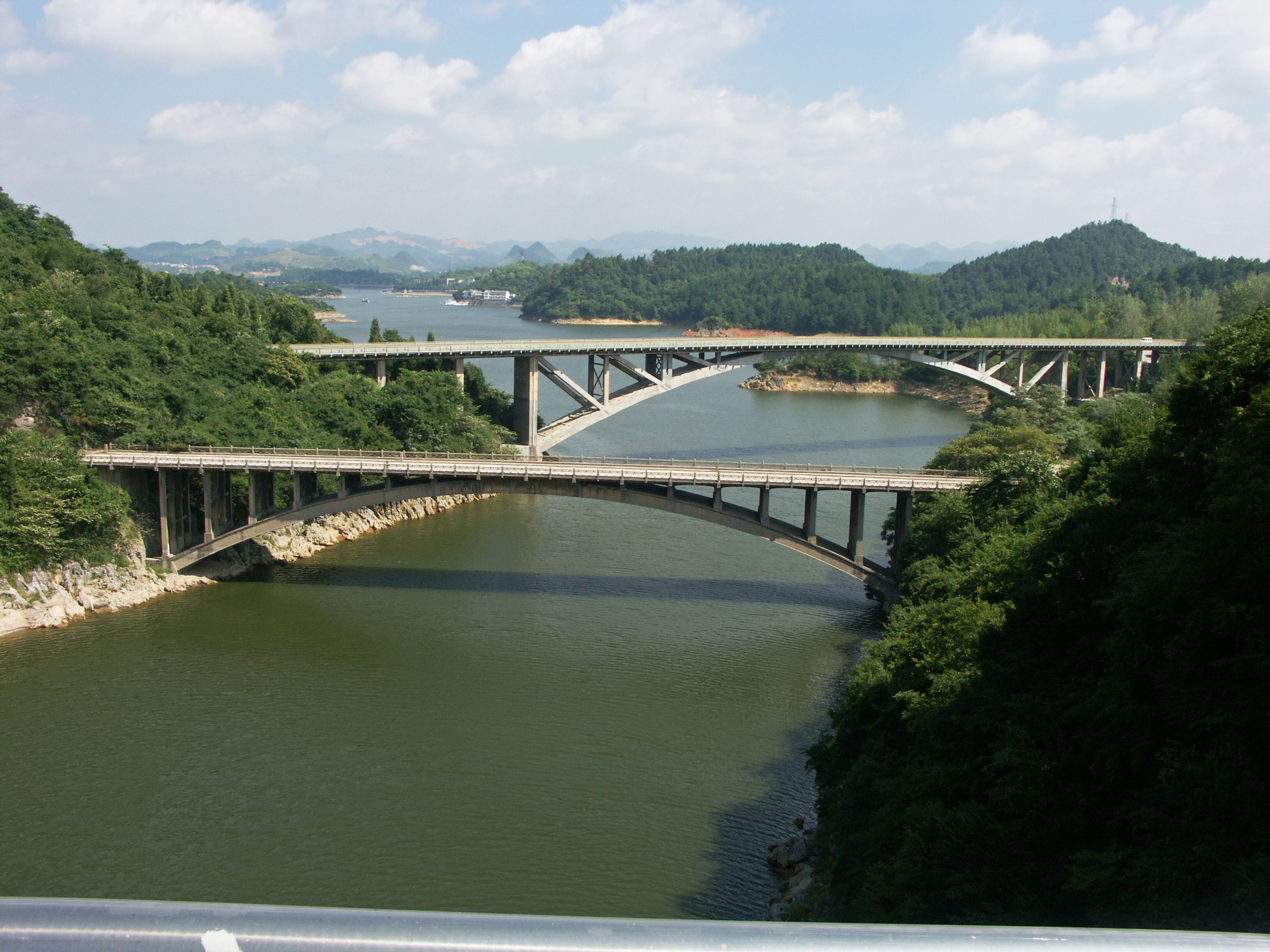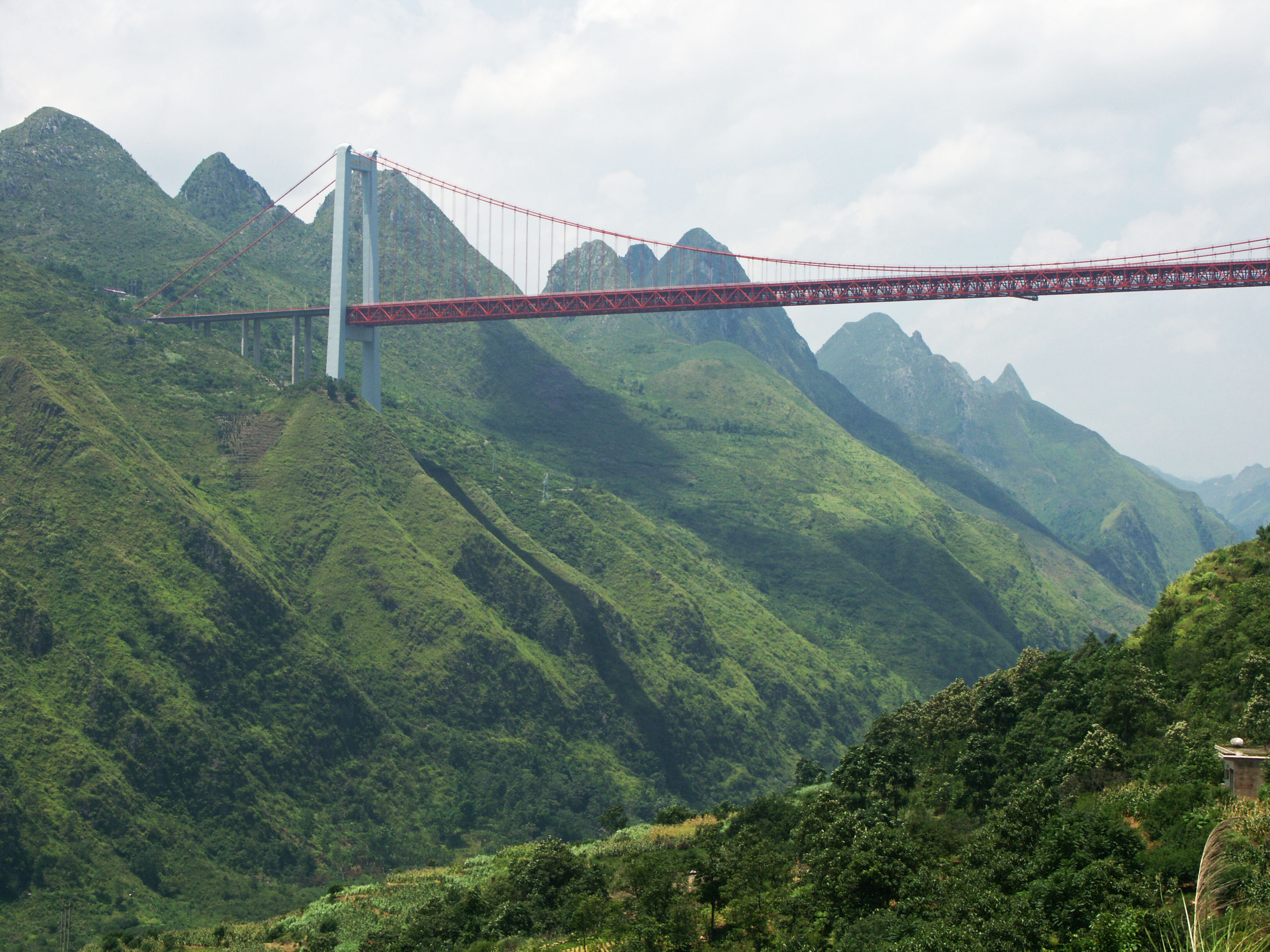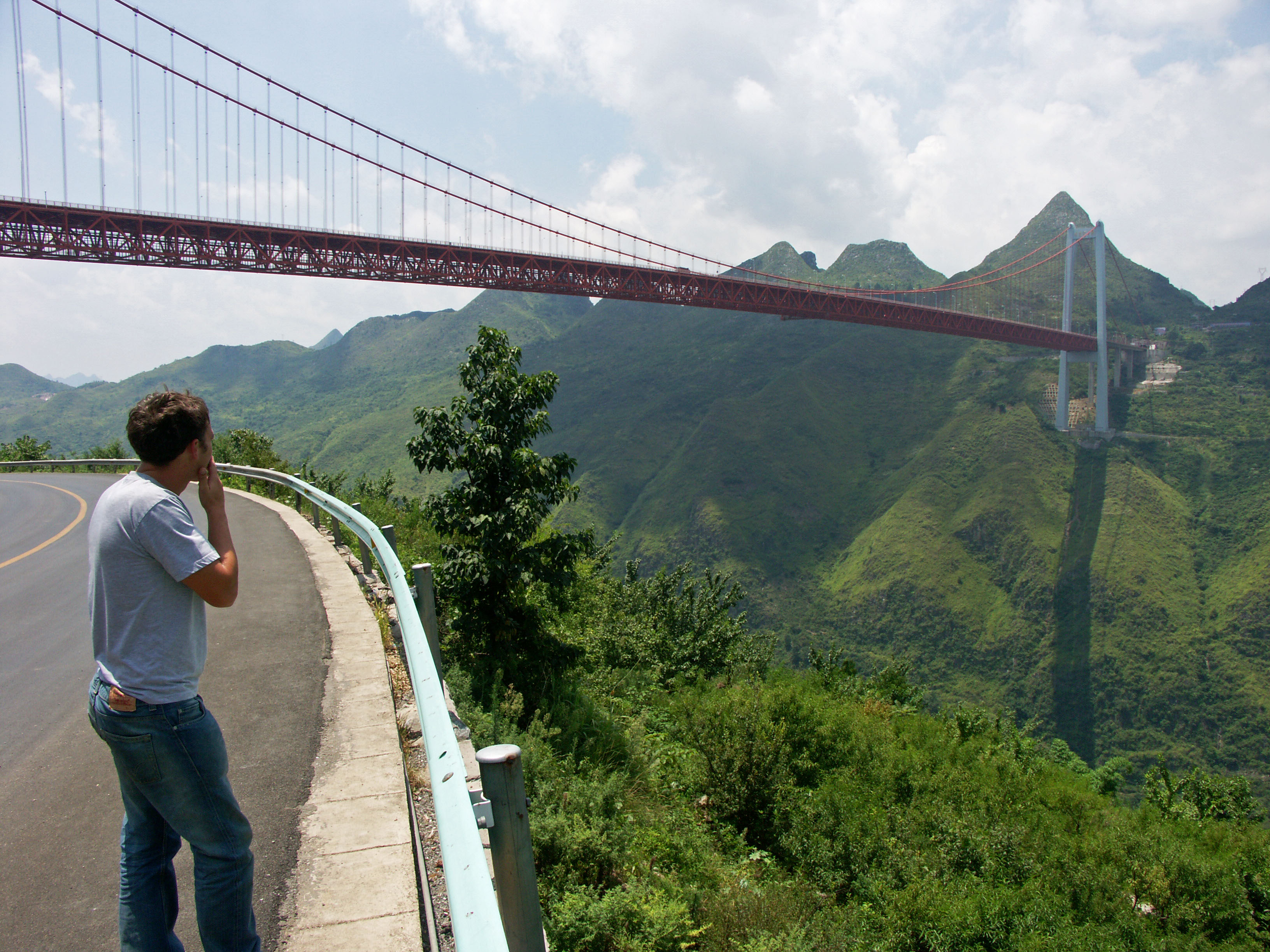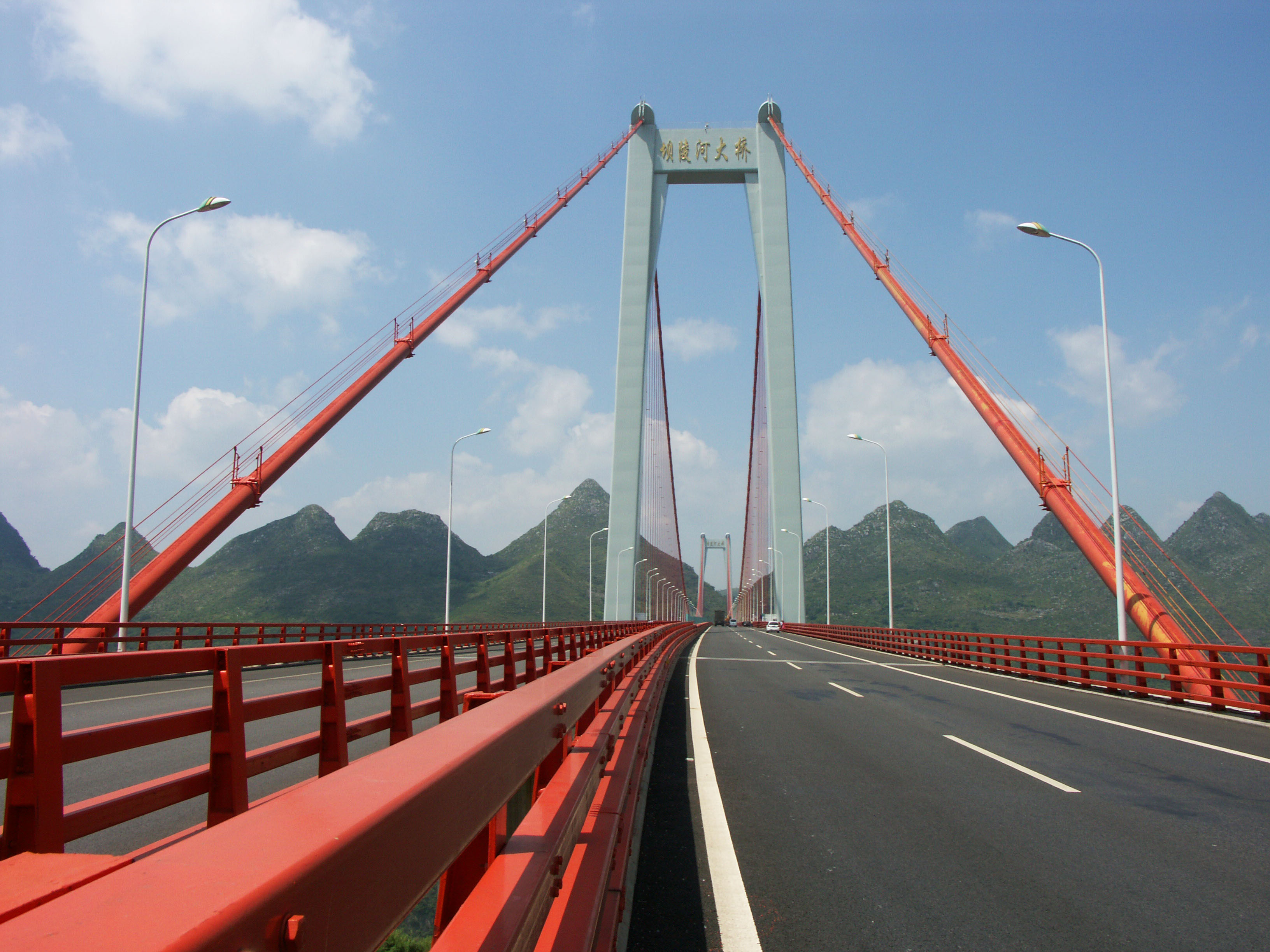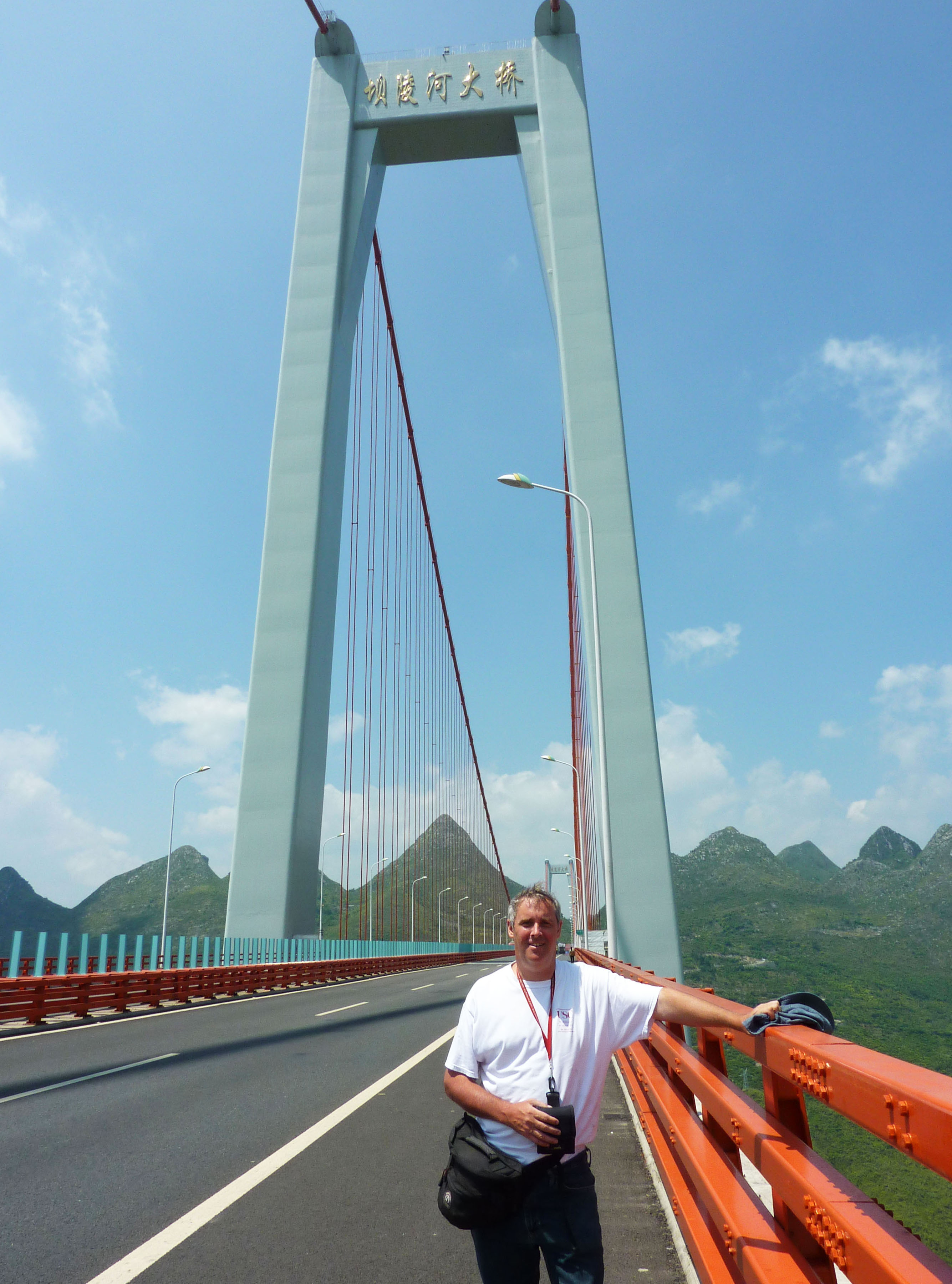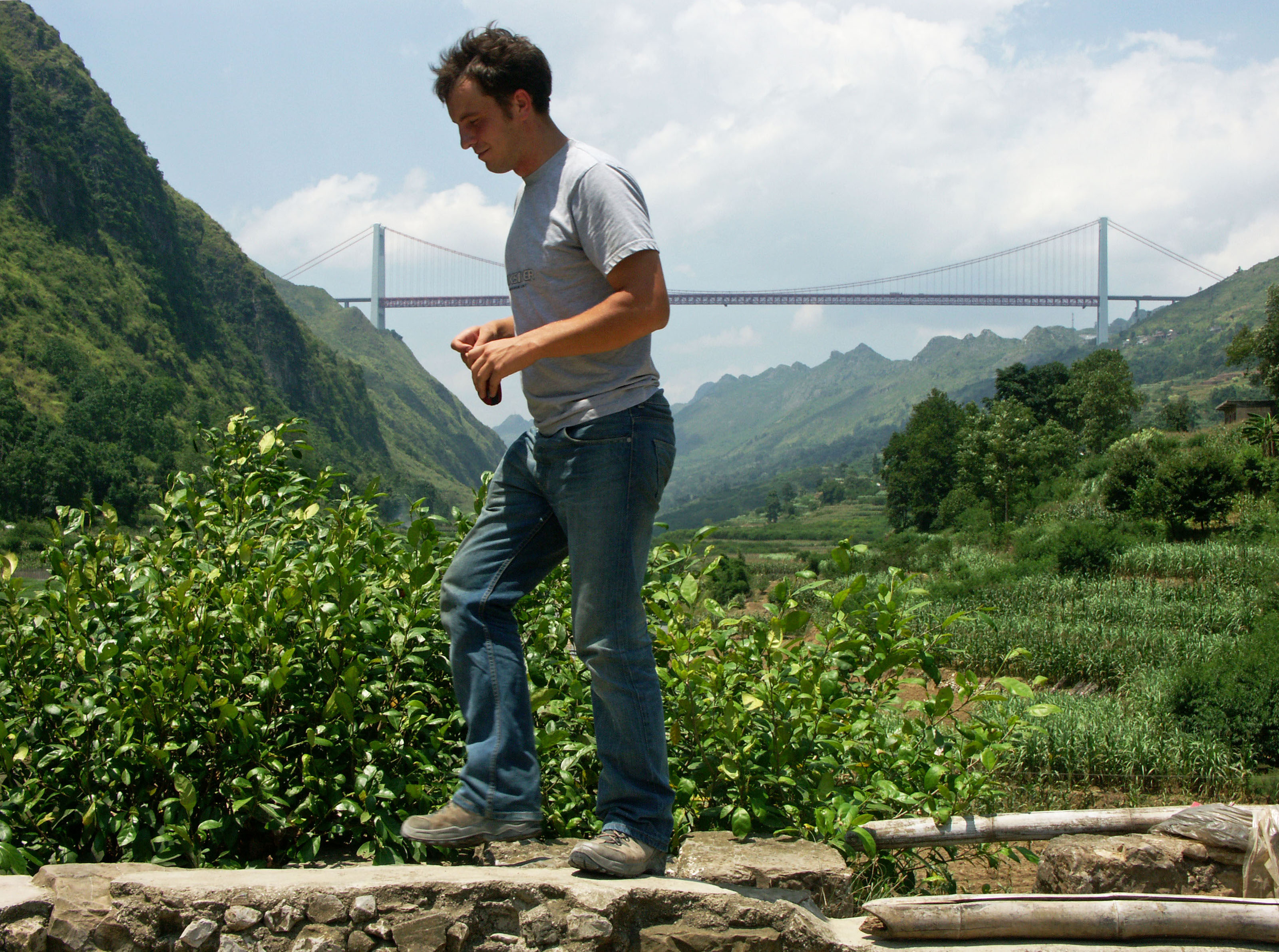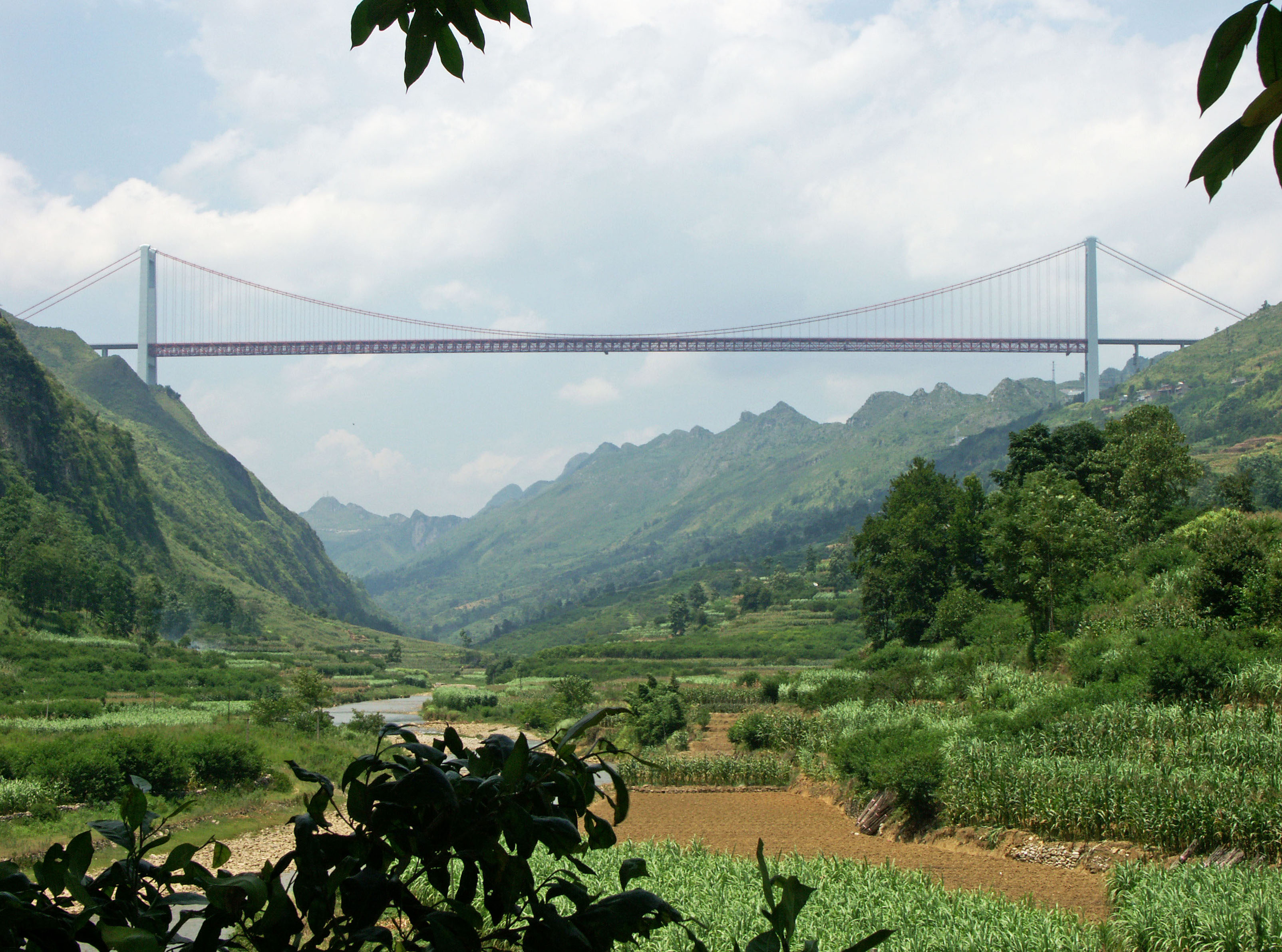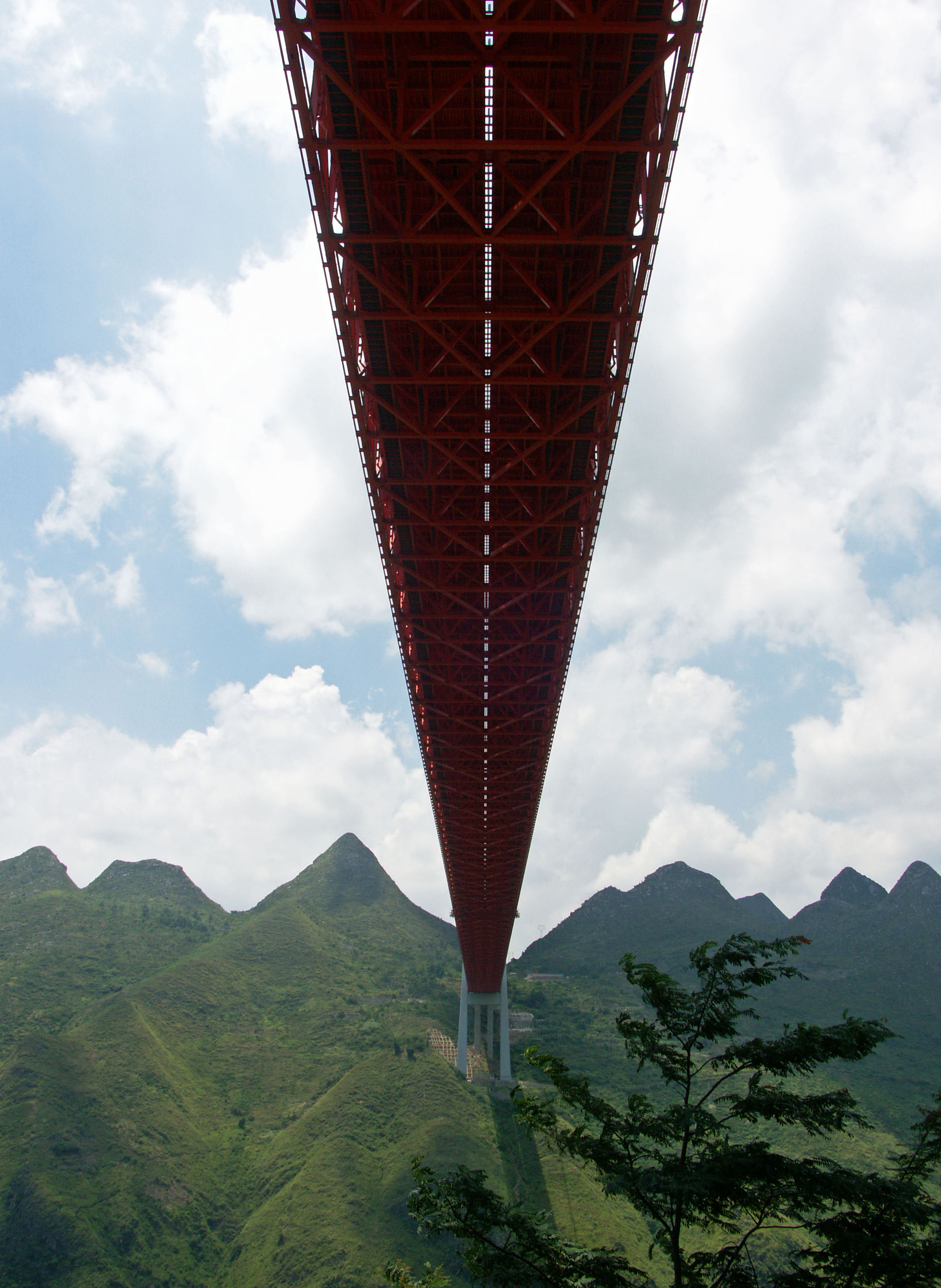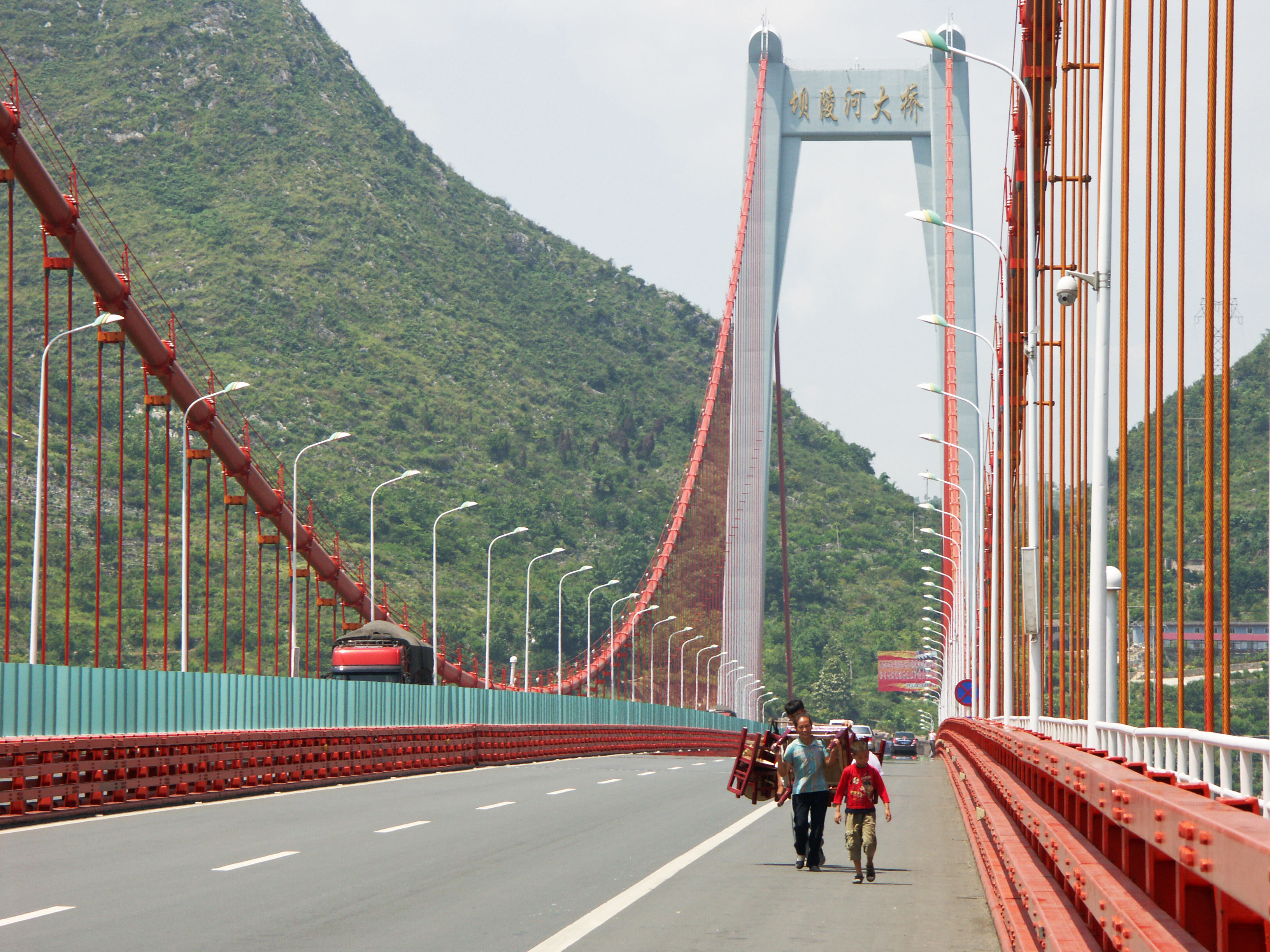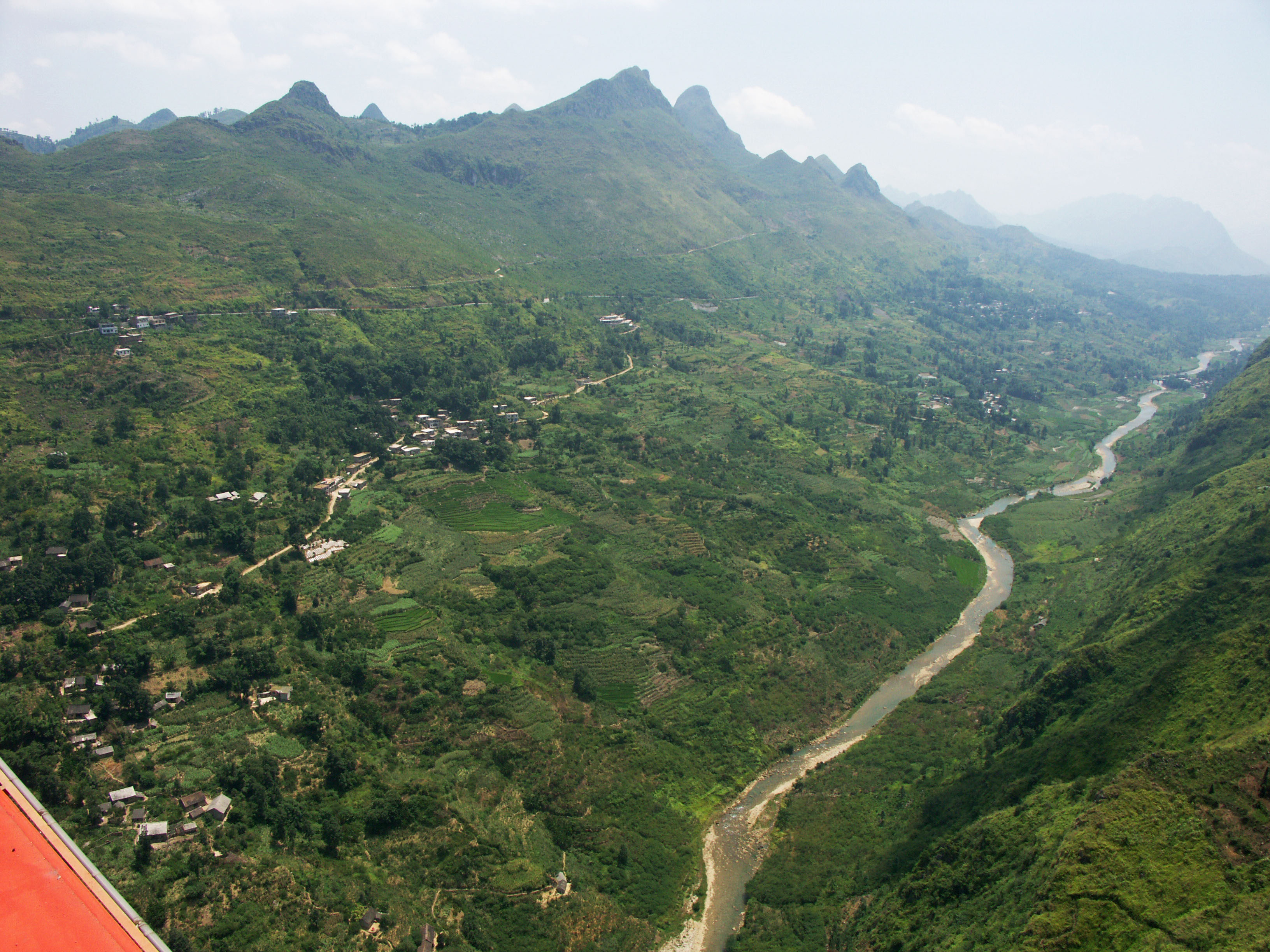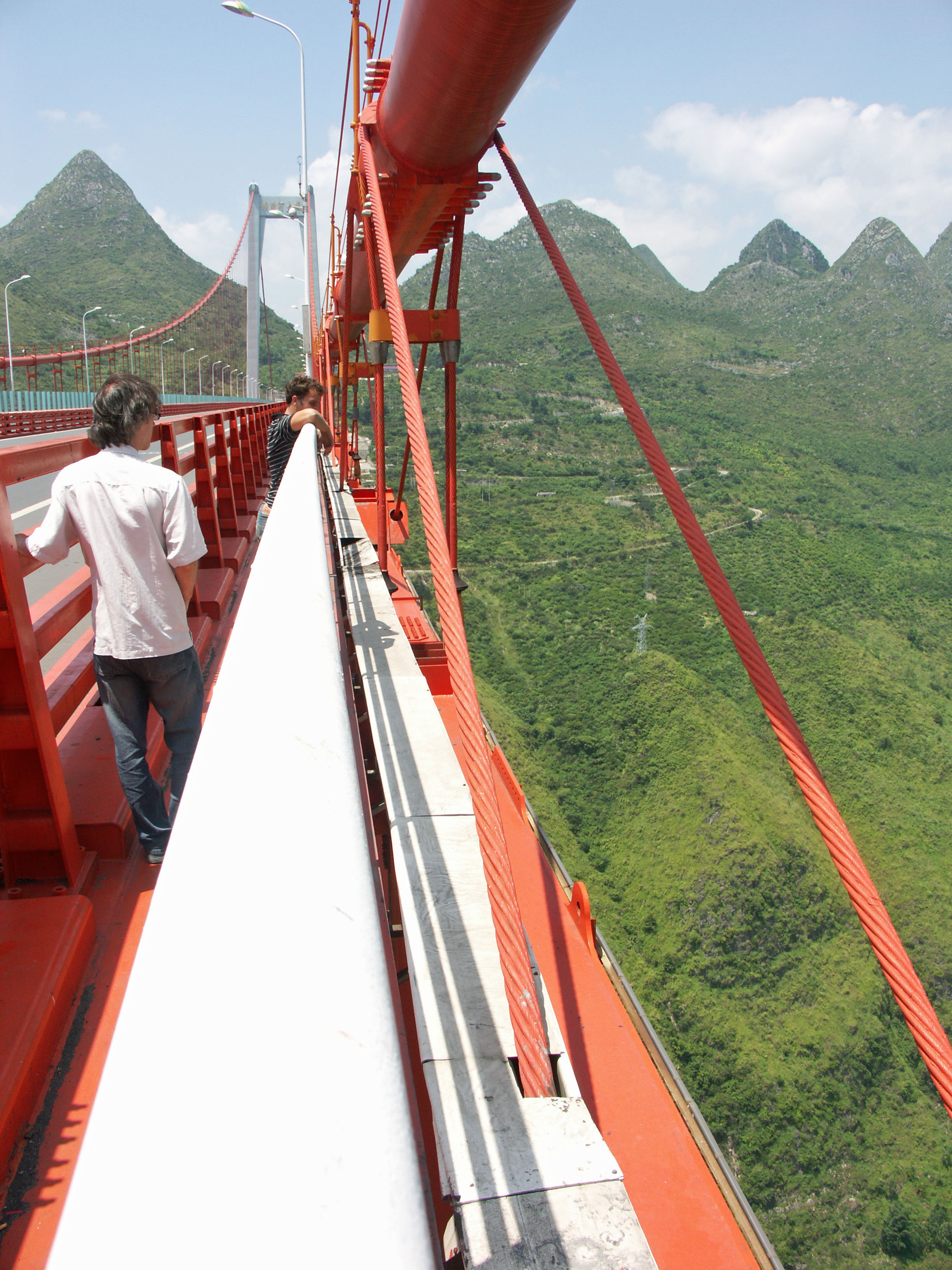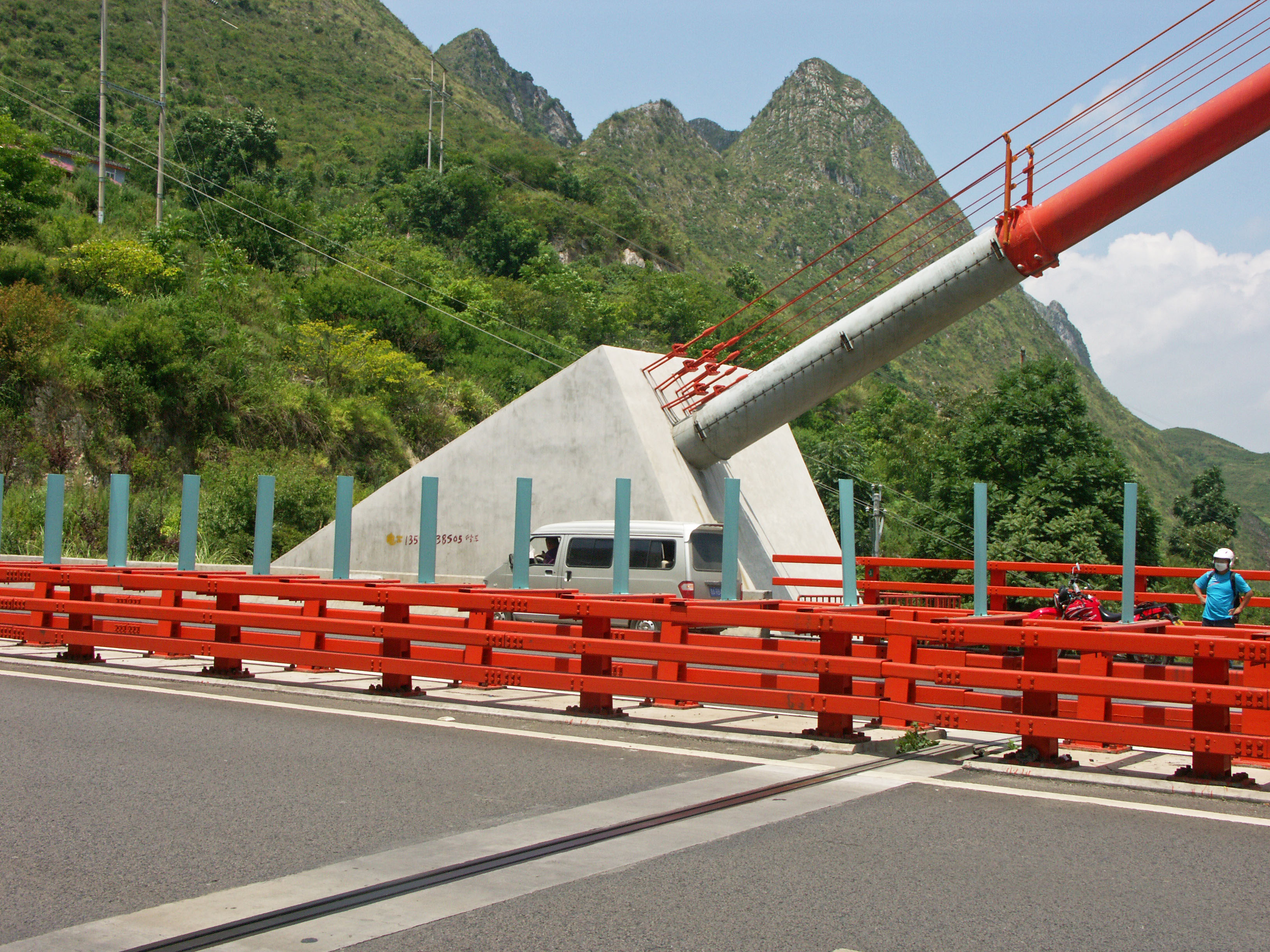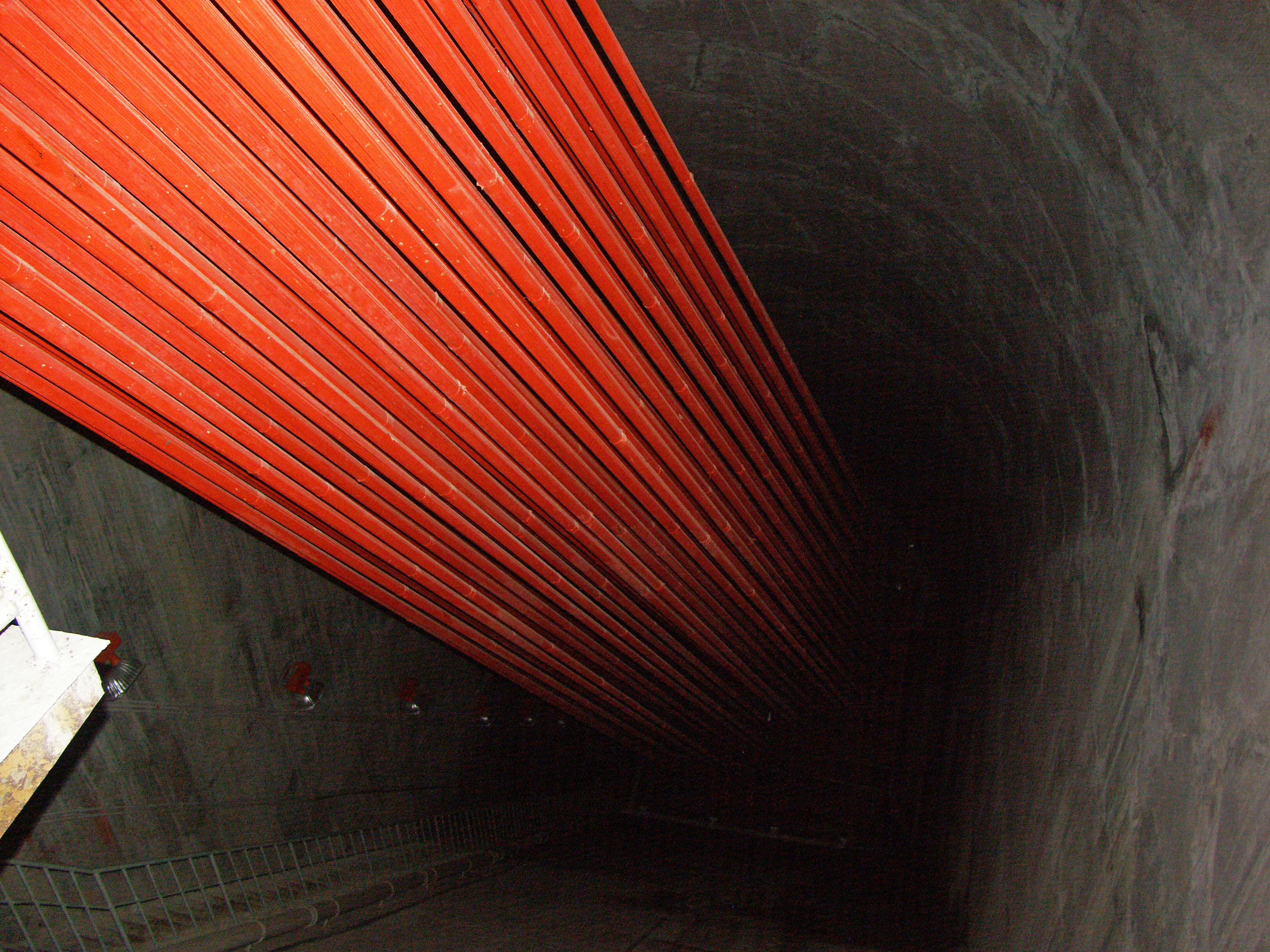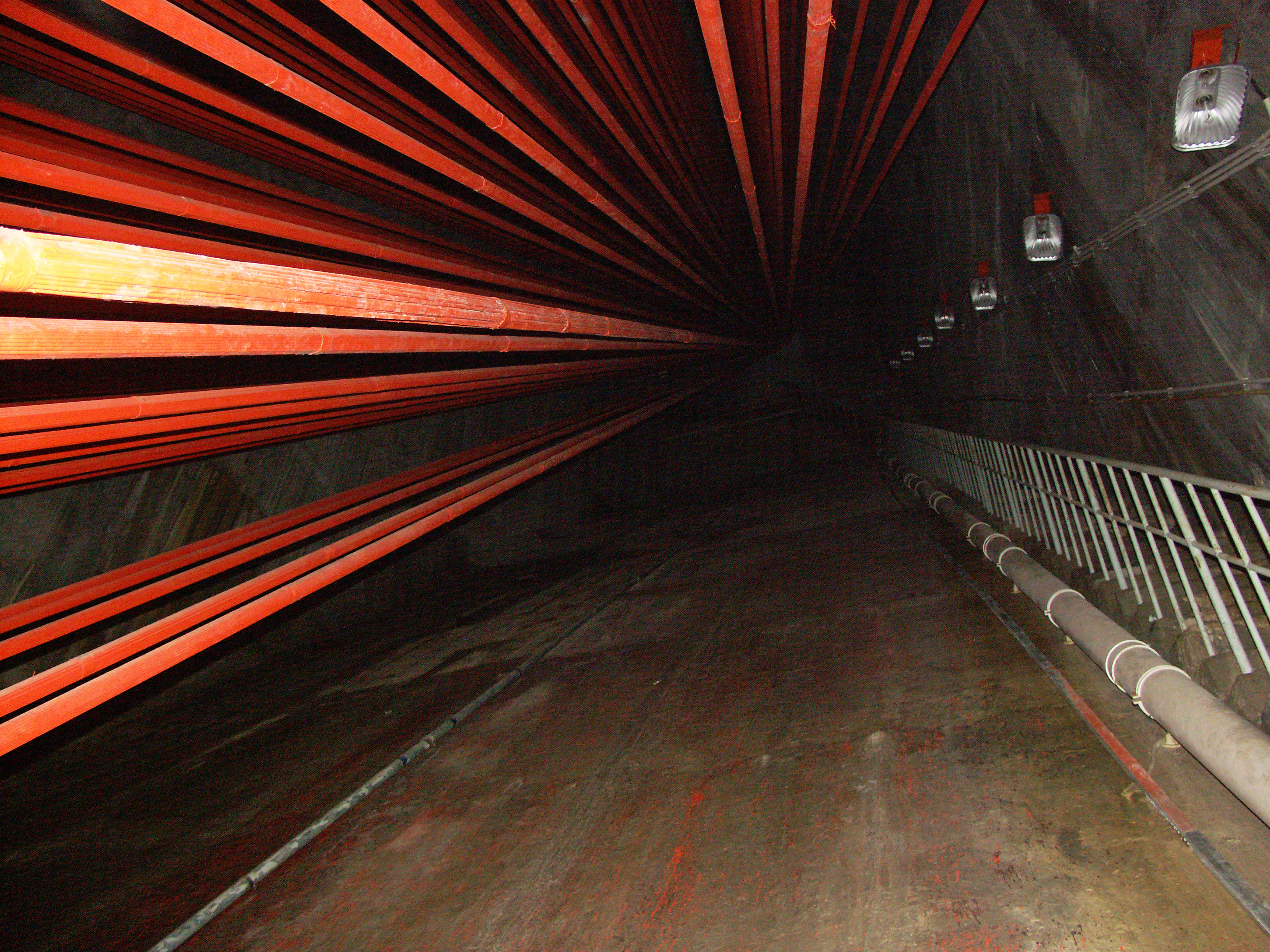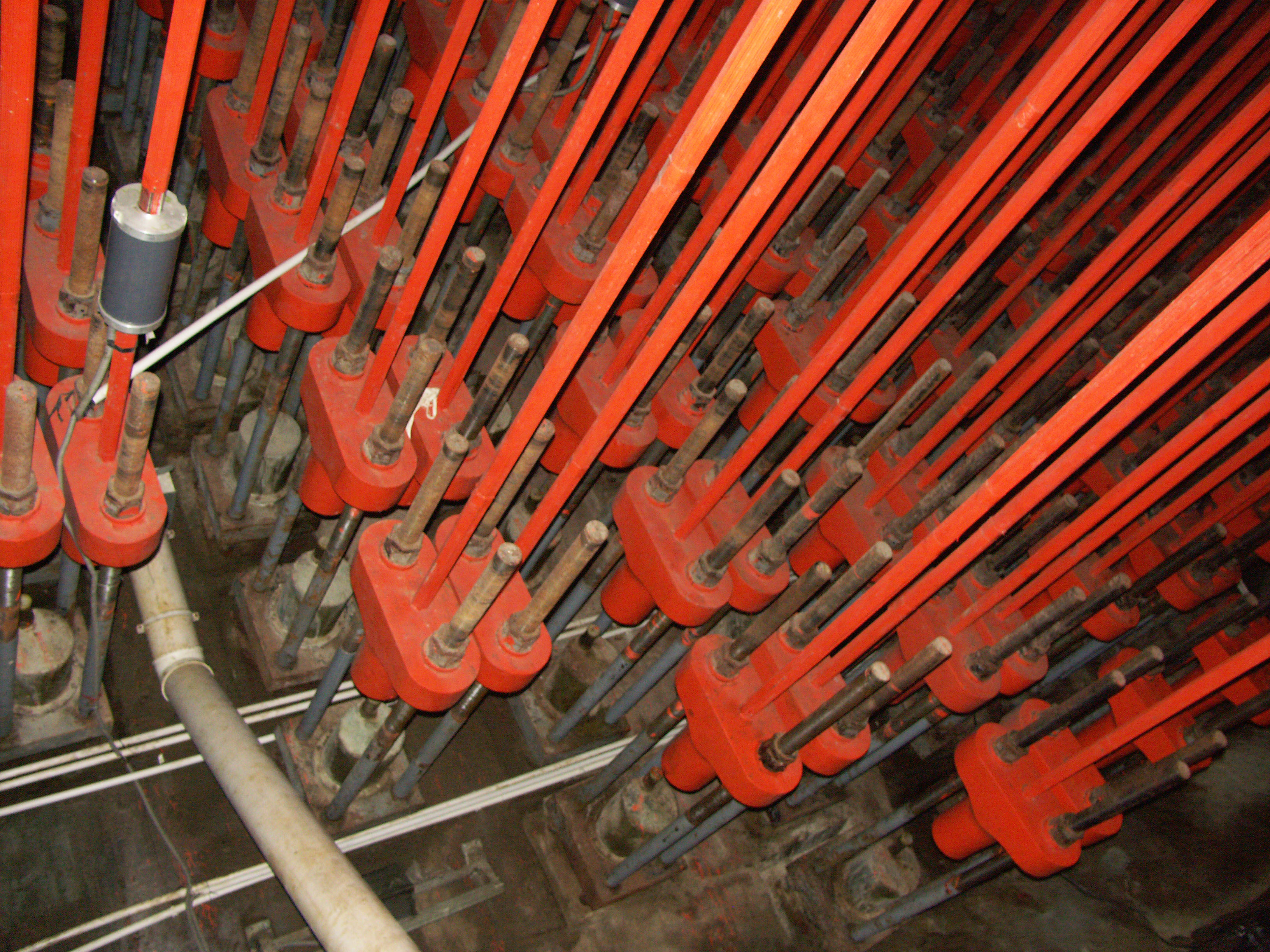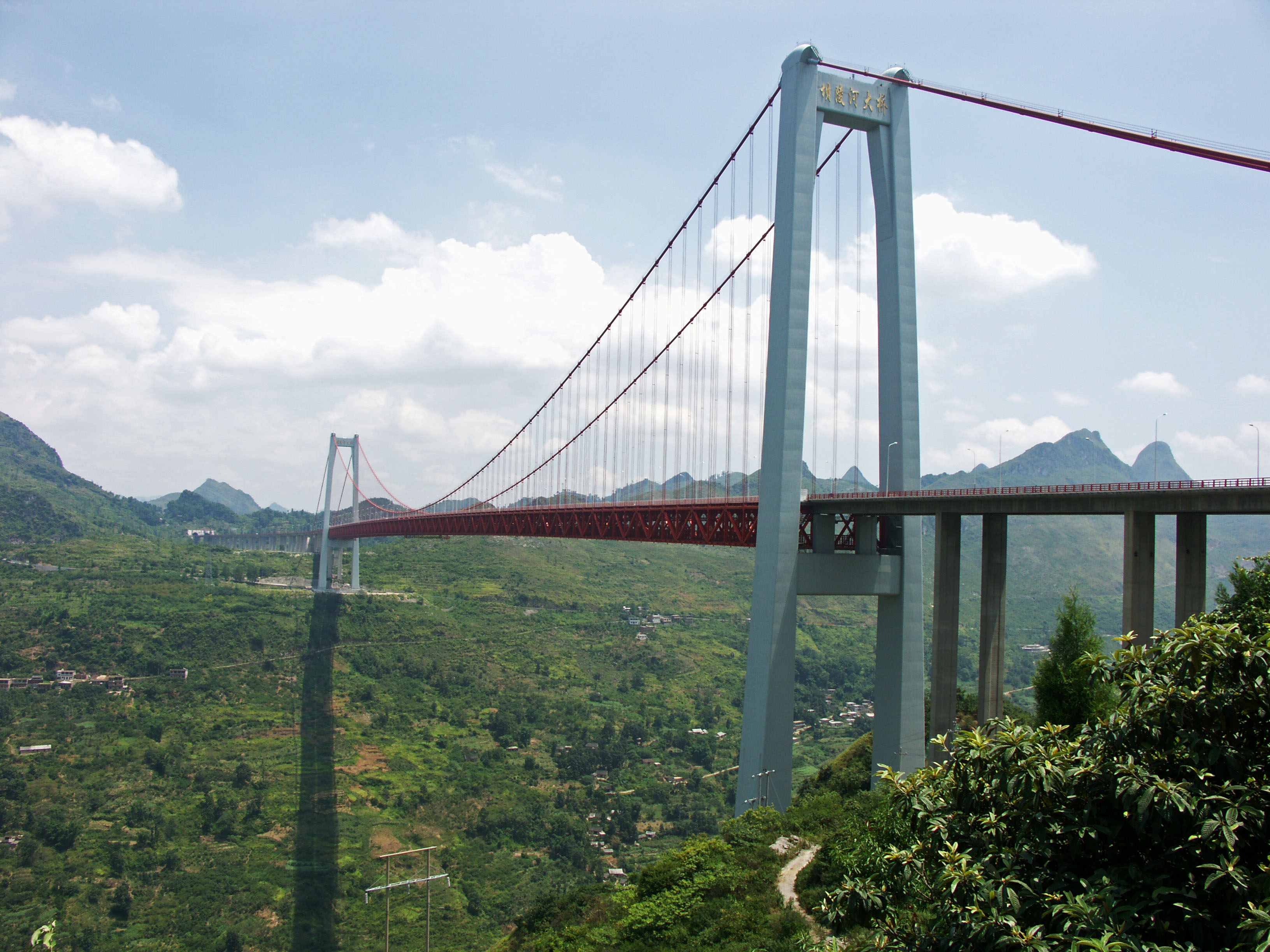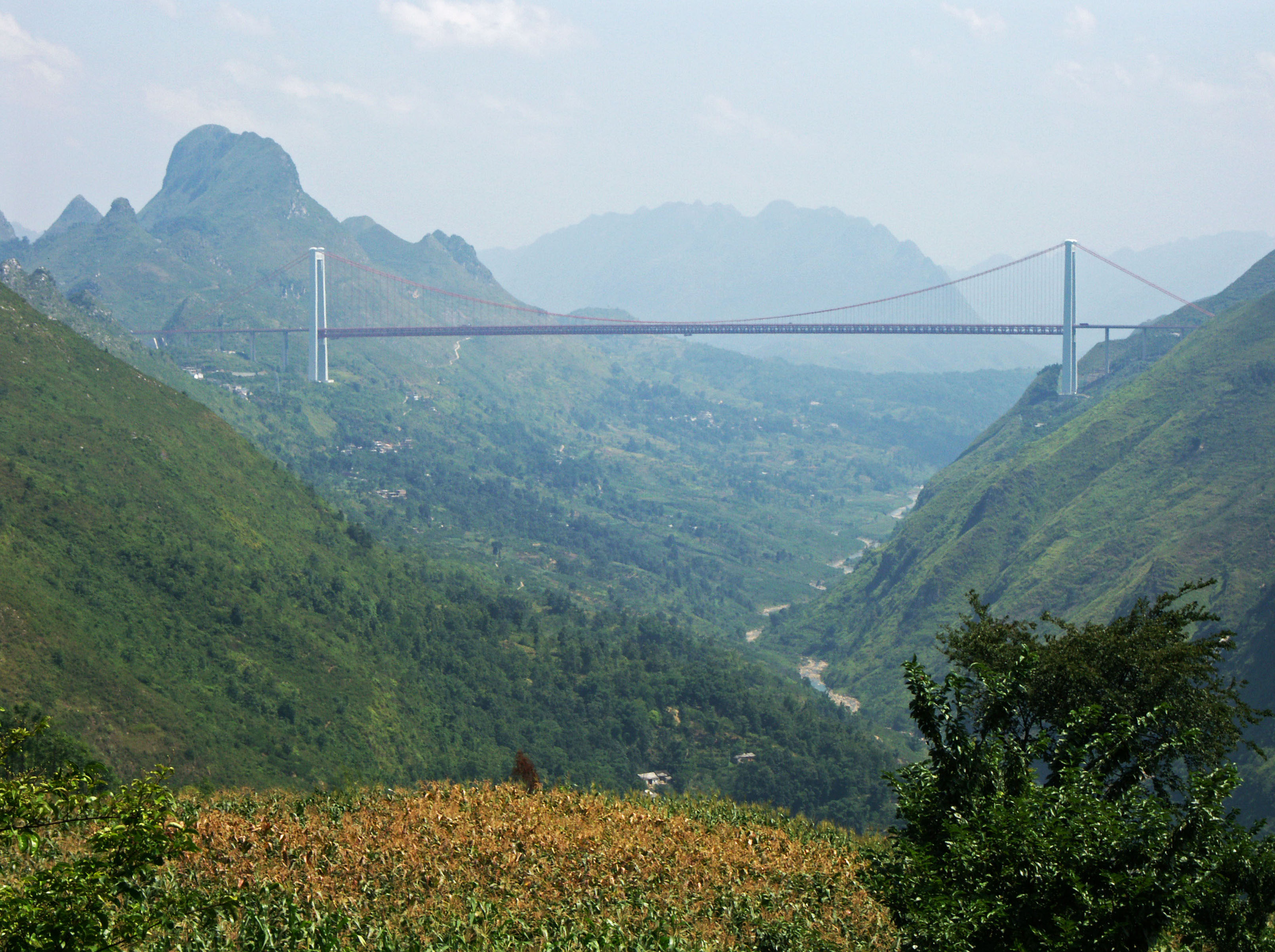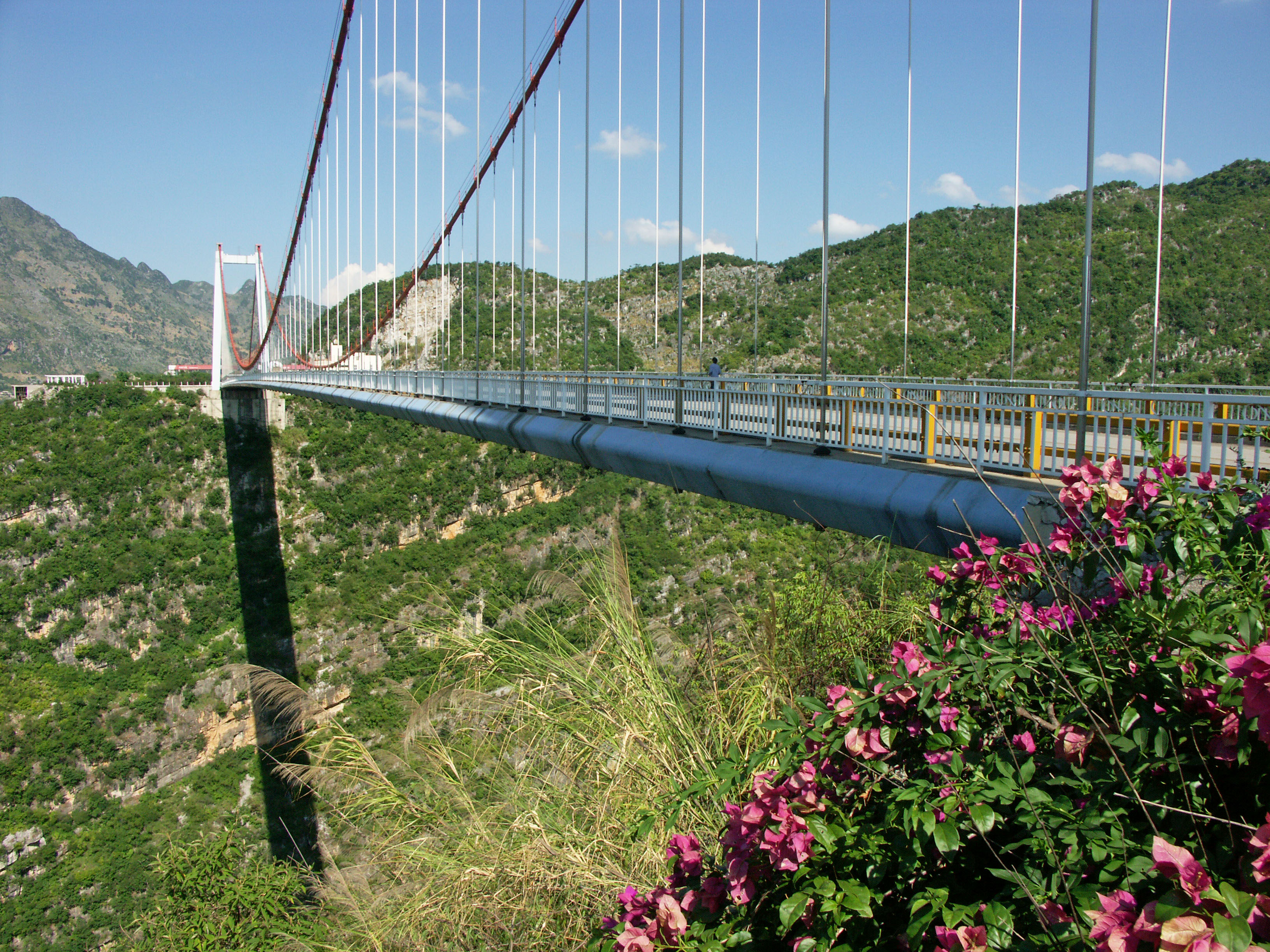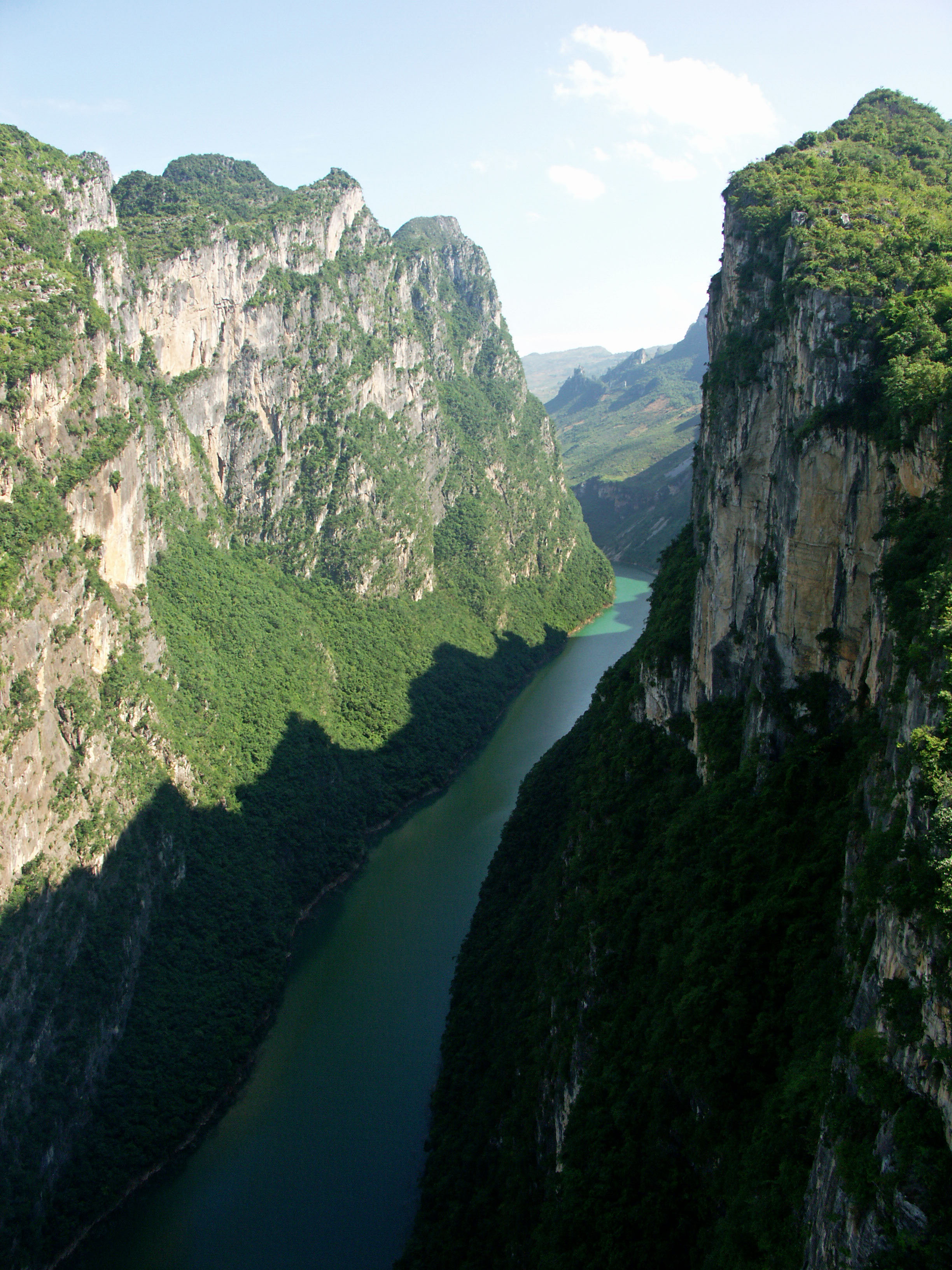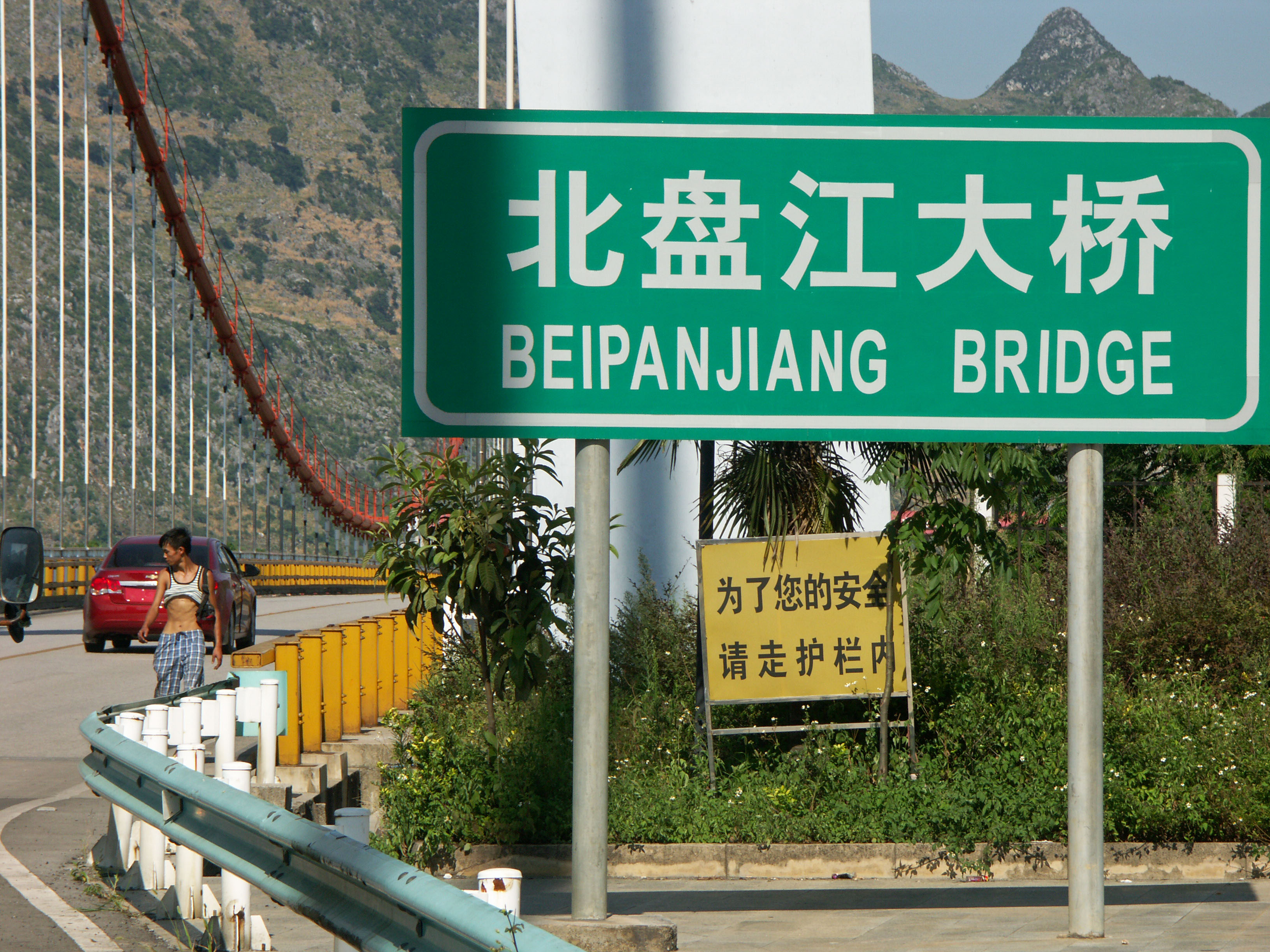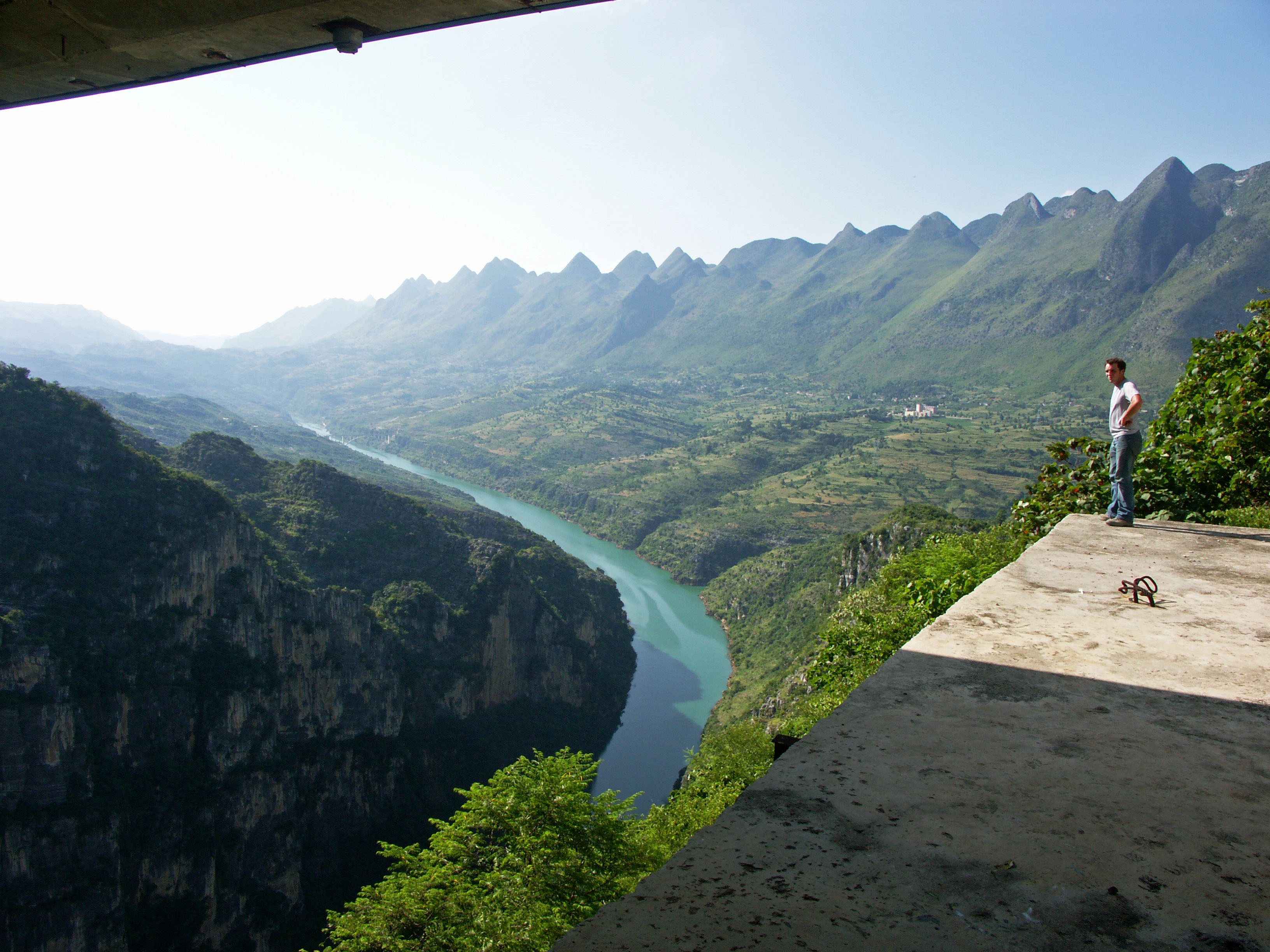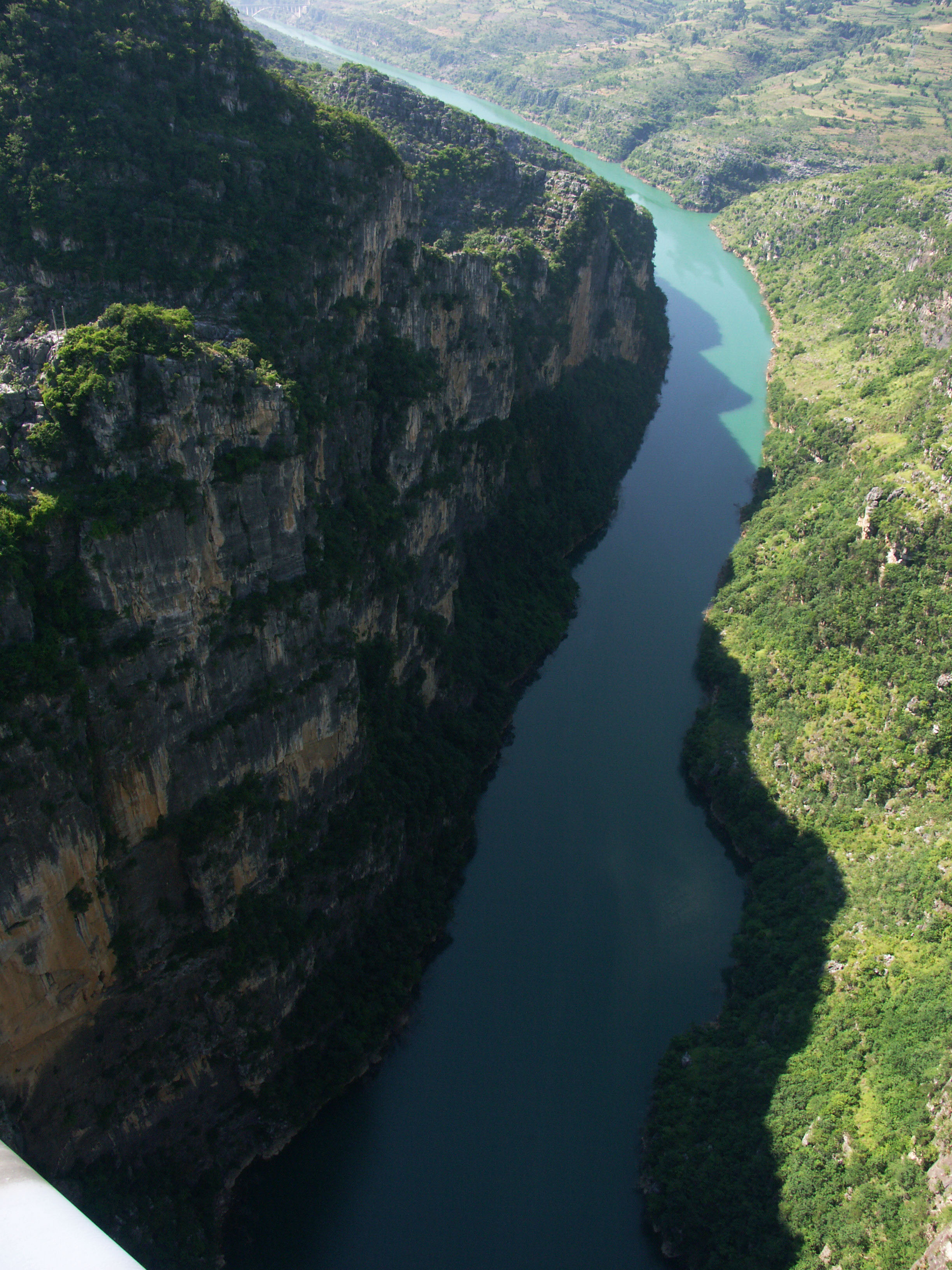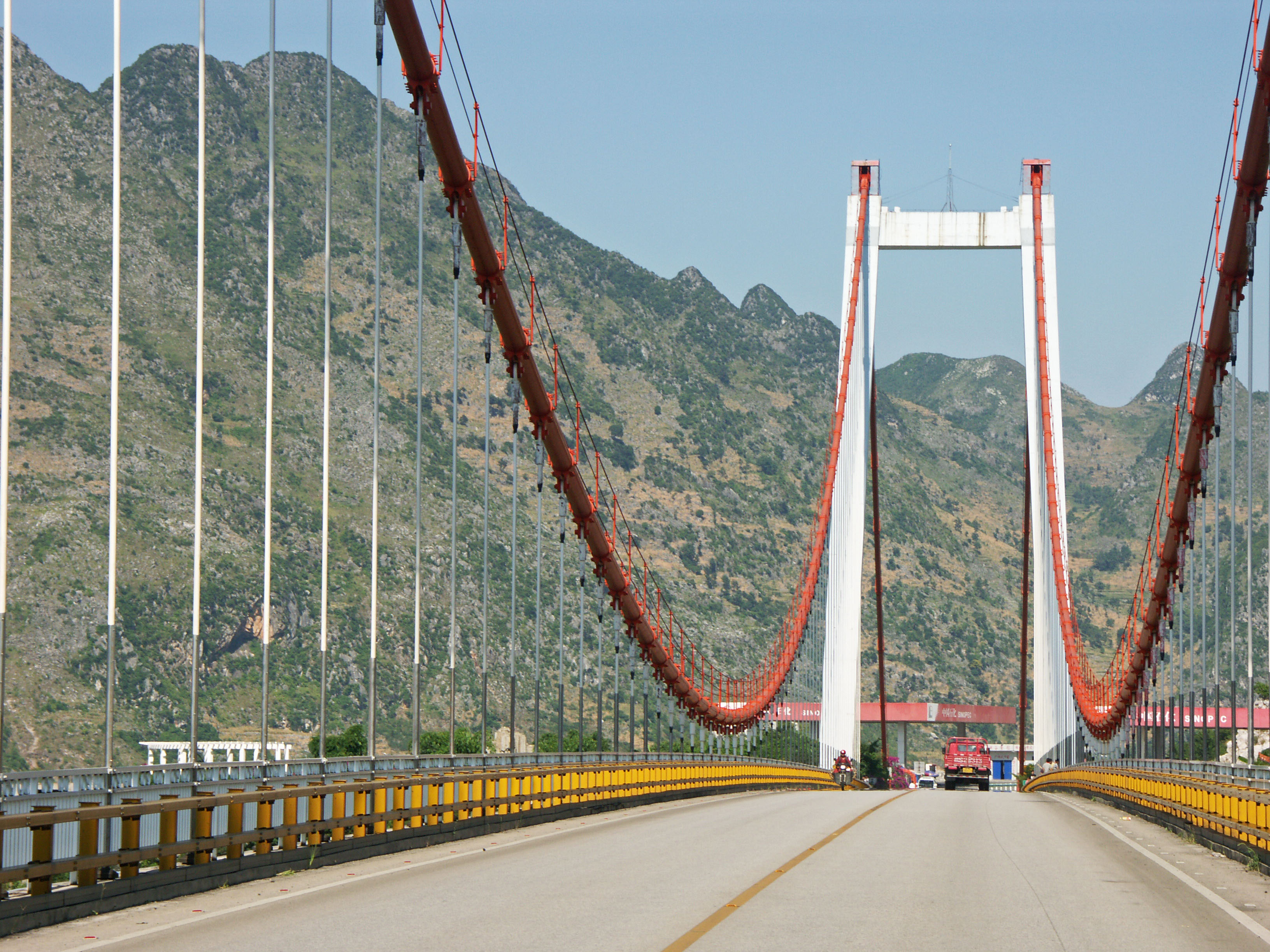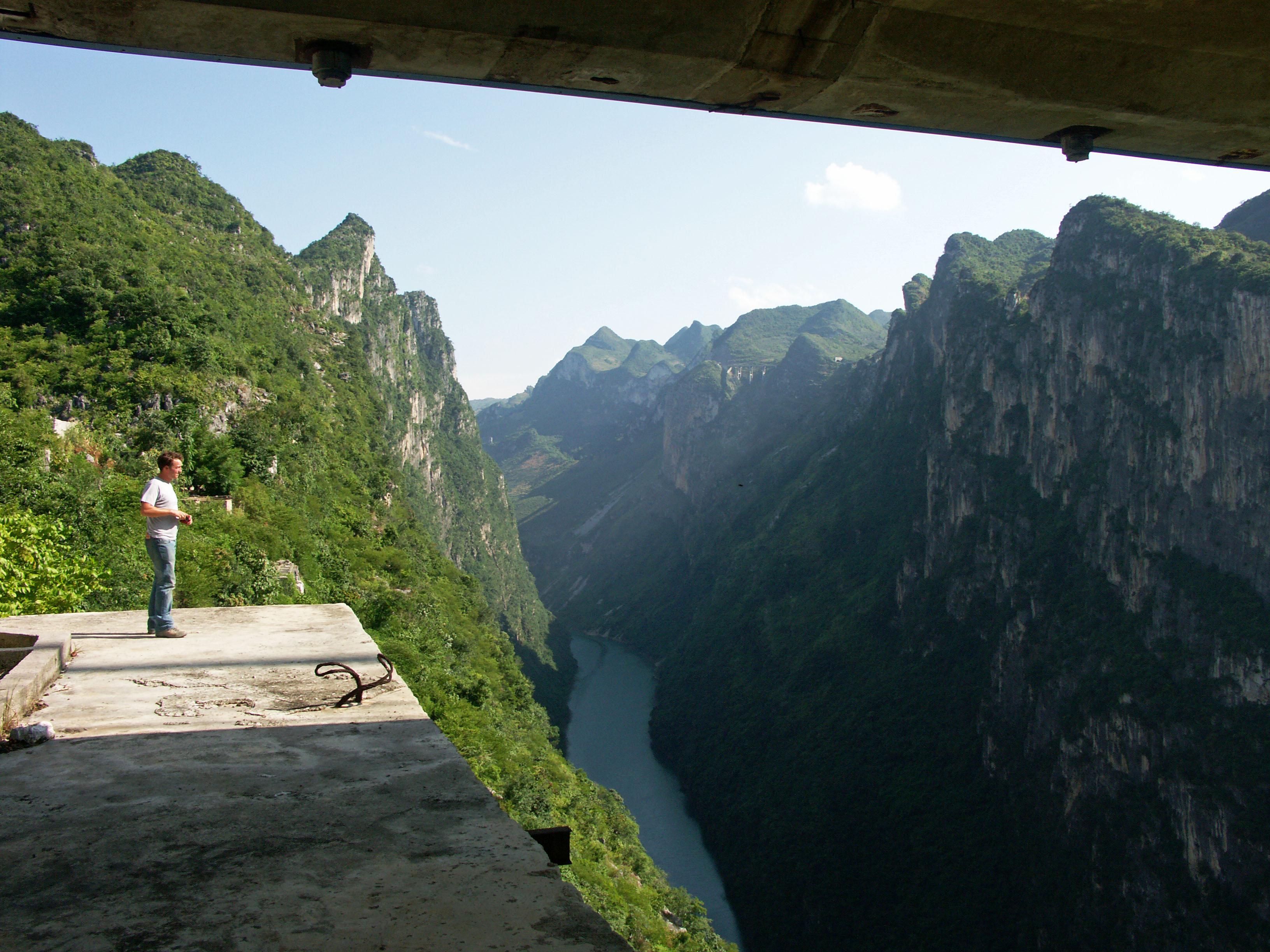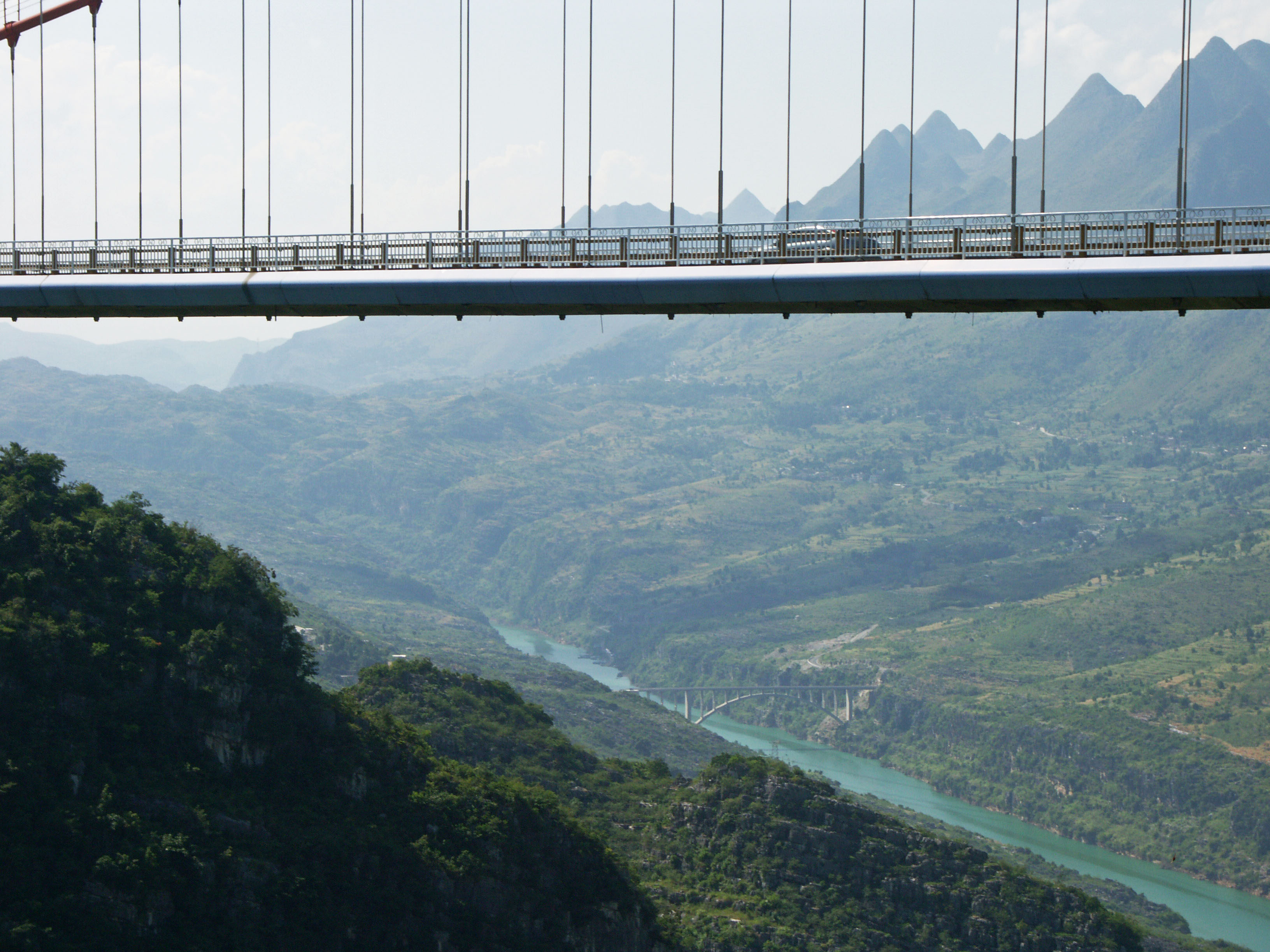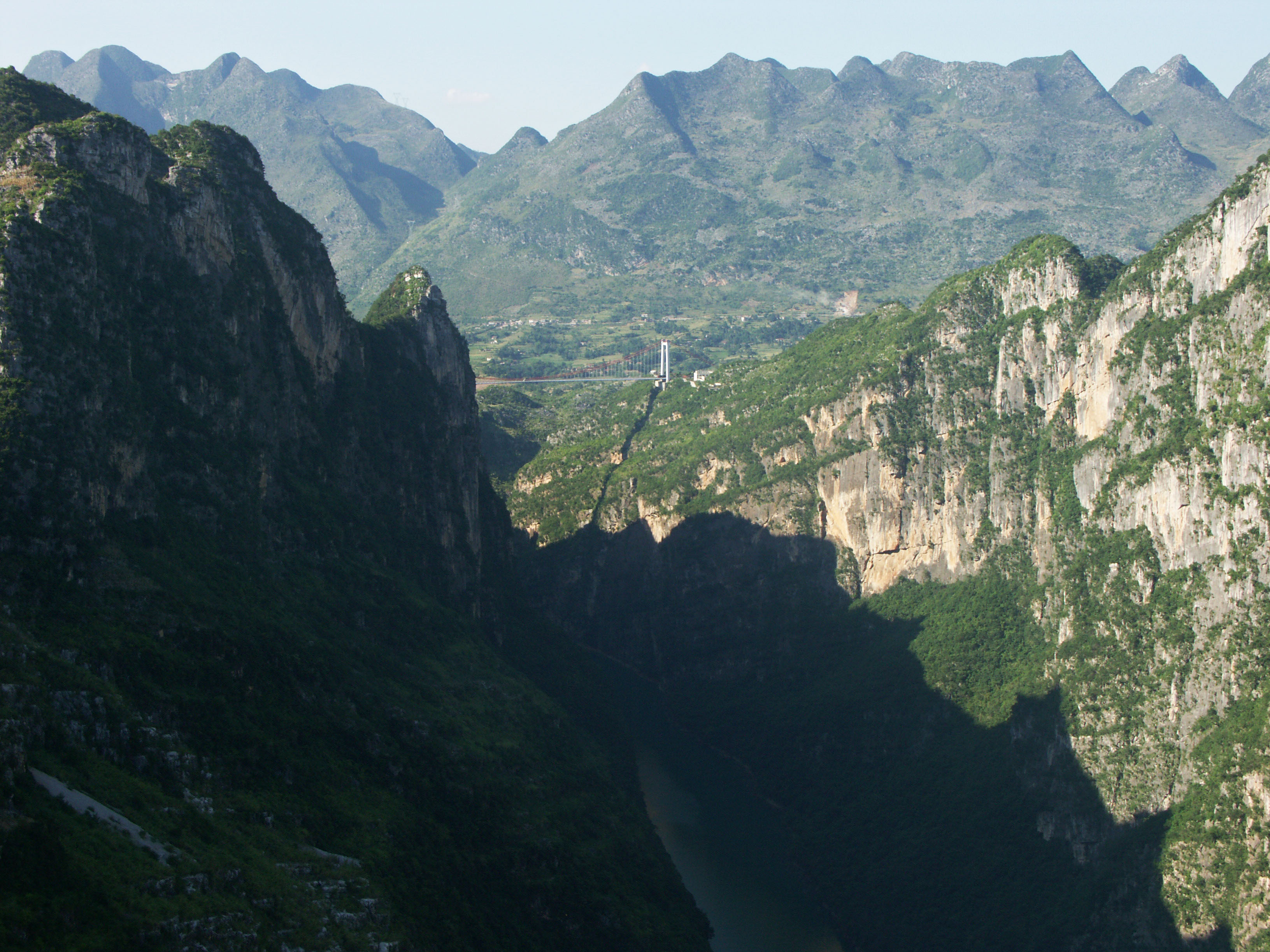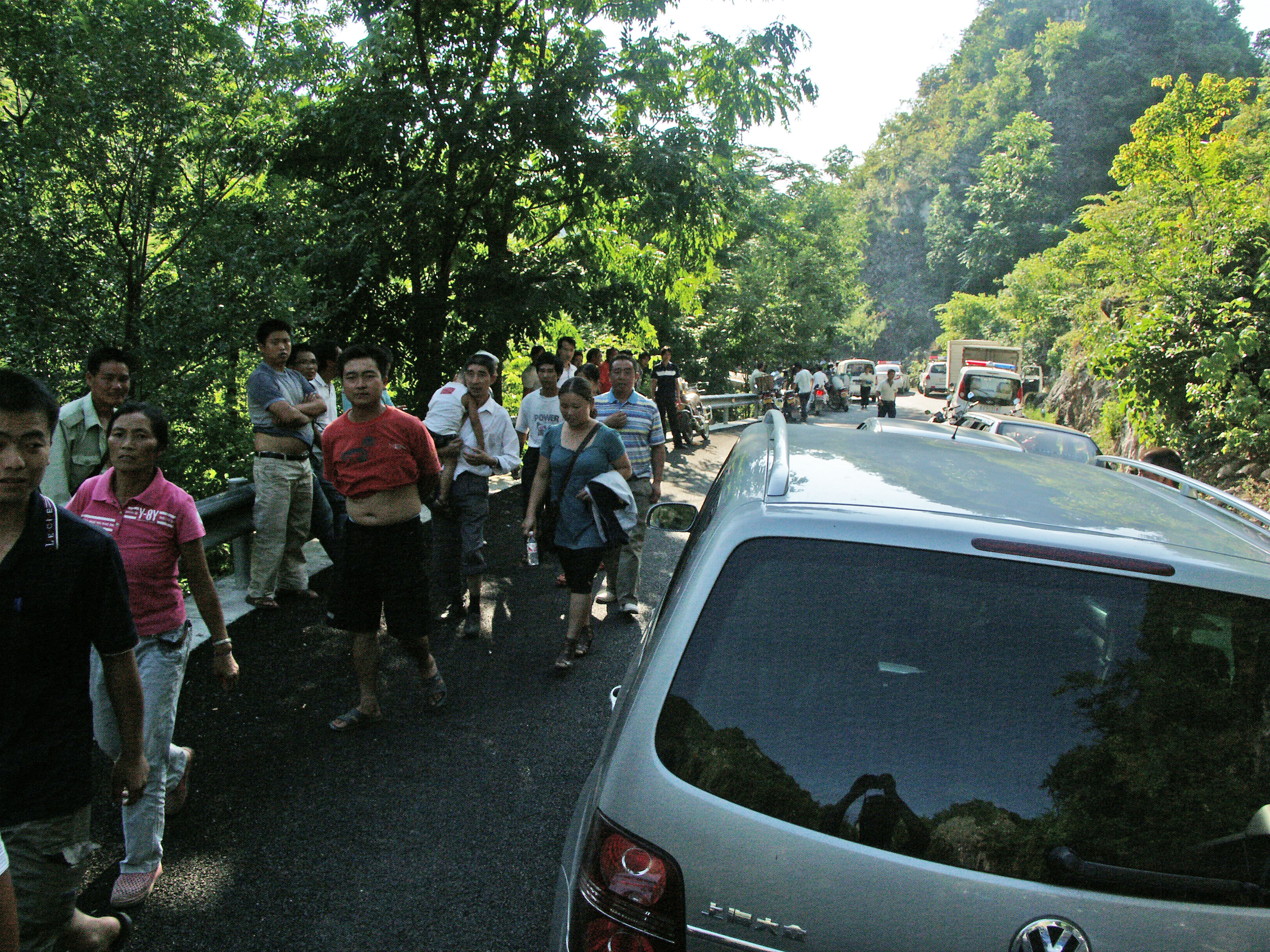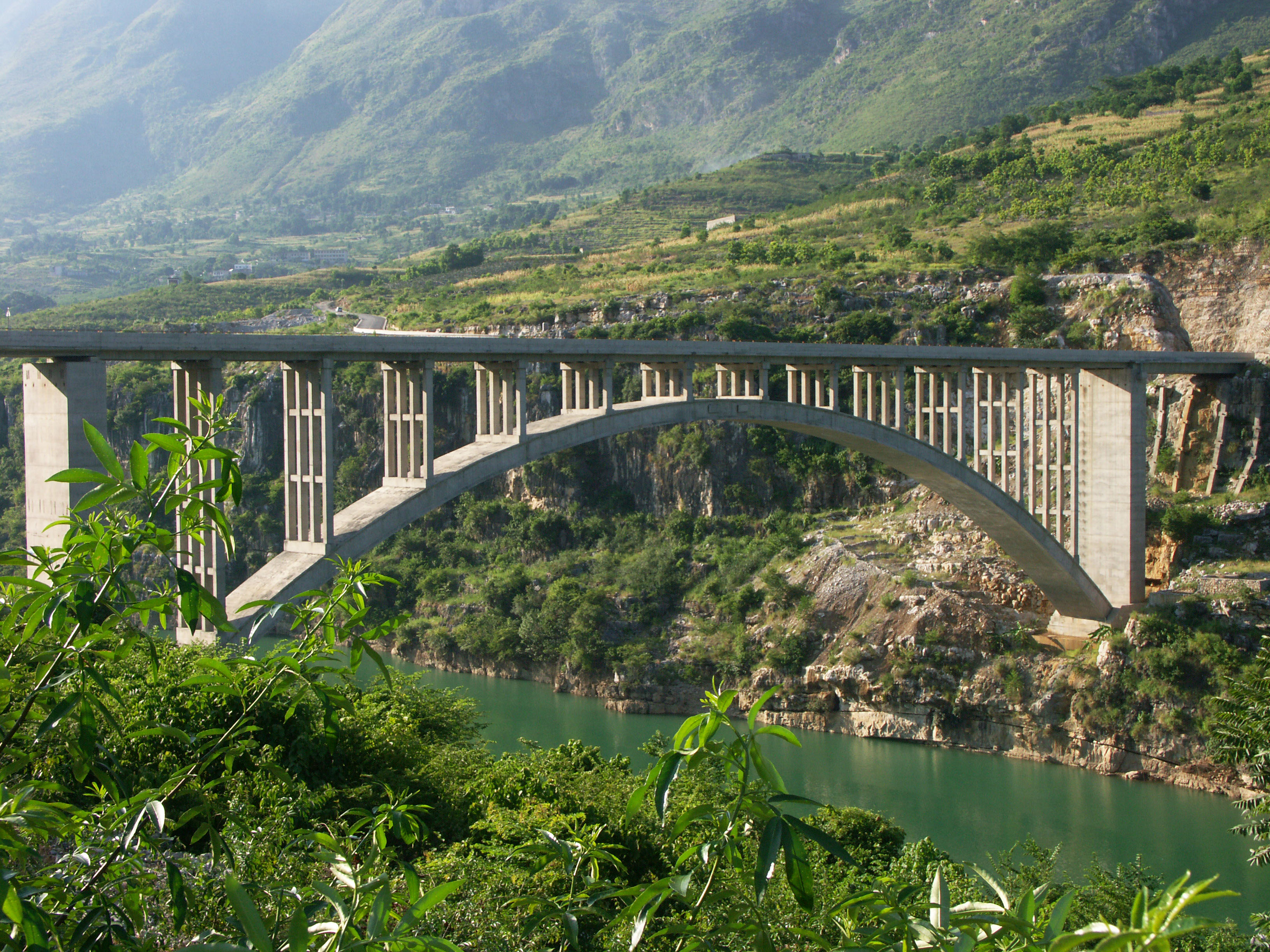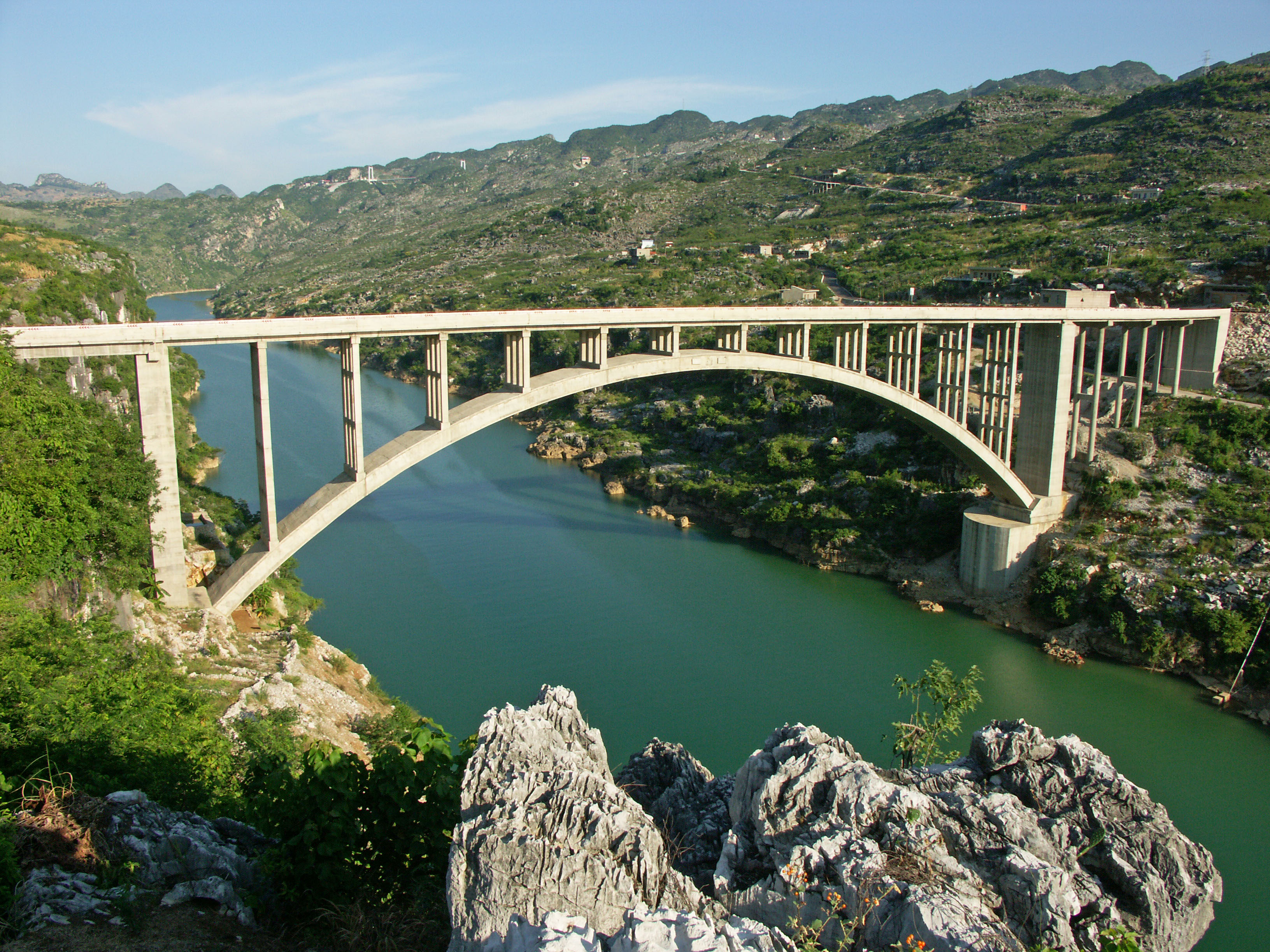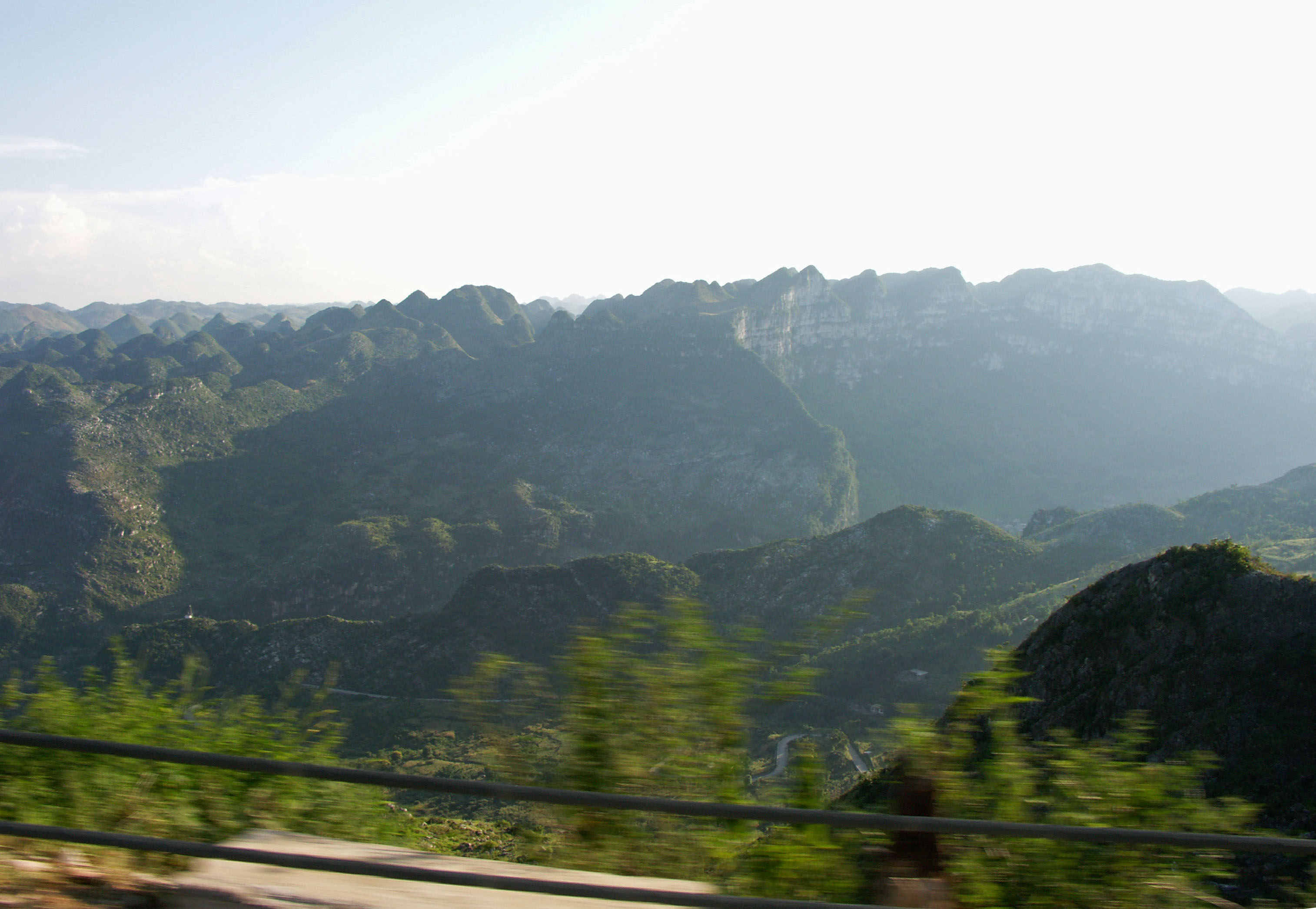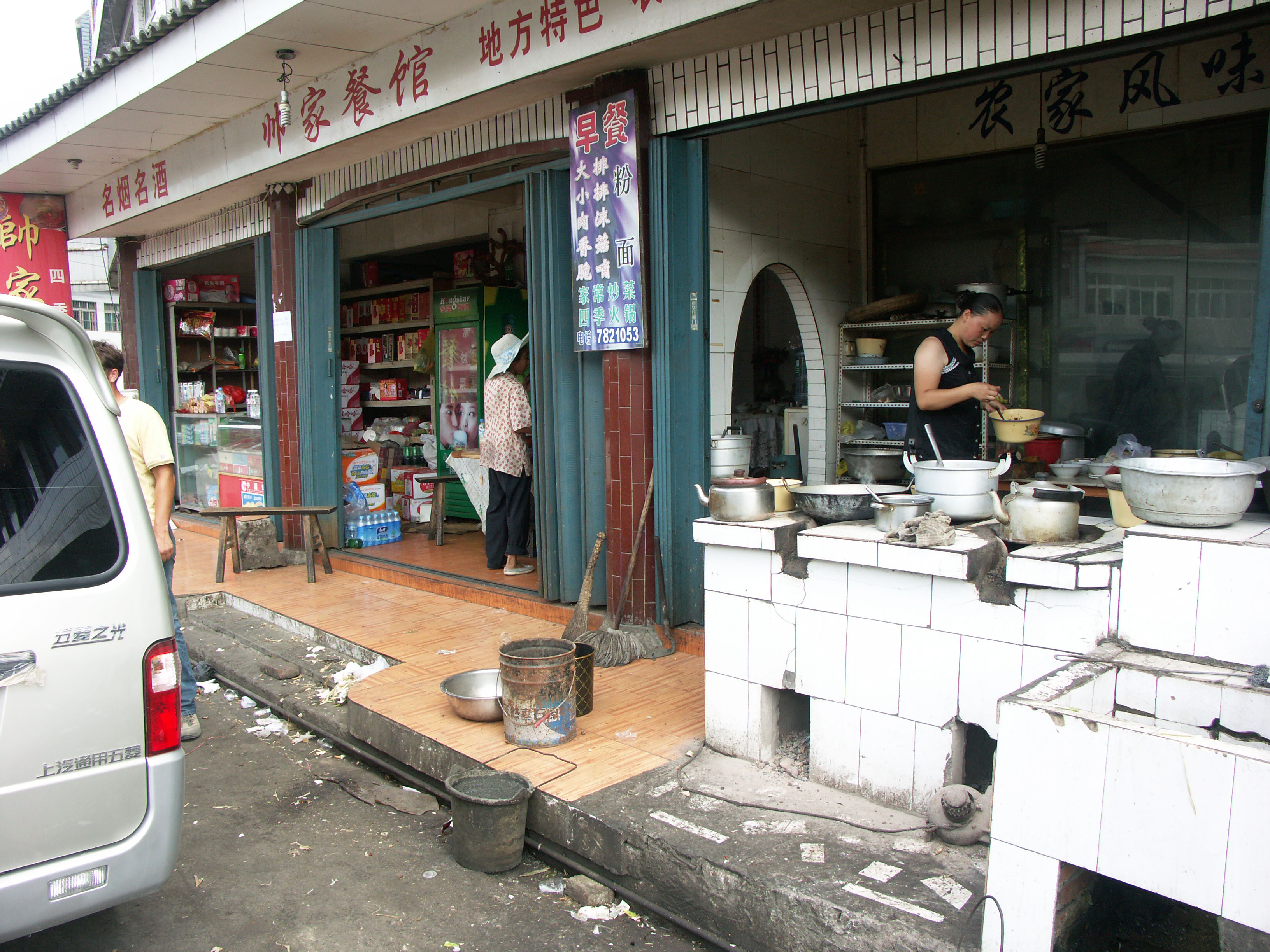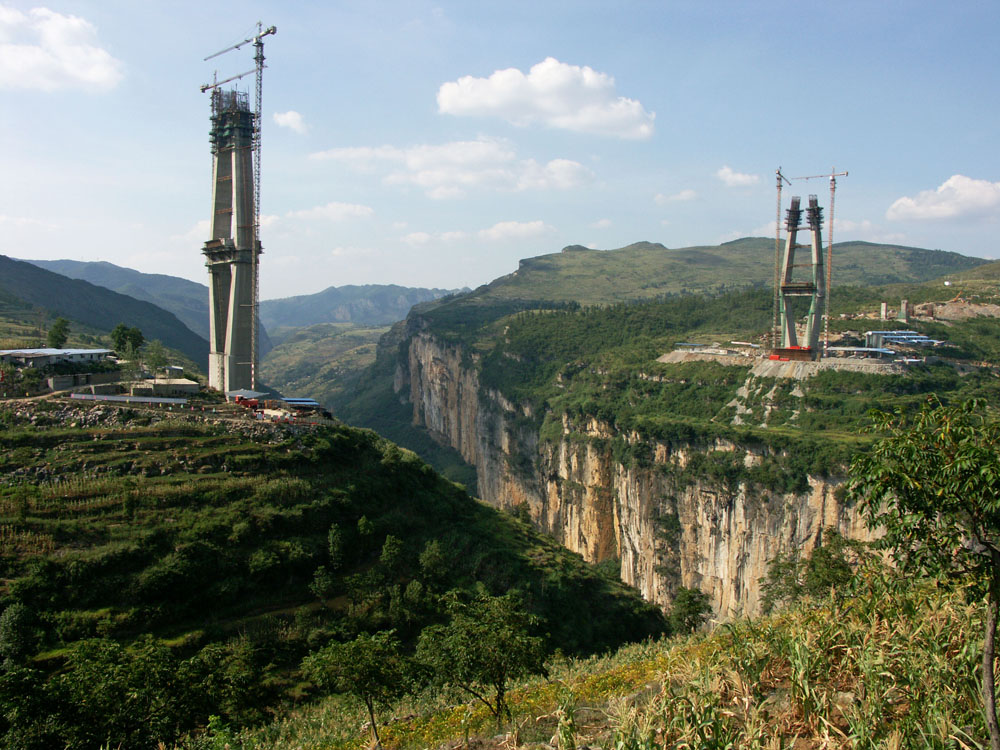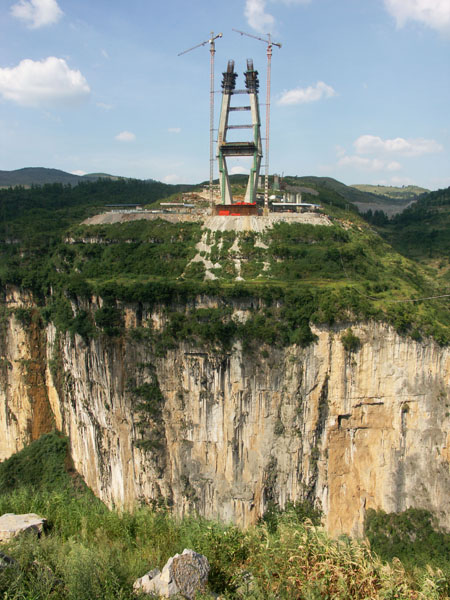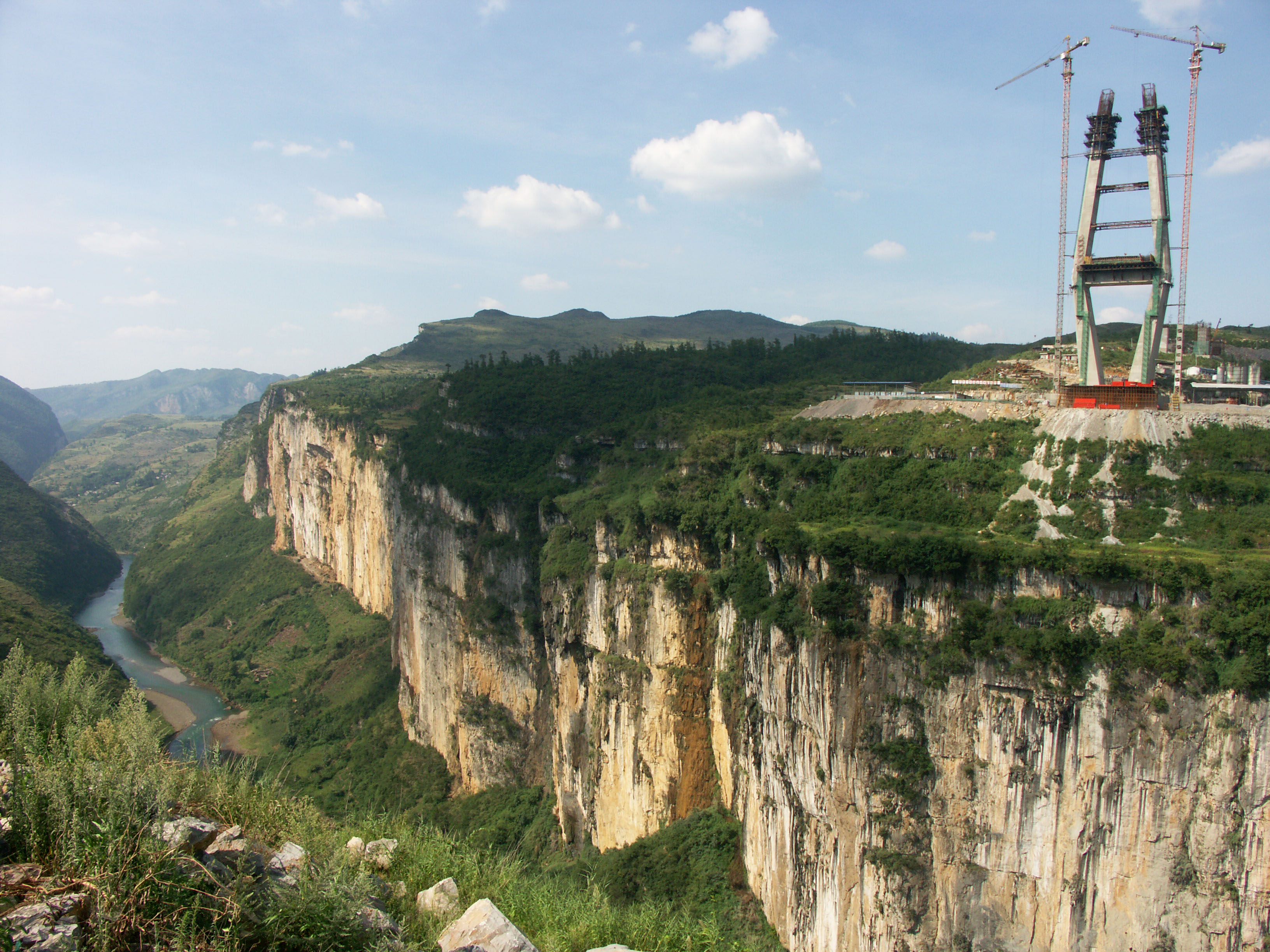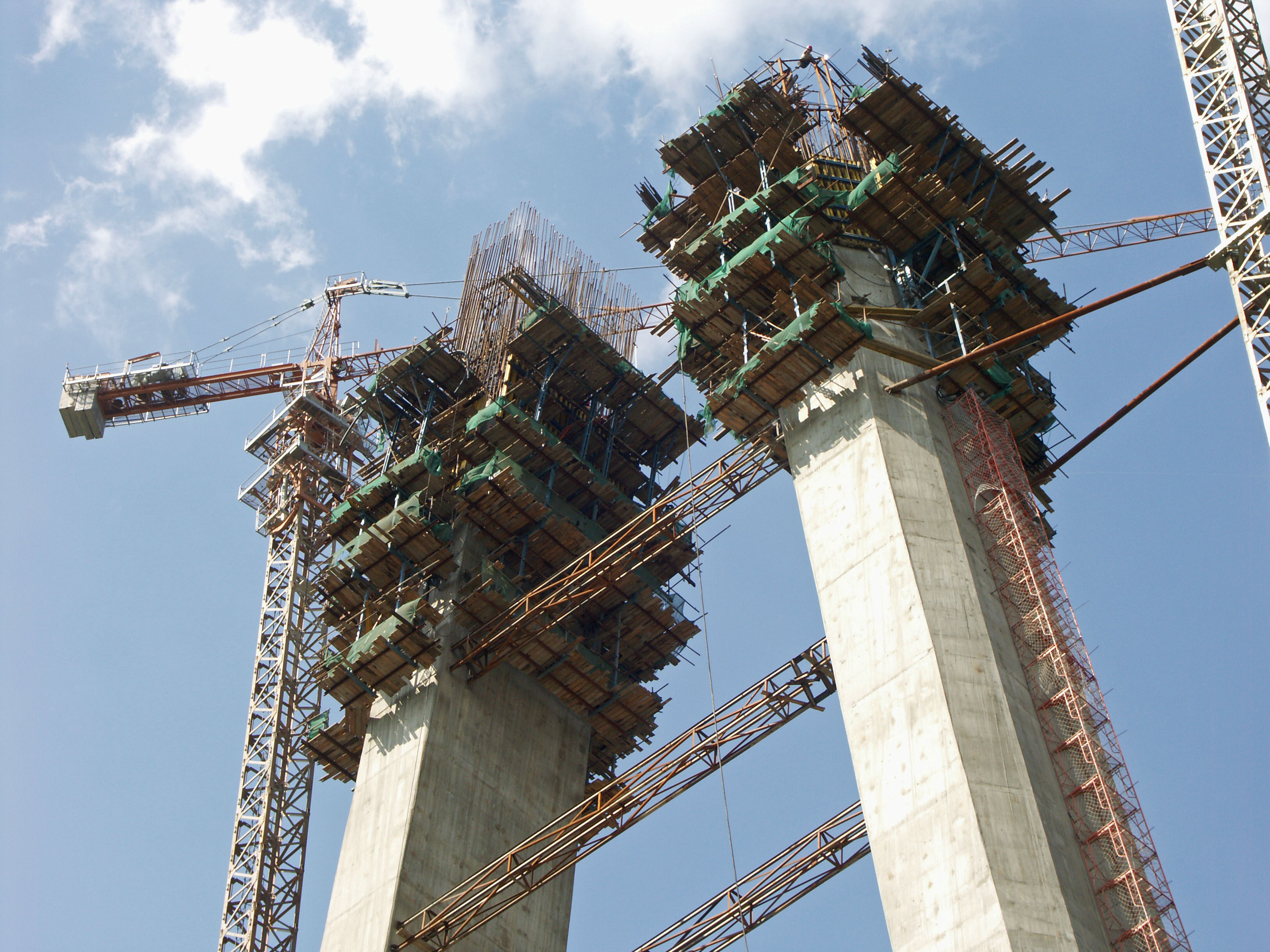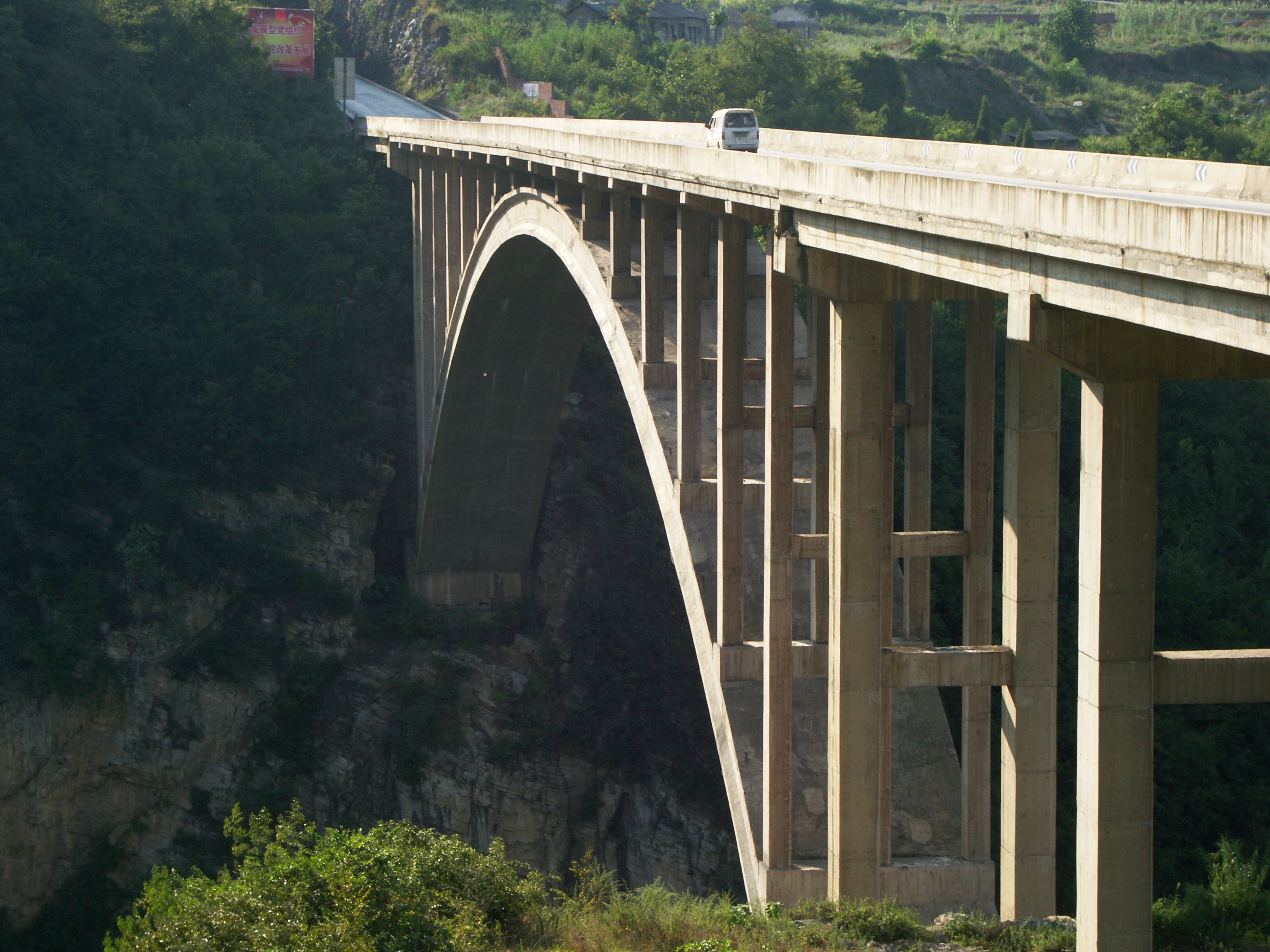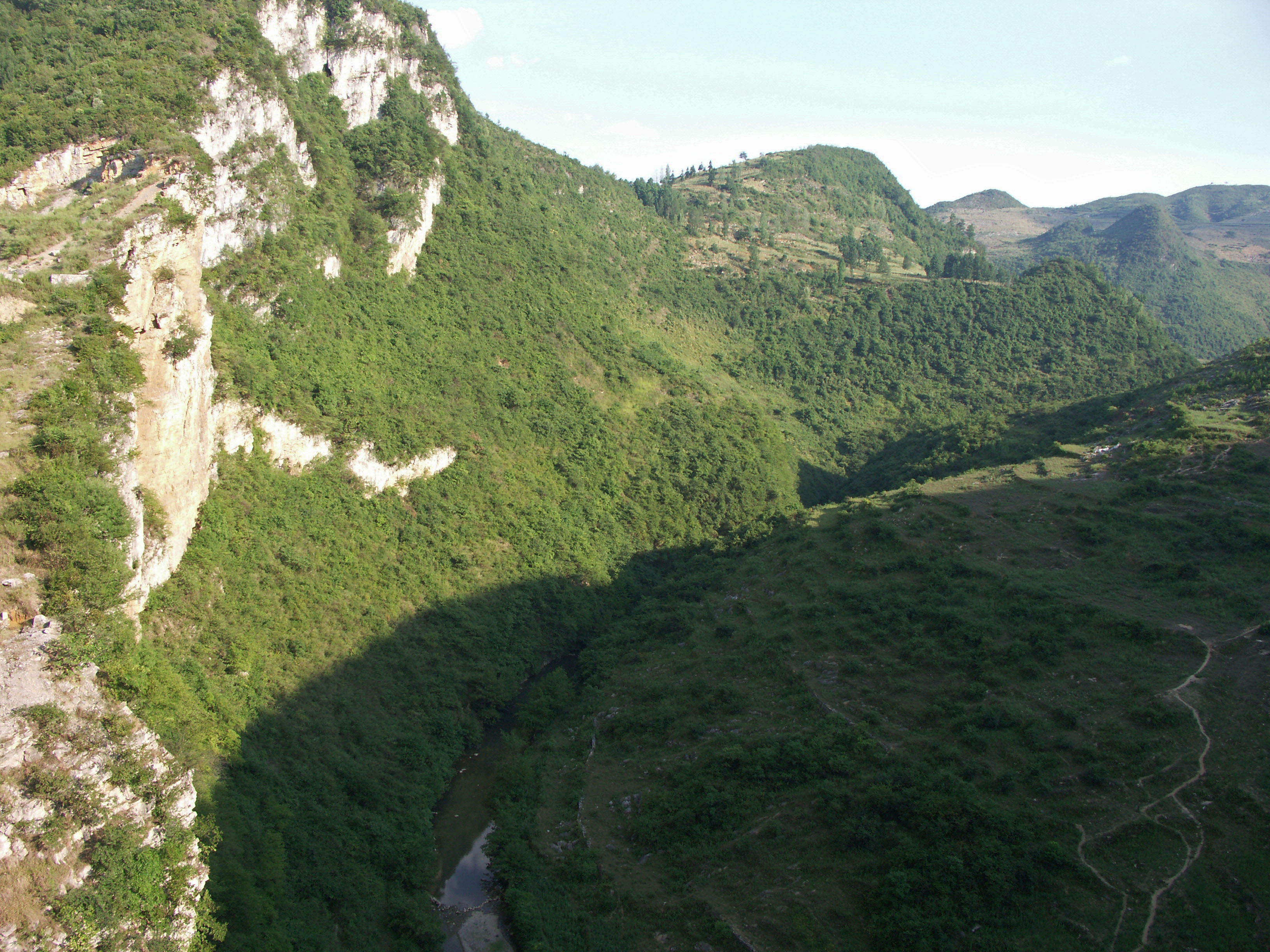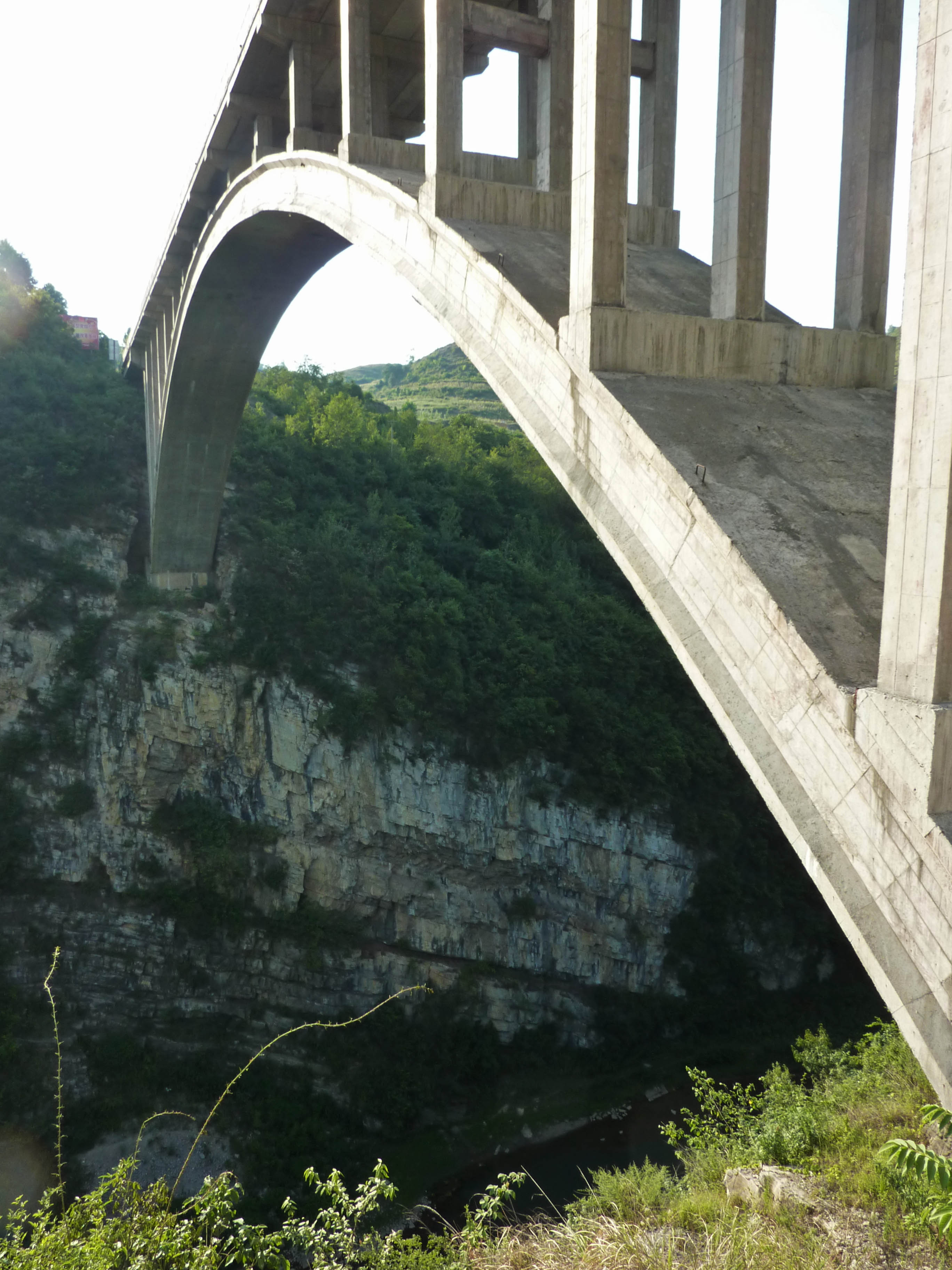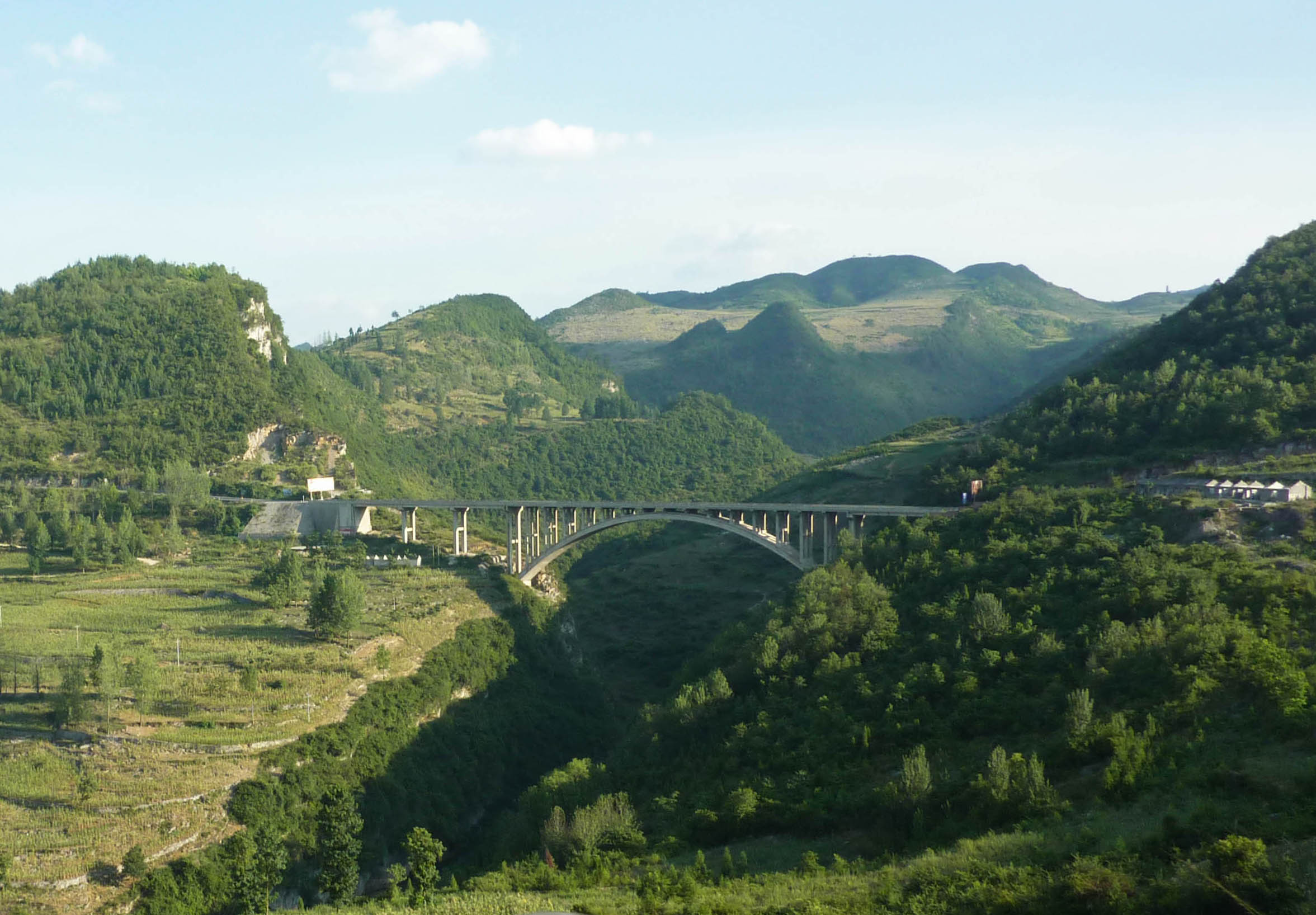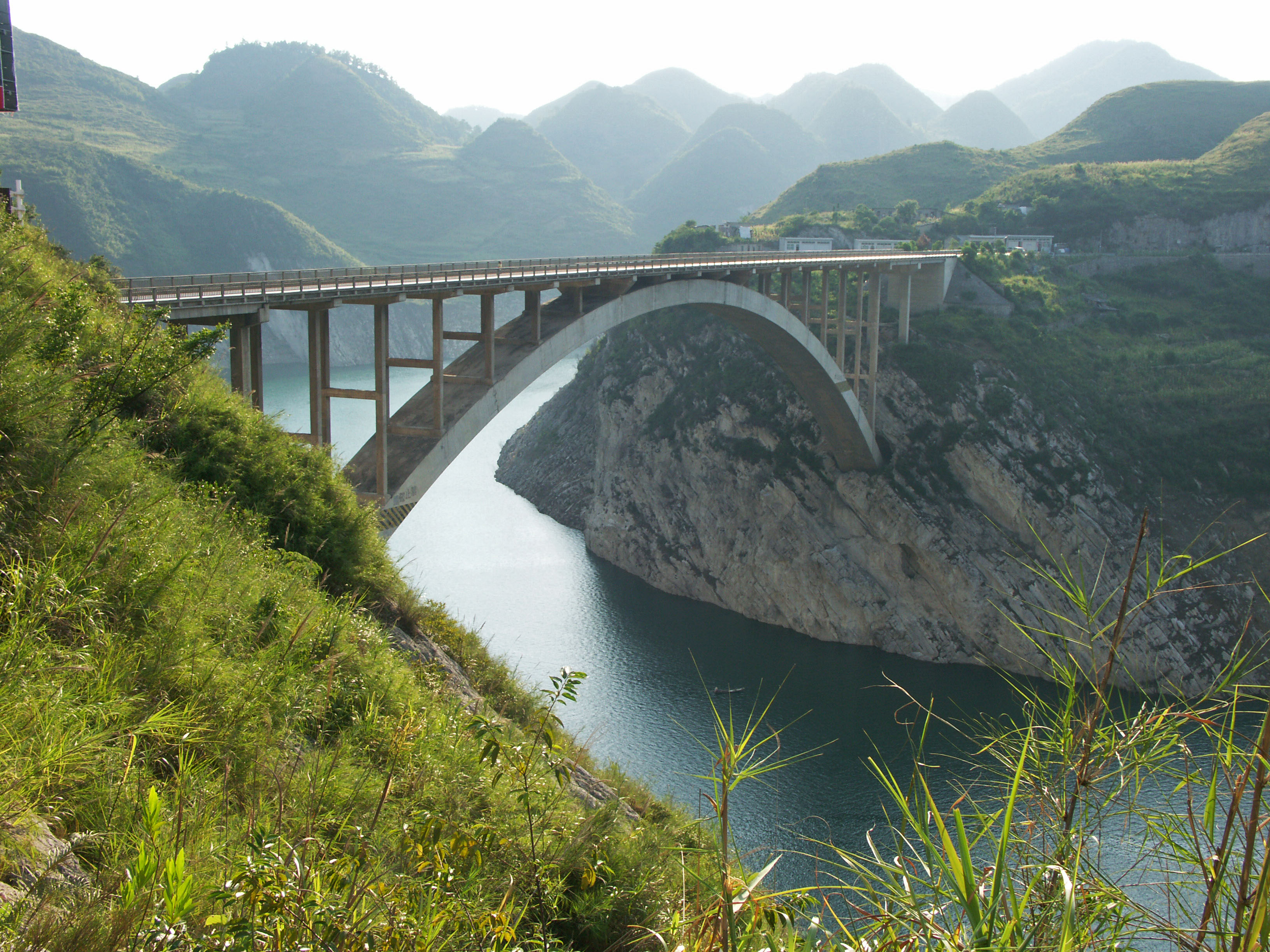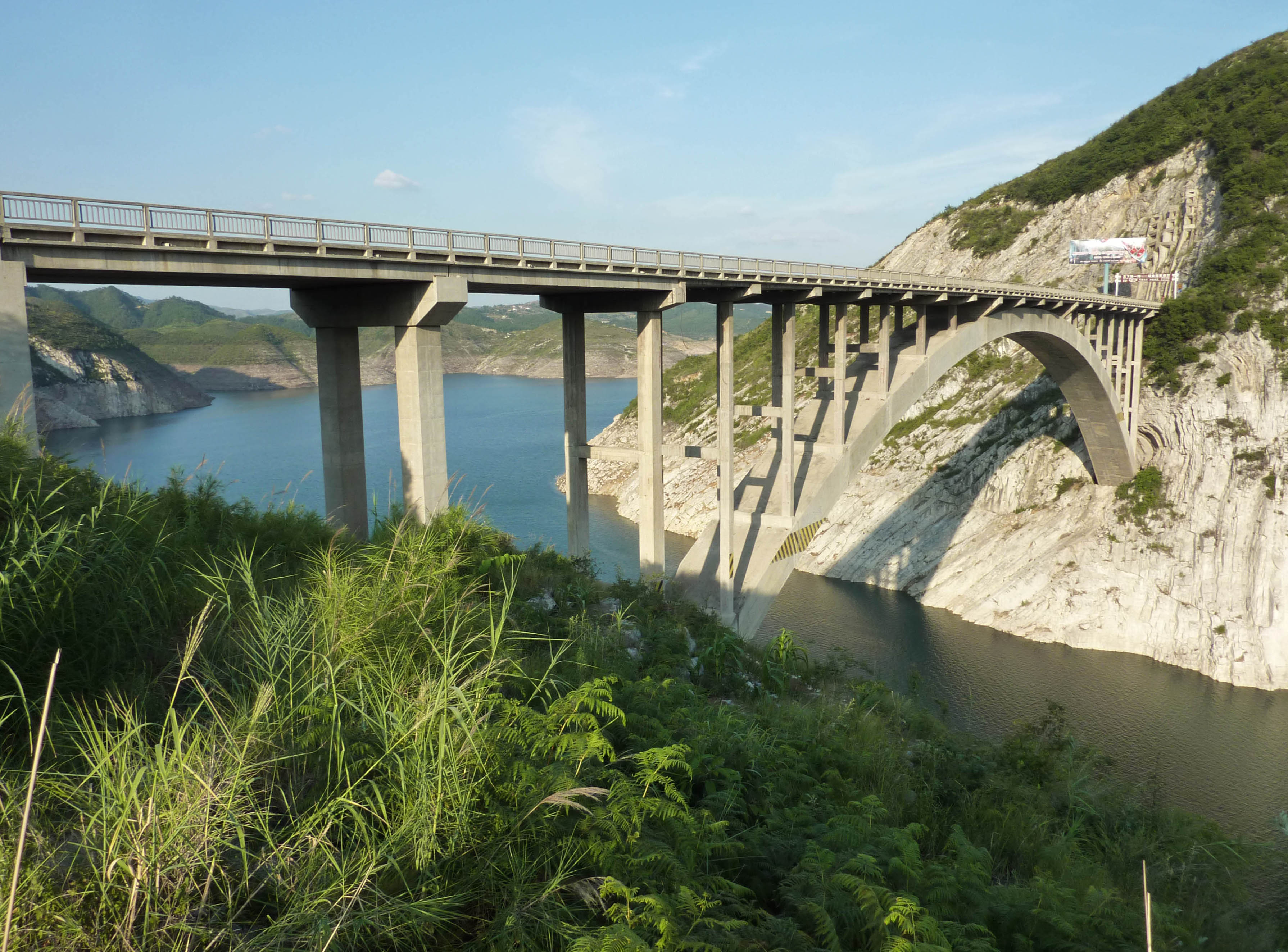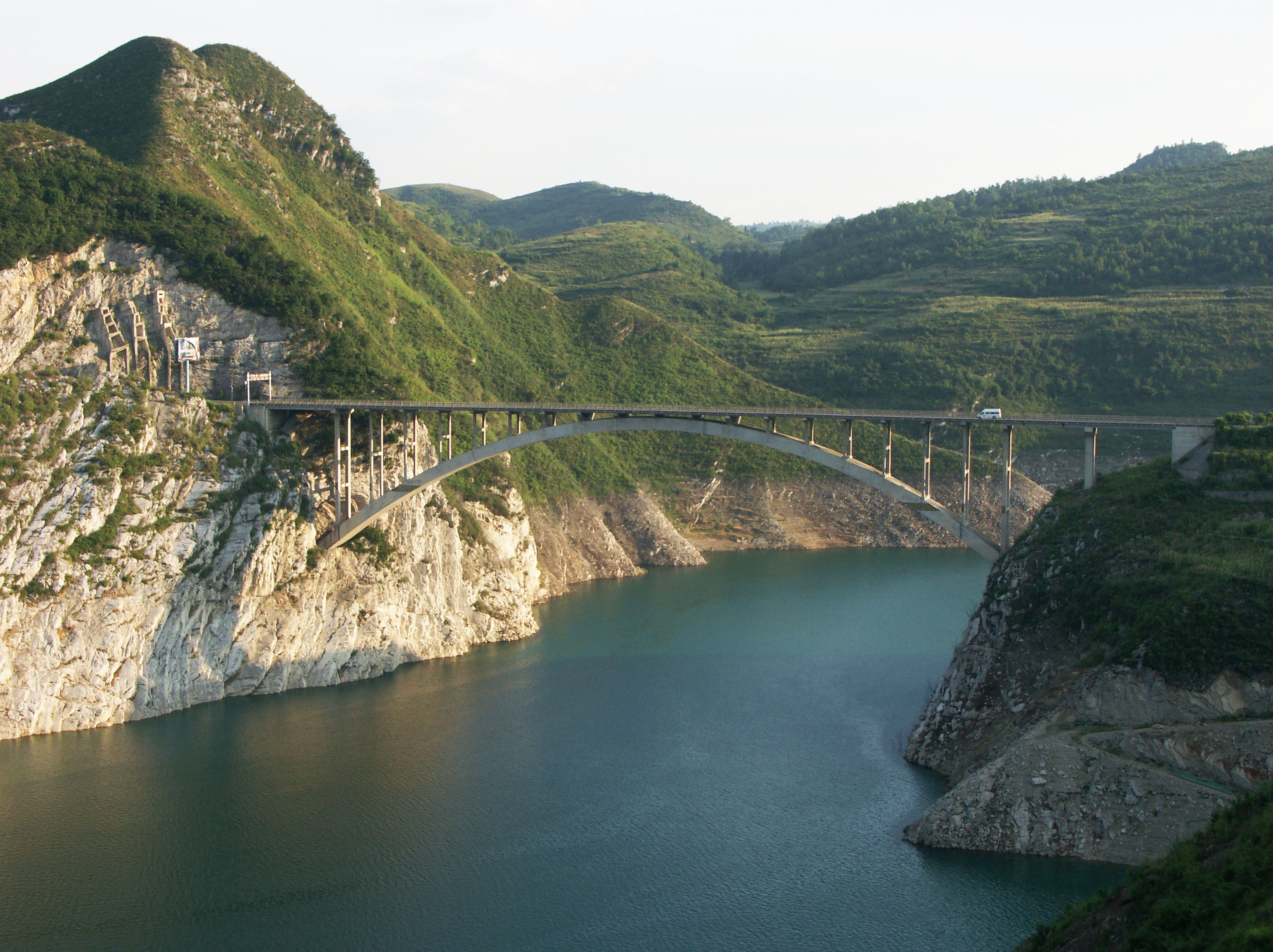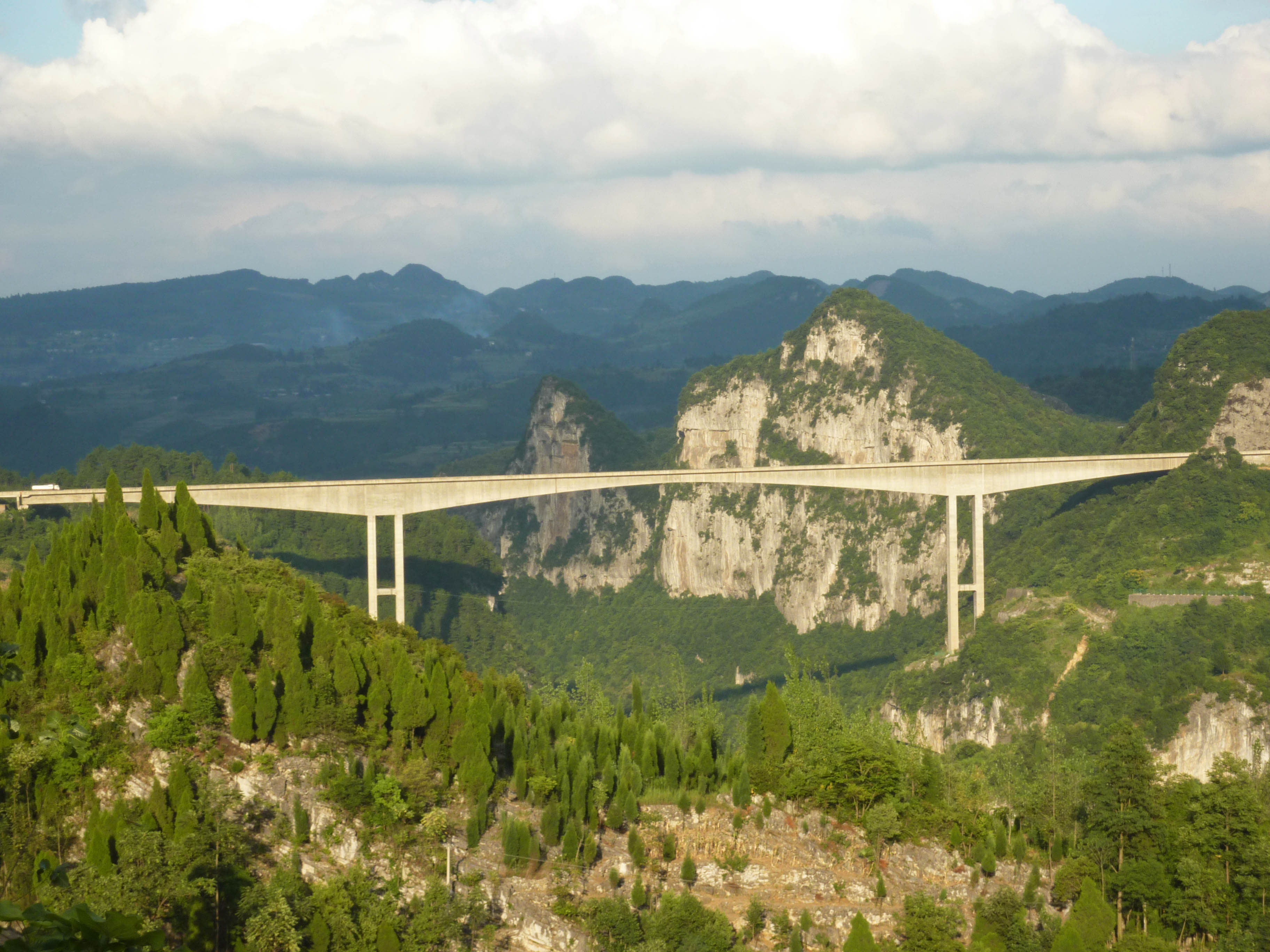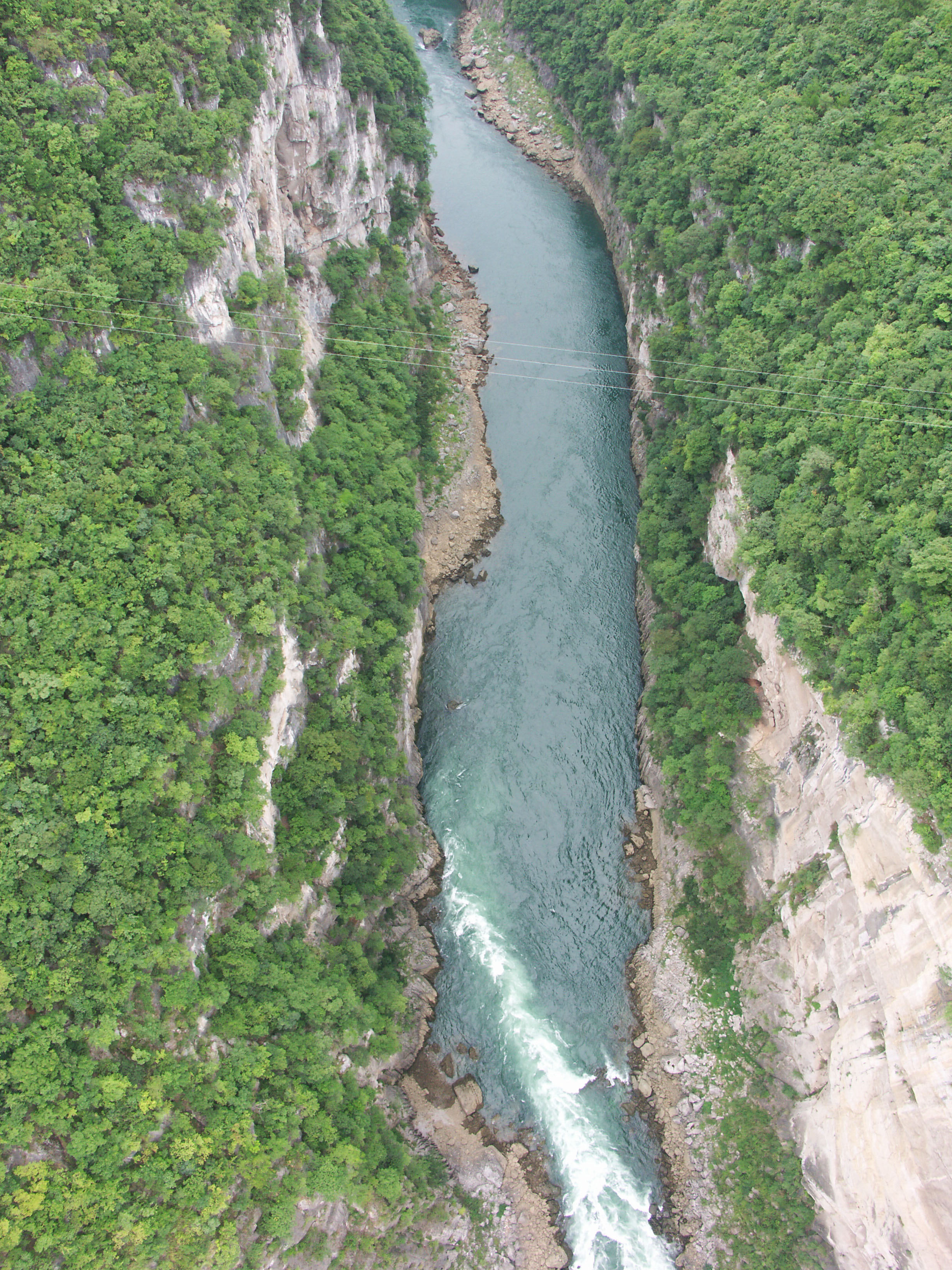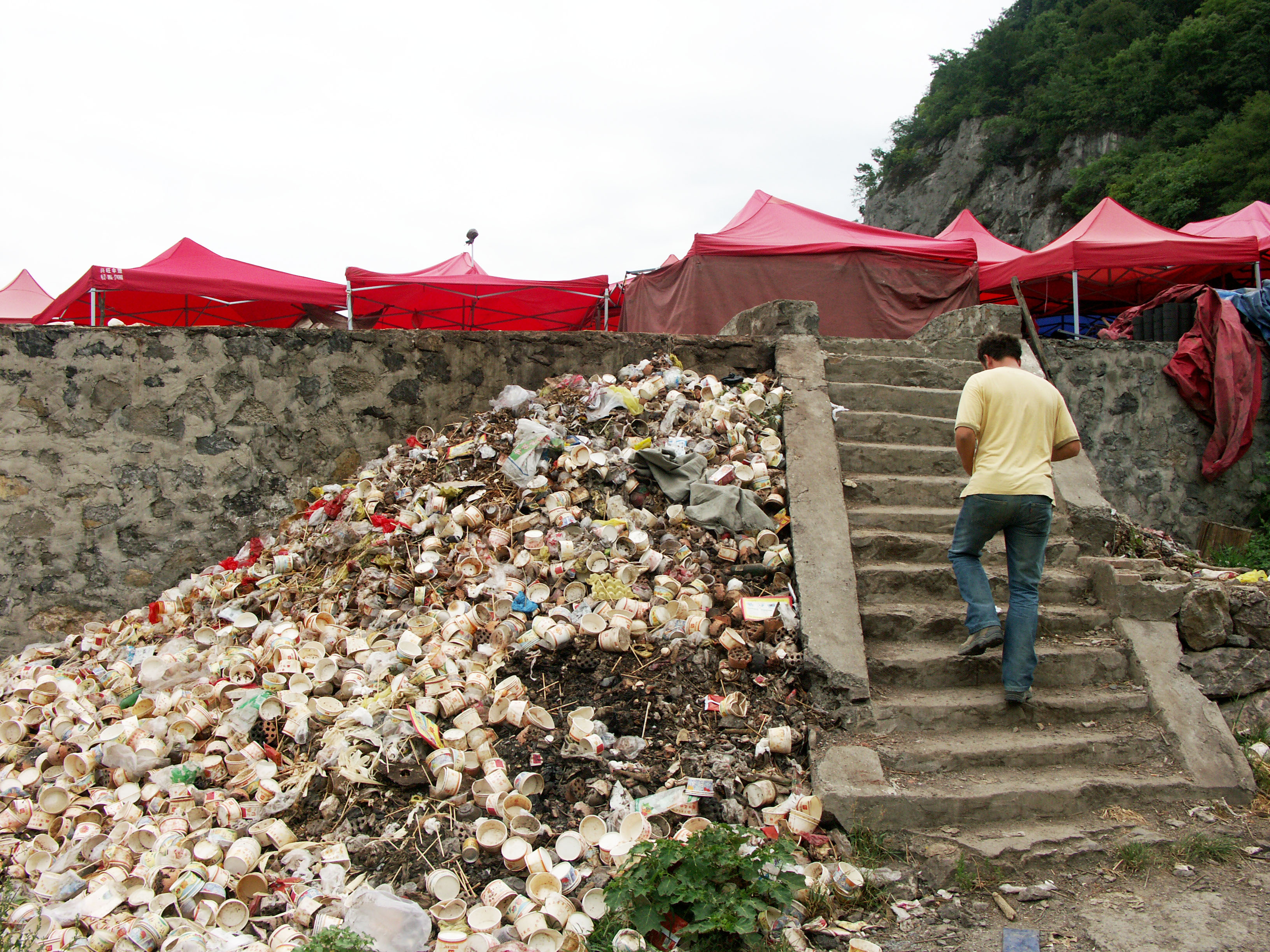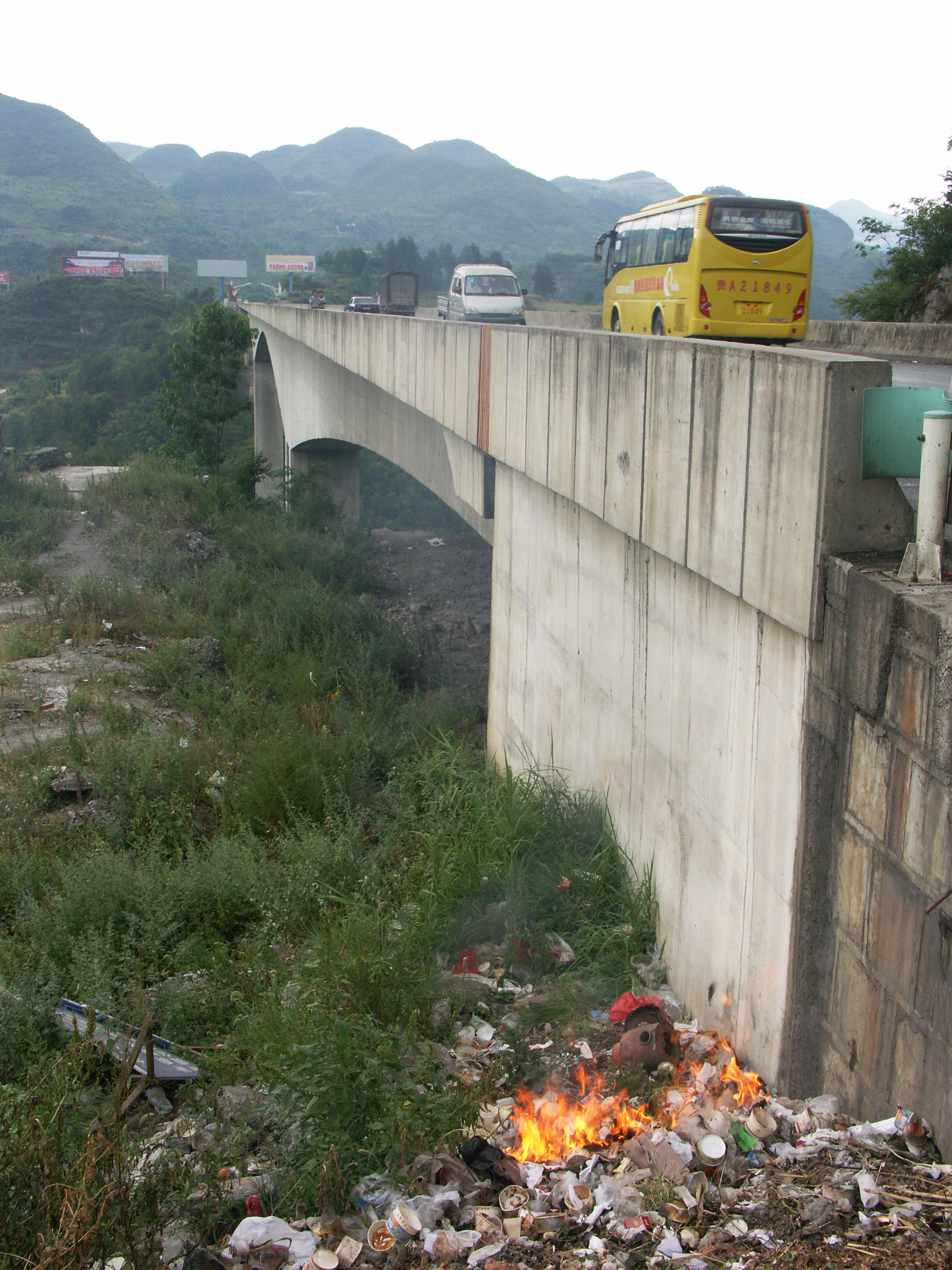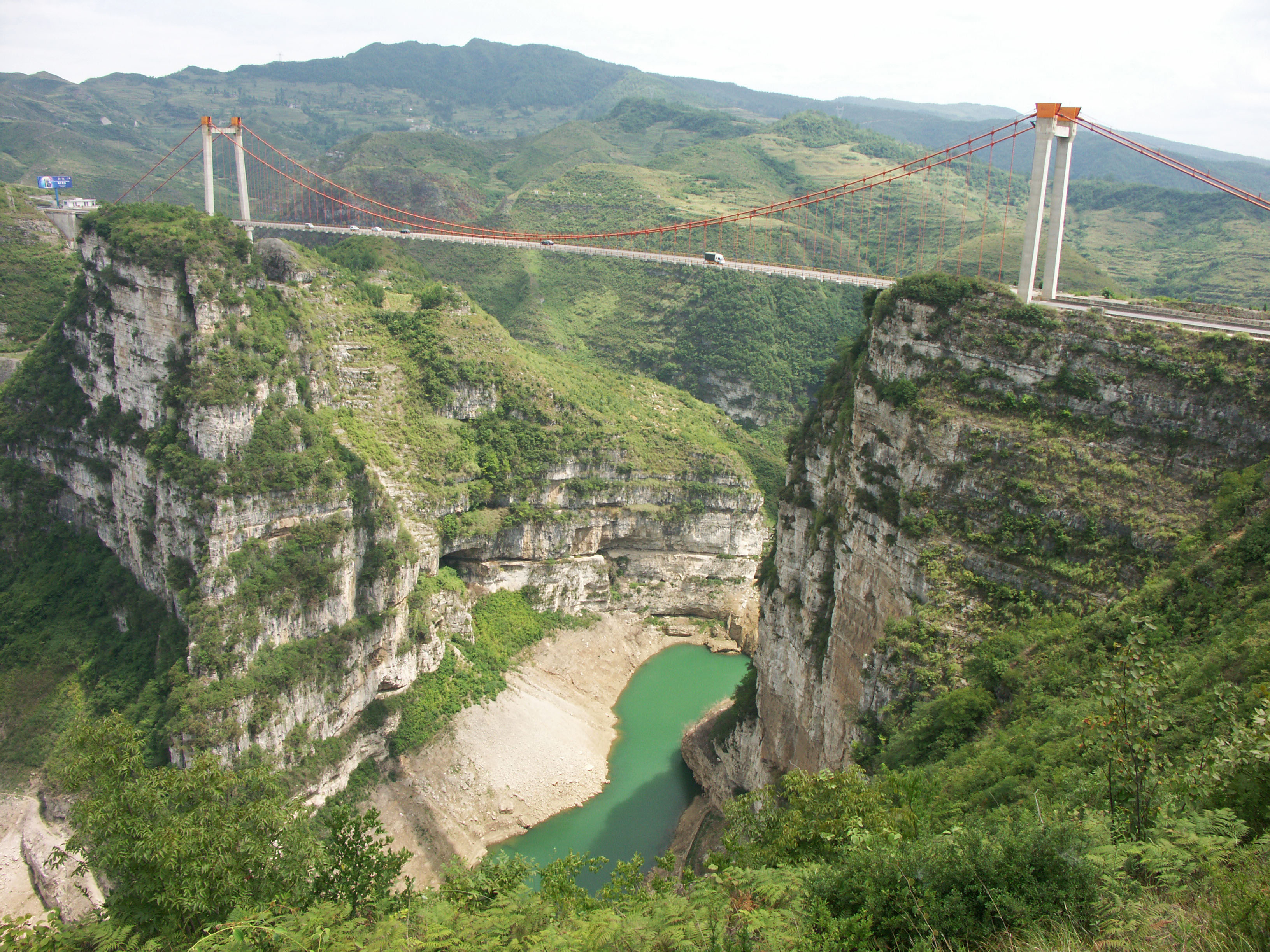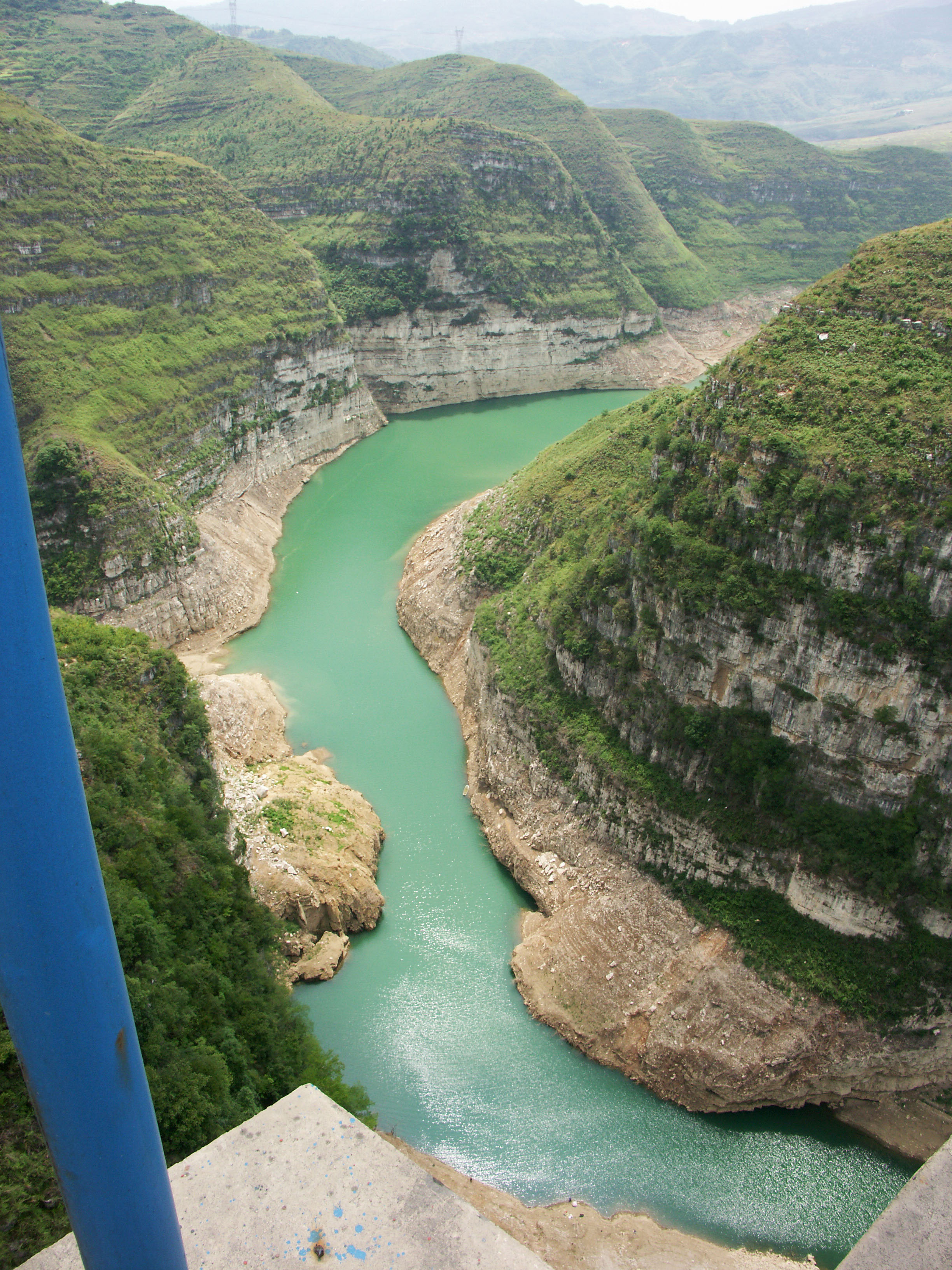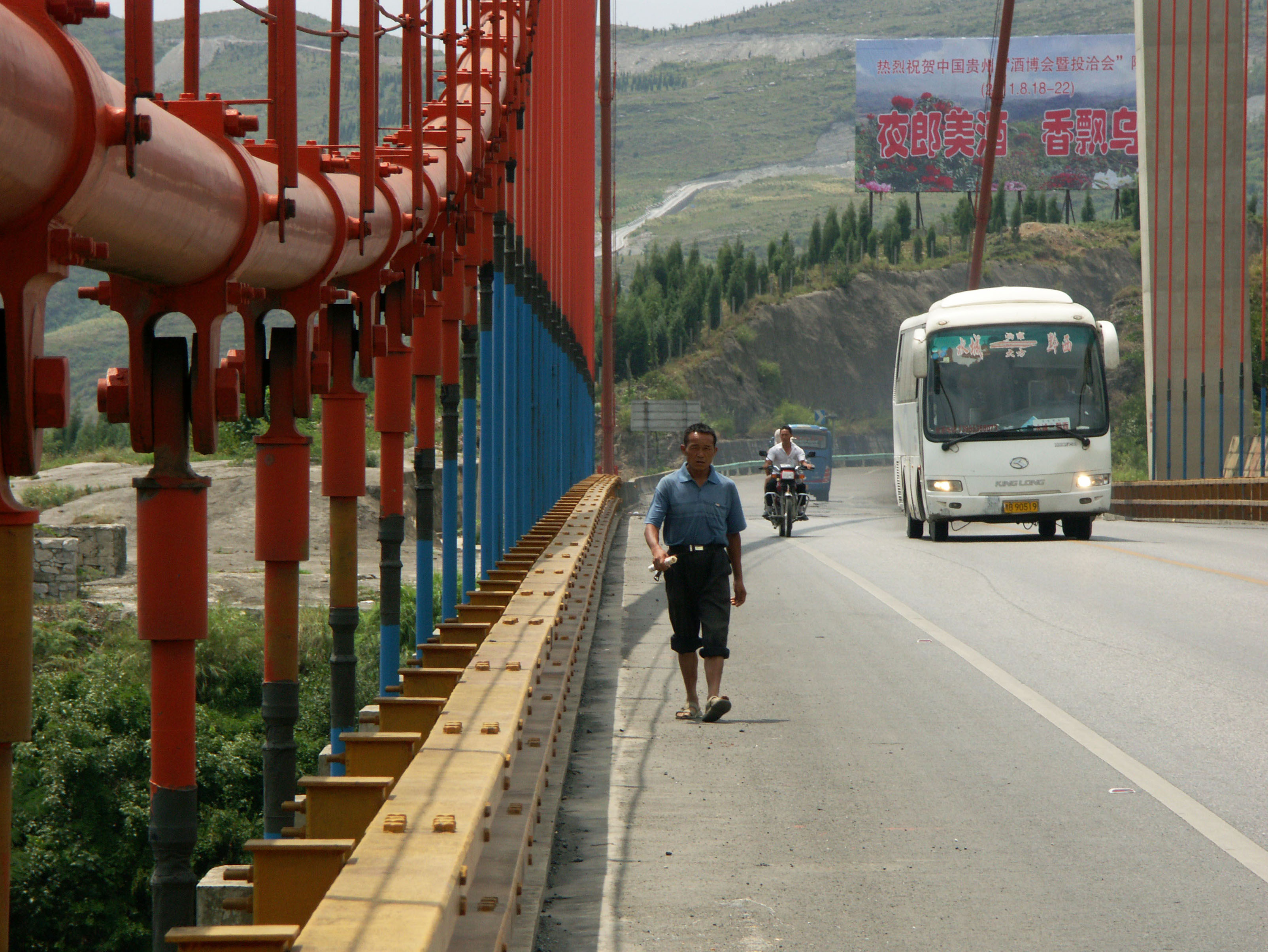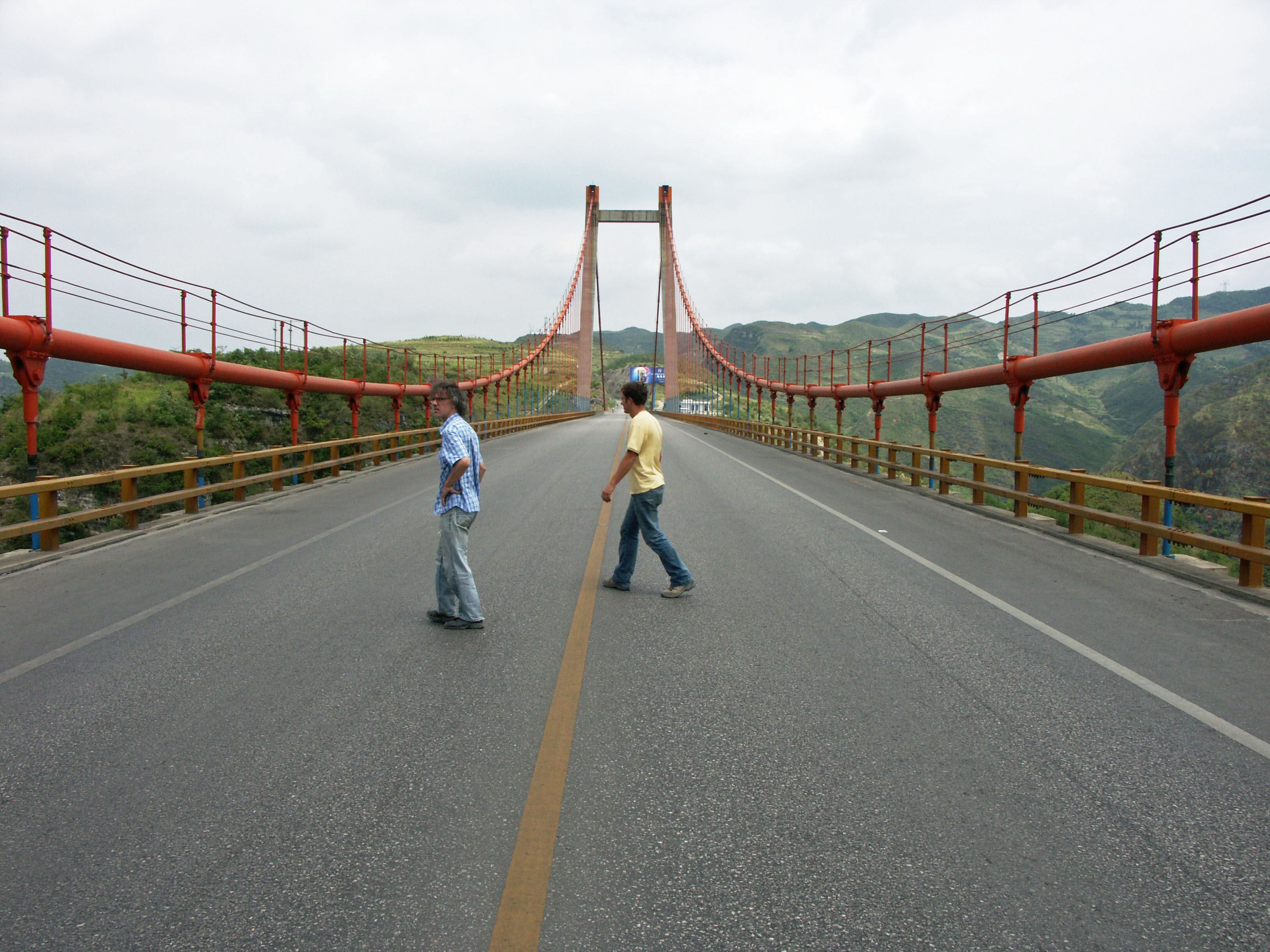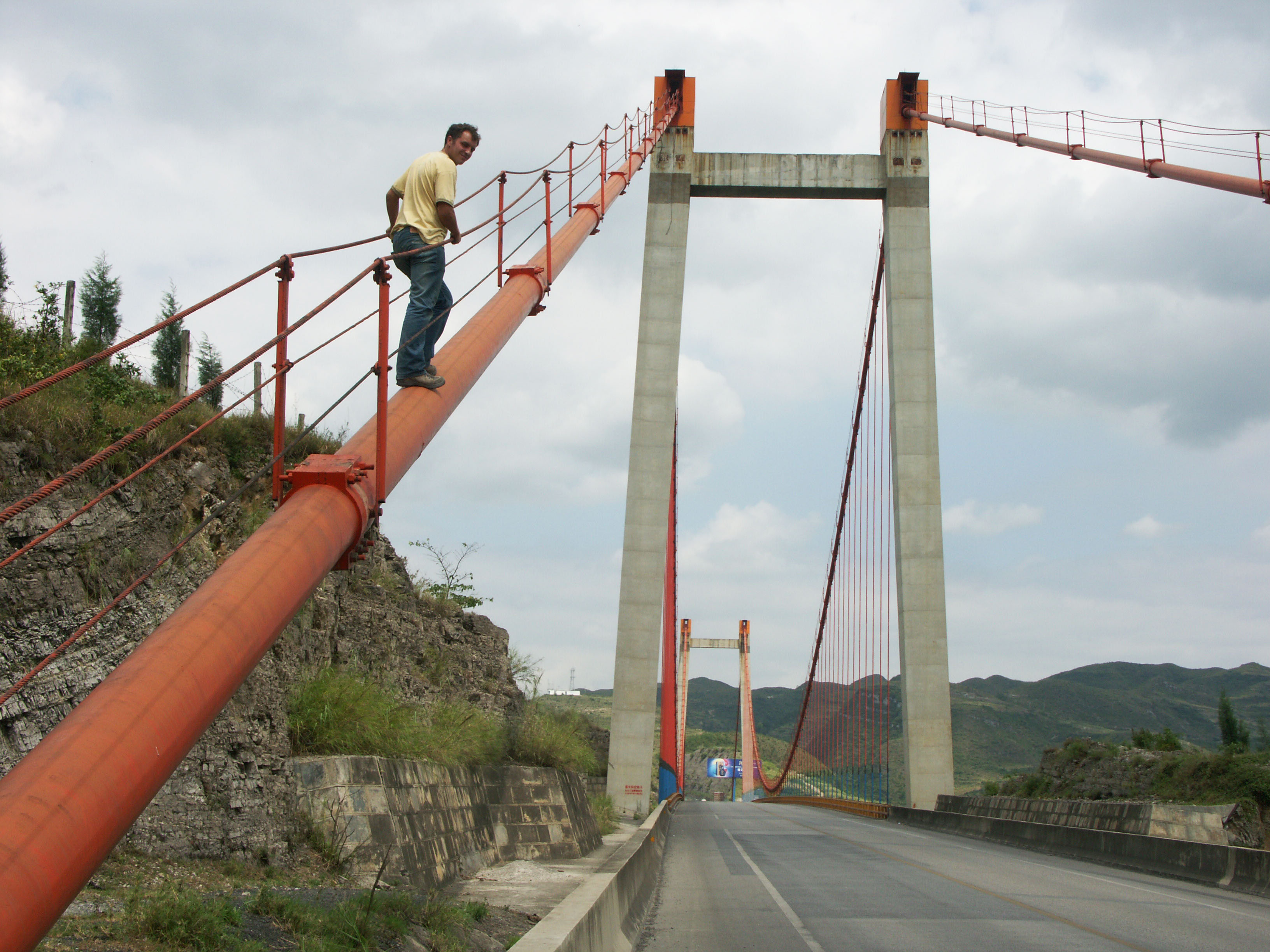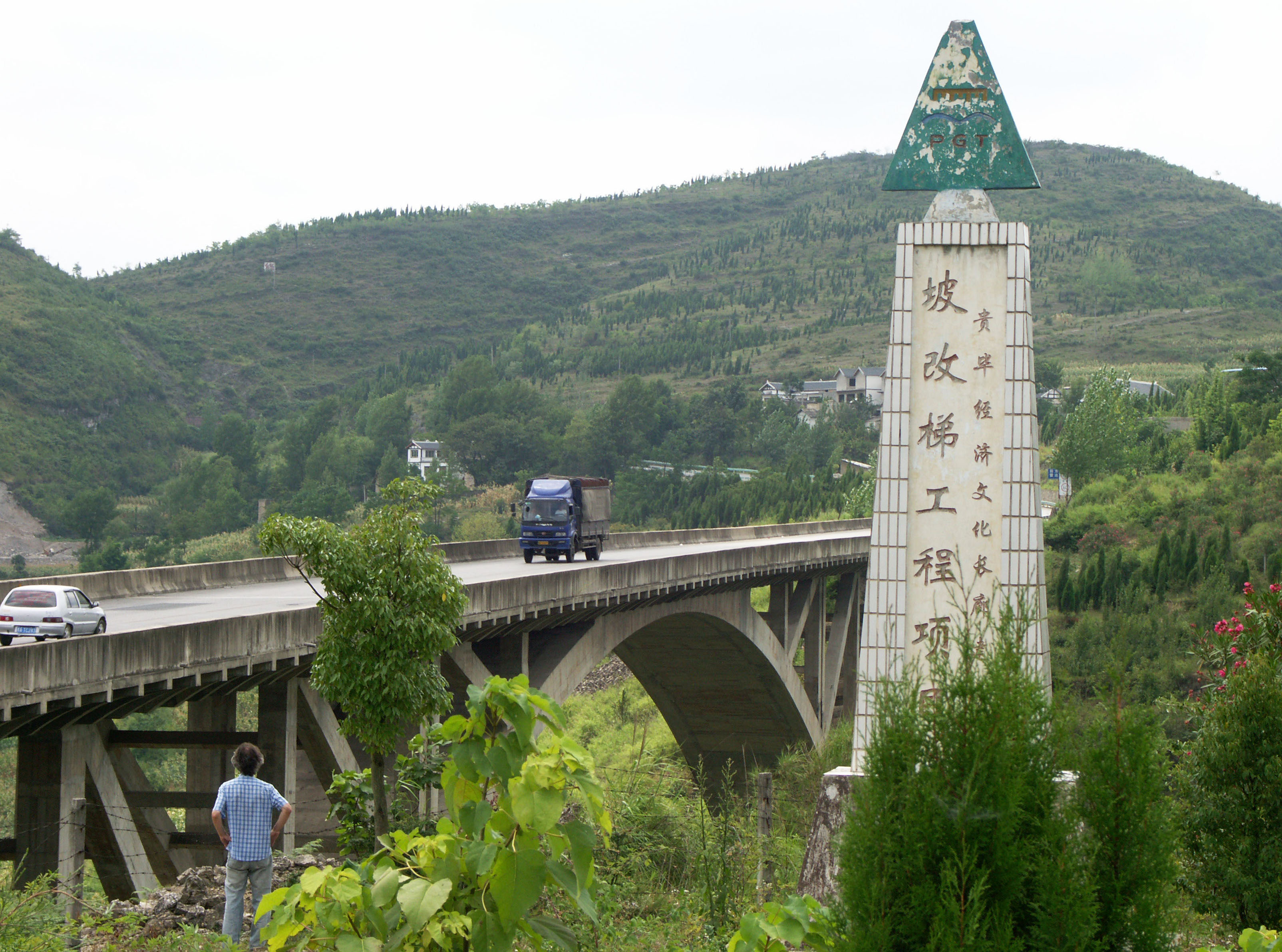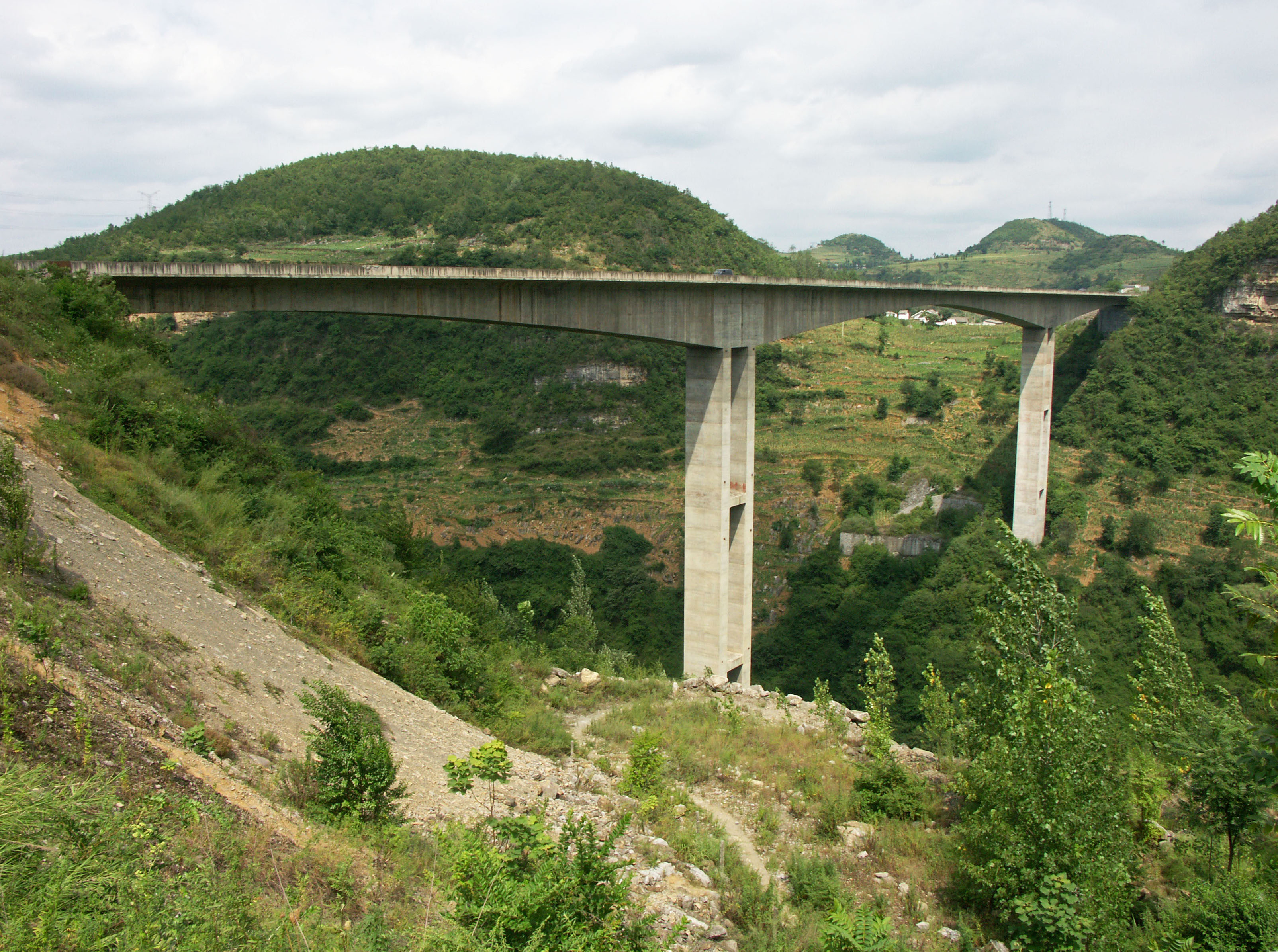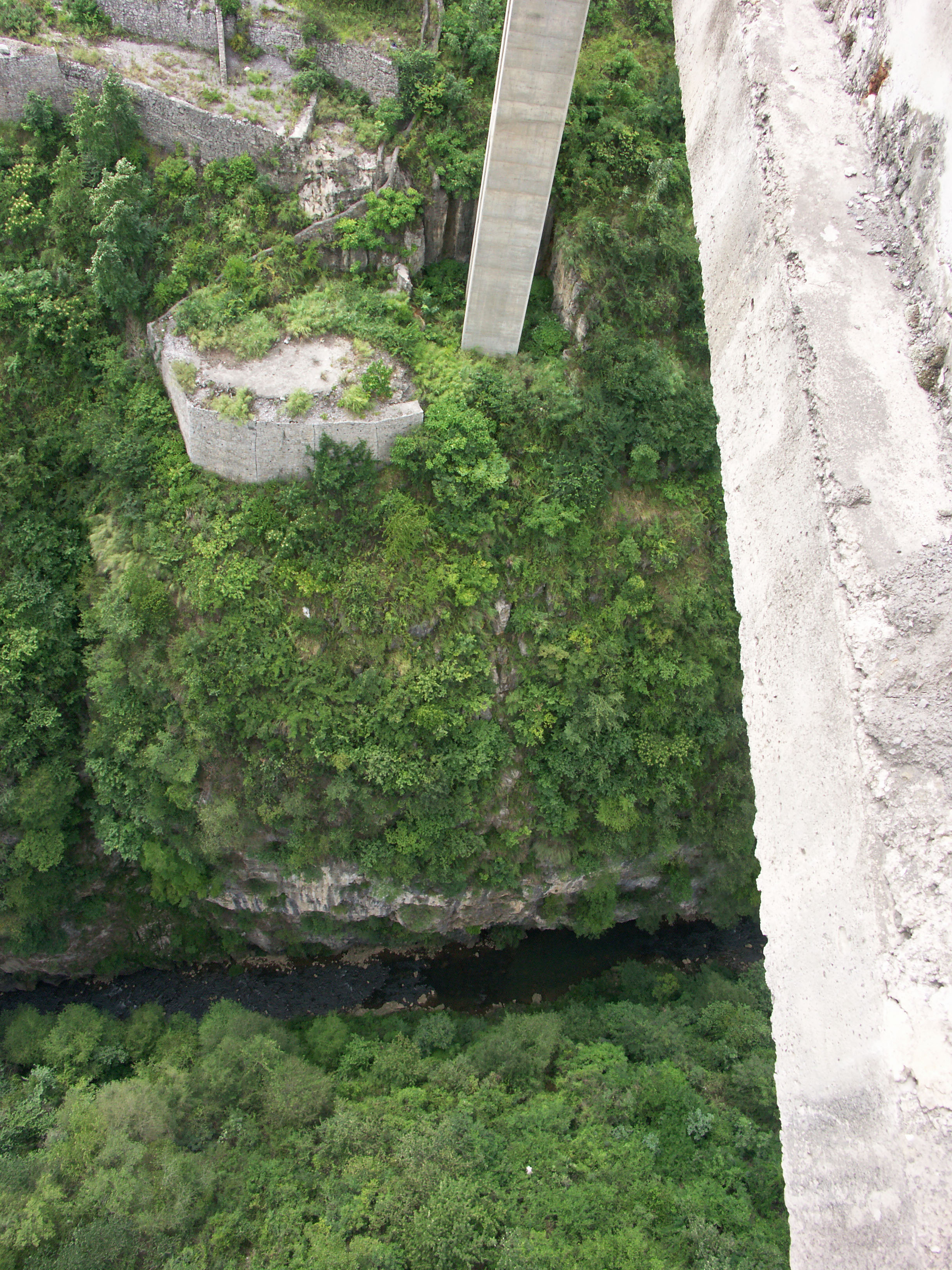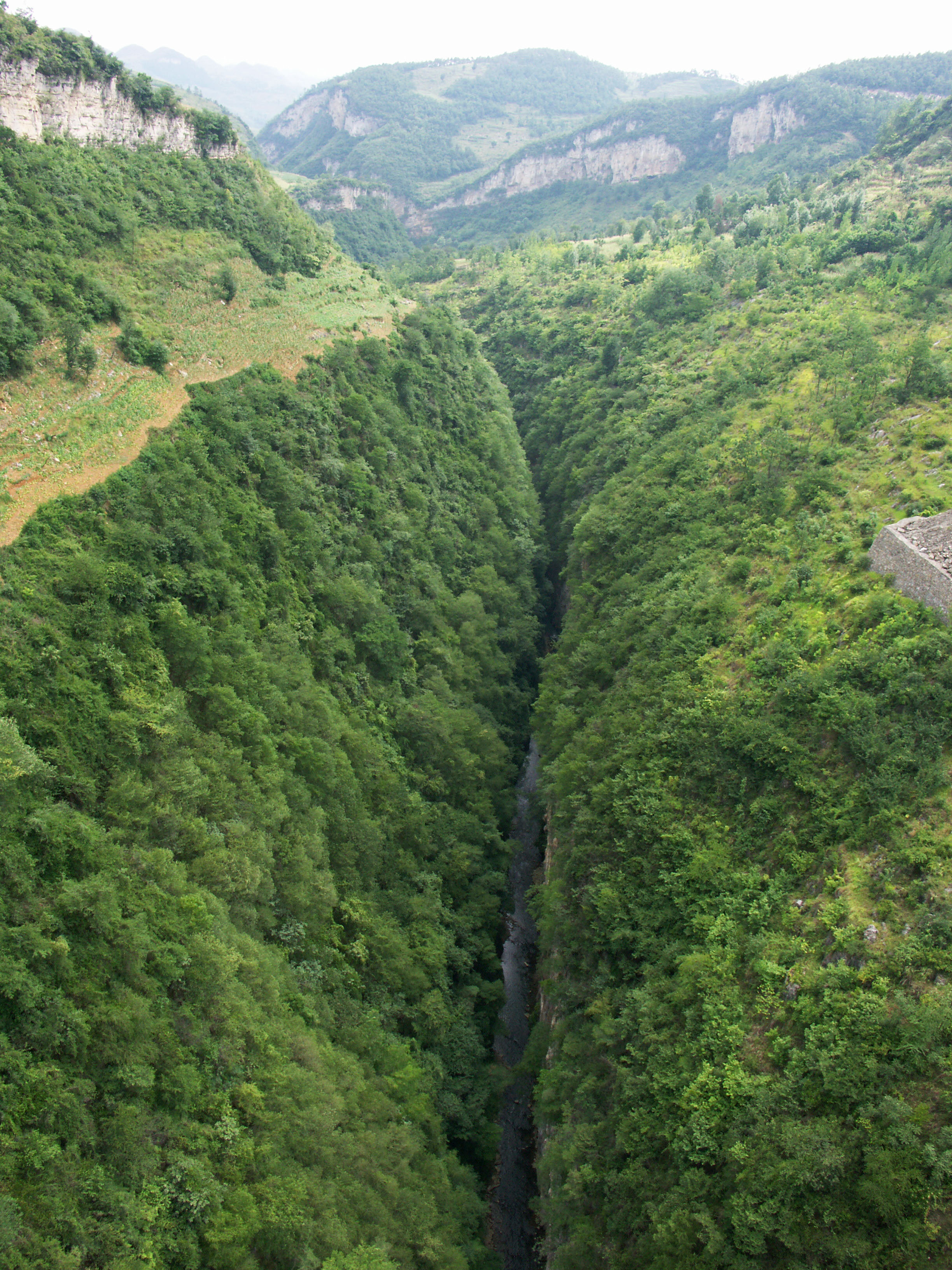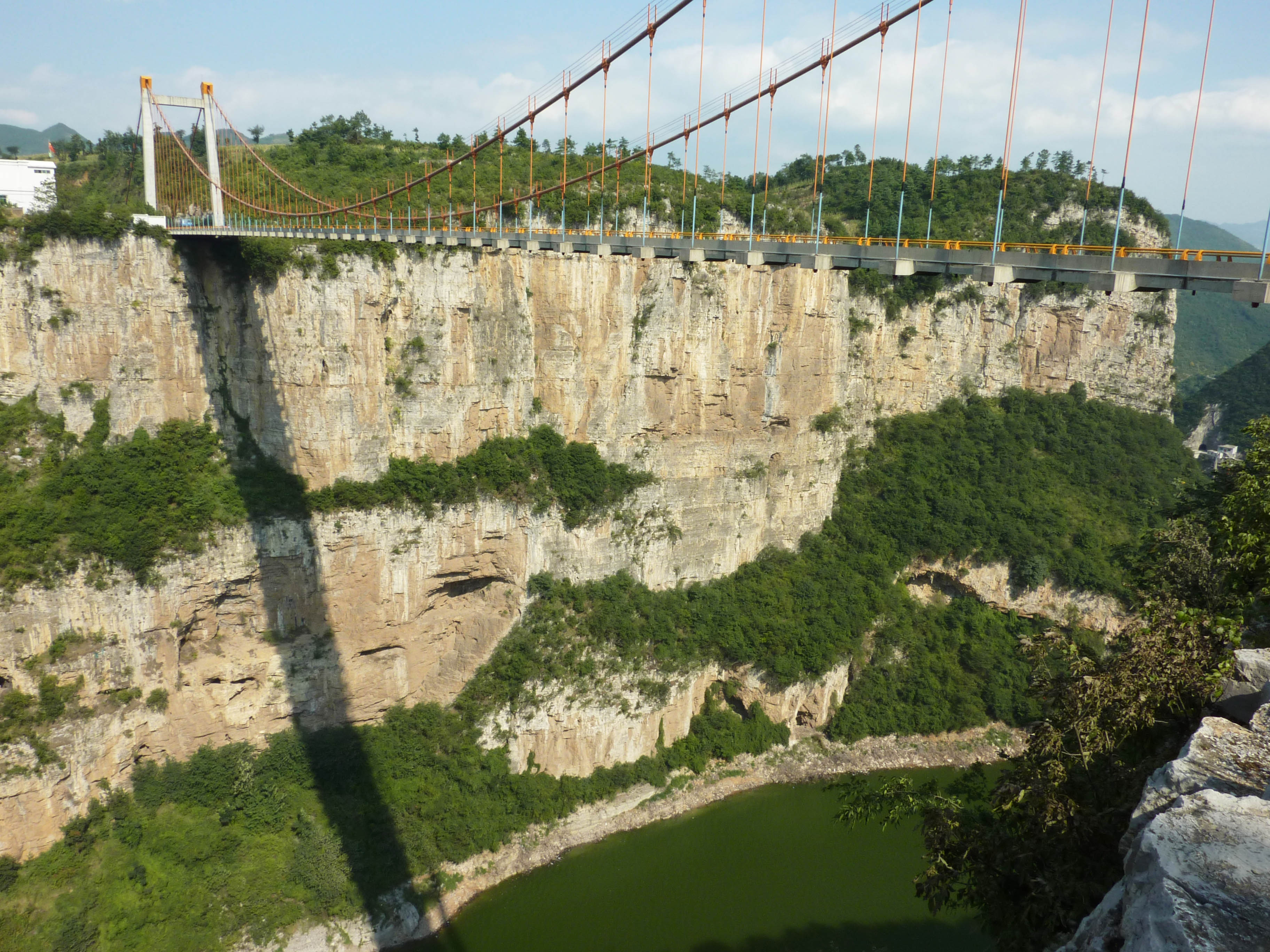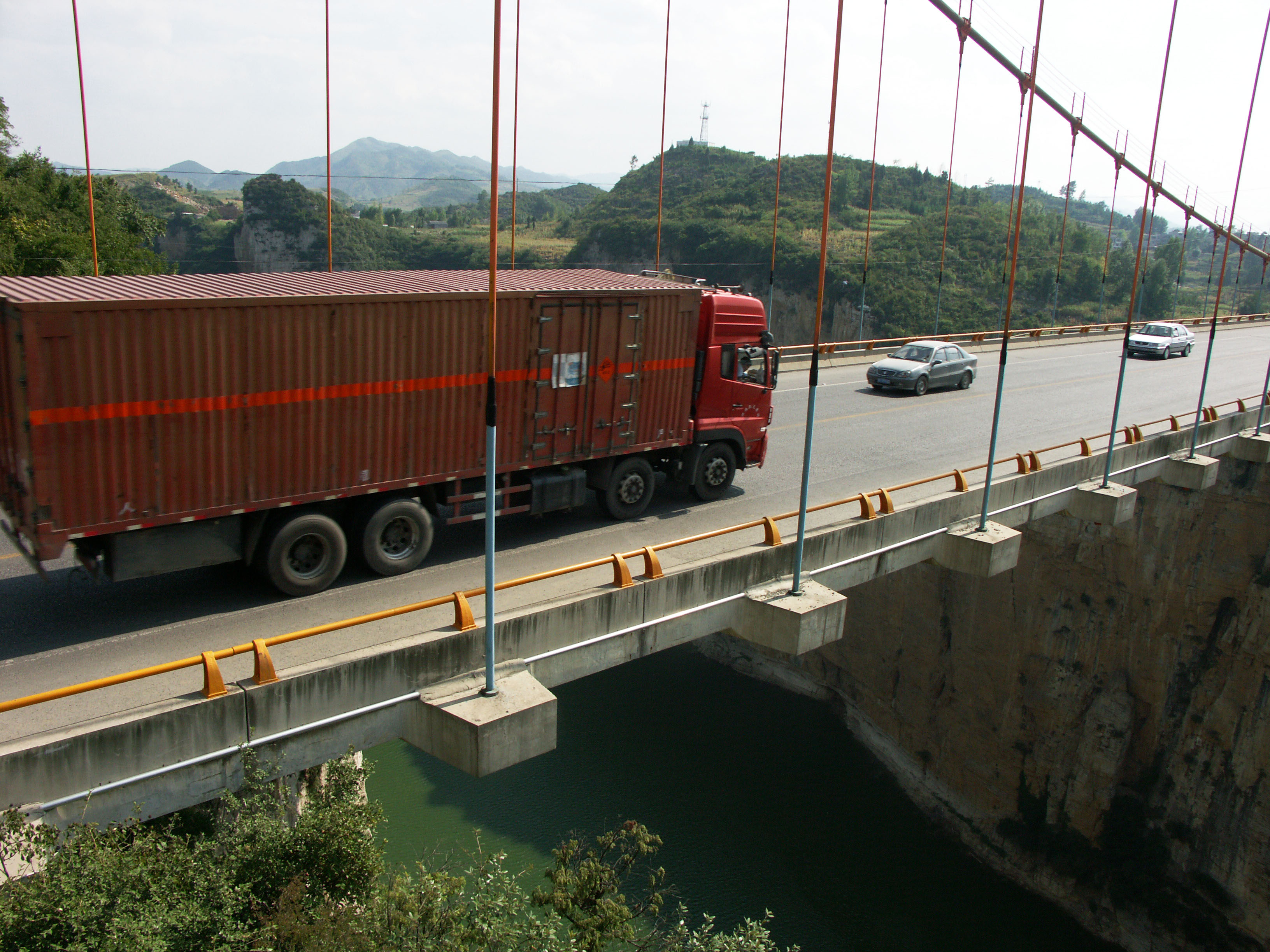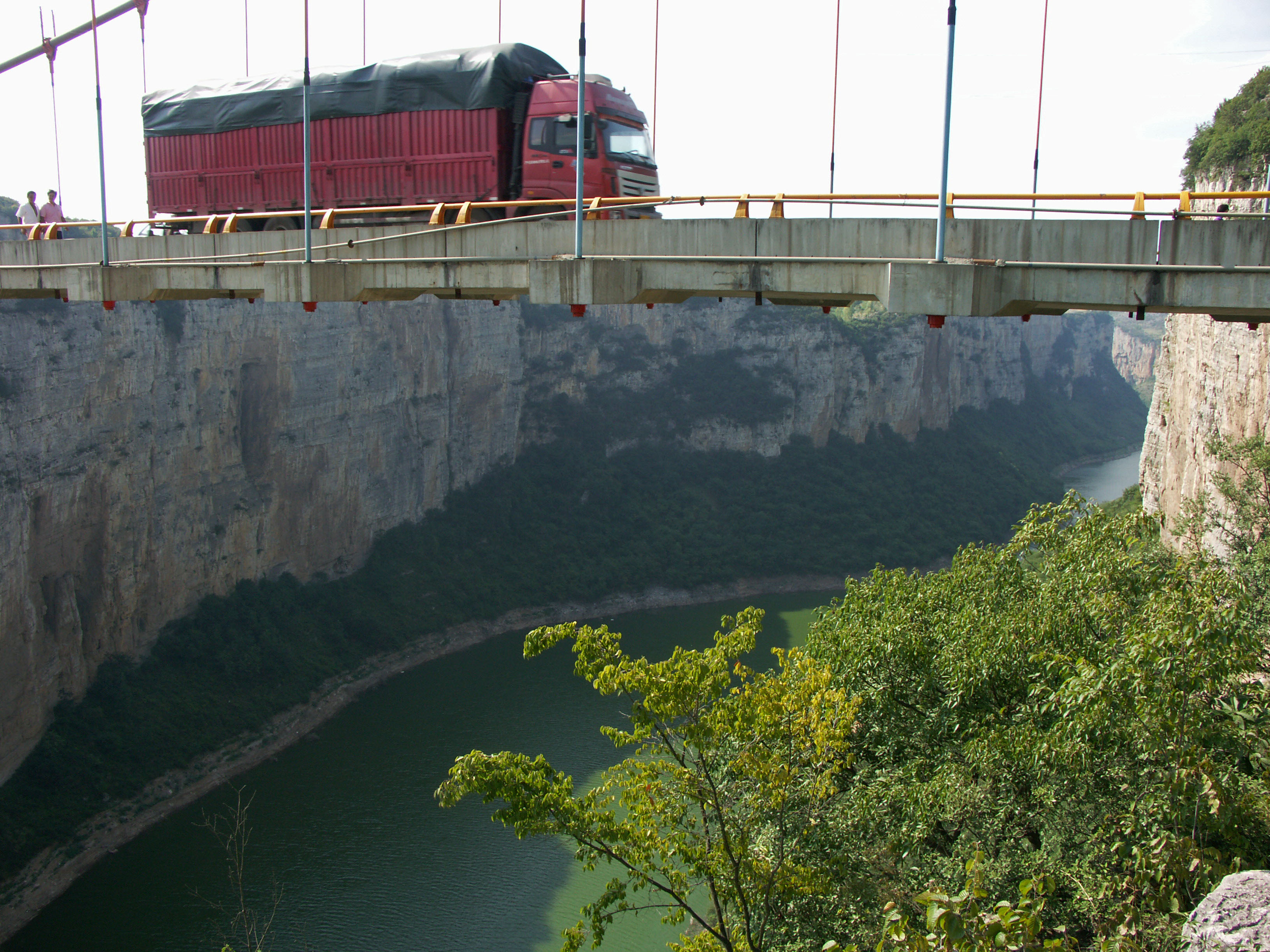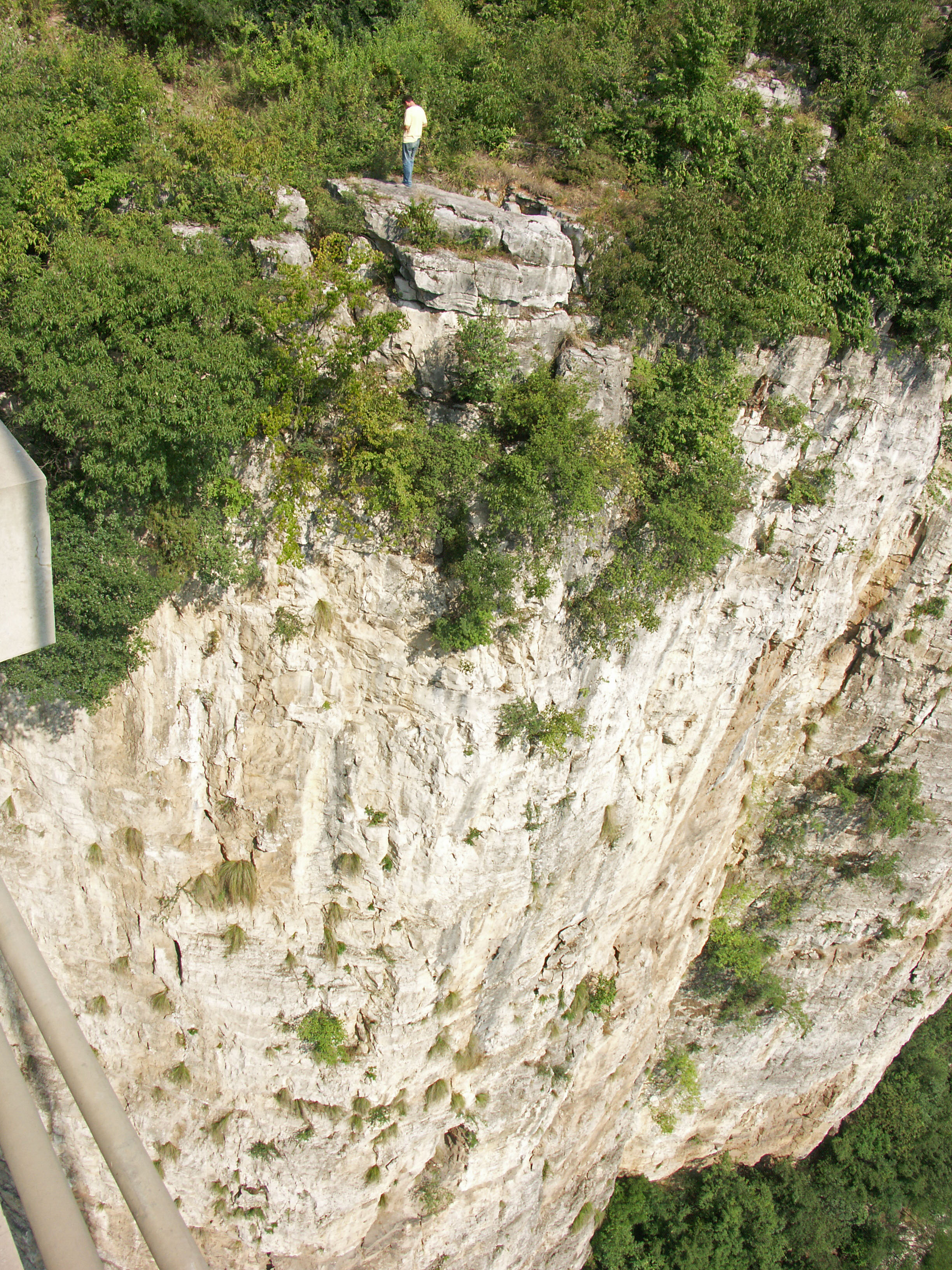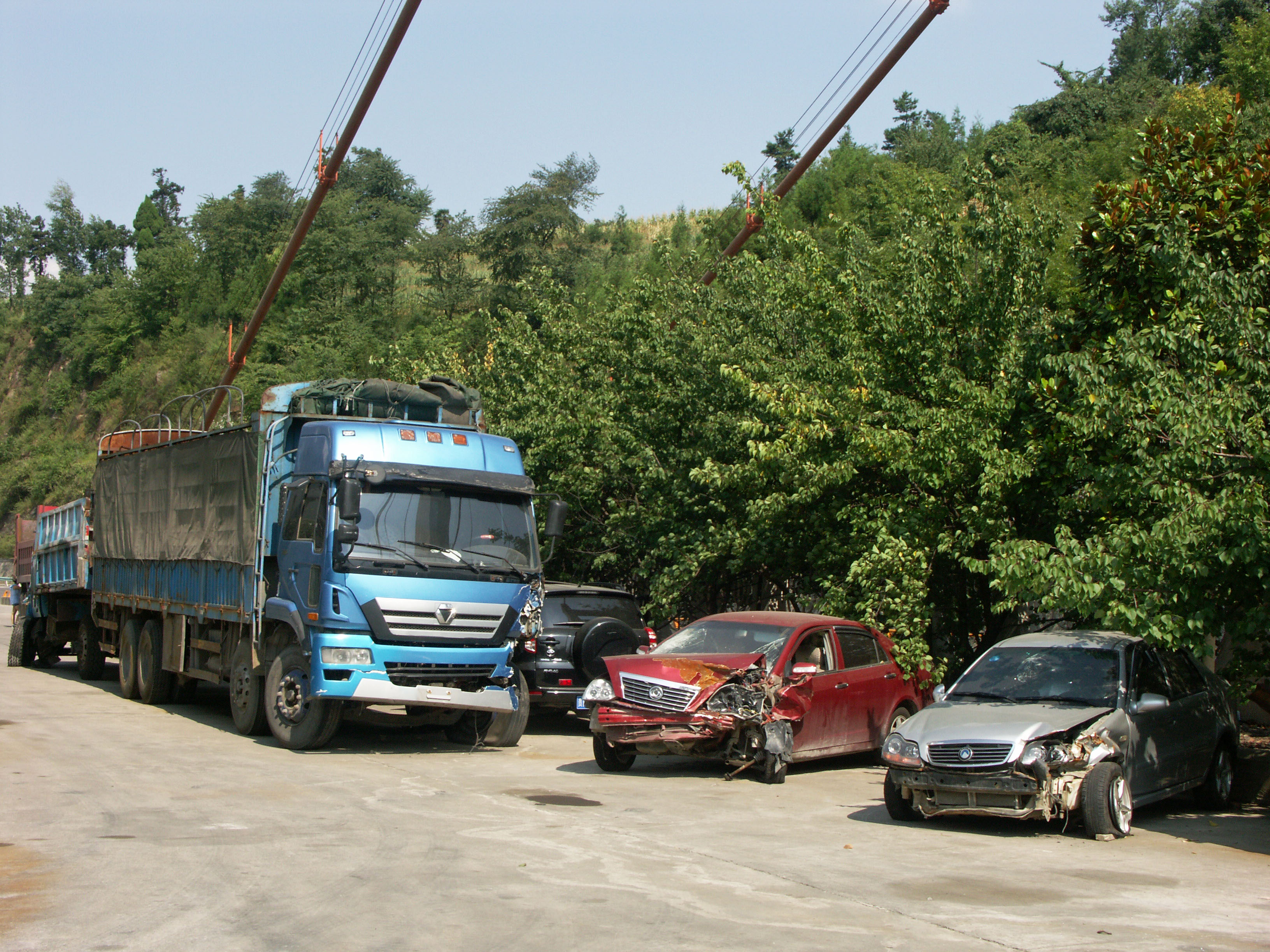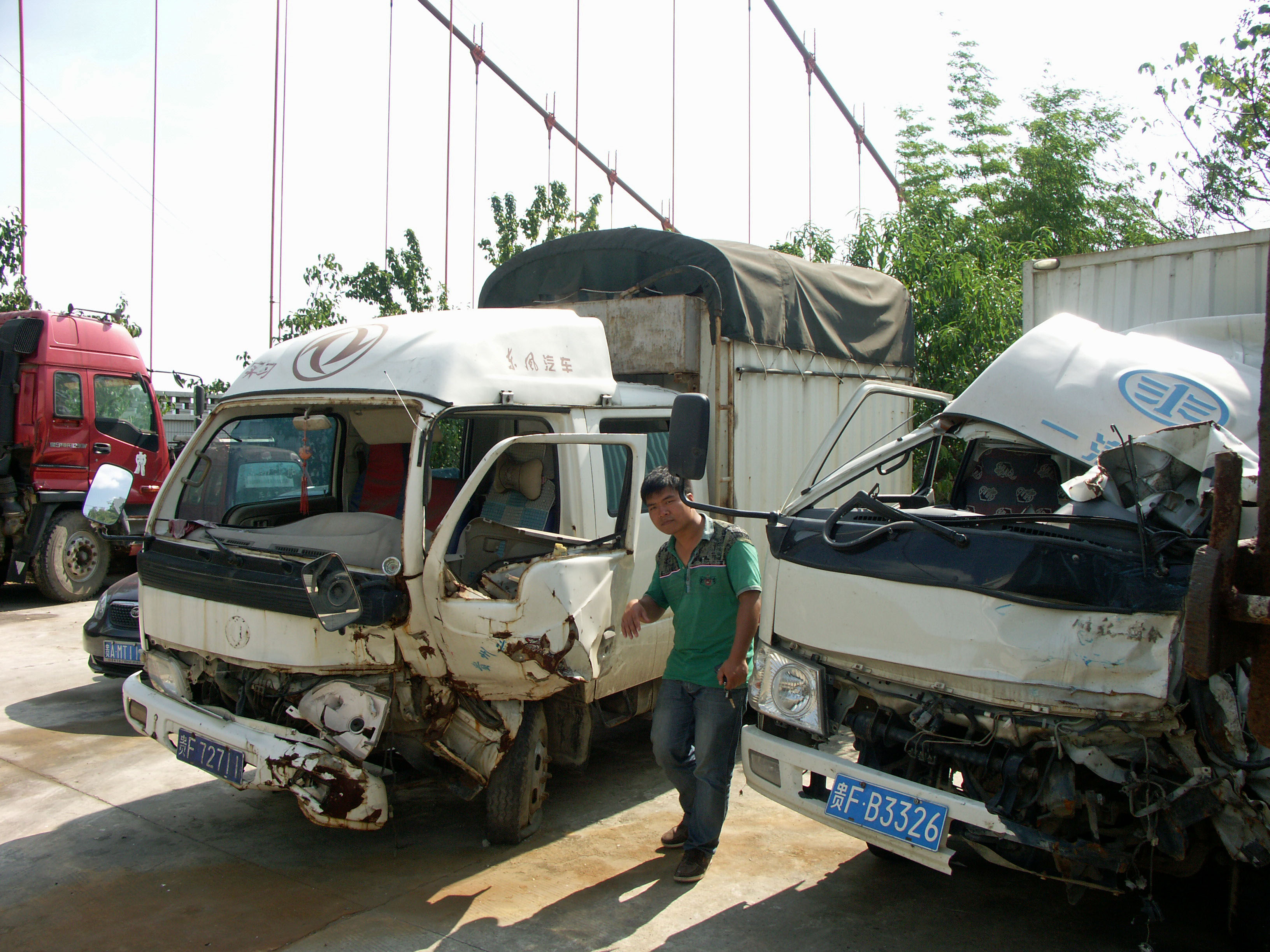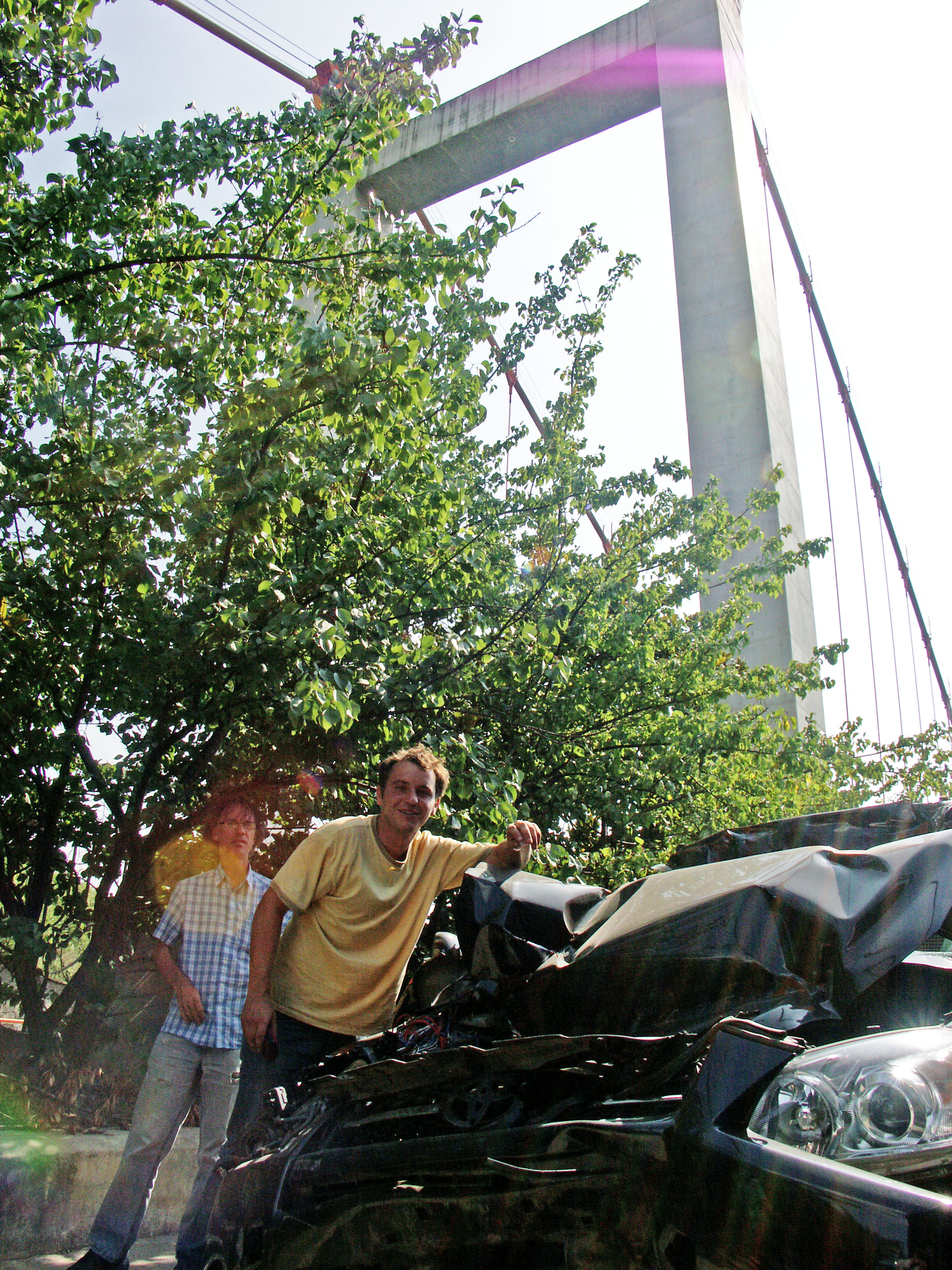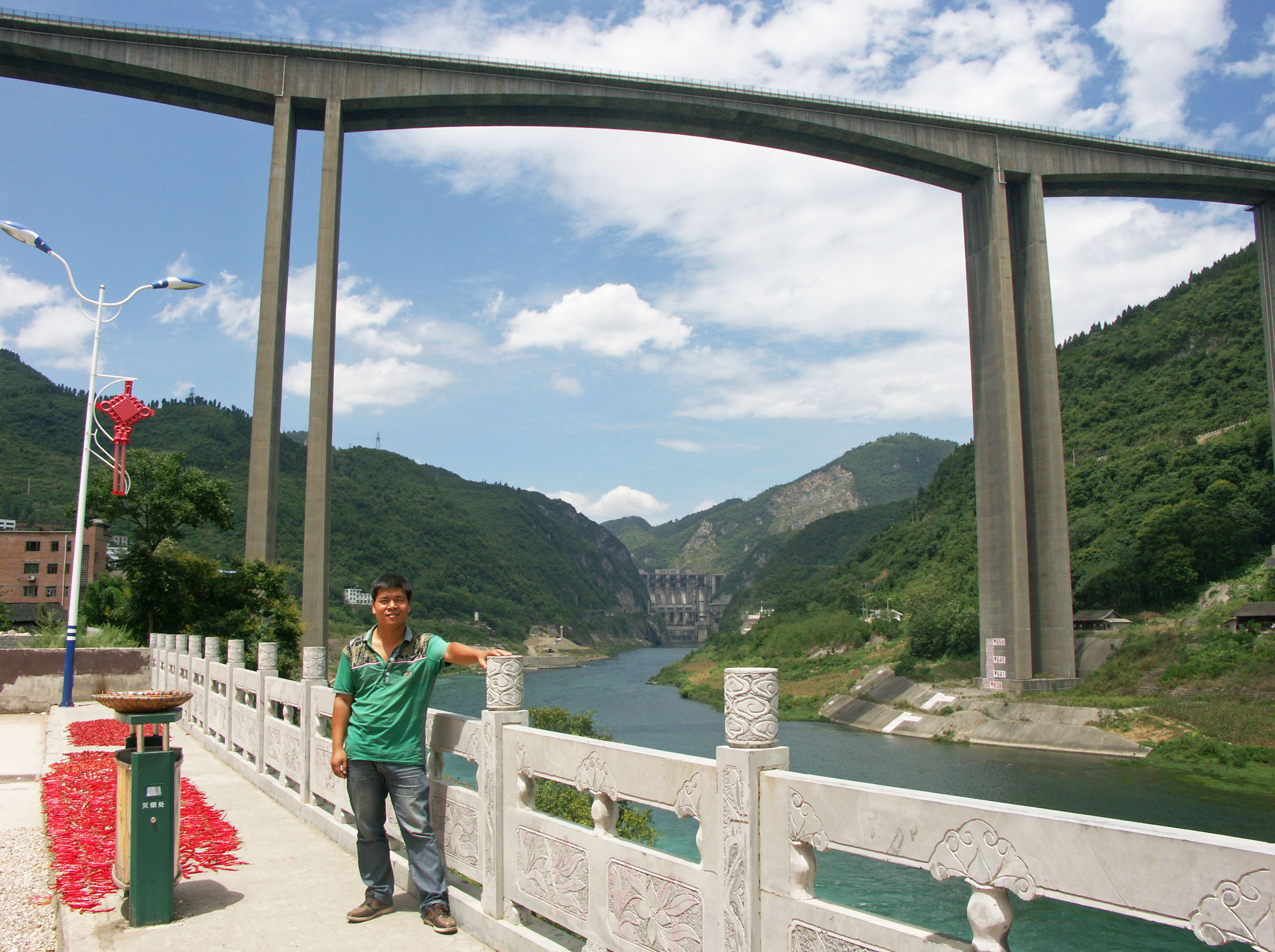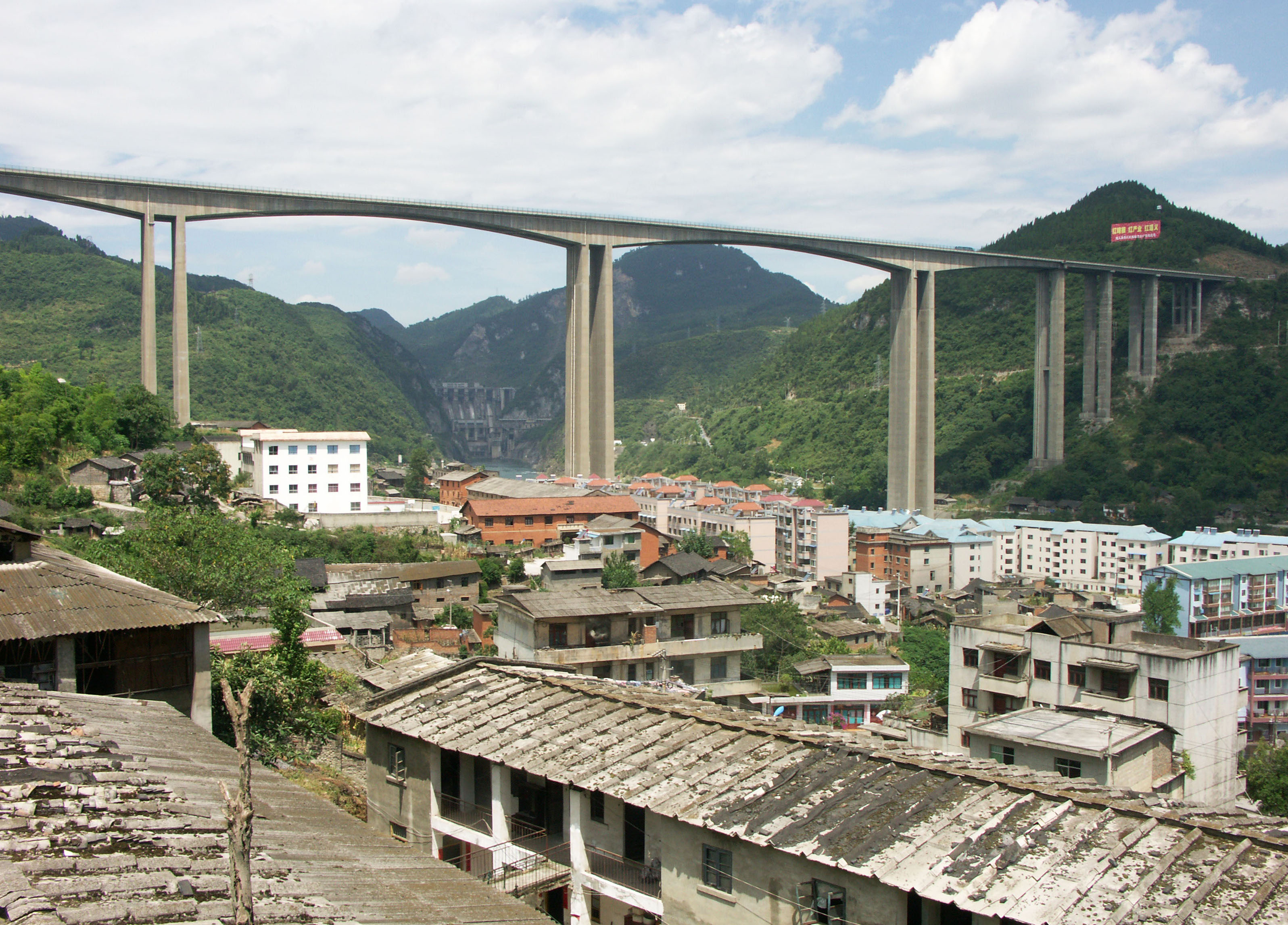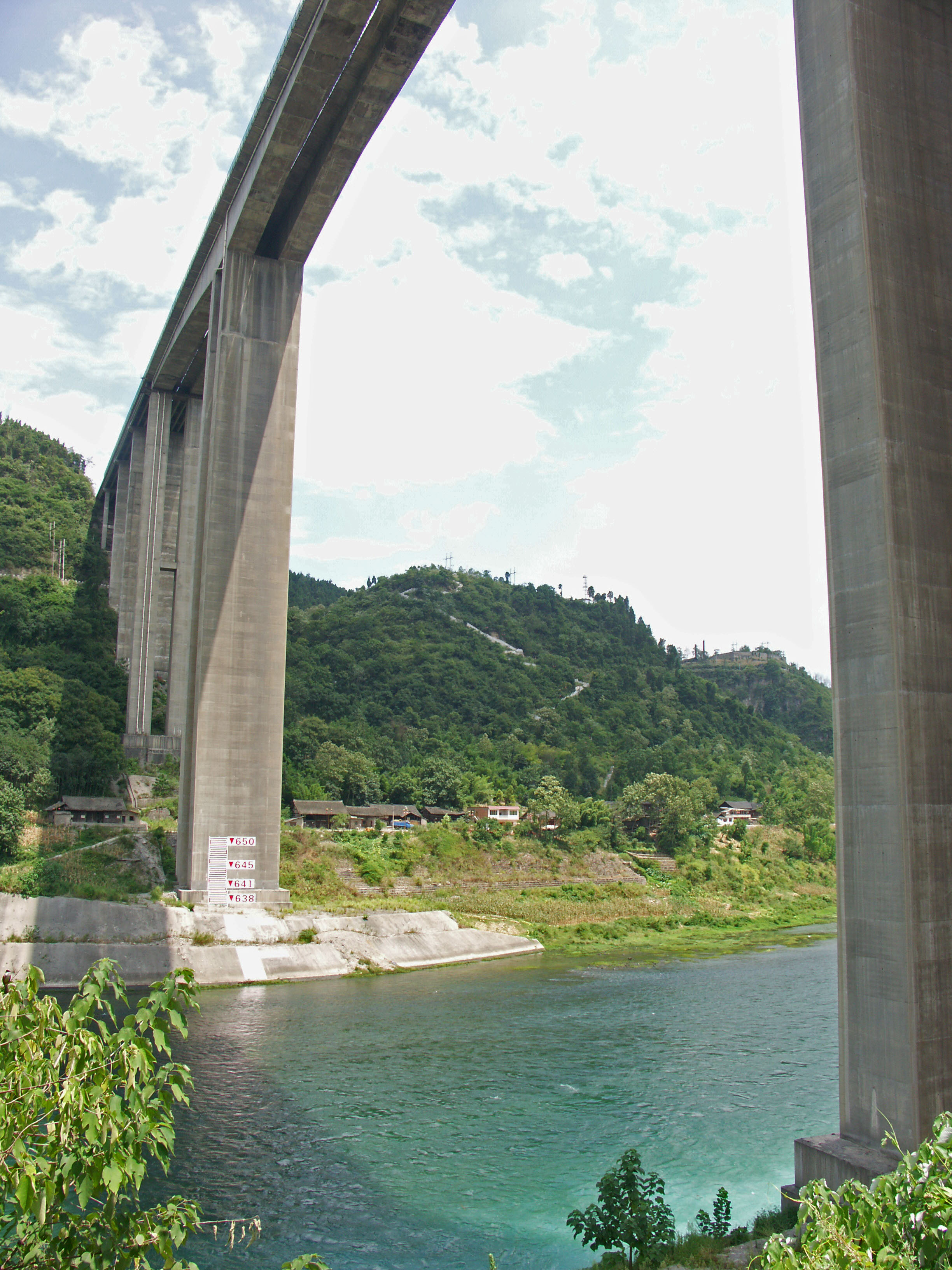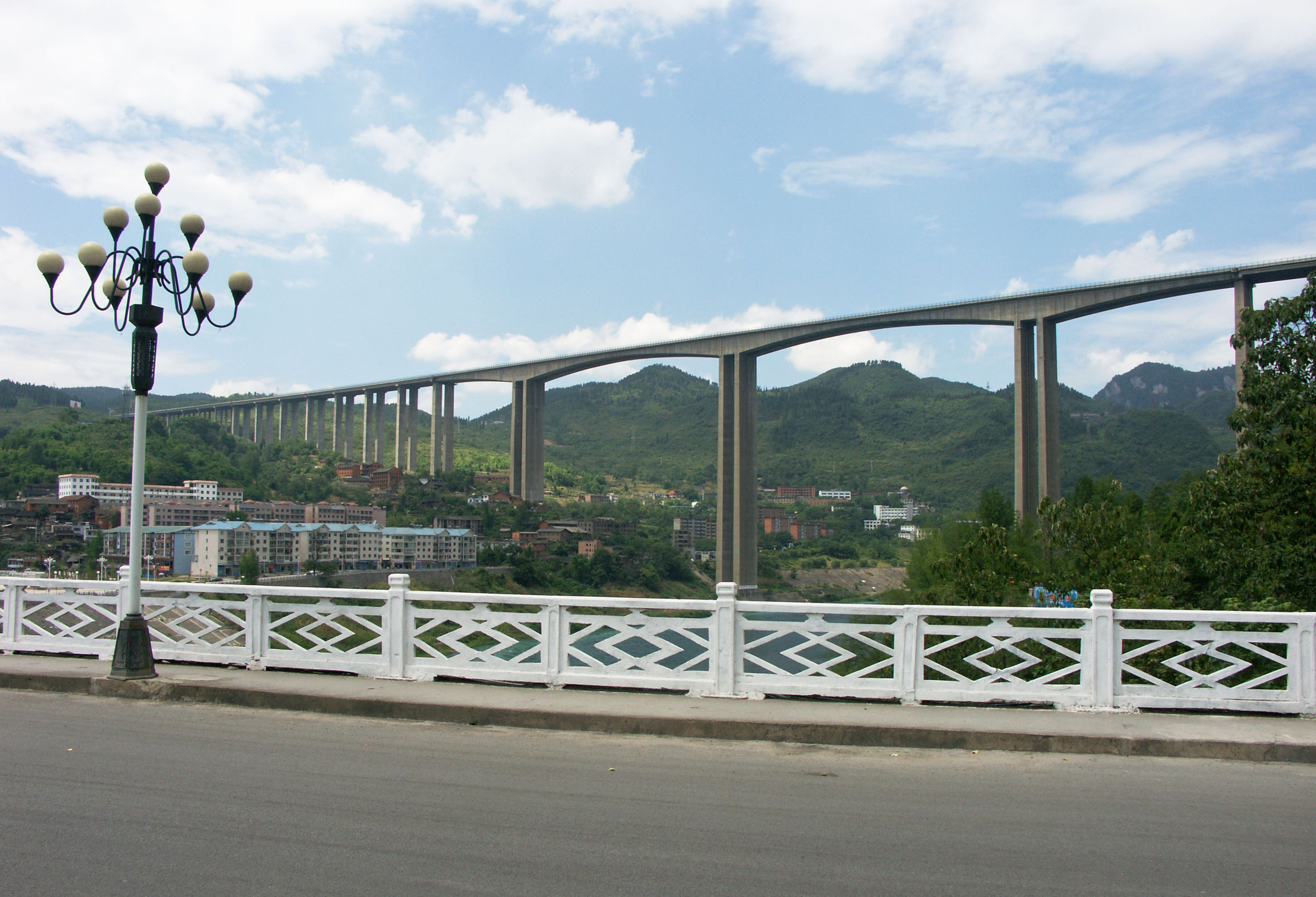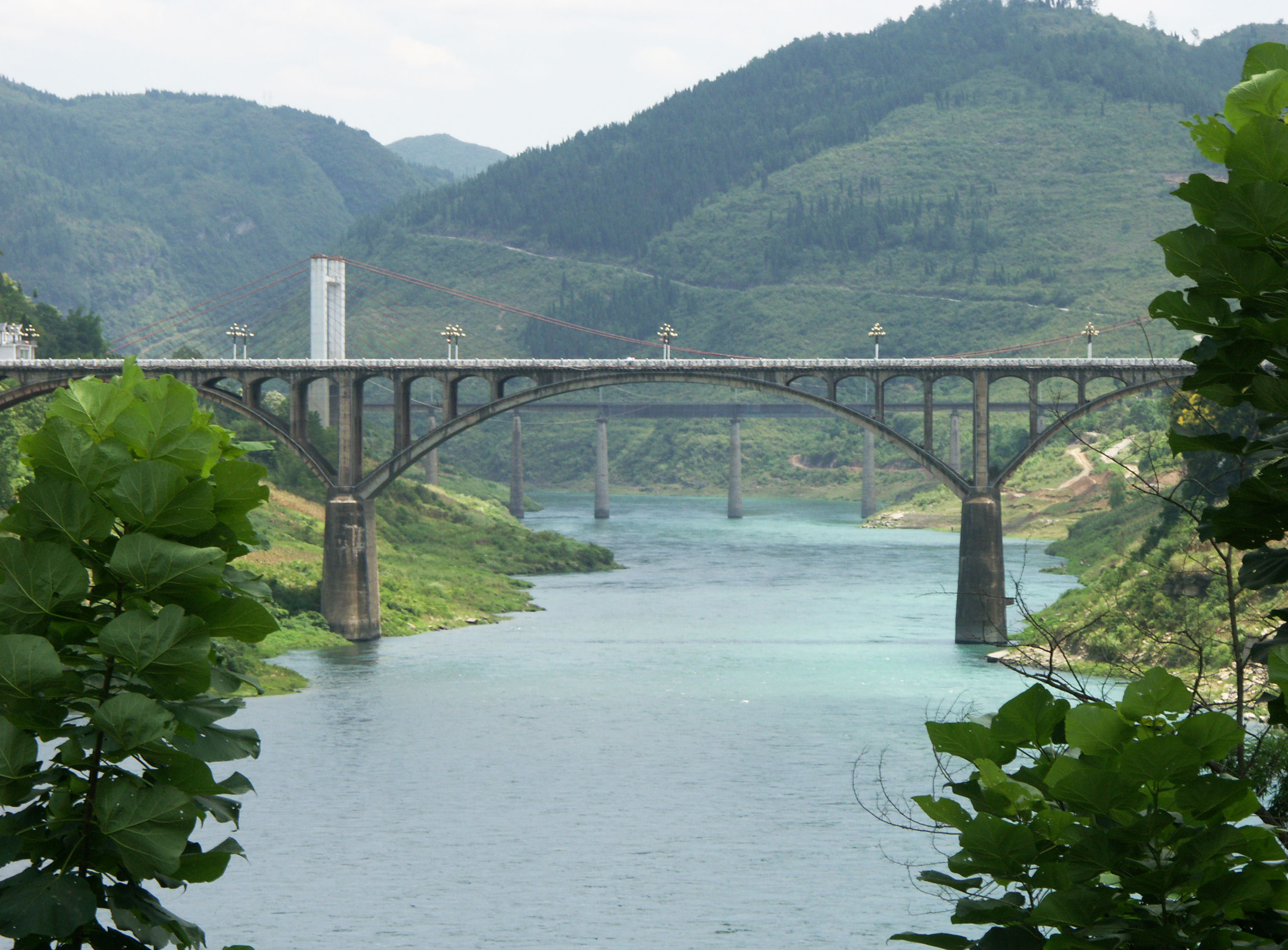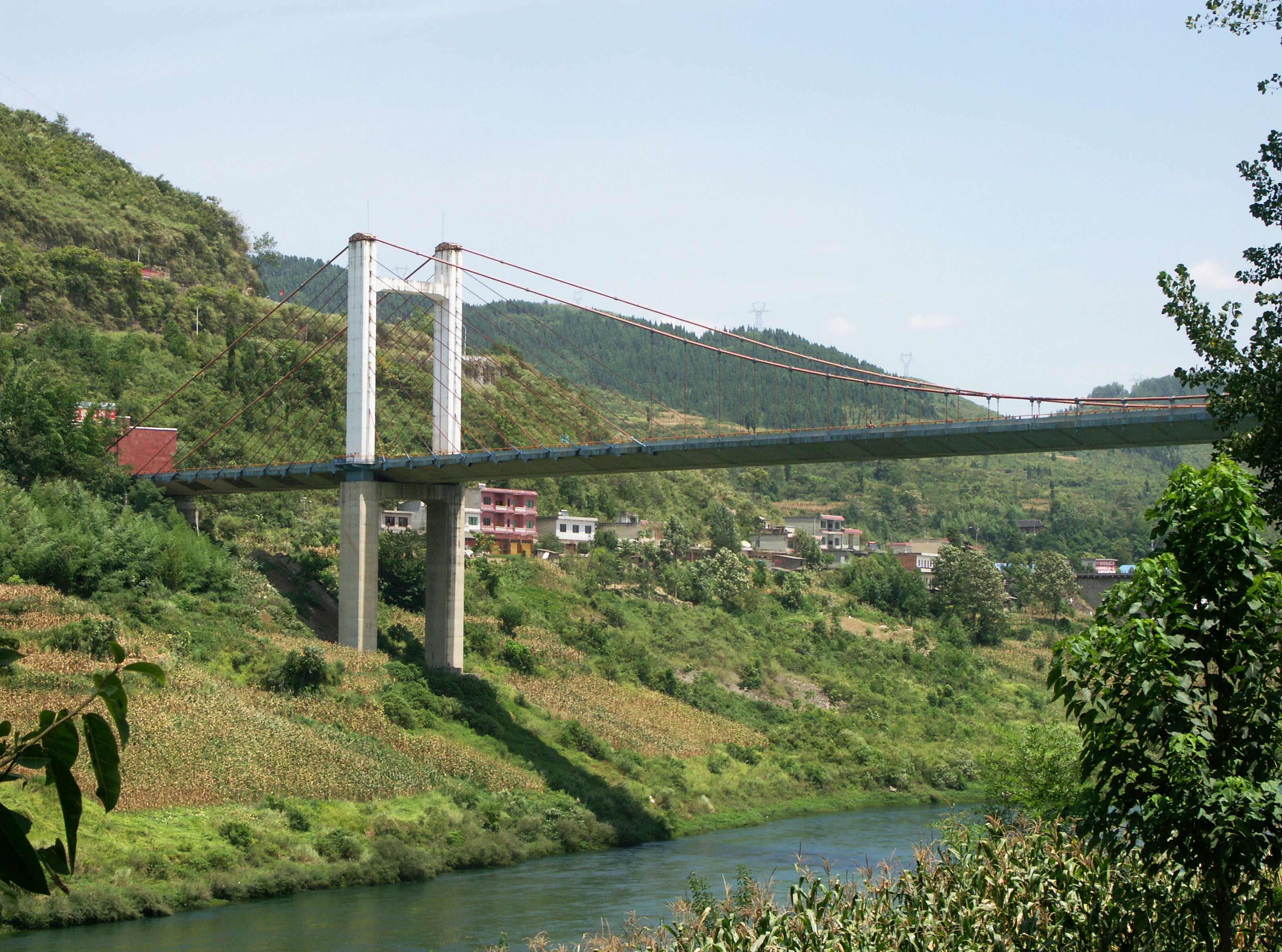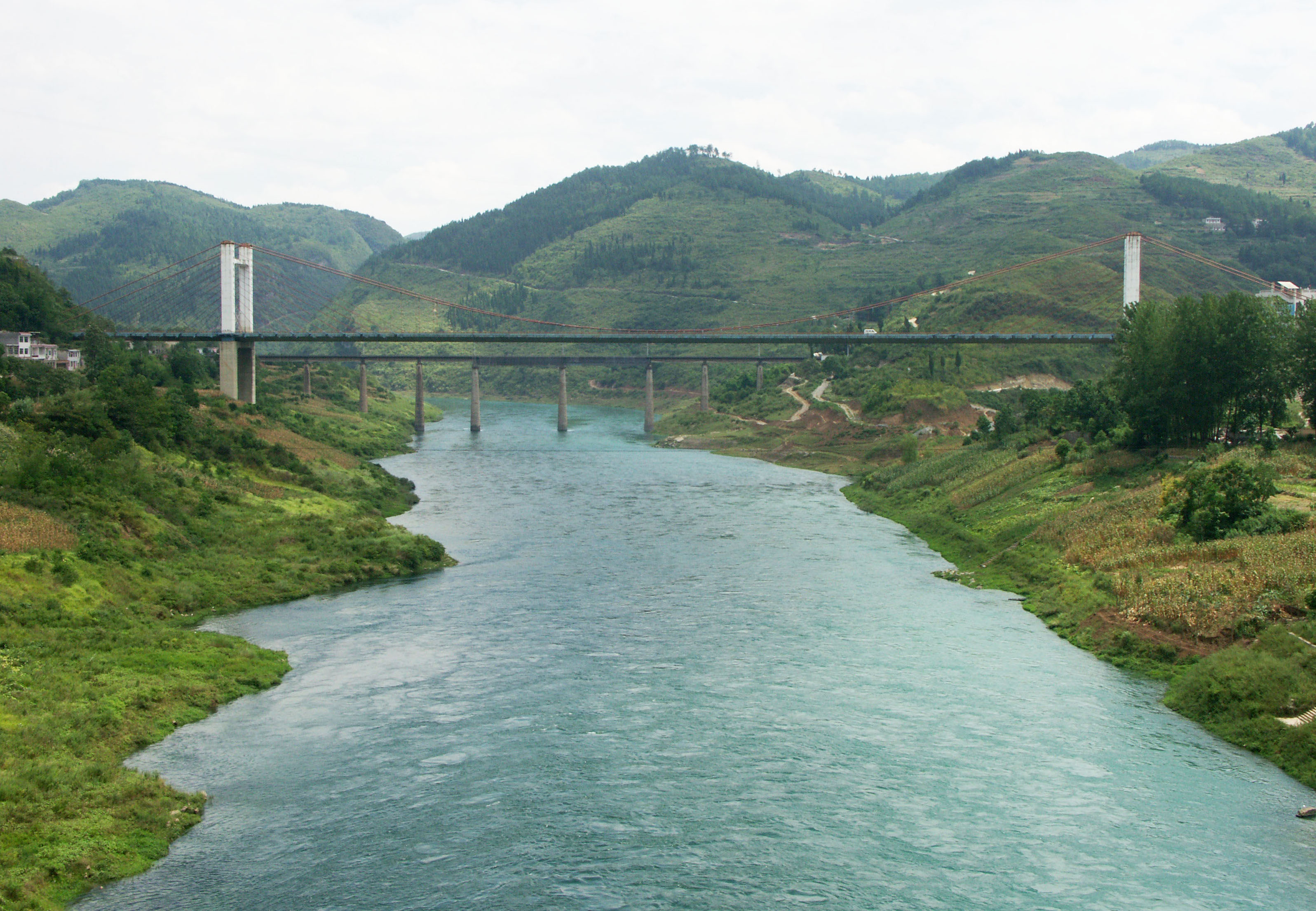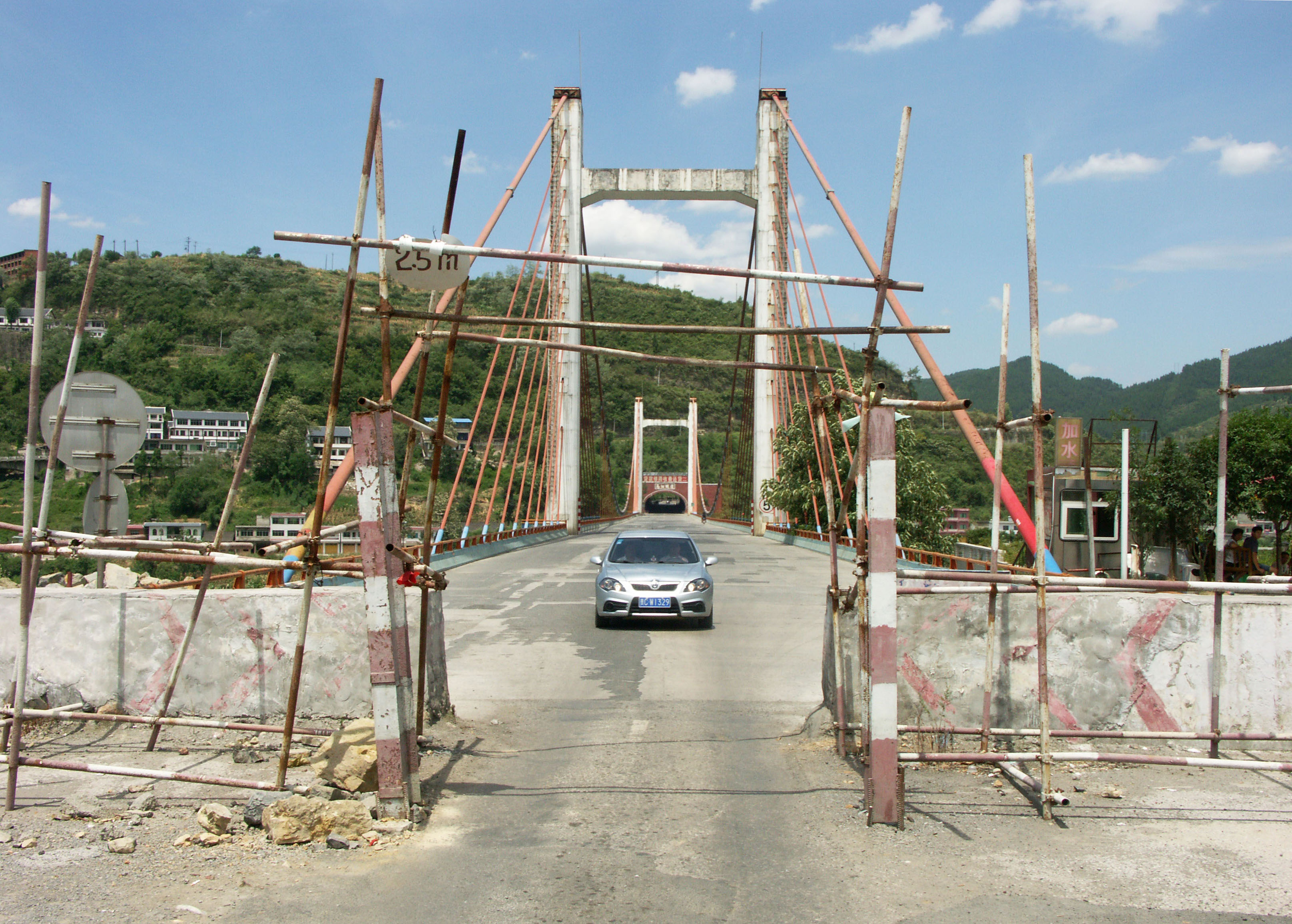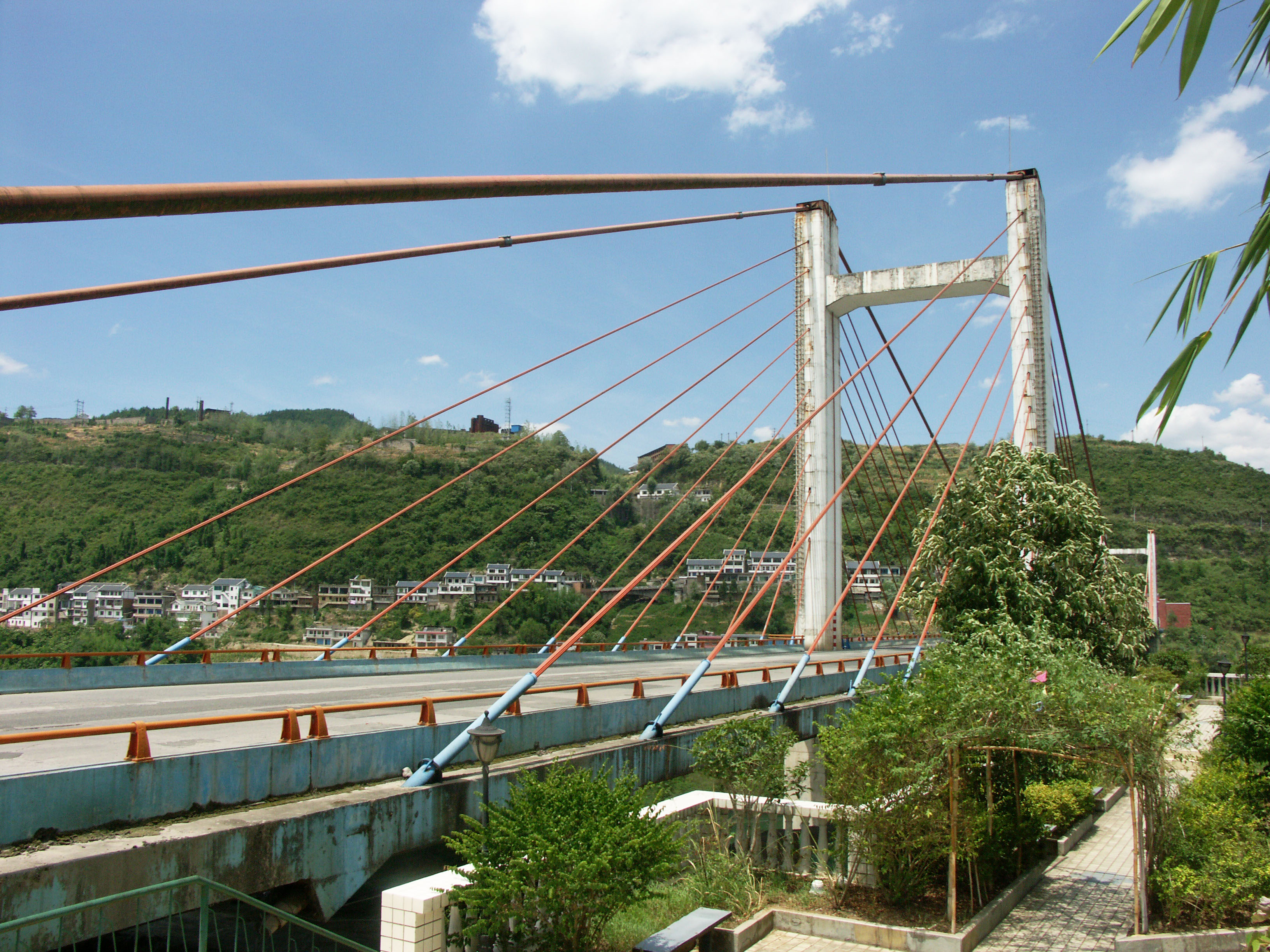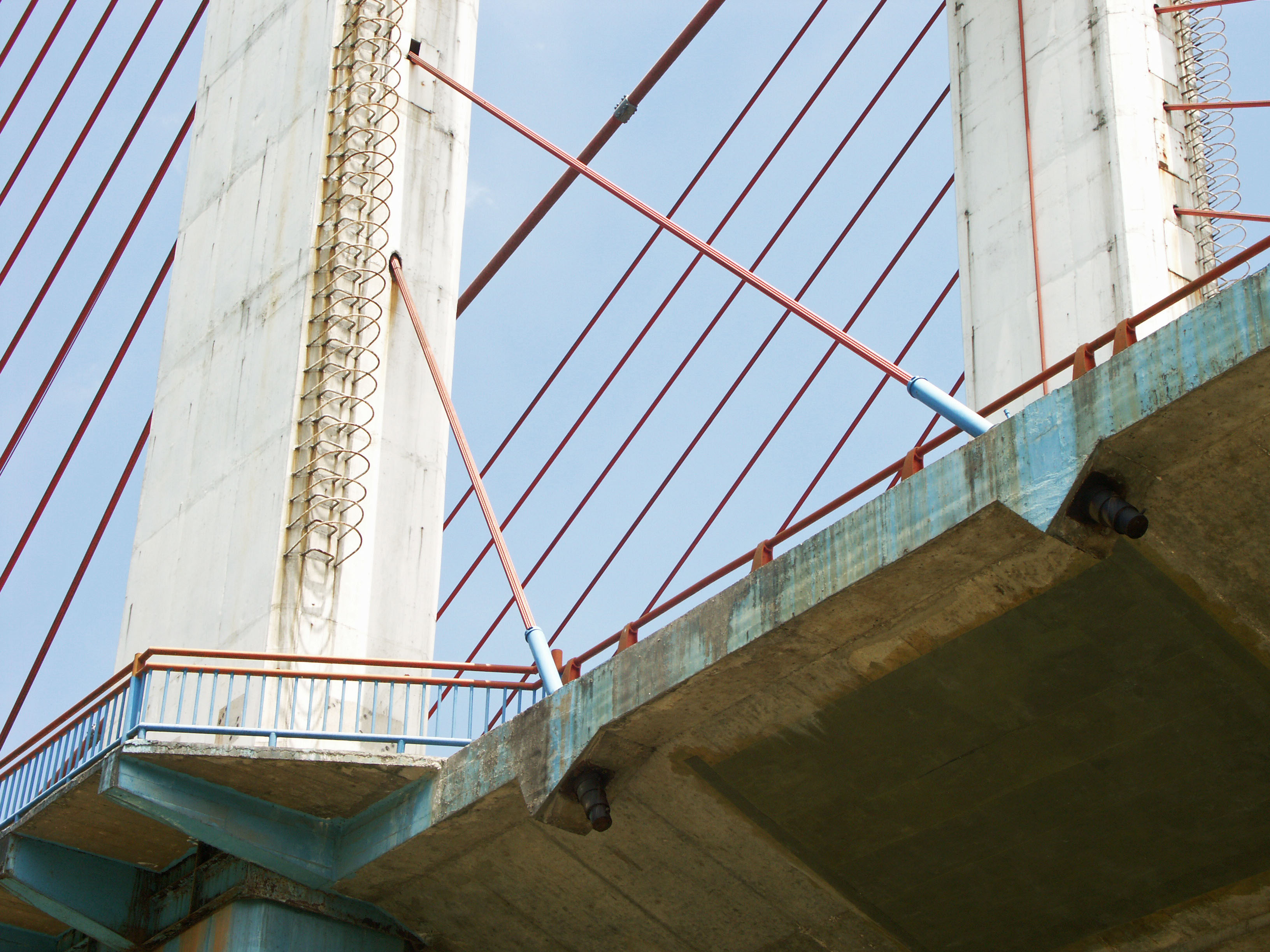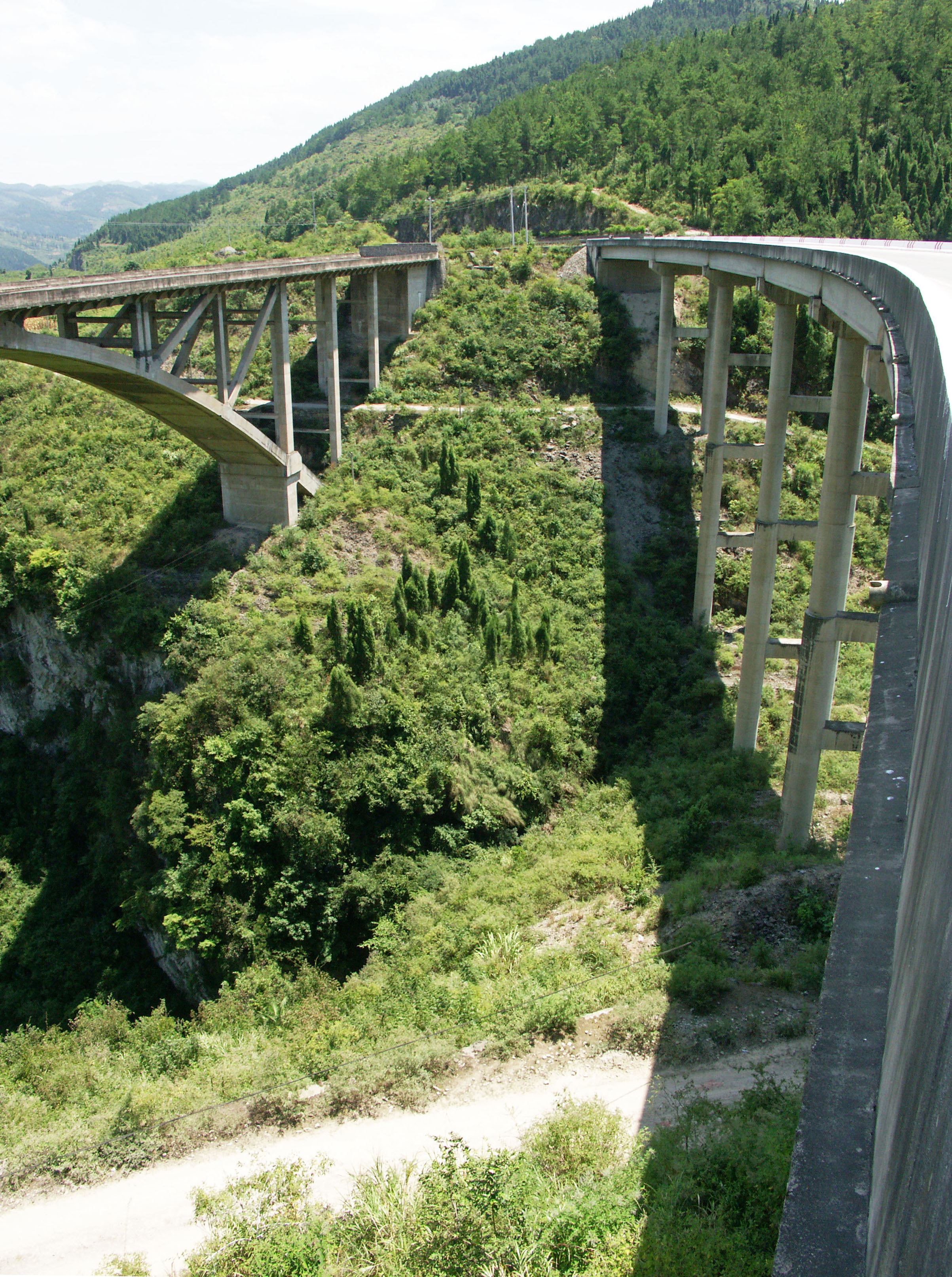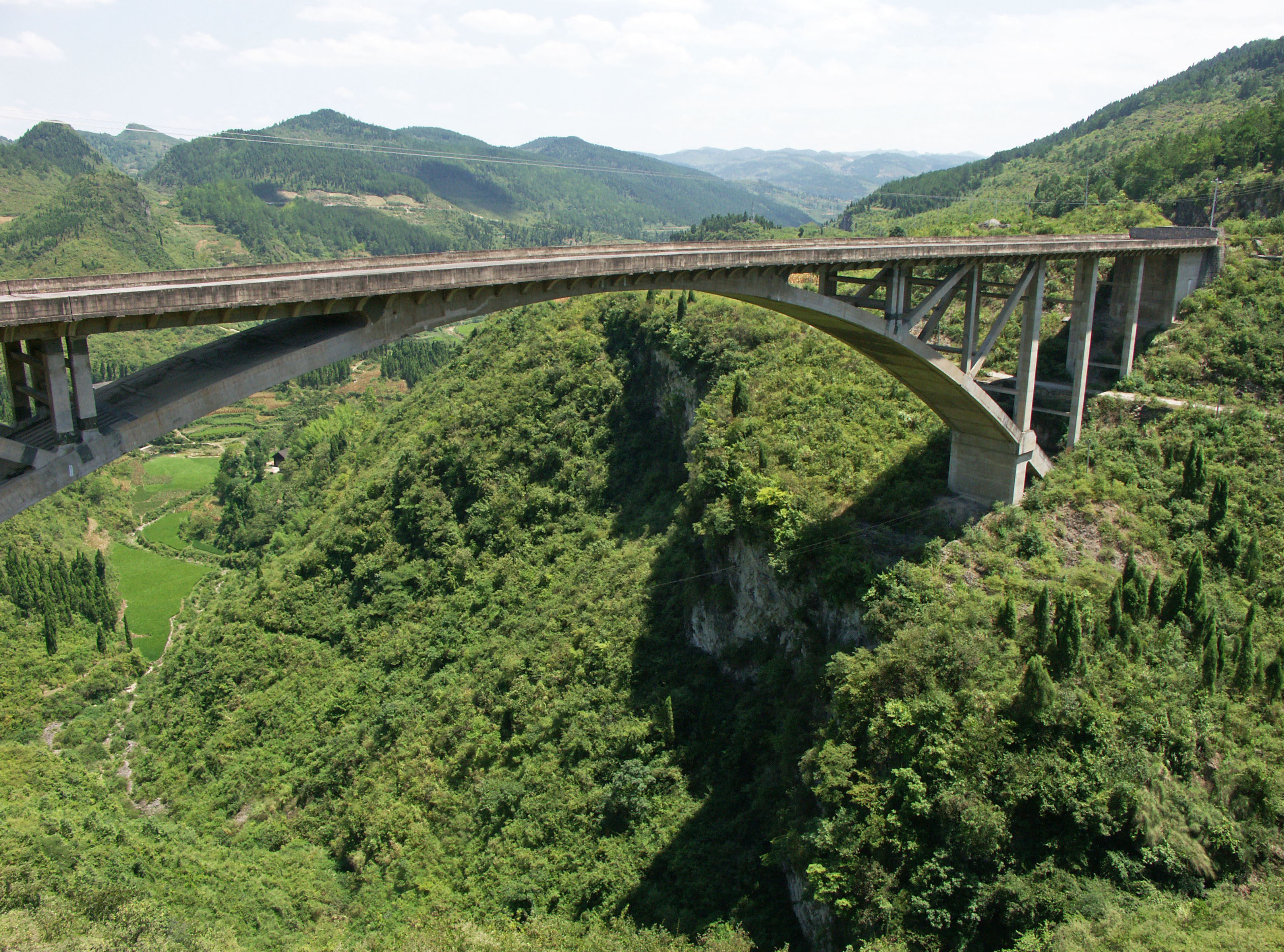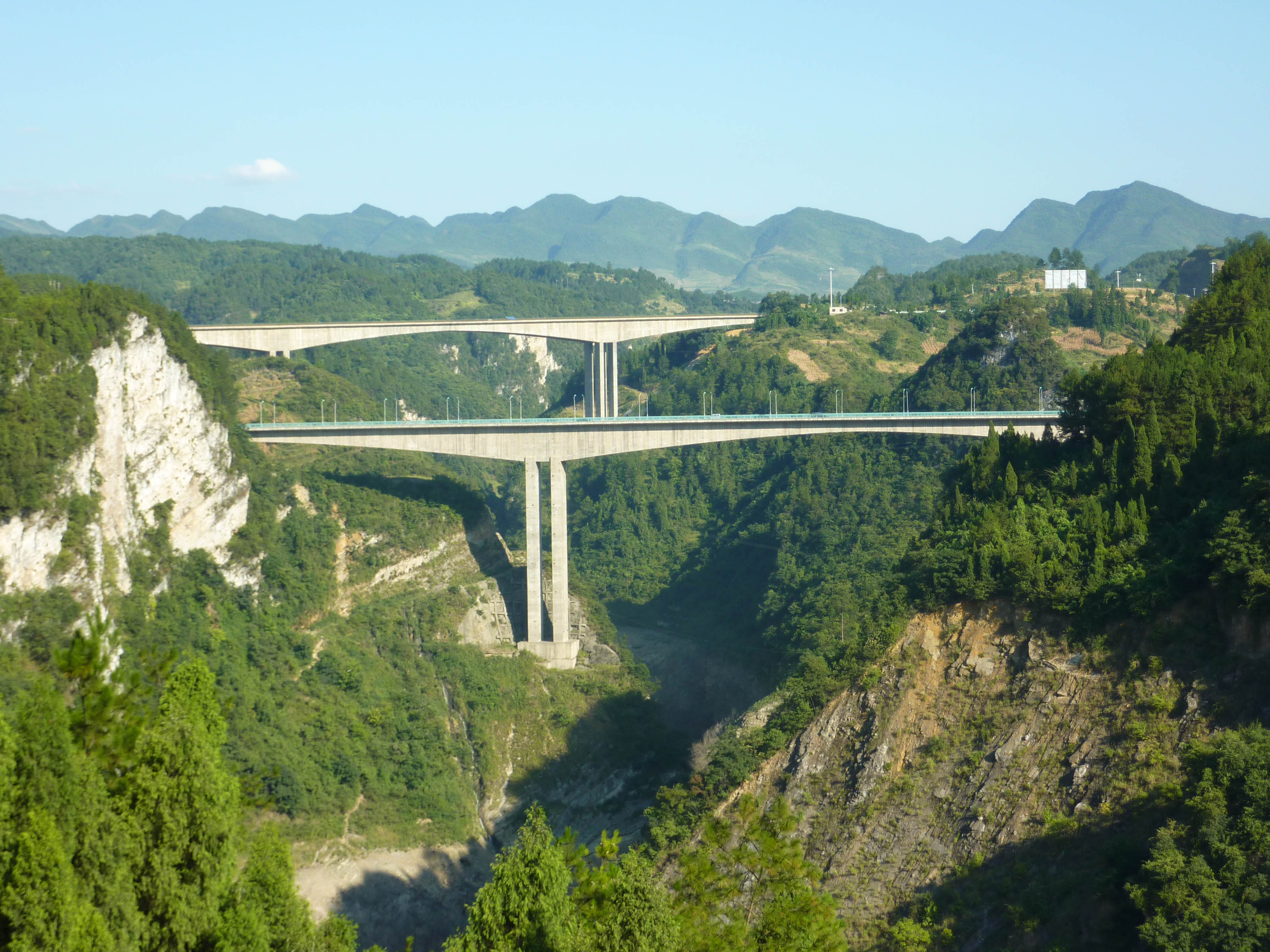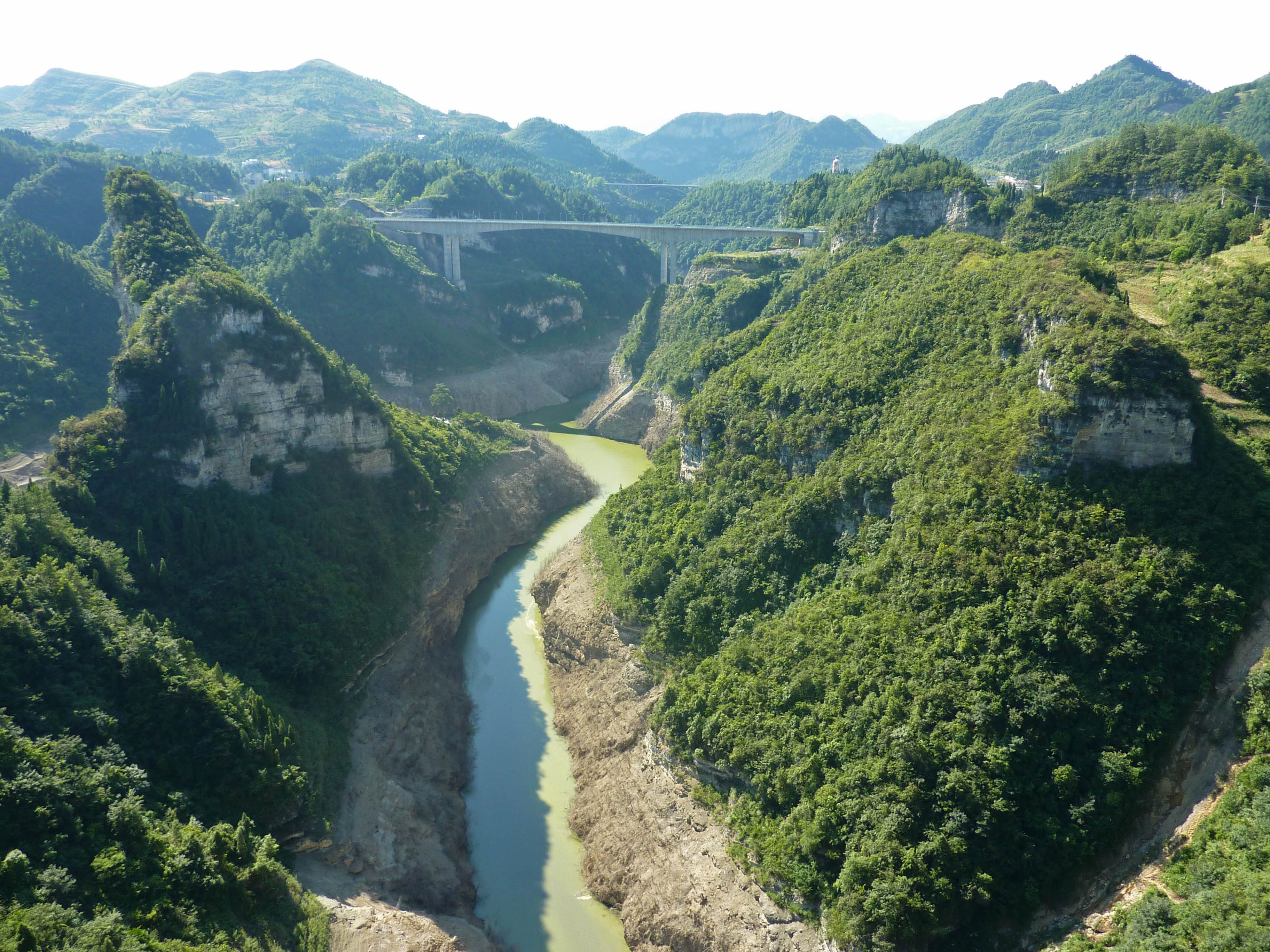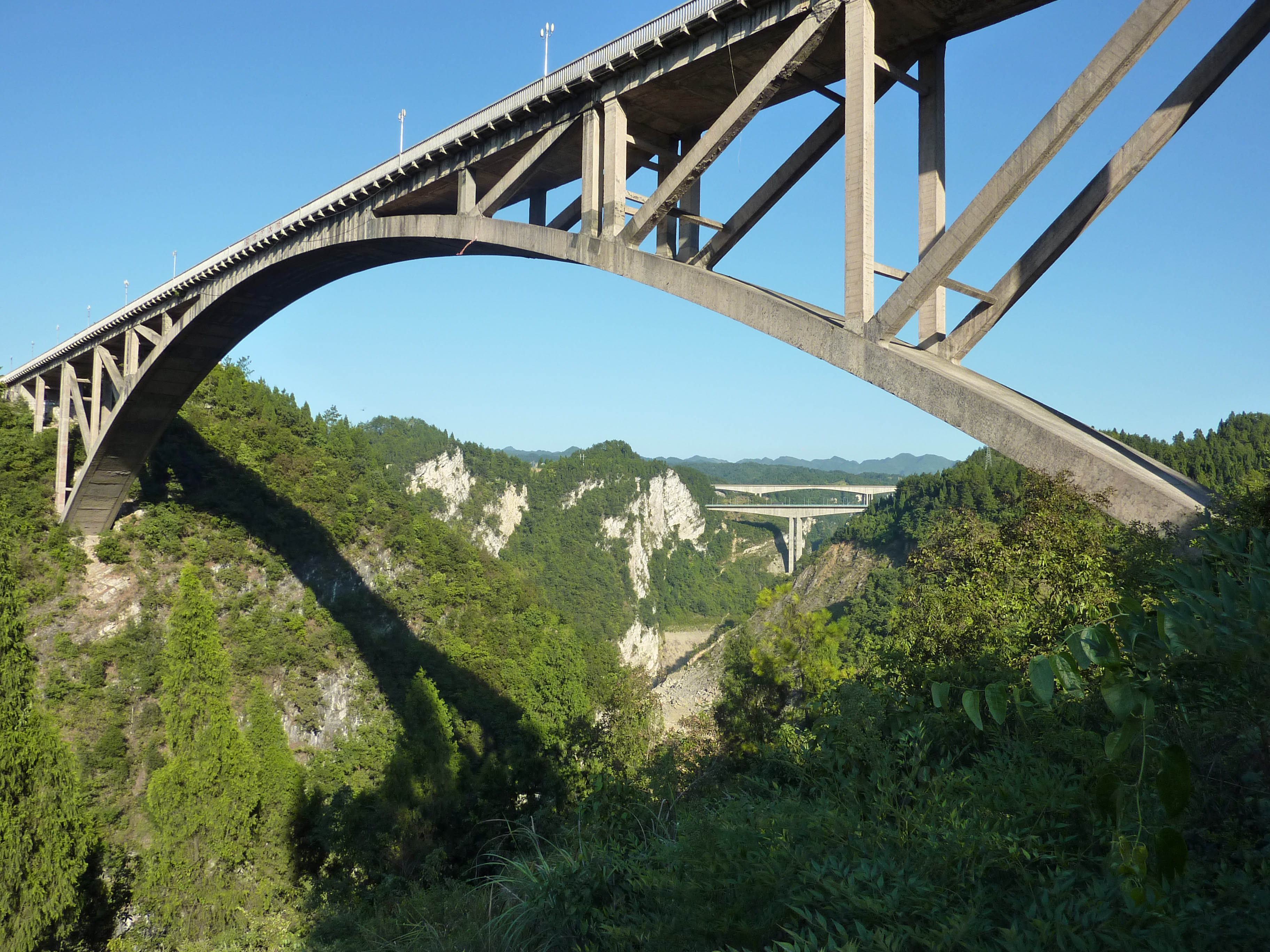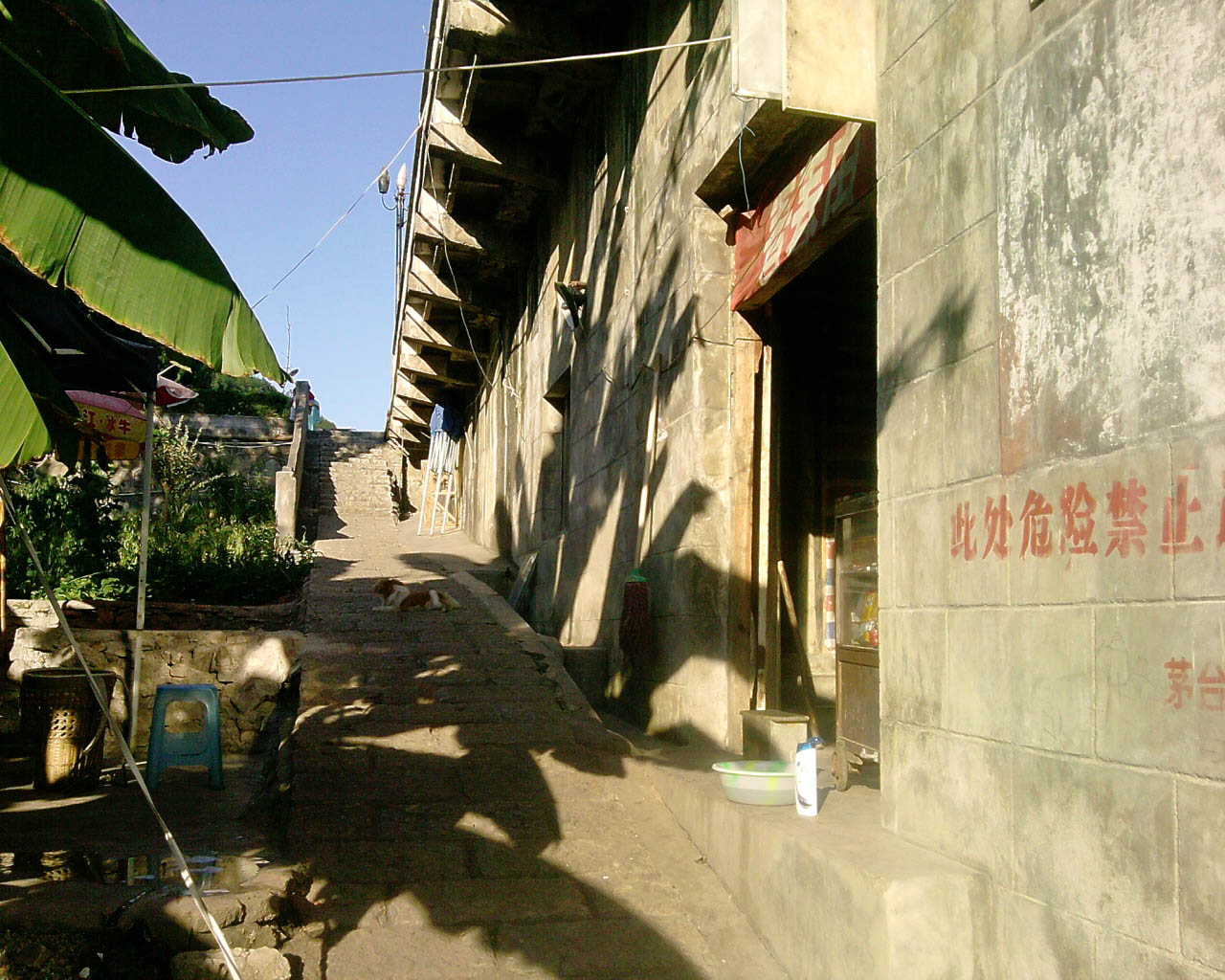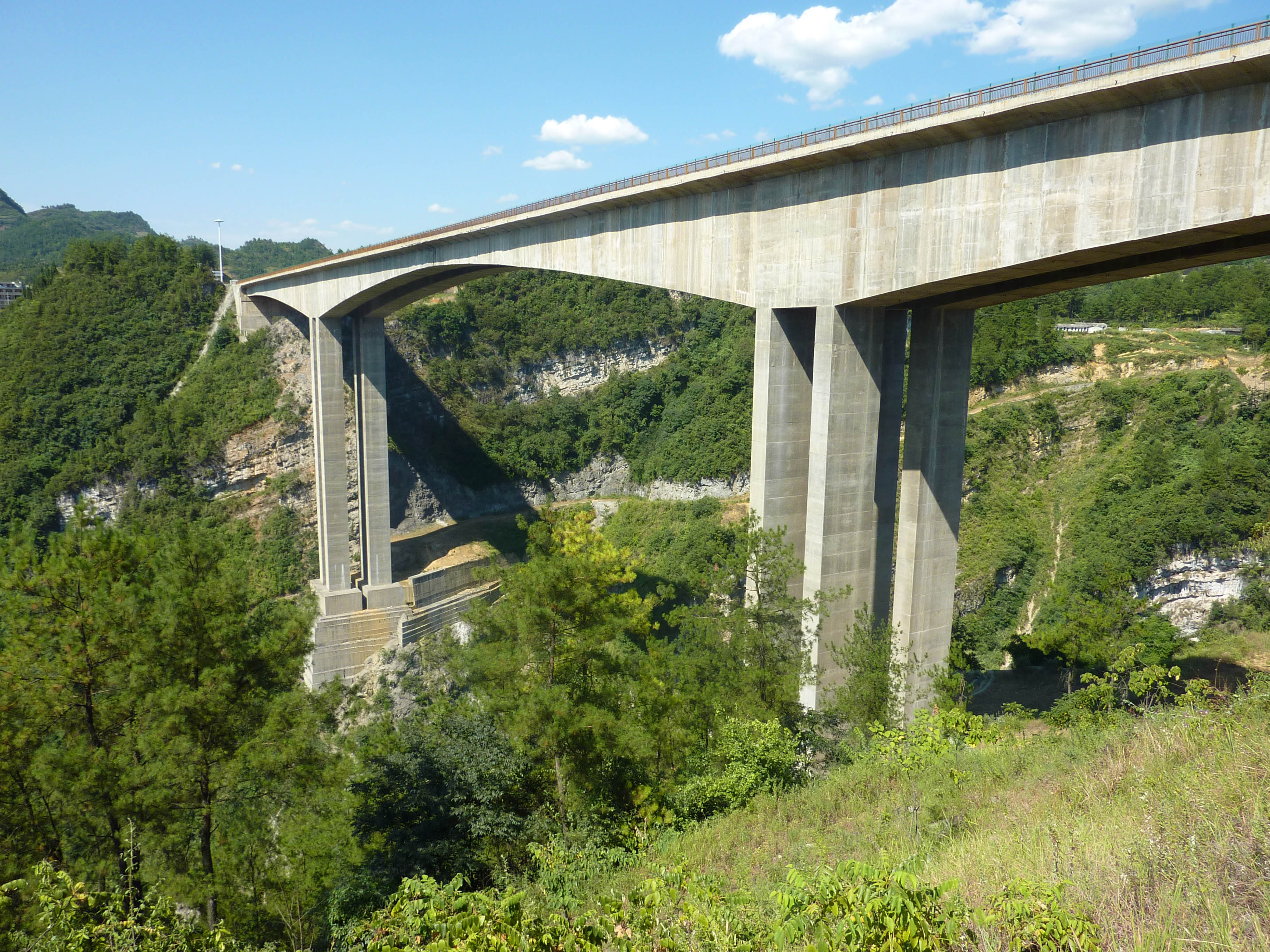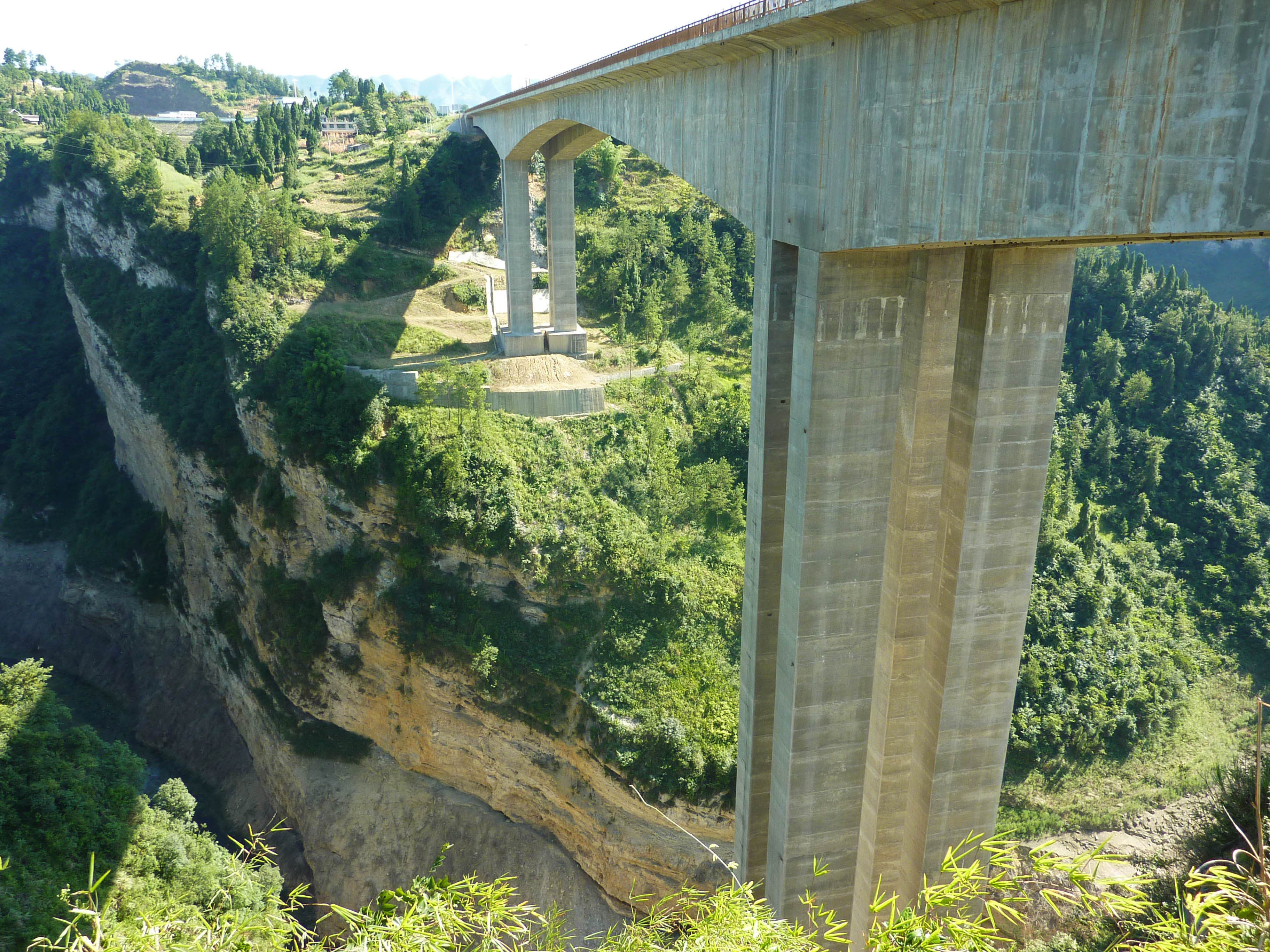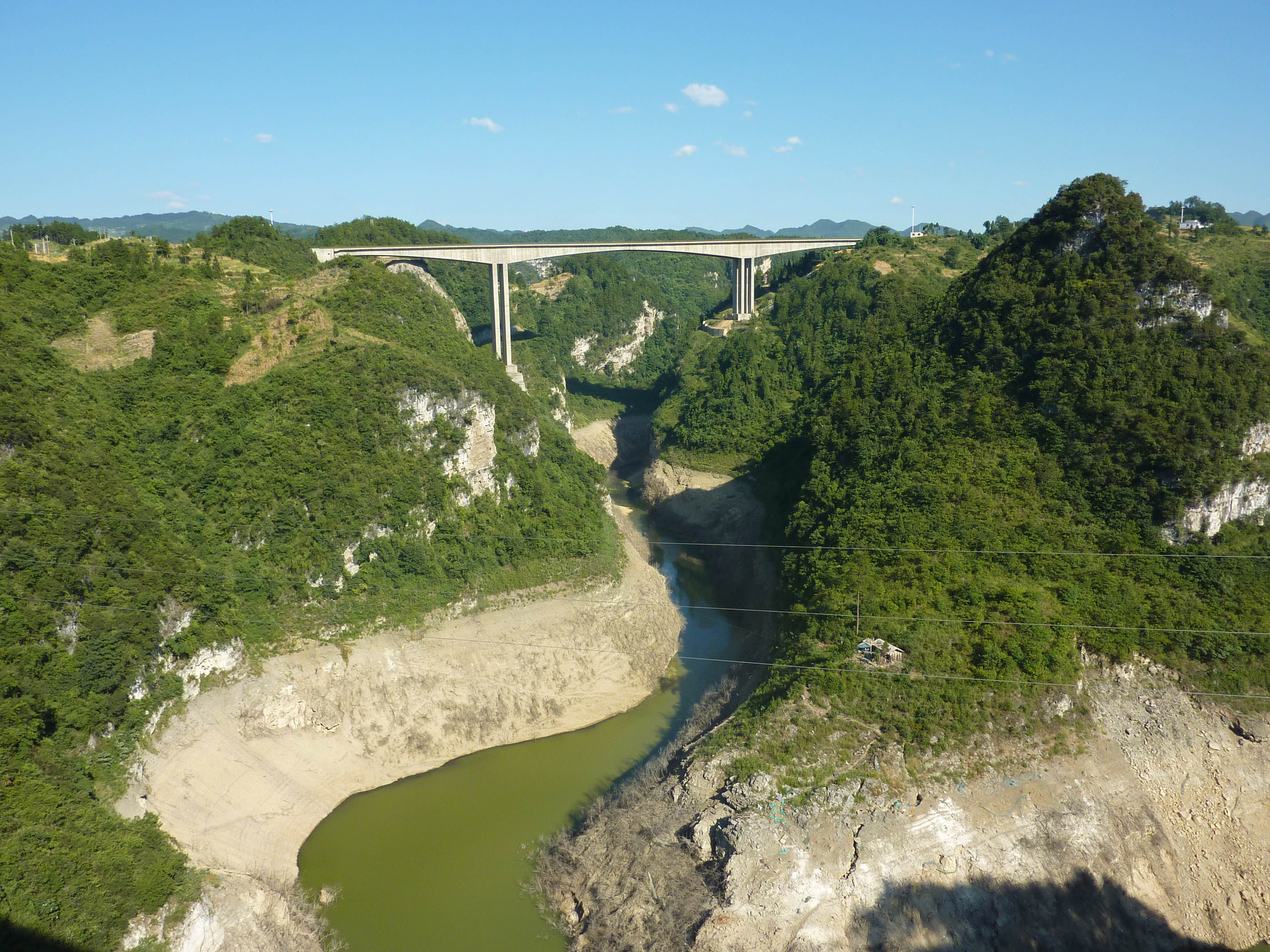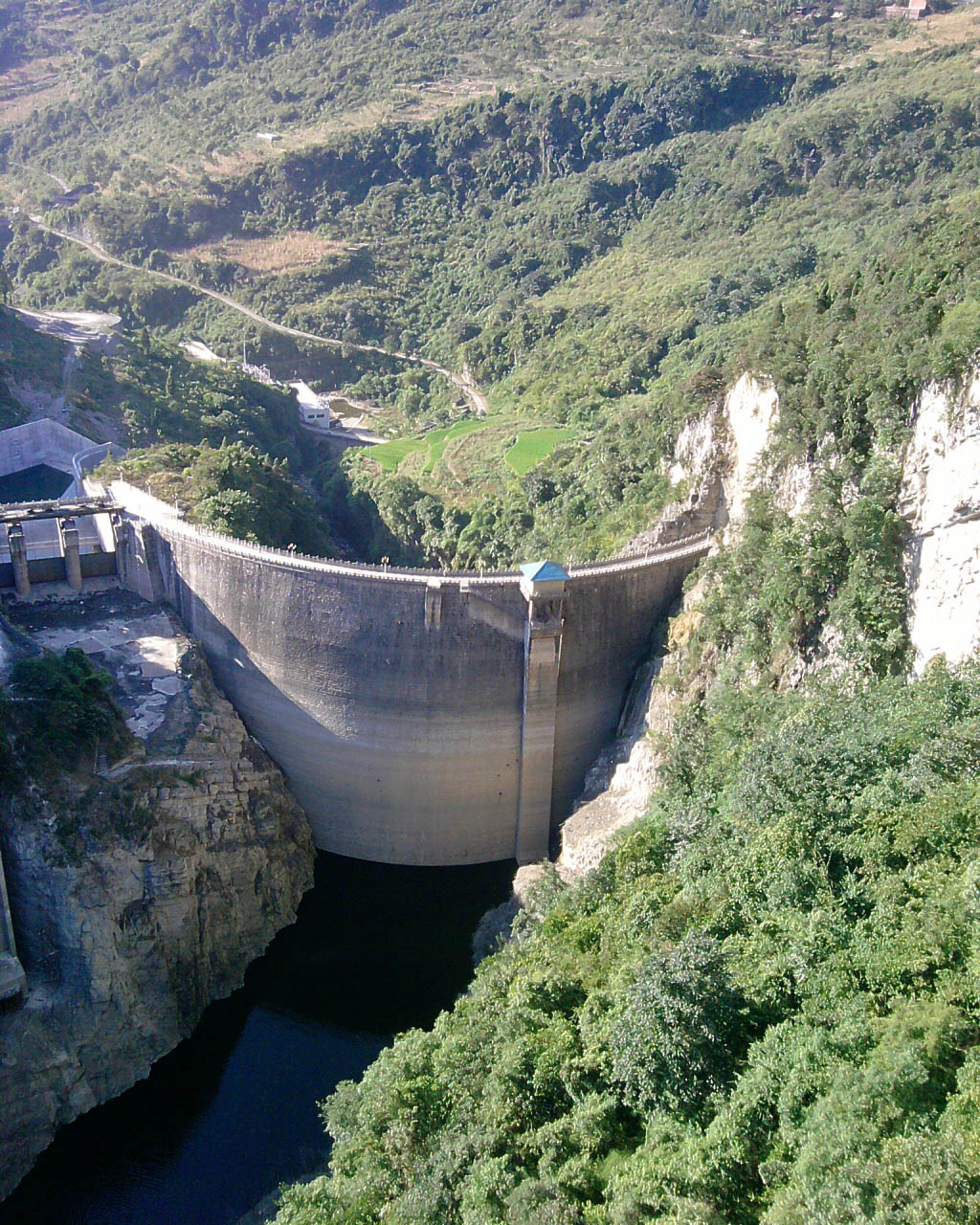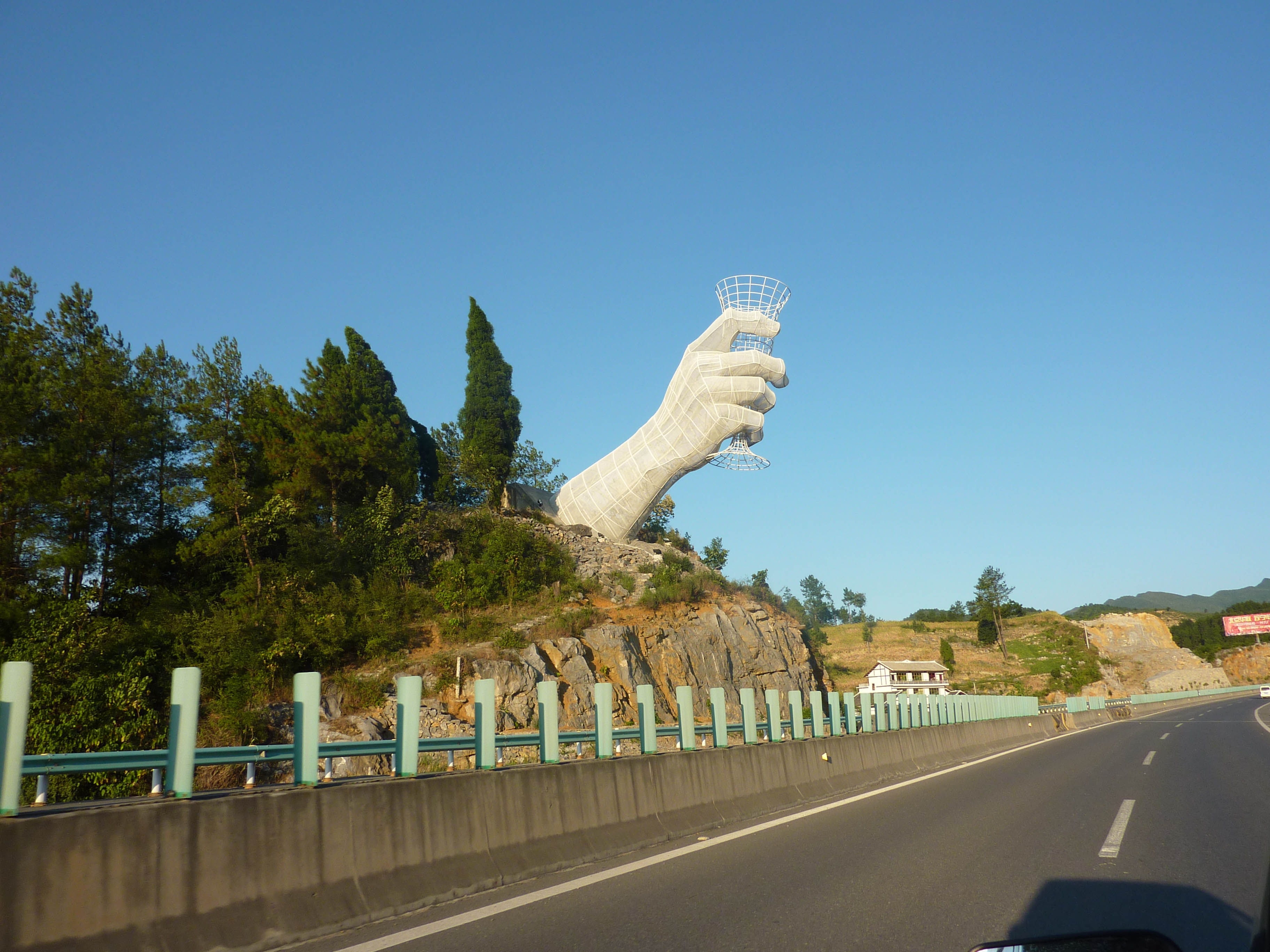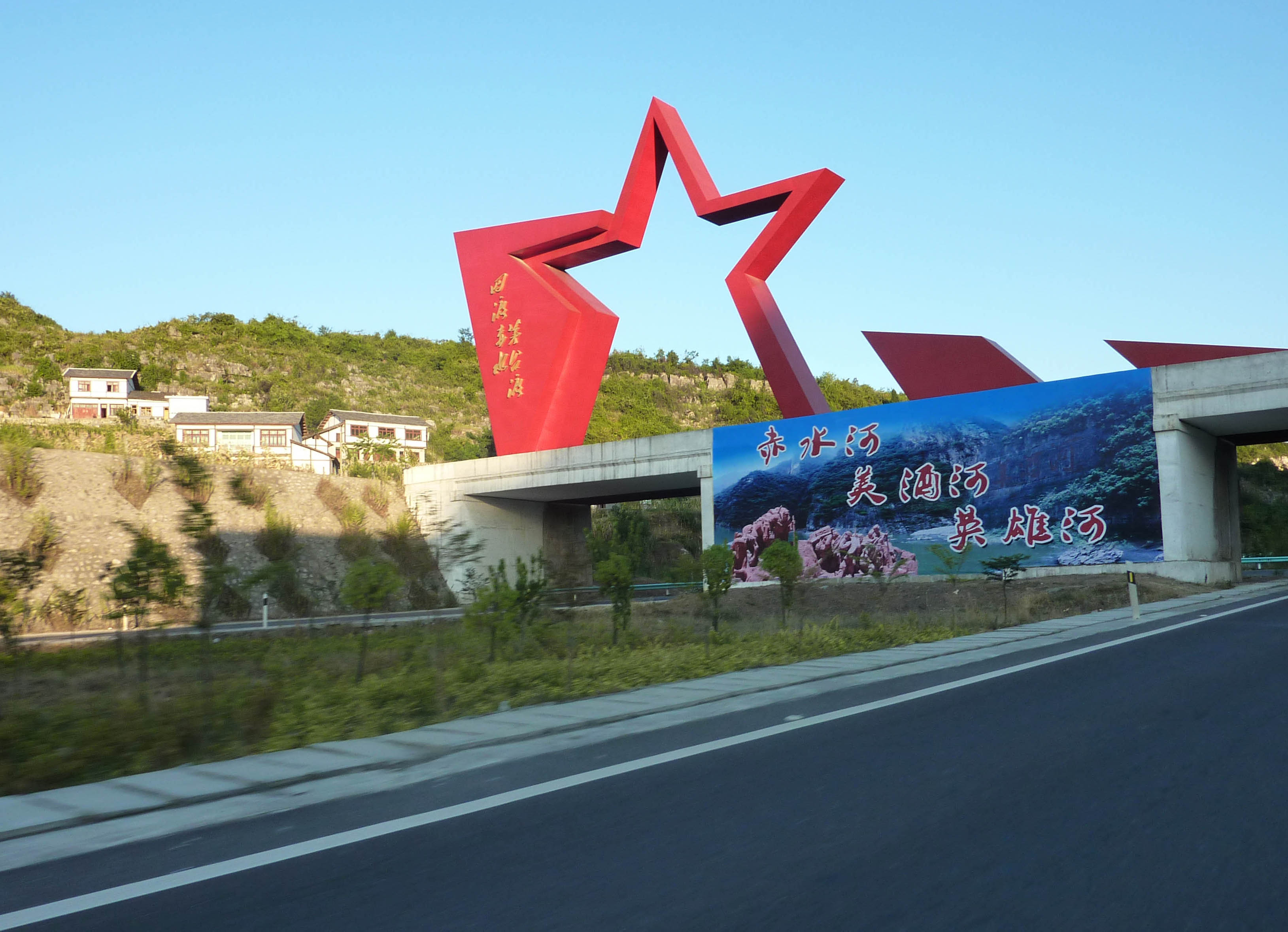2011 High Bridge Trip Photo Album/Week 2
2011 China High Bridge Trip Photo Album
Hunan and Guizhou Provinces
The special spans visited during the second week included Xisha, Aizhai, Liuguanghe, Wujiang, Balinghe, Yanjinhe and Beipanjiang 2003 Bridges.
Week 2 began with the Yushan Mountain Bridge on route 202. The 2-lane span is one of China's highest National Road Bridges with a deck 540 feet / 165 meters high. Image by Georges.
Image by Eric Sakowski / HighestBridges.com
While traveling along the old route 319 we passed directly under the G65 and the Wayyaobao Bridge. Image by Eric Sakowski / HighestBridges.com
Image by Eric Sakowski / HighestBridges.com
Back on the G65 we encountered the impressive 150 meter deep gorge of the Yanxigou Bridge. Local government officials touted the span as being higher then the Millau Viaduct despite the French bridge being almost twice the height of Yanxigou. Image by Eric Sakowski / HighestBridges.com
The Yanxigou creek flows through an underground tunnel just a few hundred meters downstream from the bridge. Image by Eric Sakowski / HighestBridges.com
The Apengjiang Bridge carries the G65 more then 100 meters above a large reservoir. Image by Eric Sakowski / HighestBridges.com
A section of Youyang City is crossed by the G65 on the Hejiaba viaduct some 90 meters high. The Image by Eric Sakowski / HighestBridges.com
Image by Eric Sakowski / HighestBridges.com
The G65 has more miles of tunnel then any other highway on earth with at least 120 kilometers of underground 4-lane tunnels. Here we are about to enter an 8,665 meter / 5.4 mile long tunnel which in itself is longer then all the combined tunnels of the Pennsylvania Turnpike - the most tunneled highway in the U.S. Image by Eric Sakowski / HighestBridges.com
Xisha Bridge is another spectacular gorge buster along the G65 with the world's highest through arch span some 217 meters high. Image by Eric Sakowski / HighestBridges.com
Image by Eric Sakowski / HighestBridges.com
Image by Eric Sakowski / HighestBridges.com
Georges goes for a hike up along the top of the concrete filled steel tubular ribs. Image by Eric Sakowski / HighestBridges.com
Just a kilometer downstream of the bridge is a new dam whose reservoir will likely reduce the height of the arch by at least 30 meters. Image by Georges.
Image by Eric Sakowski / HighestBridges.com
A temporary Tibet-style hanging footbridge was located beneath the arch span during construction and ranks among the 10 highest footbridges ever built. Image by Eric Sakowski / HighestBridges.com
Roger gives some perspective to the scale of the arch ribs. Image by Eric Sakowski / HighestBridges.com
Someone had fun turning the wall of a cinder block building into the "Xisha Shark". Image by Eric Sakowski / HighestBridges.com
Image by Eric Sakowski / HighestBridges.com
Image by Eric Sakowski / HighestBridges.com
Our first major bridge in Hunan Province was the Mengdong River Bridge at the city of Yongshun with a deck 420 feet / 128 meters high. Image by Eric Sakowski / HighestBridges.com
Image by Eric Sakowski / HighestBridges.com
We ran into a traffic jam on the way to the Mengdong arch bridge. Image by Eric Sakowski / HighestBridges.com
The amazing temporary footbridge set up for the construction of the new Mengdong arch bridge. This span was 570 feet above the reservoir and was more then 300 meters long.
We all appreciated the special tour construction manager Michael Wu gave us which included a walk across the footbridge. Our movement across the bridge created some unusual oscillations and other odd motions that made it one of the most unique bridge crossings I have ever taken. The feeling is similar to the experience of walking over a tourist bridge like Canada's Capilano Bridge but with much longer and more sustained up and down "wave" motions. Image by Michael Wu.
Image by Michael Wu.
Image by Michael Wu.
Image by Michael Wu.
Image by Michael Wu.
Image by Michael Wu.
The stunning Aizhai Bridge with a main span nearly as long as the Golden Gate Bridge and a deck height of 1,102 feet! Image by Eric Sakowski / HighestBridges.com
Image by Eric Sakowski / HighestBridges.com
Image by Eric Sakowski / HighestBridges.com
Image by Eric Sakowski / HighestBridges.com
Image by Eric Sakowski / HighestBridges.com
Image by Eric Sakowski / HighestBridges.com
Image by Eric Sakowski / HighestBridges.com
The green safety net gave the span a great glow in the midday sun. Image by Eric Sakowski / HighestBridges.com
Image by Eric Sakowski / HighestBridges.com
The small town of Aizhai is dwarfed by the bridge. Image by Eric Sakowski / HighestBridges.com
Image by Eric Sakowski / HighestBridges.com
The Dehang Canyon road dead ends in 4 kilometers where a special minority village is located. As an invited guest you can see a spectacular show with music, colorful costumes, dragons, a fire walker and more! Image by Eric Sakowski / HighestBridges.com
The spectacular canyon where the road continues on to the small village and theater.
Image by Georges.
Image by Georges.
They always pluck a guest from the crowd to sing. I was quite embarrassed but managed to "sing" a few lines of Jingle Bells. Image by Ms. Xu.
Georges and Roger get a special walk with one of the lead performers. Image by Ms. Xu.
Our visit to Aizhai Bridge was made even more special by Ms. Xu of the Hunan government who put us up in a local hotel and treated us all to several wonderful meals. I helped her celebrate the completion of the bridge with a first ever BASE jump event held in late 2012. Image by Ms. Xu.
Our hotel was perfectly located within the small town of Aizhai. Image by Eric Sakowski / HighestBridges.com
Our hotel served a varied dinner that included every food group imaginable. The black bees at the top of the image were especially tasty with a nice crunch and no worries about getting stung! Image by Eric Sakowski / HighestBridges.com
Our trek along the G76 included a visit to the Shimenkan Bridge east of Guiyang City. Image by Eric Sakowski / HighestBridges.com
Like so many high gorge bridge locations in China, the tight Shimenkan canyon is also home to a dam. Image by Eric Sakowski / HighestBridges.com
The giant Xiaoguanshuiku Bridge is the highest of many new bridges in the immediate vicinity of Guiyang, the capital of Guizhou Province and ground zero for those looking to venture to the region's incredible collection of high bridges. Image by Eric Sakowski / HighestBridges.com
Looking north from Xiaoguanshuiku there is a bridge and reservoir as well as the construction of a new expressway tunnel that will lead onto a new viaduct alongside the river. Image by Eric Sakowski / HighestBridges.com
The last span of Xiaoguanshuiku is asymmetric. Image by Eric Sakowski / HighestBridges.com
Xiaoguanshuiku Bridge looking north. Image by Eric Sakowski / HighestBridges.com
After 10 days of non-stop Chinese meals we finally dined out for some Guiyang pizza! Image by Eric Sakowski / HighestBridges.com
This unusual skyscraper on the western edge of the city looks spectacular at night with lasers and lights shooting off the top in all directions. Image by Eric Sakowski / HighestBridges.com
While it is not a very high bridge, we could not resist stopping at the Hongfeng Lake Bridge - the first major span on the G60 west of Guiyang. Image by Eric Sakowski / HighestBridges.com
Image by Eric Sakowski / HighestBridges.com
The lake is actually a man-made reservoir with at least 2 other bridge crossings. Image by Eric Sakowski / HighestBridges.com
We finally reached Balinghe, the second longest mountain bridge of the entire trip with a tower to tower span of 1,088 meters and a deck to river drop of 1,215 feet. Image by Eric Sakowski / HighestBridges.com
Georges begins to form a plan on how we might photograph the mighty span. Image by Eric Sakowski / HighestBridges.com
Image by Eric Sakowski / HighestBridges.com
Image by Roger Perrin.
Georges climbs onto one of China's great walls to get the perfect shot! Image by Eric Sakowski / HighestBridges.com
The bridge is simply breathtaking from any vantage point. Image by Eric Sakowski / HighestBridges.com
Image by Eric Sakowski / HighestBridges.com
A family moves some furniture across the long deck. Image by Eric Sakowski / HighestBridges.com
Image by Eric Sakowski / HighestBridges.com
Image by Eric Sakowski / HighestBridges.com
Mr. Chen takes a break in our minivan in front of the west side anchorage. Image by Eric Sakowski / HighestBridges.com
Image by Eric Sakowski / HighestBridges.com
Image by Eric Sakowski / HighestBridges.com
Image by Eric Sakowski / HighestBridges.com
Image by Eric Sakowski / HighestBridges.com
A view of the span looking south from the 2-lane highway to Liupanshui. Image by Eric Sakowski / HighestBridges.com
Our first of 6 super high Beipanjiang Bridge crossings, the 2003 suspension bridge was the highest on earth for a few years and was the first suspension bridge to topple the height of Colorado's Royal Gorge Bridge with a deck 1,200 feet / 366 meters high. No other river outside of China has more then one bridge among the world's 100 highest - the Beipan several. Image by Eric Sakowski / HighestBridges.com
Image by Eric Sakowski / HighestBridges.com
Image by Eric Sakowski / HighestBridges.com
Georges takes in the stunning view just a few meters below the thin concrete bridge deck. Image by Eric Sakowski / HighestBridges.com
Image by Eric Sakowski / HighestBridges.com
Image by Eric Sakowski / HighestBridges.com
A view looking south with cliffs rising 2,000 feet above the river. Image by Eric Sakowski / HighestBridges.com
A new arch lies upstream of the suspension bridge and was constructed to span the deep reservoir that formed from a downstream dam. The road that descended into the valley was loaded with dozens of tight turns and switchbacks. Image by Eric Sakowski / HighestBridges.com
The 2-lane highway rose another 1,000 feet in elevation before we finally began to descend 2,000 feet down to the low level arch bridge crossing. Image by Eric Sakowski / HighestBridges.com
A motorcycle collision along the steep road that descends into the Bei Pan River gorge. Image by Eric Sakowski / HighestBridges.com
Image by Eric Sakowski / HighestBridges.com
The Beipanjiang concrete arch bridge that was completed in 2009. The arch was constructed by swinging both halves of the arch out from the river slopes where they were built on top of forms just a few meters above the ground. Image by Eric Sakowski / HighestBridges.com
Image by Eric Sakowski / HighestBridges.com
The Bei Pan River gorge required a climb of more then 2,000 feet back up the east side. Image by Eric Sakowski / HighestBridges.com
A quick trip through a local town before the long 2-hour ride back to our Guiyang hotel. Image by Eric Sakowski / HighestBridges.com
The next day we left Guiyang for a 4-hour trek on mountainous National Roads to reach the under construction Liuchonghe cable stayed bridge. This noodle shop served us a quick bowl for lunch. Image by Eric Sakowski / HighestBridges.com
The spectacular Liuchonghe cable stayed bridge that will have a deck over 1,100 feet high. Scheduled for completion in 2012, only Mexico's Baluarte Bridge will be higher among the world's cable stayed bridges. The tower to tower distance is 438 meters. Image by Eric Sakowski / HighestBridges.com
Image by Eric Sakowski / HighestBridges.com
Image by Eric Sakowski / HighestBridges.com
Image by Eric Sakowski / HighestBridges.com
Trekking further north we came to Dinahe, one of China's many newer concrete arch spans. The 120 meter span supports a deck 96 meters high. Image by Eric Sakowski / HighestBridges.com
Image by Eric Sakowski / HighestBridges.com
Image by Georges.
Image by Georges.
Further along route 209 we arrived at the even more spectacular Liuguihe concrete arch with a span of 197.5 meters. The 150 meter height is largely hidden beneath the waters of a huge reservoir. Image by Eric Sakowski / HighestBridges.com
Image by Georges.
Image by Eric Sakowski / HighestBridges.com
Liuguanghe entered the record books in 2001 when it became the world’s highest bridge at 975 feet (297 mtrs), toppling the 72 year old record long held by Colorado’s 955 foot (291 mtr) high Royal Gorge bridge. Even though Liuguanghe’s record would stand for just two years, it will always have the distinction of being the only beam bridge in history that held the top spot among high bridges. Image by Georges.
Image by Eric Sakowski / HighestBridges.com
The beautiful location spawned a food vendor village on the Southeast side of the span sometime after 2008. The debris is piled up before being burned. Image by Eric Sakowski / HighestBridges.com
Image by Eric Sakowski / HighestBridges.com
The first of two "twin" suspension bridges along the Guibi Road, the Xixi Bridge has an extremely thin concrete deck that seems to float across the 700 foot deep canyon. Image by Eric Sakowski / HighestBridges.com
Image by Eric Sakowski / HighestBridges.com
Image by Eric Sakowski / HighestBridges.com
Roger and Georges engage in some jaywalking! Image by Eric Sakowski / HighestBridges.com
Georges even did some cablewalking! Image by Eric Sakowski / HighestBridges.com
The nearby Xixi Gangou arch bridge is another one of China's many truss arch spans. Image by Eric Sakowski / HighestBridges.com
Wuxi Bridge is the second big beam bridge on the Guibi Road after Liuguanghe. The road spans a deep crevasse 600 feet below the deck. Image by Eric Sakowski / HighestBridges.com
Image by Eric Sakowski / HighestBridges.com
Image by Eric Sakowski / HighestBridges.com
Luojiaohe Bridge is very similar to Xixi Bridge with steep cliffs on both sides and a man-made reservoir below. Image by Eric Sakowski / HighestBridges.com
Image by Eric Sakowski / HighestBridges.com
Image by Eric Sakowski / HighestBridges.com
Georges gets some Luojiaohe Bridge photos from the edge of a 500 foot high cliff. Image by Eric Sakowski / HighestBridges.com
The Luojiaohe Bridge parking area has become a storage yard for the many cars that have been involved in head on collisions where the damage is always evident on the front left side of the car. The Gui-bi highway has become incredibly dangerous with only 2 lanes and no way to pass slow moving trucks without going into oncoming traffic. Luckily by 2017 the road will have been bypassed on the north and the south by two major 4-lane expressways. Image by Eric Sakowski / HighestBridges.com
Image by Eric Sakowski / HighestBridges.com
Image by Eric Sakowski / HighestBridges.com
Our driver poses in front of one of the highest and largest concrete beam viaducts in the world, the towering Wujiang viaduct that opened in 2008 as the biggest bridge on the 220 mile (354 km) highway between Guiyang and Chongqing. Visible from nearly every part of the city, the massive, mile-long viaduct dominates the entire valley, effortlessly leaping over multistory apartment buildings. The thick, monolithic piers support 4 lanes of highway 569 feet (173 meters) above the Wujiang River. Image by Eric Sakowski / HighestBridges.com
Image by Eric Sakowski / HighestBridges.com
Image by Eric Sakowski / HighestBridges.com
Image by Eric Sakowski / HighestBridges.com
Image by Eric Sakowski / HighestBridges.com
Prior to the Wujiang viaduct’s opening, the highway descended into the valley and crossed the river on a one-of-a-kind suspension / cable stayed bridge hybrid. Opened in 1997, it was the first time in more than 50 years that a major bridge was constructed with cable stays supporting the deck on either side of the tower with a conventional suspended span in the middle. French engineers like Ferdinand Arnodin built many similar hybrid suspension / cable stayed bridges in the late eighteen and early 1900s. Image by Eric Sakowski / HighestBridges.com
Image by Eric Sakowski / HighestBridges.com
Sometime after 2009 the Wujiang suspension bridge was closed to trucks whose overloaded cargo has damaged the deck surface. Image by Eric Sakowski / HighestBridges.com
Image by Eric Sakowski / HighestBridges.com
Image by Eric Sakowski / HighestBridges.com
Just a few kilometers north of Wujiang is a closed arch that was probably built in 1997 when the suspension bridge was completed. The span was recently declared unsafe due to damage likely caused by overloaded trucks as well as construction flaws. A new viaduct bypasses the arch. A similar situation occurred in nearby Renhuai with the 1995 Yanjihe River arch bridge. Image by Eric Sakowski / HighestBridges.com
Image by Eric Sakowski / HighestBridges.com
A view of the 2007 and 2009 beam bridges across the Yanjinhe River gorge as seen from the 1995 arch. The 3 bridges were all necessary for different reasons. The large beam span furthest back is the Maotai Bridge and carries a new 4-lane highway from the G56 in the south to Chongqing and Sichuan Provinces in the north. In the foreground is the 2007 2-lane beam bridge for the local road that was necessary after cracks and other structural damage was discovered on the 1995 arch span of 571 foot (174 mtr). All 3 bridges look spectacular from any point in the river gorge.
Image by Georges.
Image by Georges.
A local family was living in a room inside the north end arch approach and offered Georges and me some free soft drinks that were much appreciated. Image by Eric Sakowski / HighestBridges.com
Maotai is the highest and largest of the 3 bridges with a central span of 220 meters and a height above the old river level of 178 meters. Image by Georges.
A drought left the deep reservoir almost empty during our late summer visit. Image by Georges.
Image by Georges.
The Yanjinhe river dam that created the deep reservoir under all 3 bridge spans. Image by Eric Sakowski / HighestBridges.com
A large cup greets travelers along the Renhuai expressway. Image by Georges.
Image by Georges.
Click on Page 3 for Week Three with construction views of Beipanjiang Railway, Malinghe Gorge Bridges and More!
